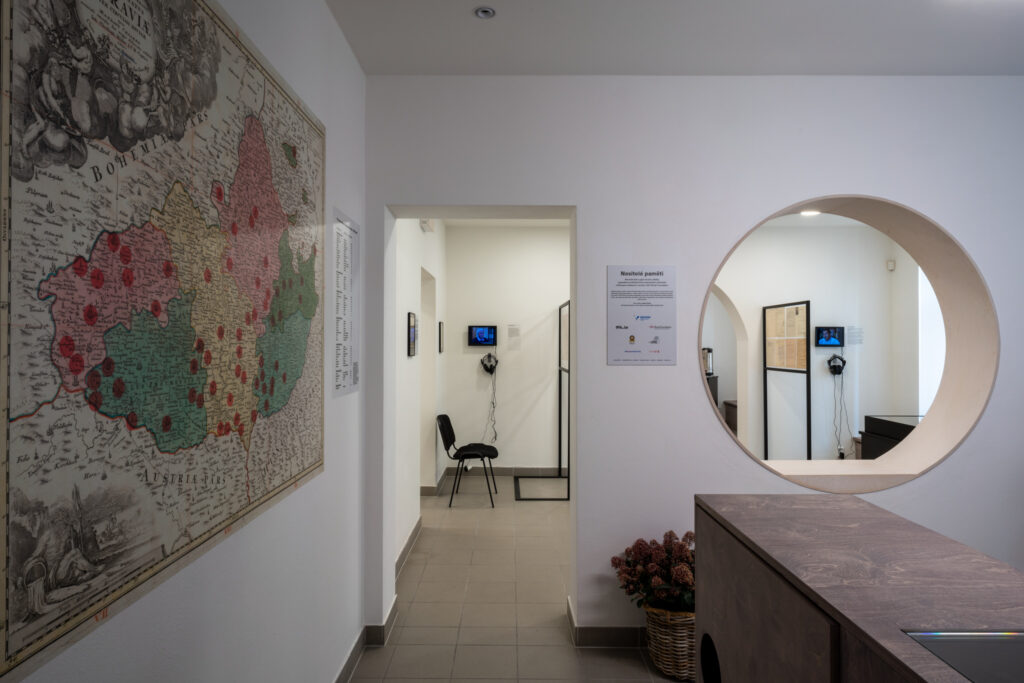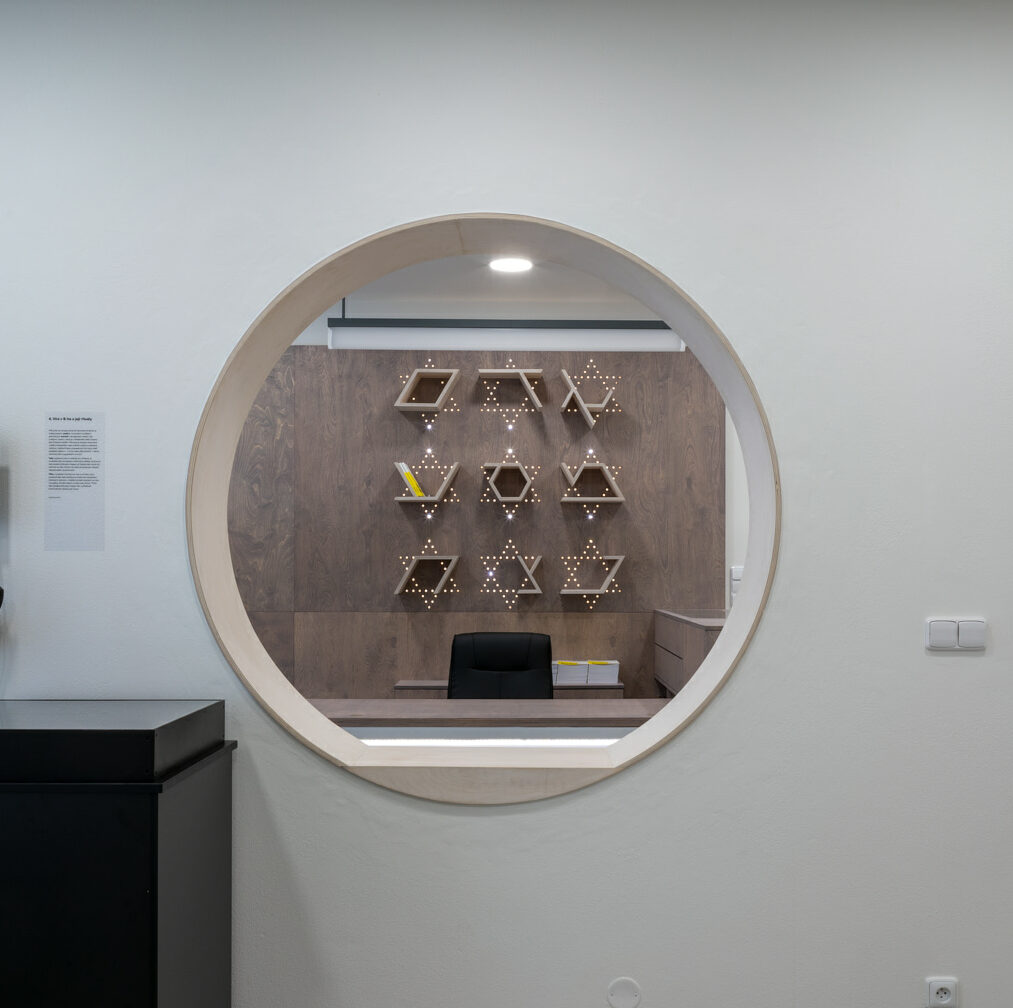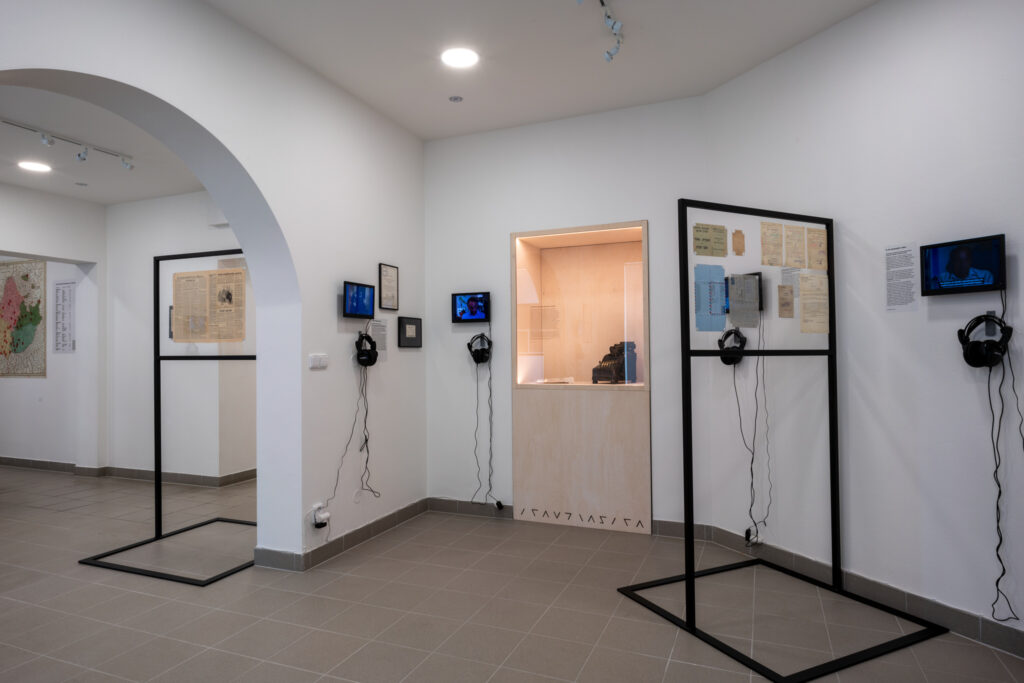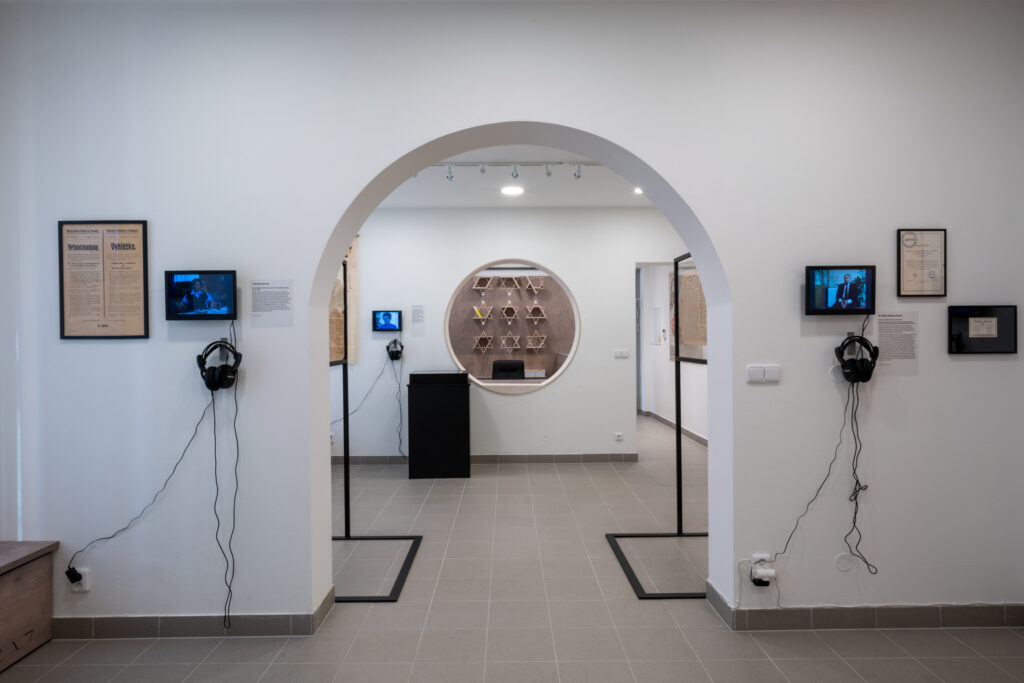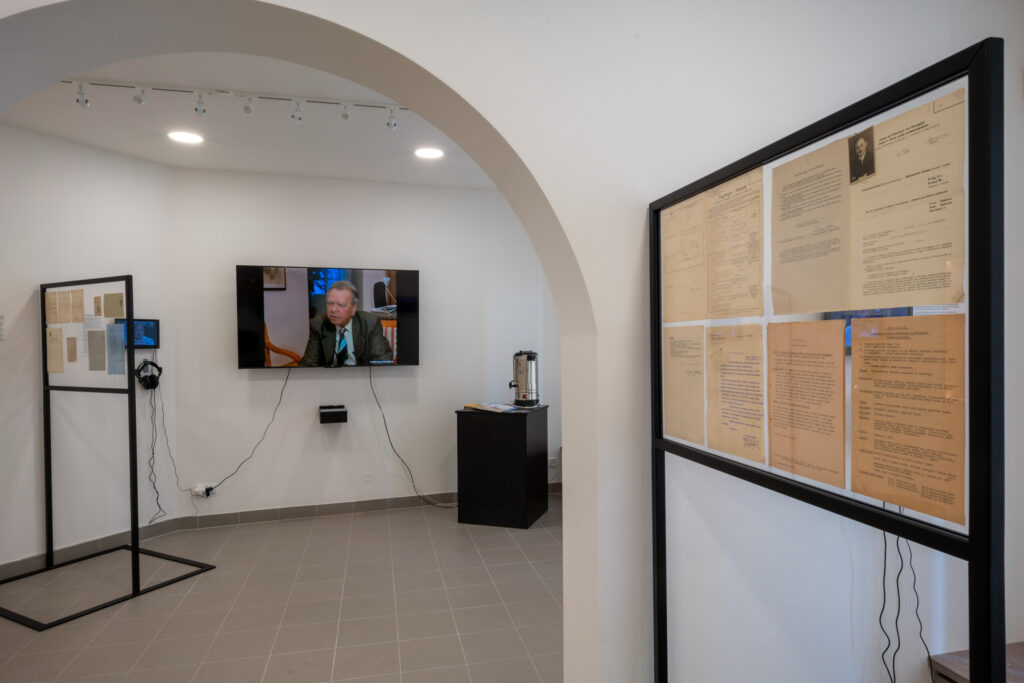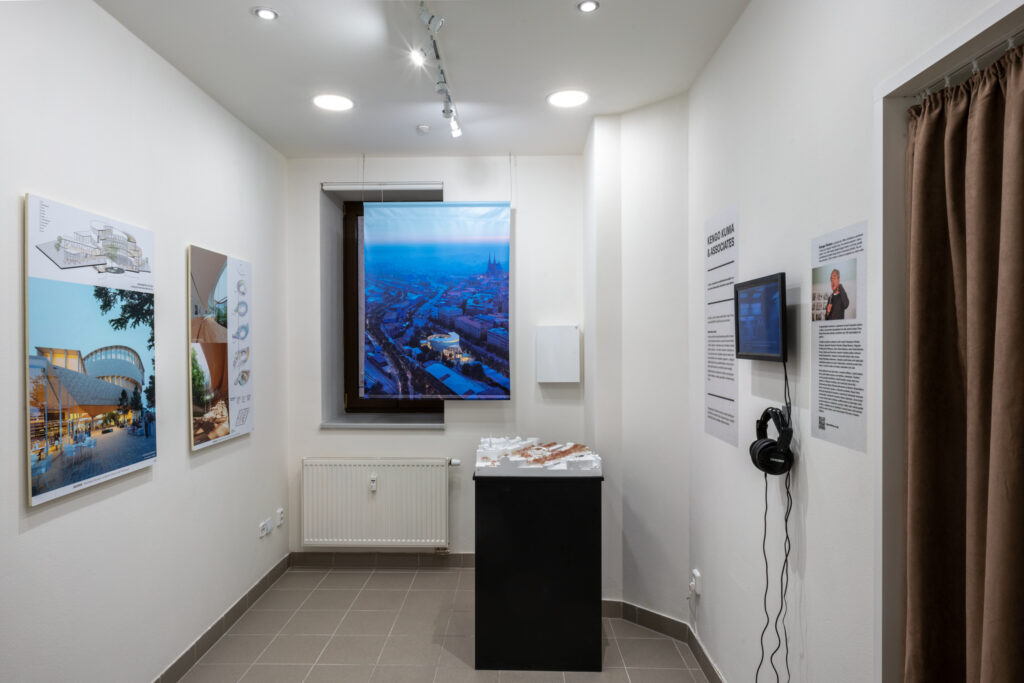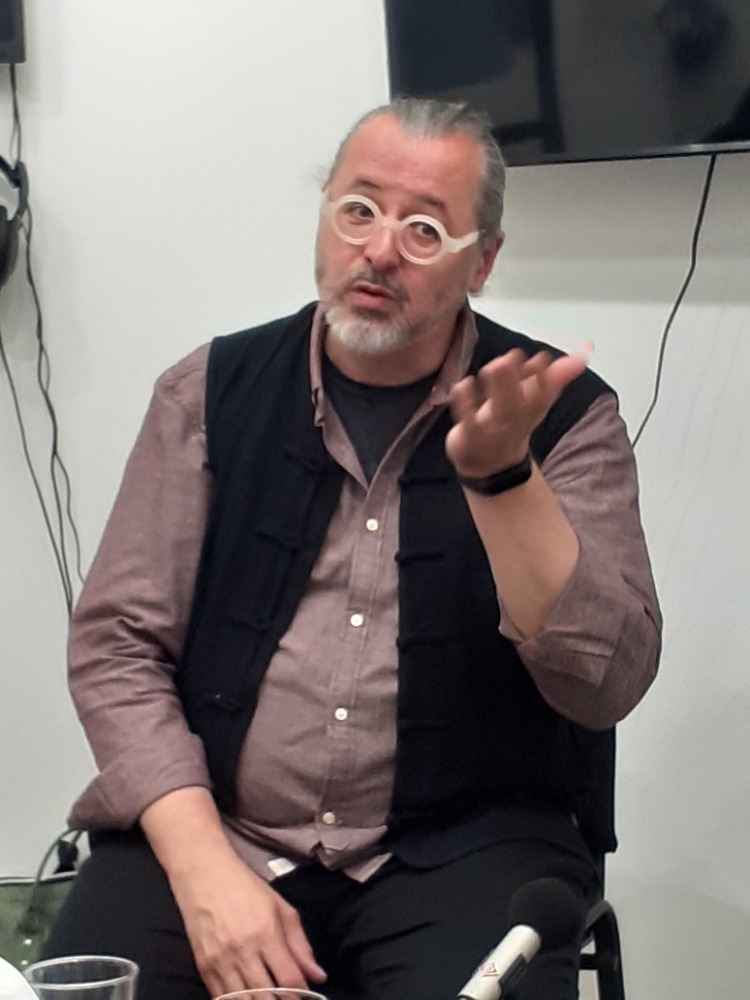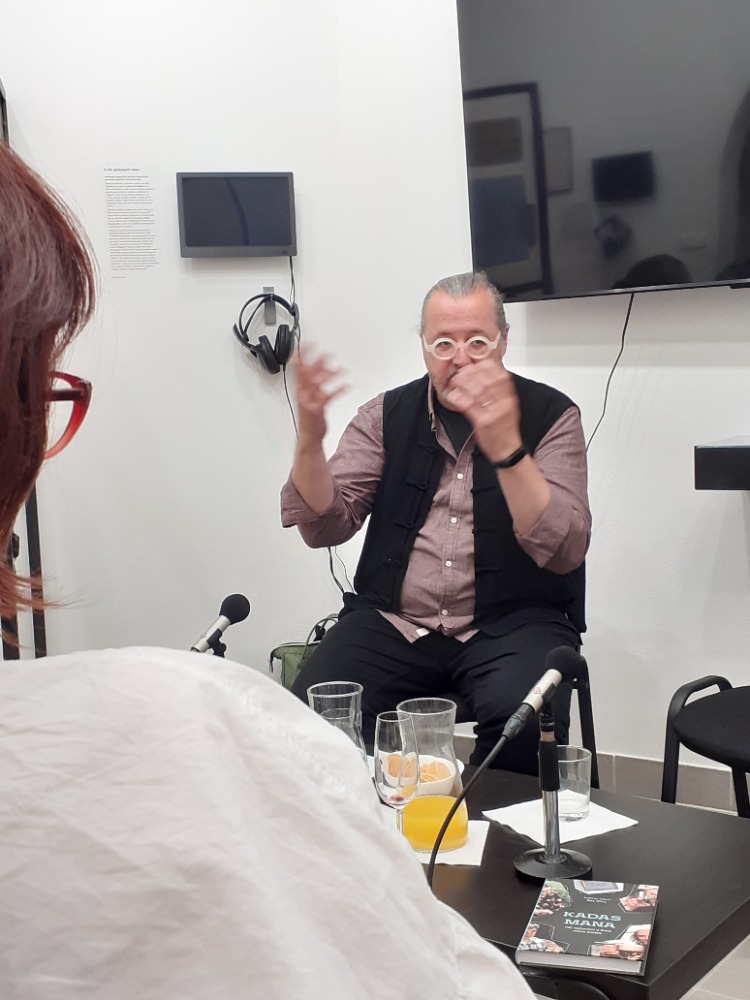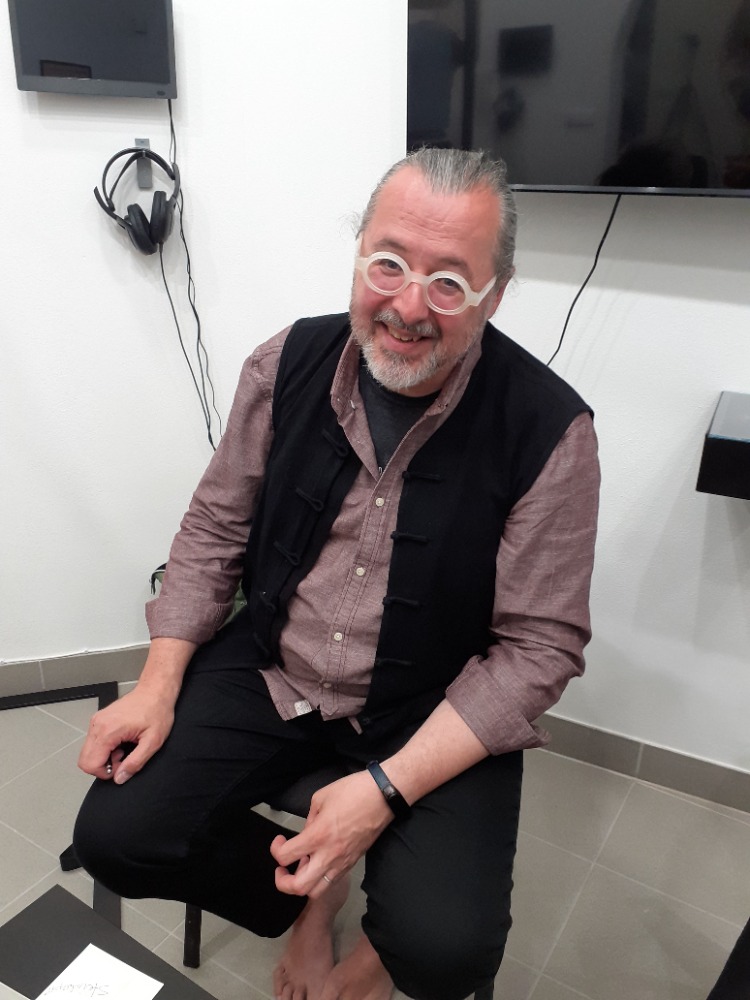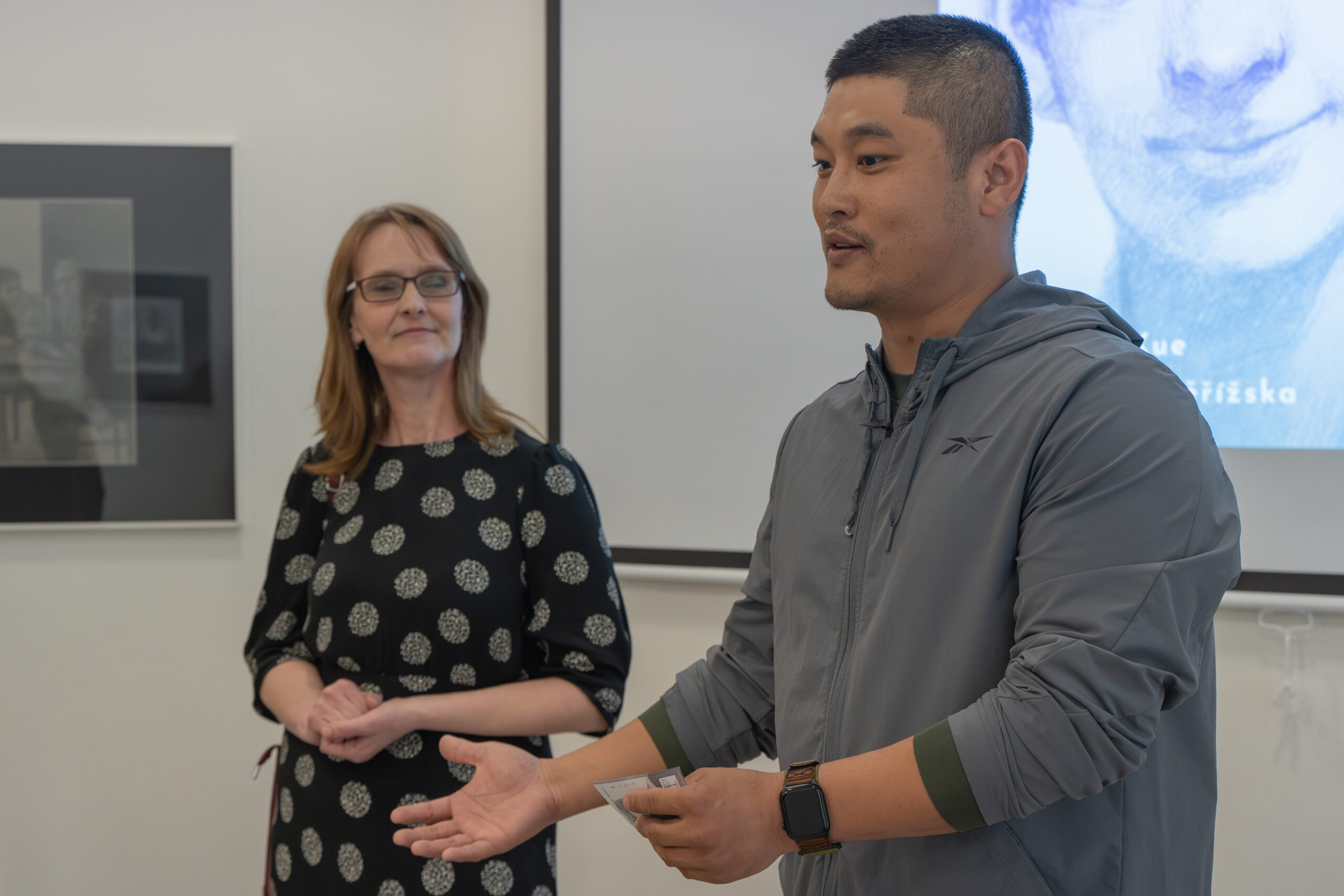
The desire to live. The (Un)Ordinary Story of František Färber from Kroměříž
On Tuesday, April 8, we opened a new exhibition. It is a series of drawings inspired by the life of František Färber, a Holocaust survivor from Kroměříž. The author of the drawings is Chinese artist Han Jiang Xue, who lives permanently in the Czech Republic. The exhibited drawings were created as a basis for an educational comic book for the Museum of Kroměříž. It set out to trace the imprint of the great historical events of the 20th century in the life of František Färber, whose family belonged to the Kromeriz Jewish community. The drawings are based on historical sources, such as family photographs, correspondence and objects stored in the museum's depository. At the opening, we welcomed not only the author of the drawings himself, but also a delegation from the Kroměříž Museum, where the exhibition was created and has already been successfully presented. The exhibition will run until 30 June 2025.

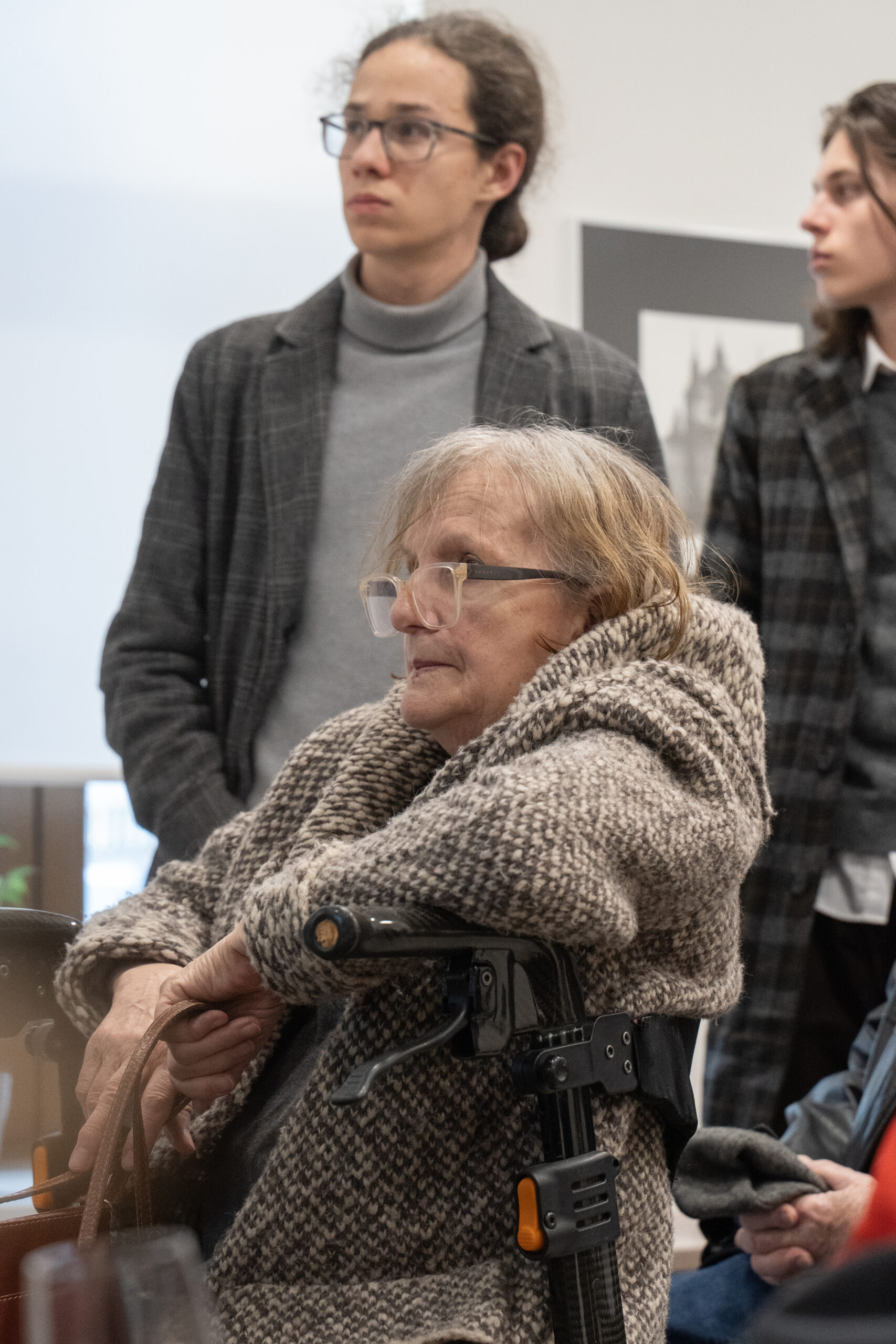
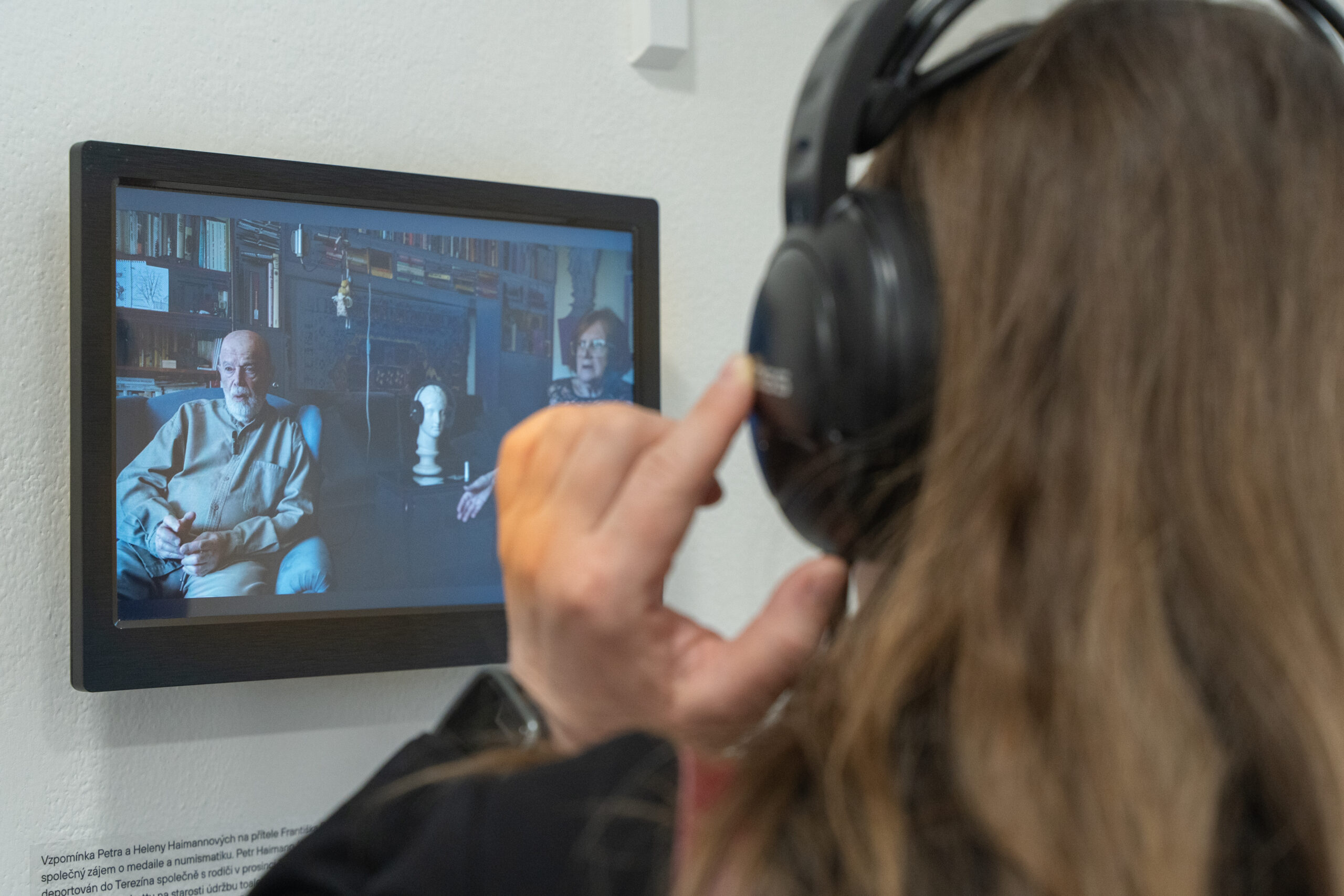
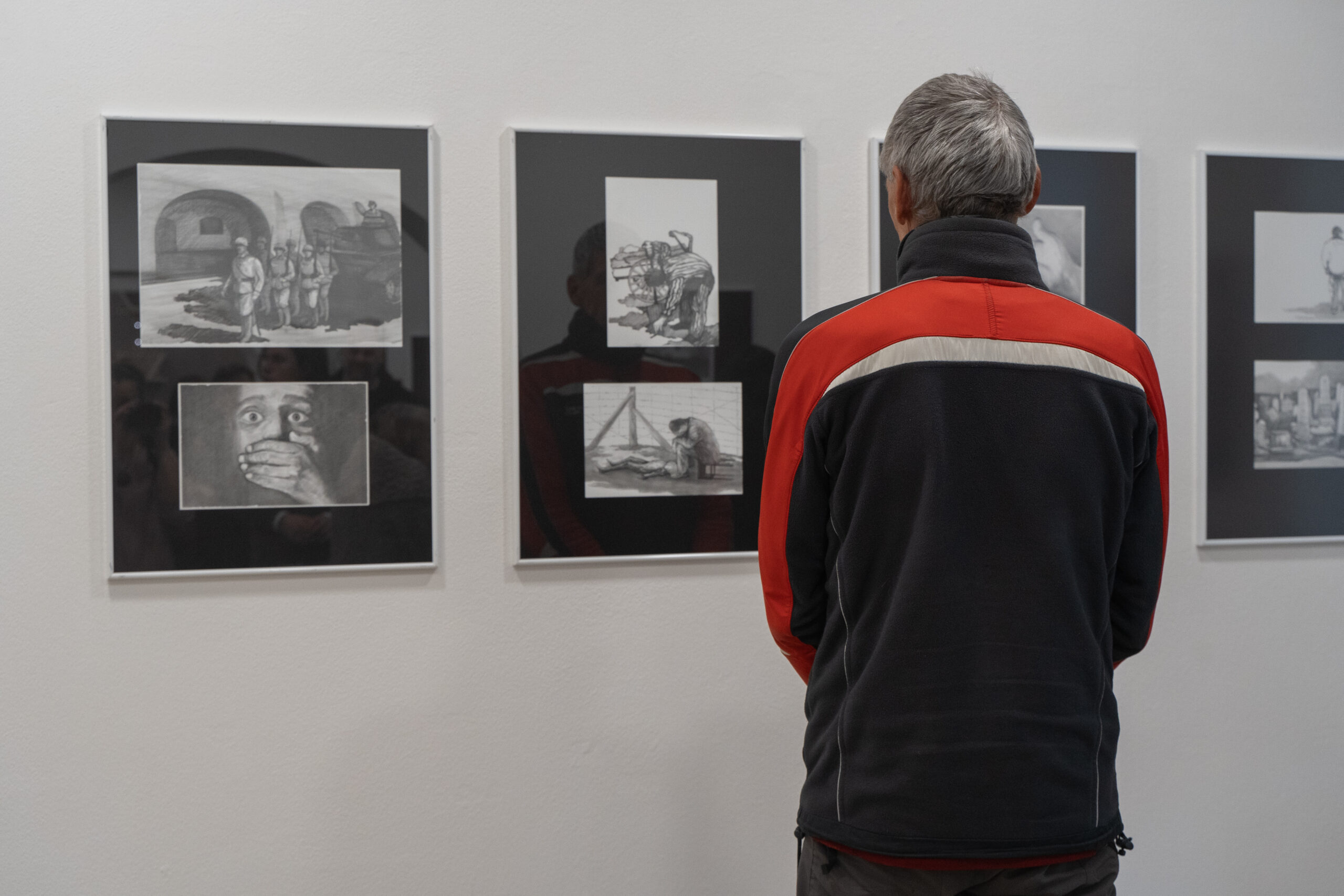
Oskar Spielmann, Central European in Algeria
On Wednesday, 26 March, a lecture by Ivo Habán about the Jewish painter with Moravian roots Oskar Spielmann took place in the Malý Mehrin on Vienna Street.
By his birthplace, his studies and his early work, Spielmann belonged to the circle of German-speaking artists who had to leave at the end of the 1930s.
their country and should be erased from its memory. It was the Central European events of 1938 and 1939 that decided that he moved permanently to Algiers, where he spent 30 years of his artistically fulfilled life. In 1945 he received the prestigious Algerian Art Grand Prix, which confirmed his status as an Algerian artist. Ivo Habán is the author of a recently published comprehensive monograph on Oskar Spielmann and his insightful but formally very accessible commentary on the painter's life and work delighted all present and stimulated a rich discussion.
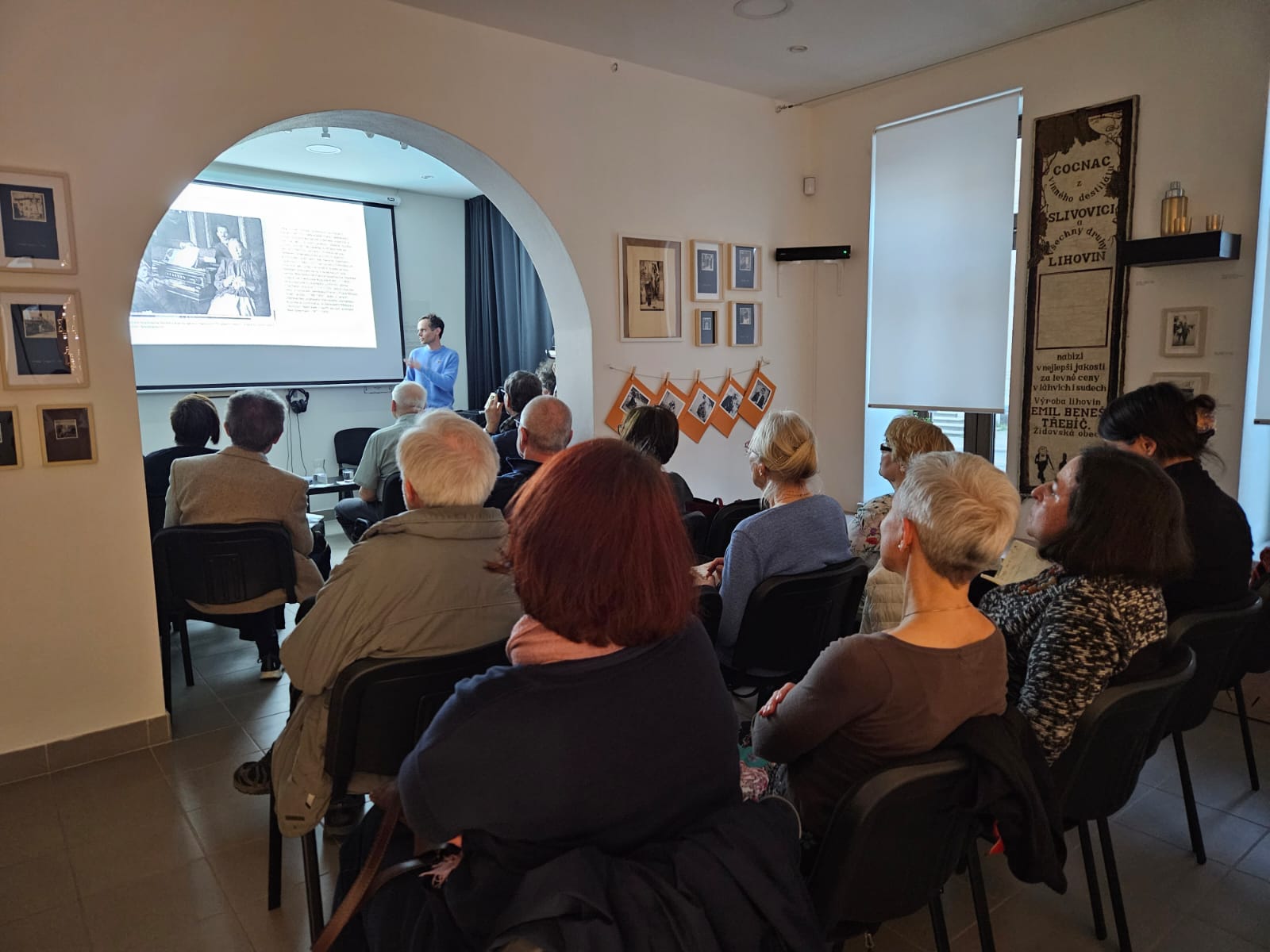
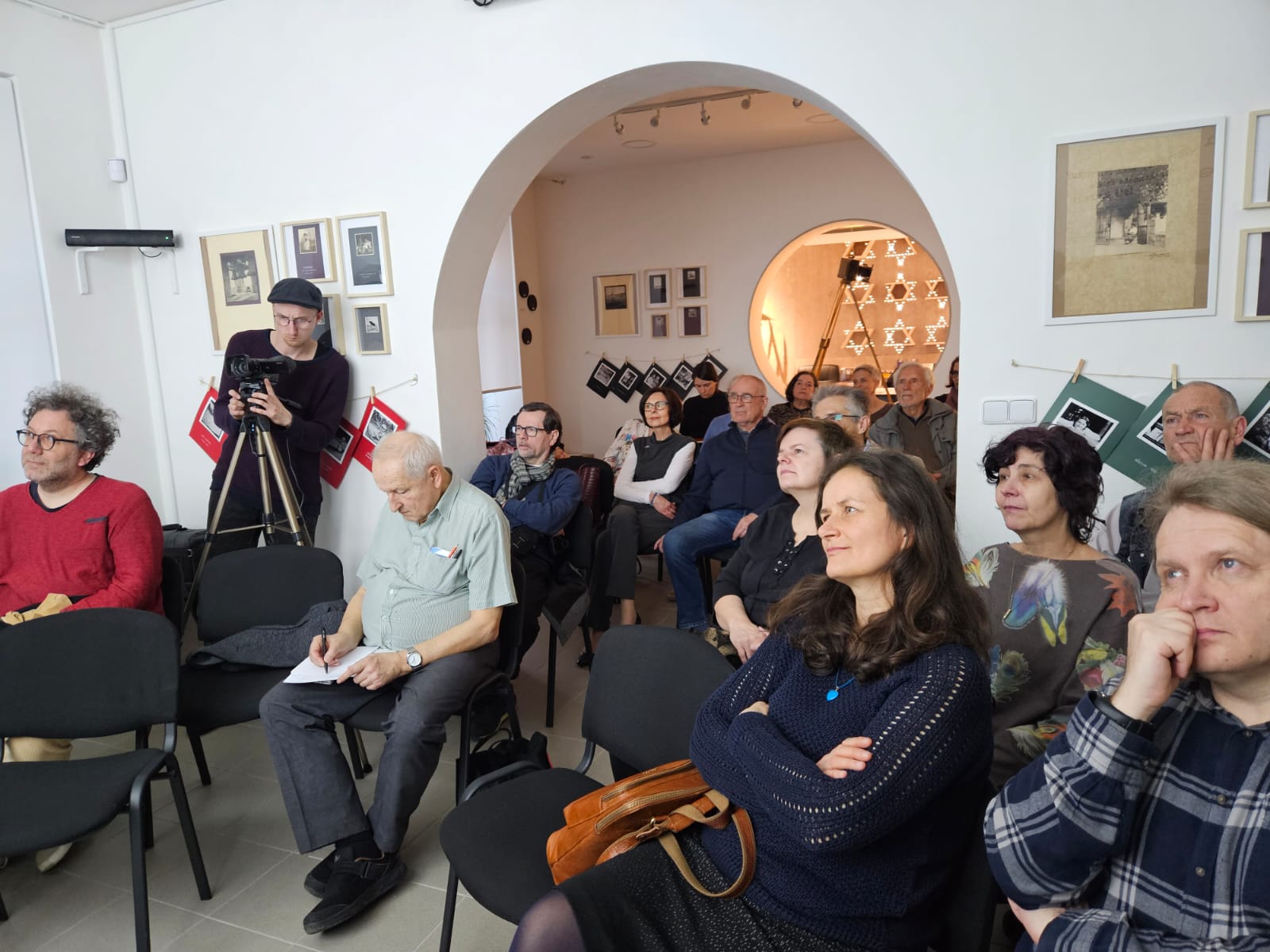
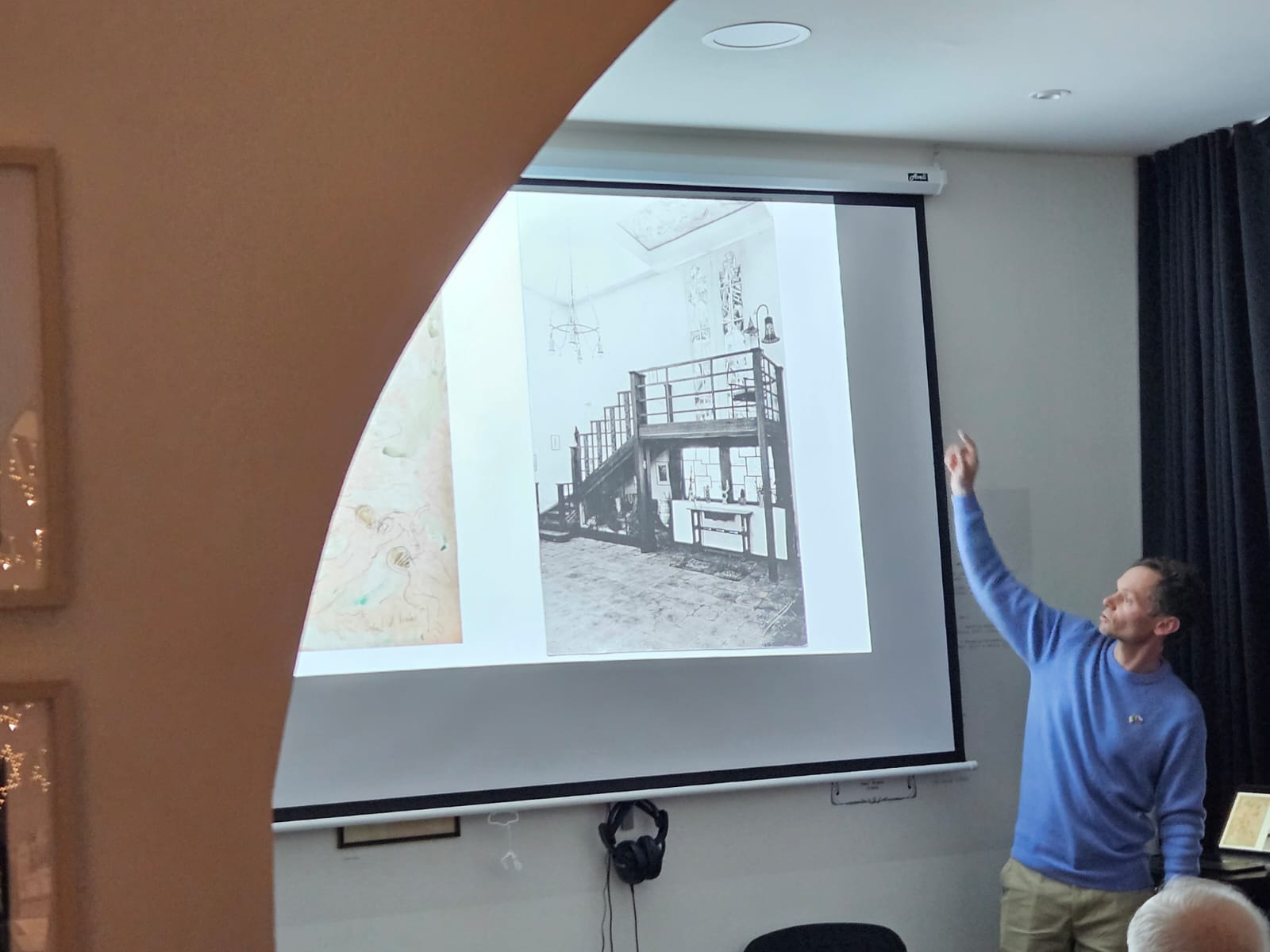
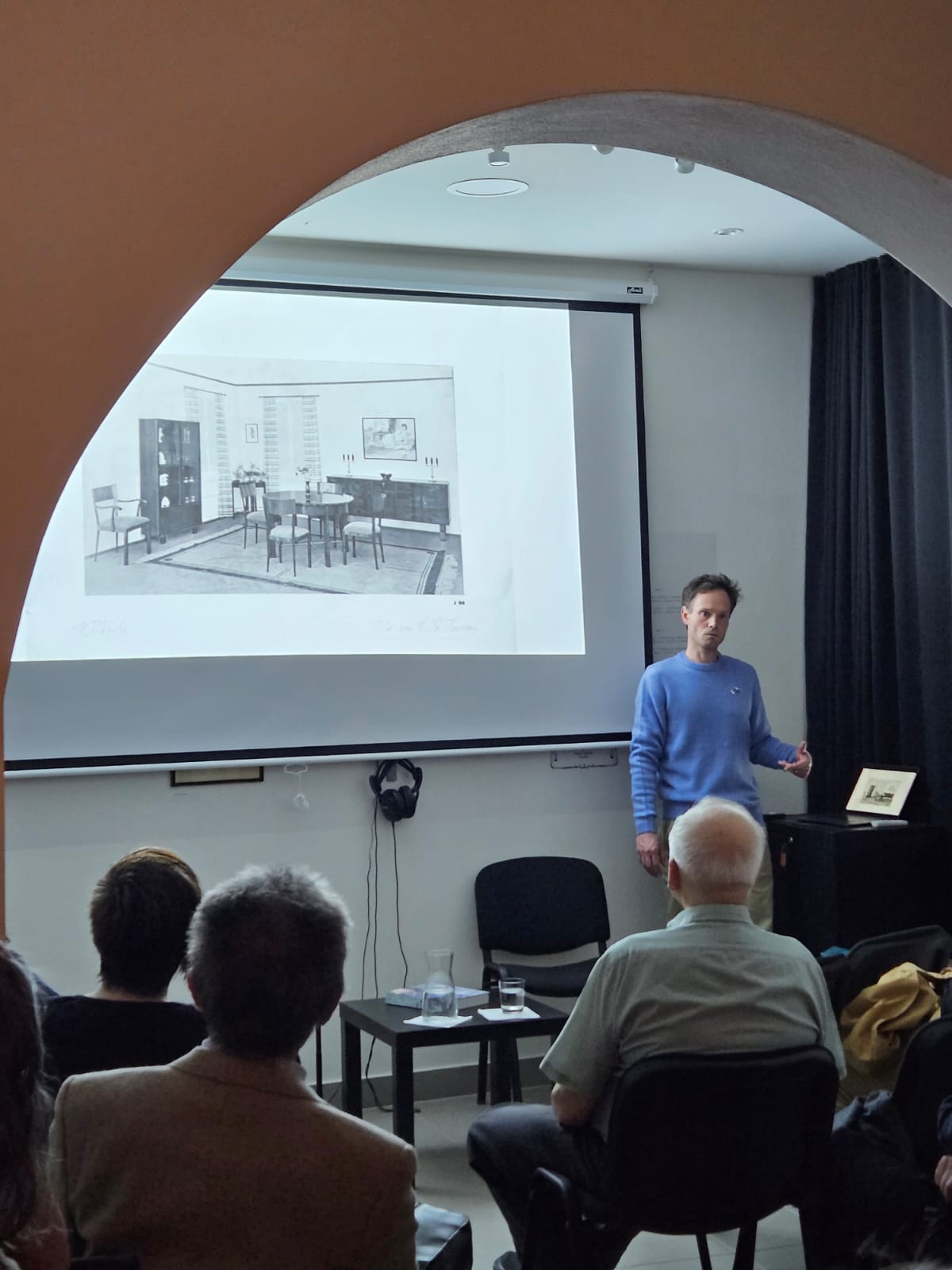
Israelis and Palestinians in the shadows on October 7, 2023
On Tuesday, March 18, we have invited Mark Cheika, who has long been involved in the Middle East, particularly the Israeli-Palestinian conflict. Many questions from the audience at the end of the lecture confirmed that the situation is complex and can be observed and studied from many perspectives. Therefore, we believe that those who came to learn more about the roots of the situation left with answers to their questions.
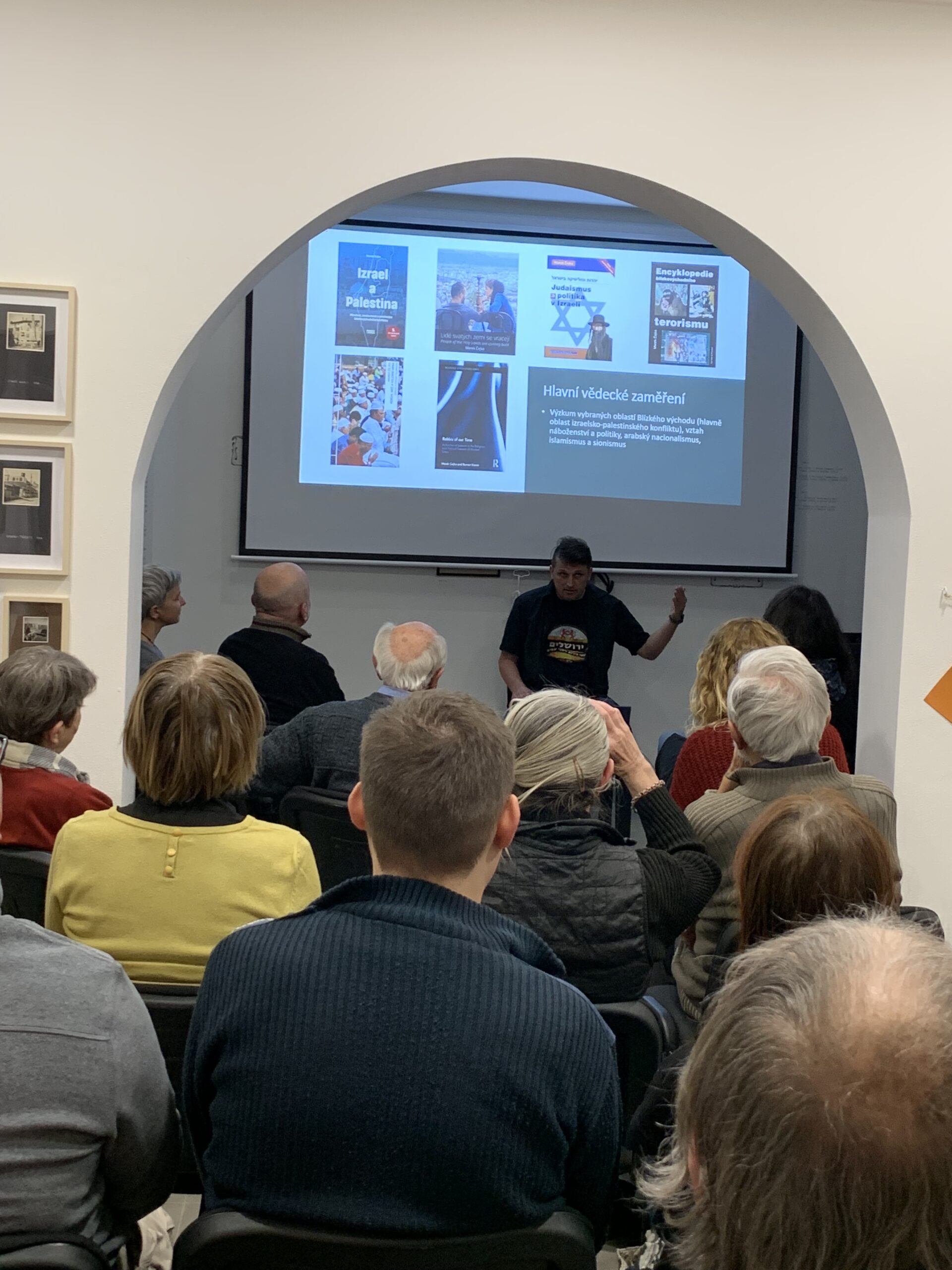
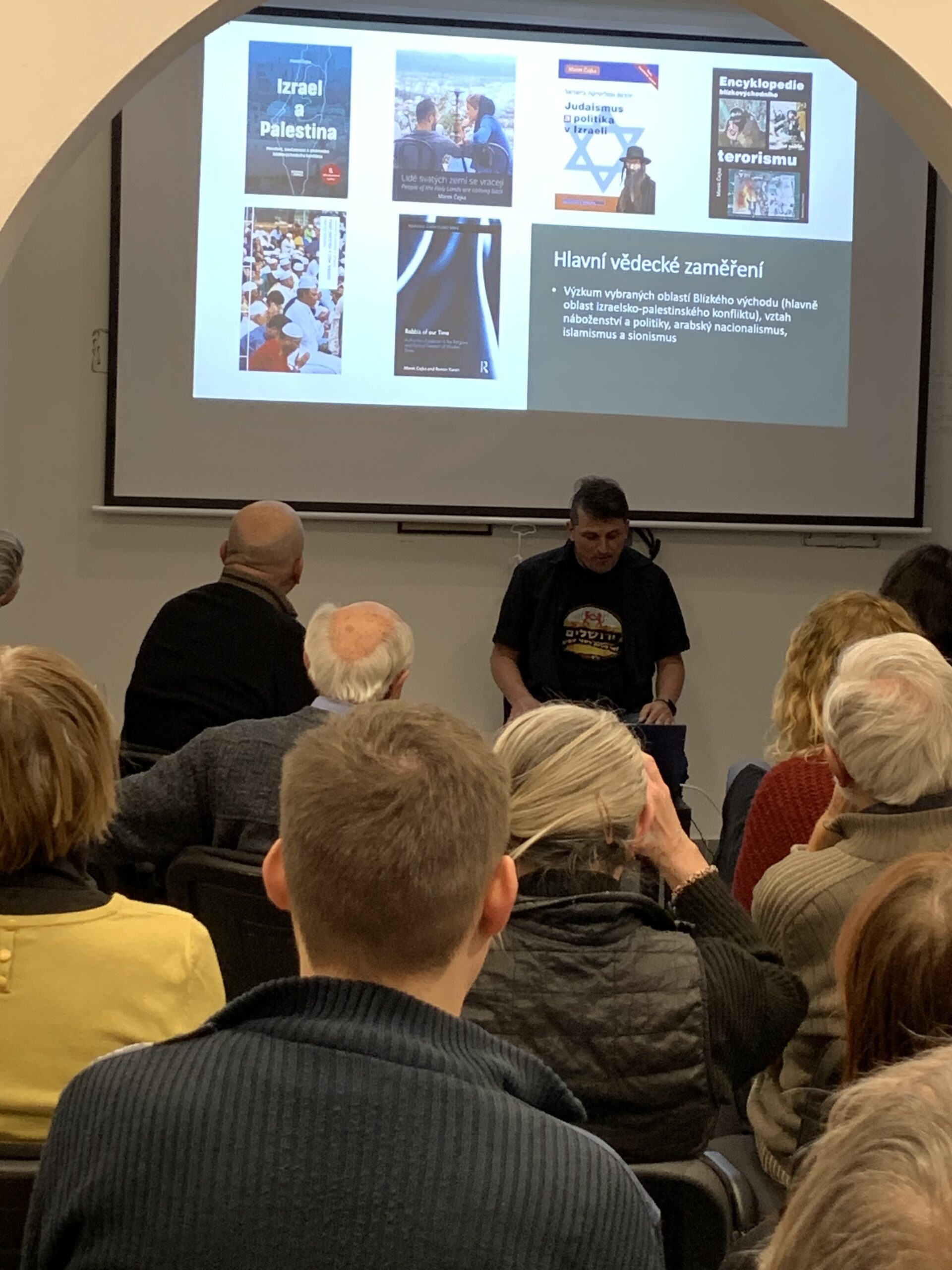
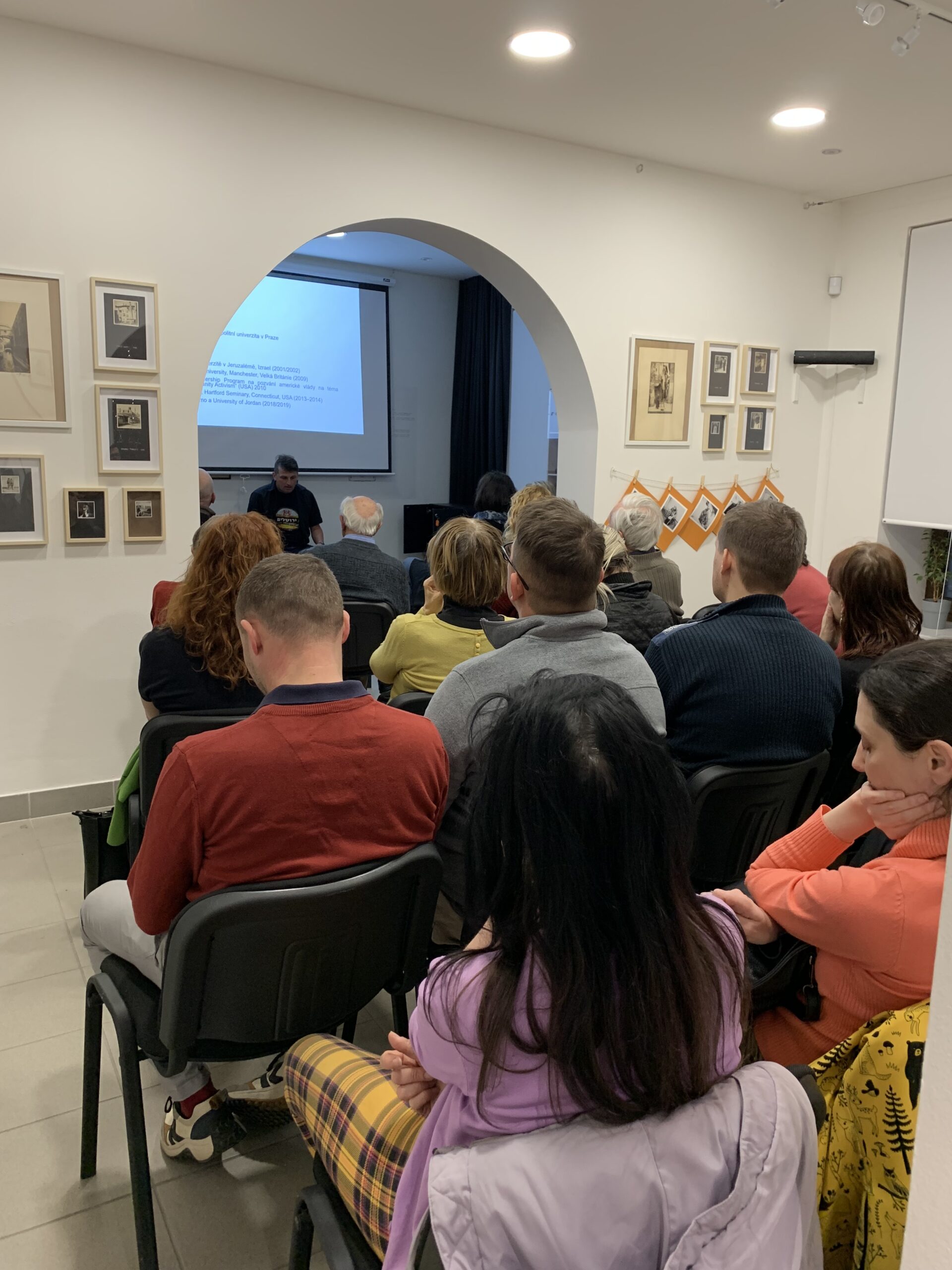
What happened to confiscated Jewish property during and after the war?
We are happy to expand our offer to more general topics than just the Jewish Moravian story. That's why we invited historian Jana Jiraskova from the Centre for Documentation of Property Transfers of Cultural Property of World War II Victims and Judaists Jiří Blažek, who works as a translator, editor and publisher of Jewish religious literature and also works as a guide and lecturer at the Jewish Museum in Prague. On Monday, March 10, those present heard how the systematic confiscation of Jewish property during World War II worked, how it was determined which works of art were of the highest value, and how some paintings and prints were saved from the Nazis. They also talked about the research work, where even nowadays they are searching for confiscated art objects. However, the subject is so wide-ranging that we will follow it up with a follow-up lecture in early June.
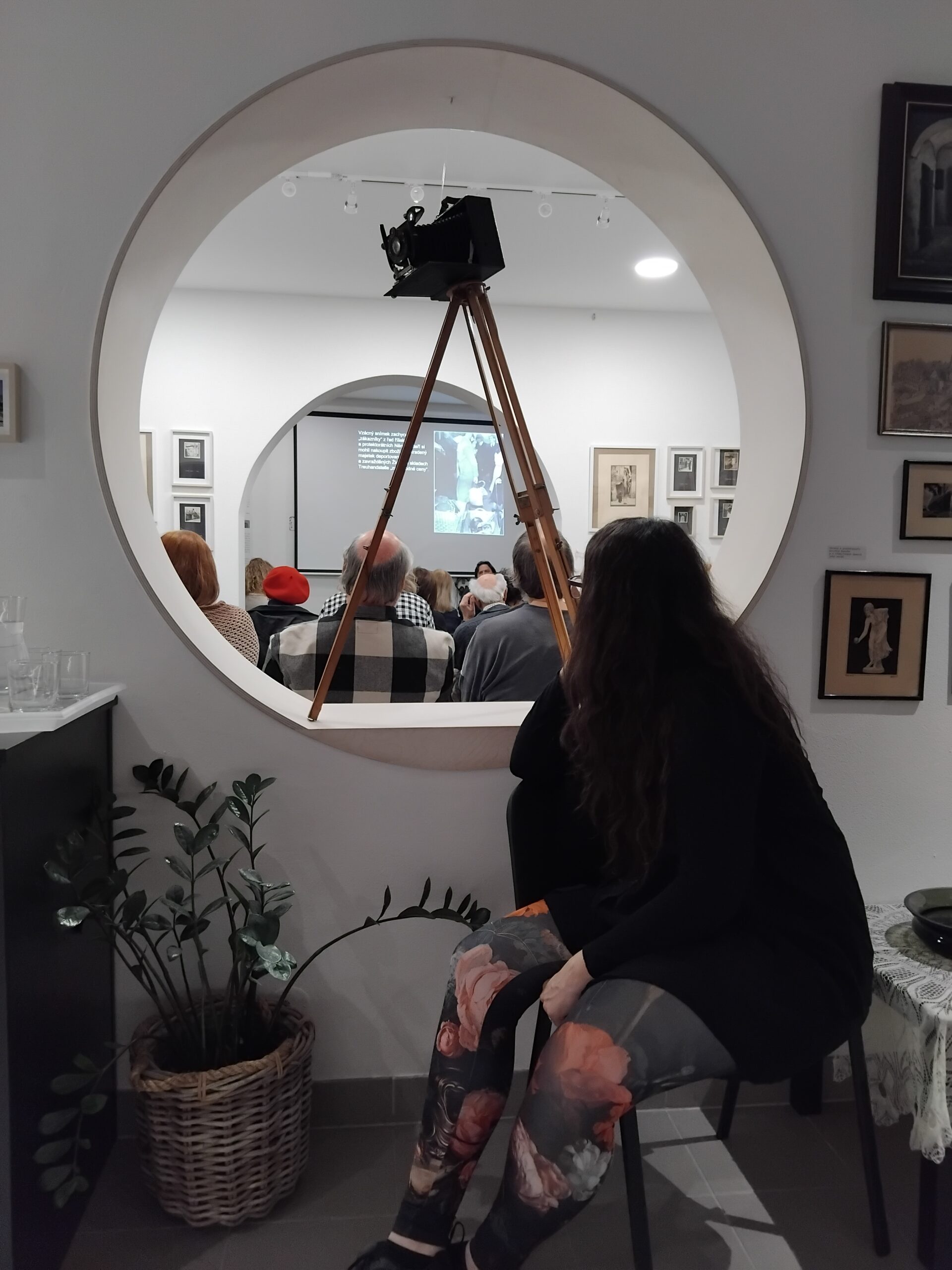
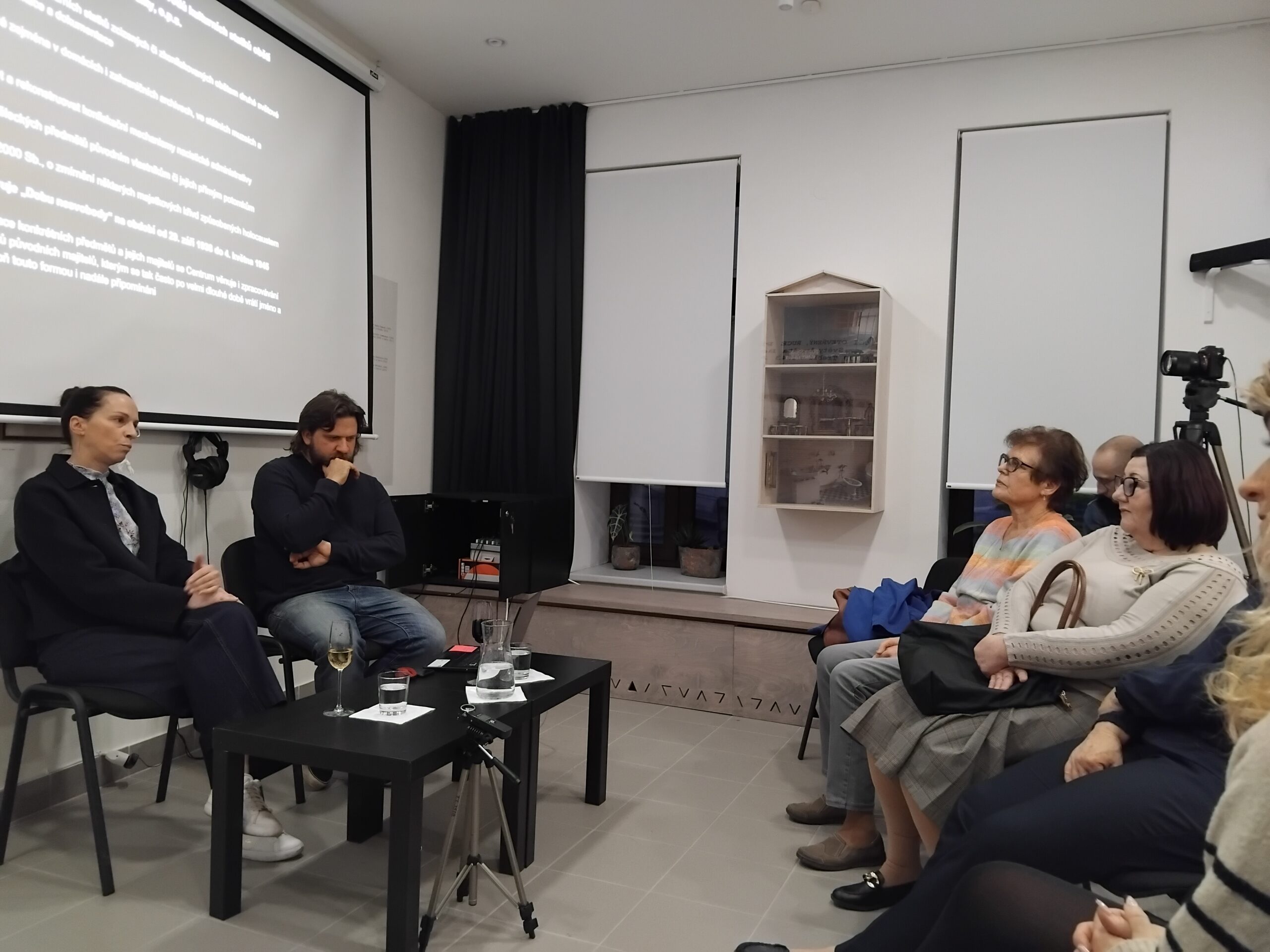
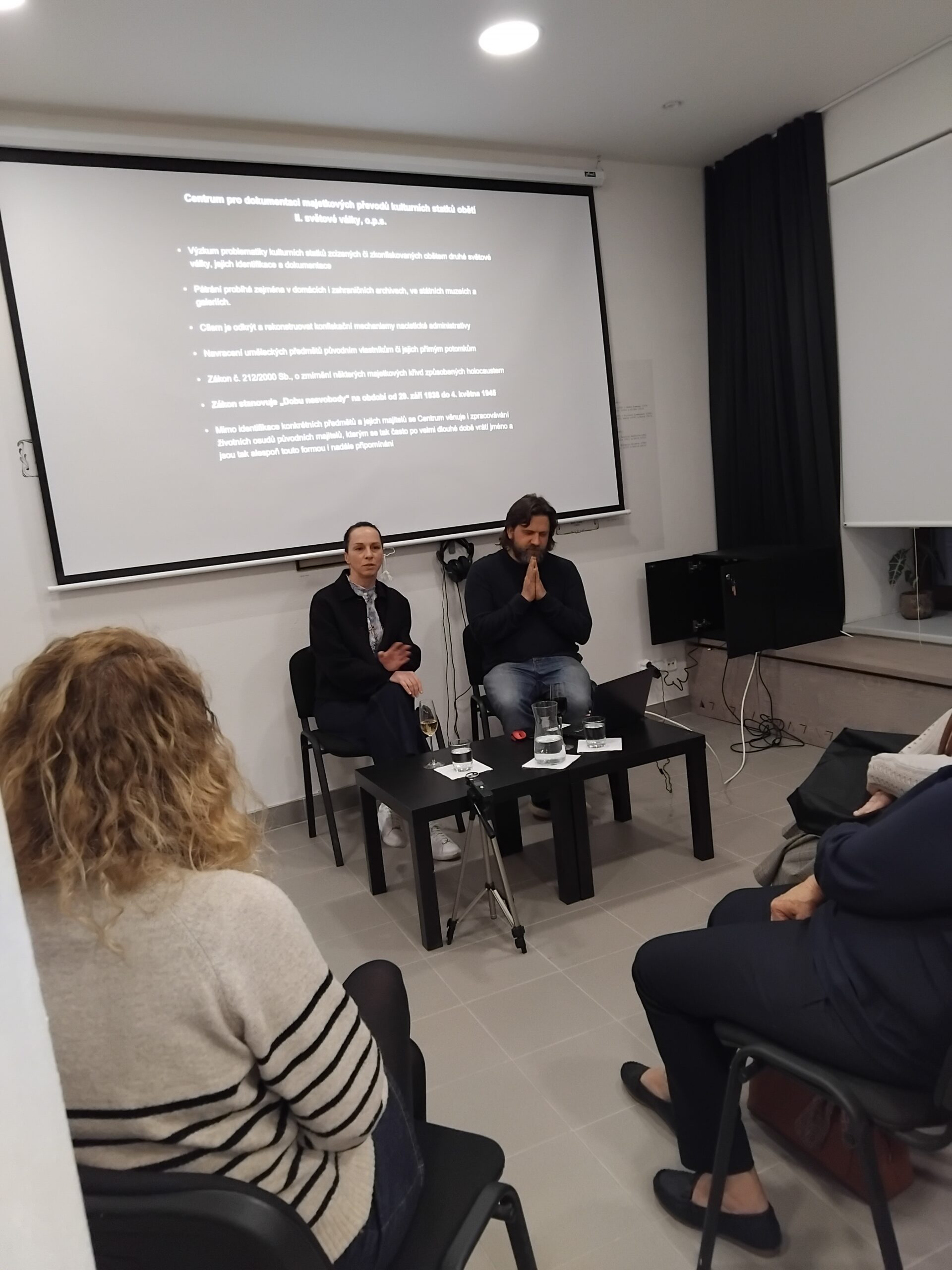
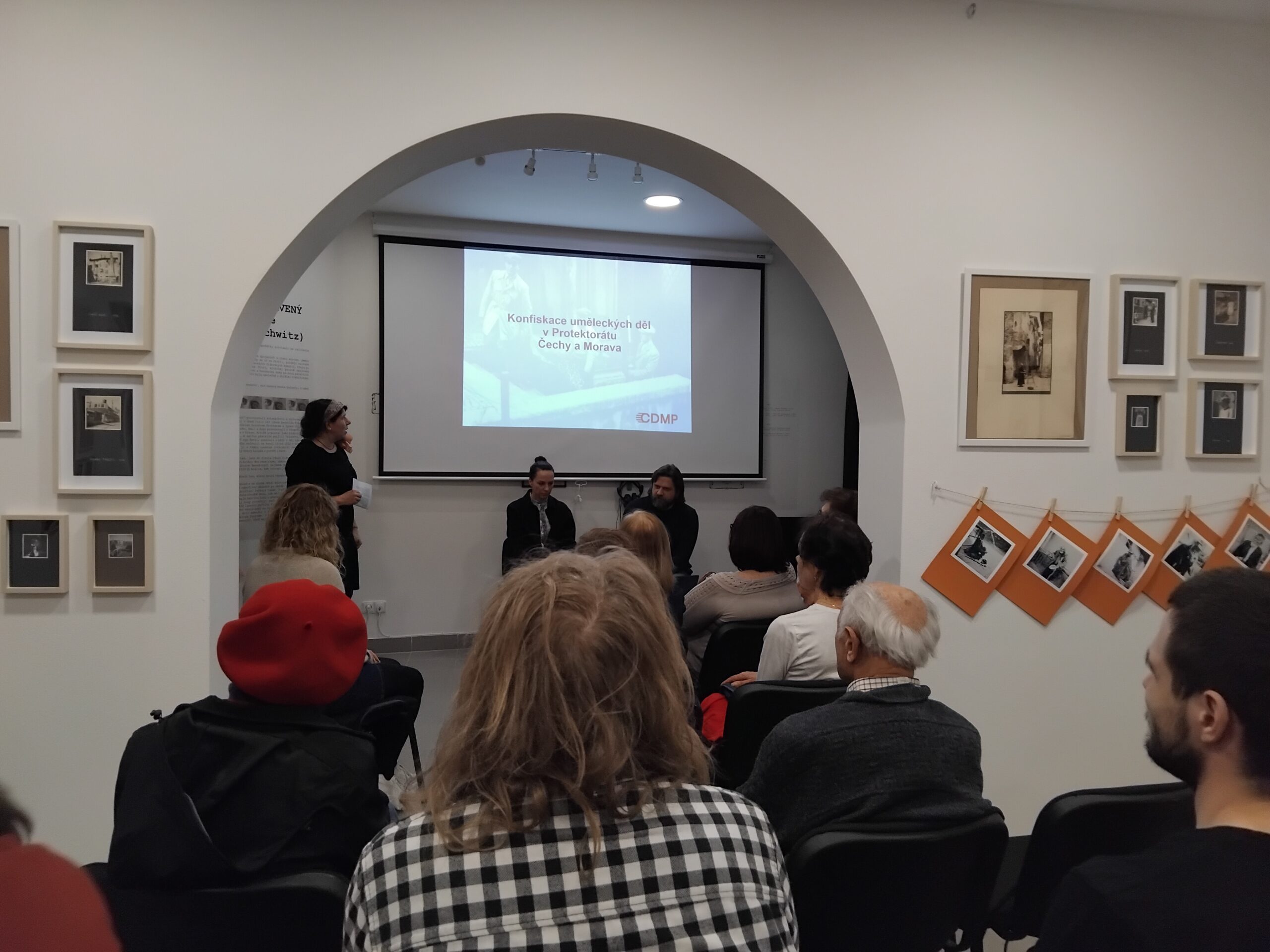
Grandpa could take nice shots like that, too...
A programme tailored to the exhibition in progress - that is how one could characterise the discussion on Thursday 27 February with the brothers Jiří and Petr Urbanthe grandchildren of Arnošt Beneš. Both of them did not know their grandfather personally, but thanks to the surviving photographic and film footage, but especially from the narration of their mother Zuzana Urbanová, née Benešová, they could comment insightfully not only on his life, but also on the family ties of the extended family. Táňa Klementová, who led the whole talk, put the individual memories into historical context.
And we are glad that the town of Třebíč has taken notice of this particular story and its local museum has promised to organize a similar exhibition in an expanded form for other local Jewish families next autumn. Thank you.
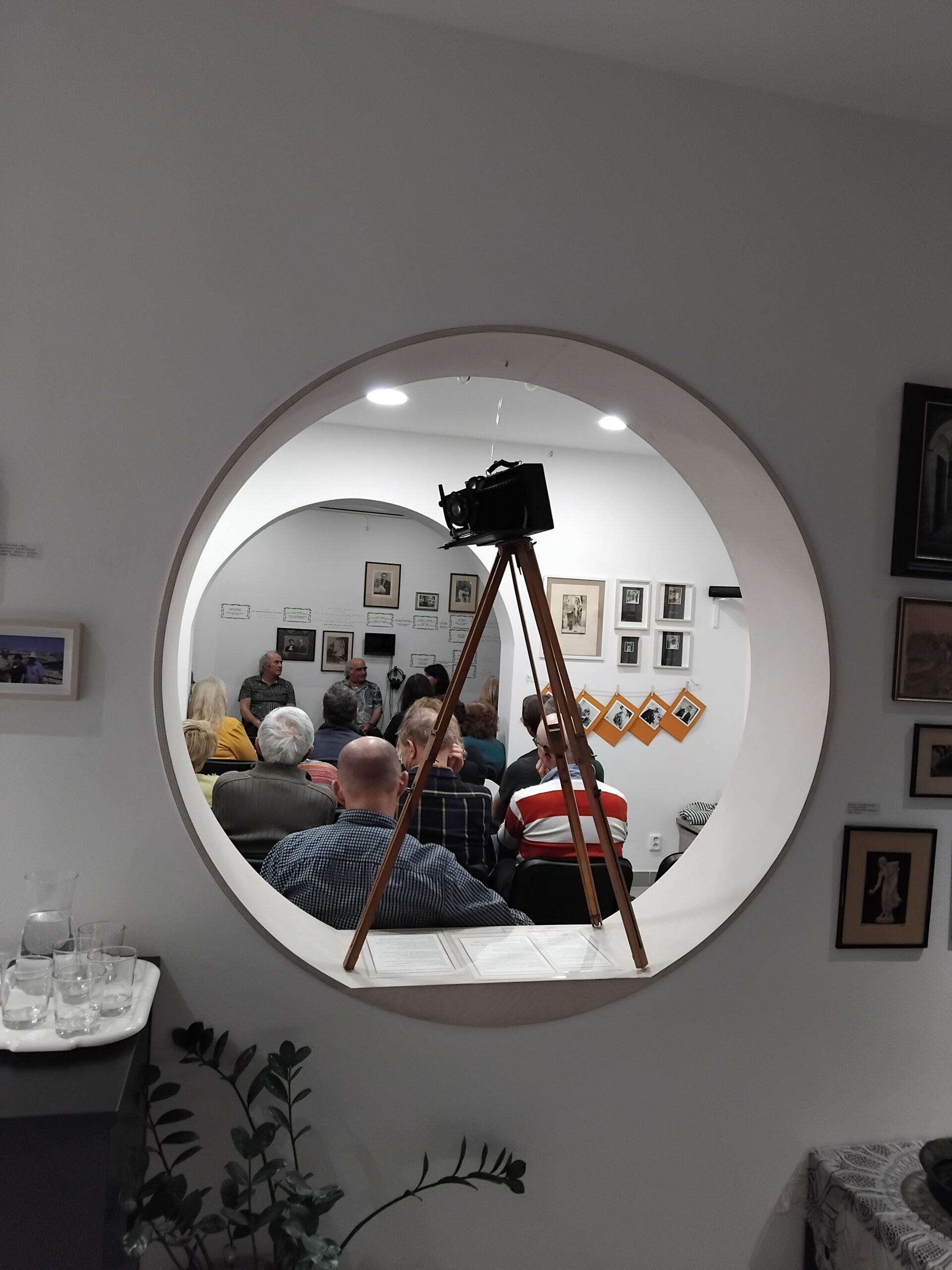
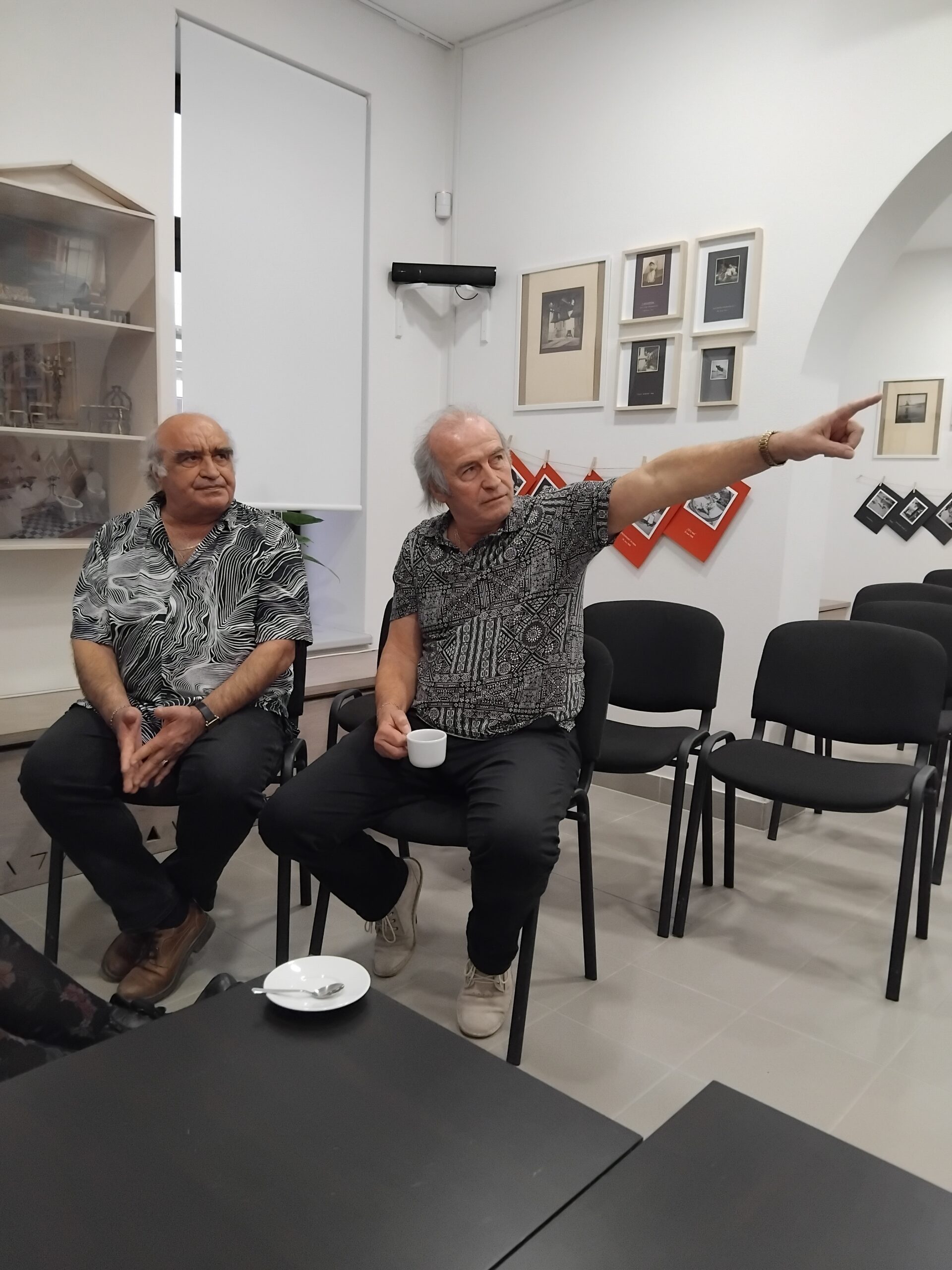
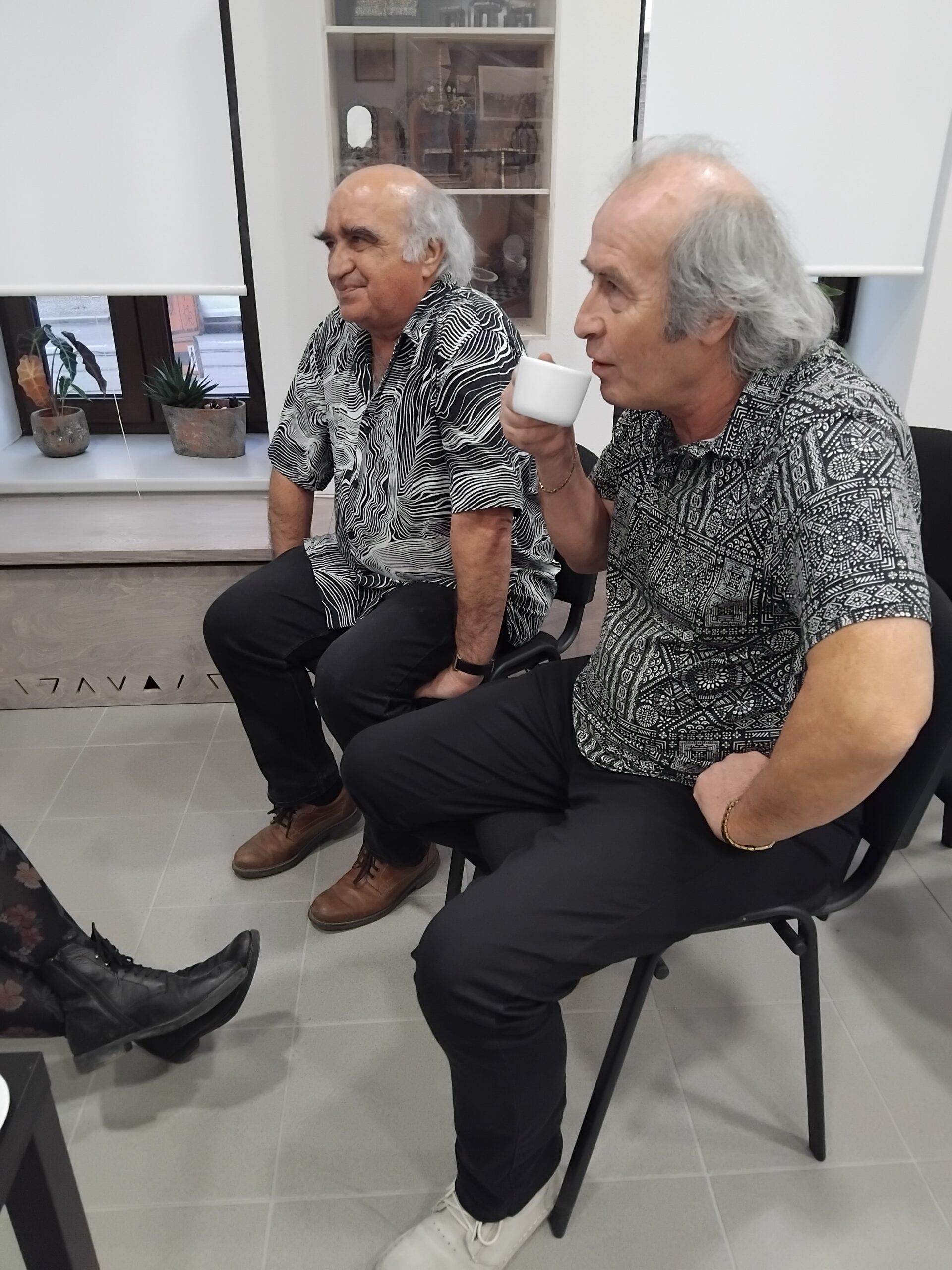
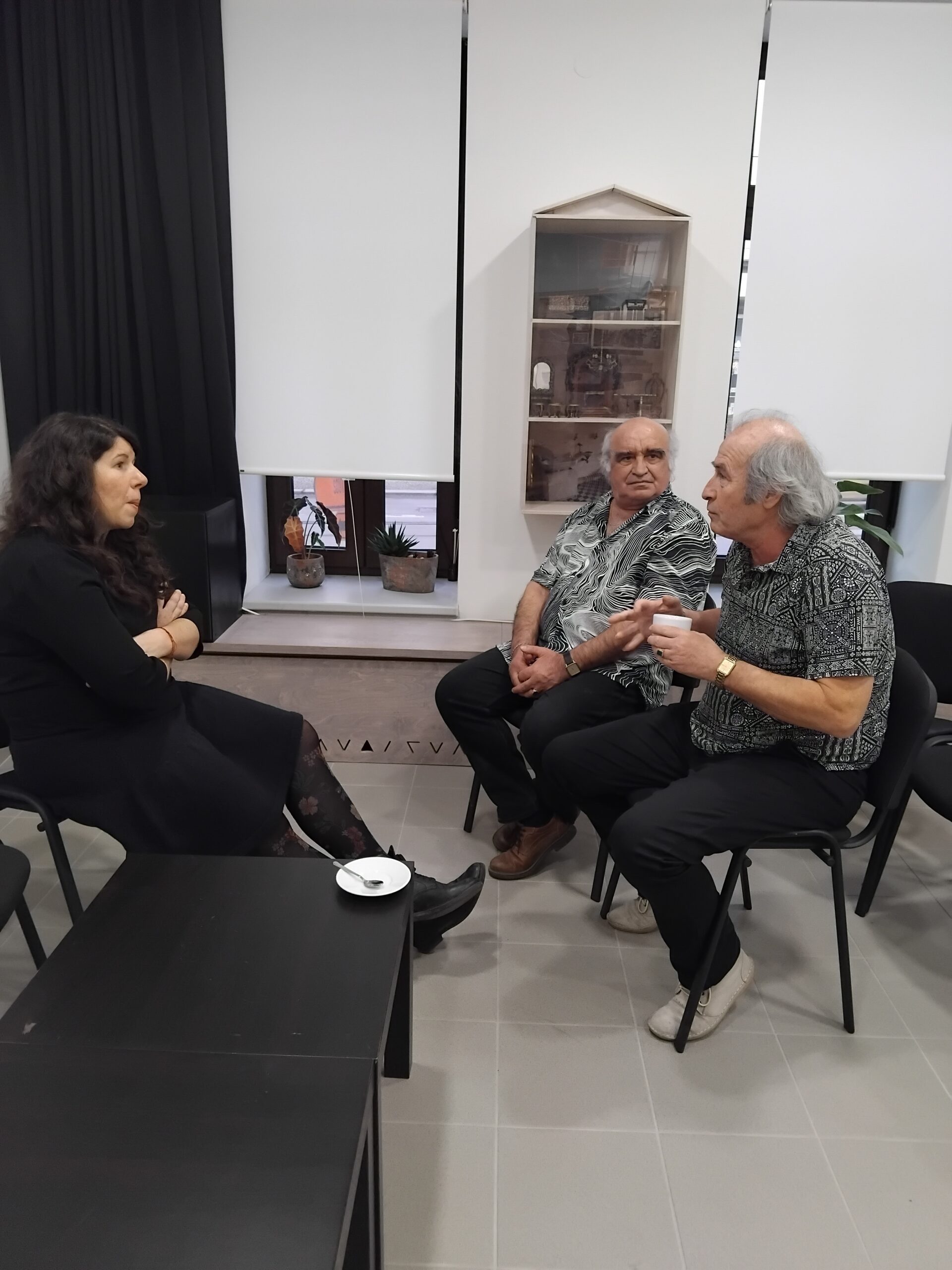
Martin C. Putna: New news from the Holy Land
Professor Martin C. Putna is known not only to professionals but also to the general public for being "irreverent to authority, torn by emotions, full of energy, but also an erudite researcher who provokes thought", as the headline of one newspaper article put it. We are glad that on February 19, 2025 he accepted the invitation and thus completely filled our still small space of the Little Mehrin not only with his speeches, but above all with the audience, which was far from enough for the number of chairs, and so voluntarily remained standing...
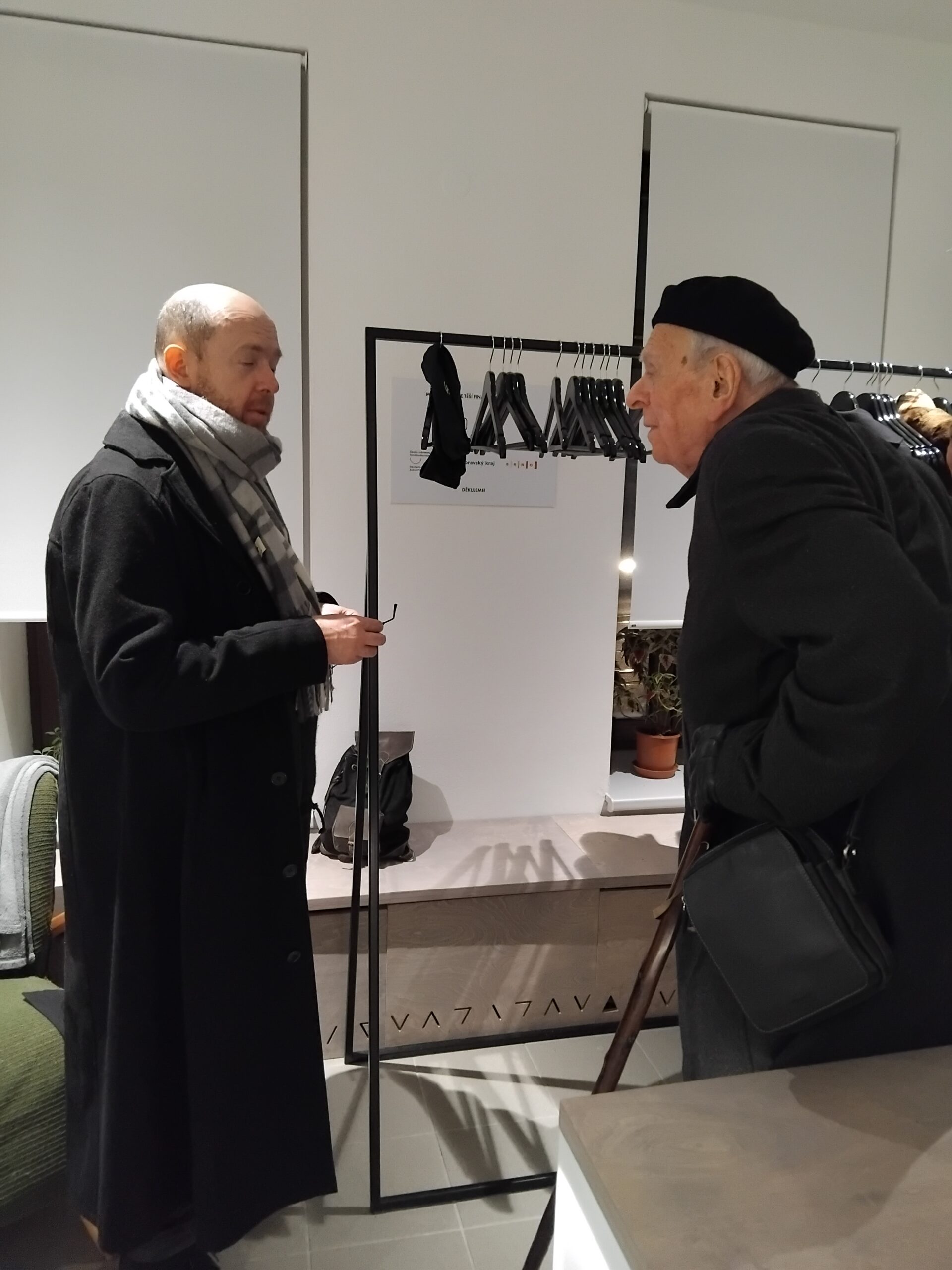
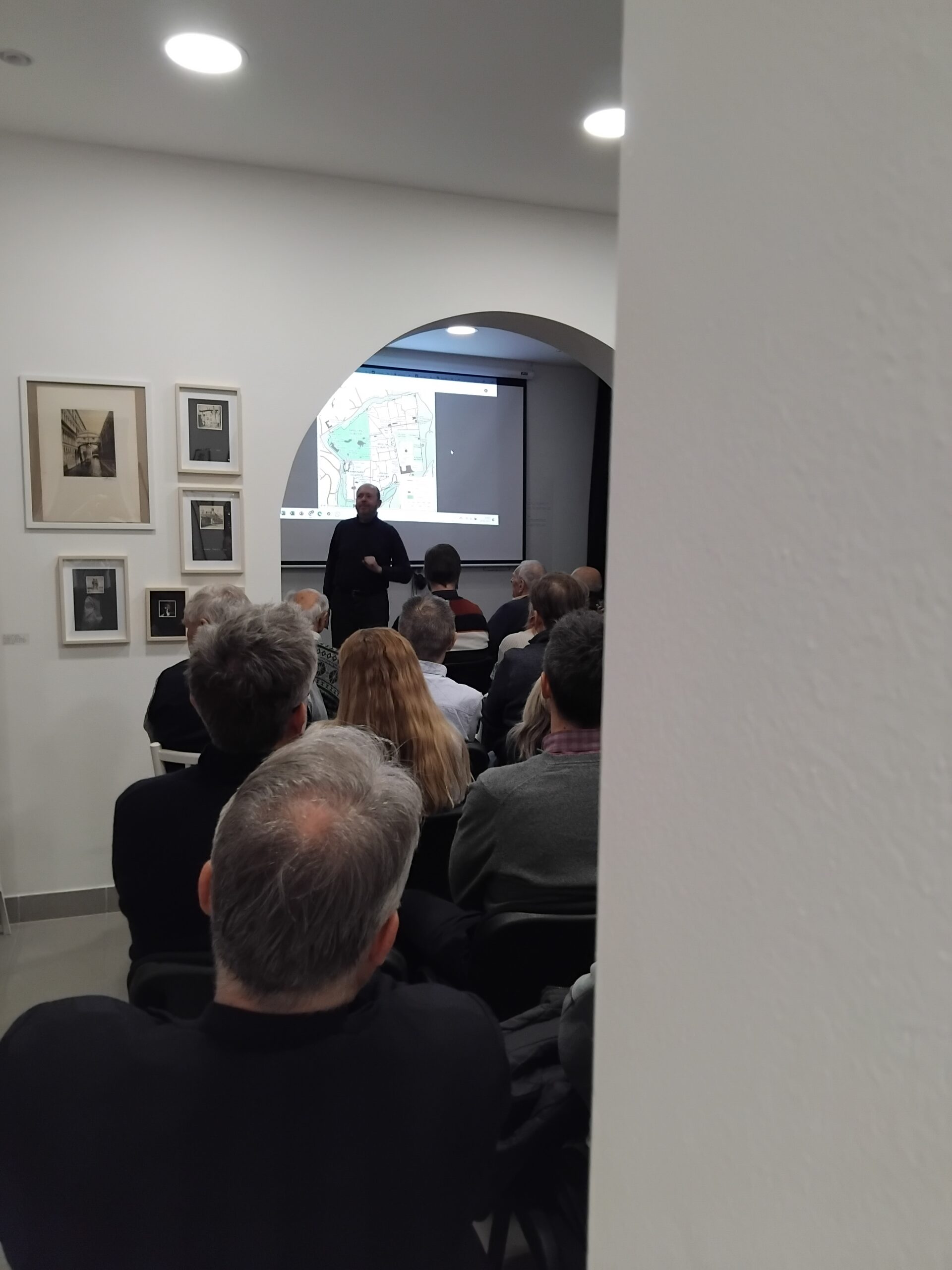
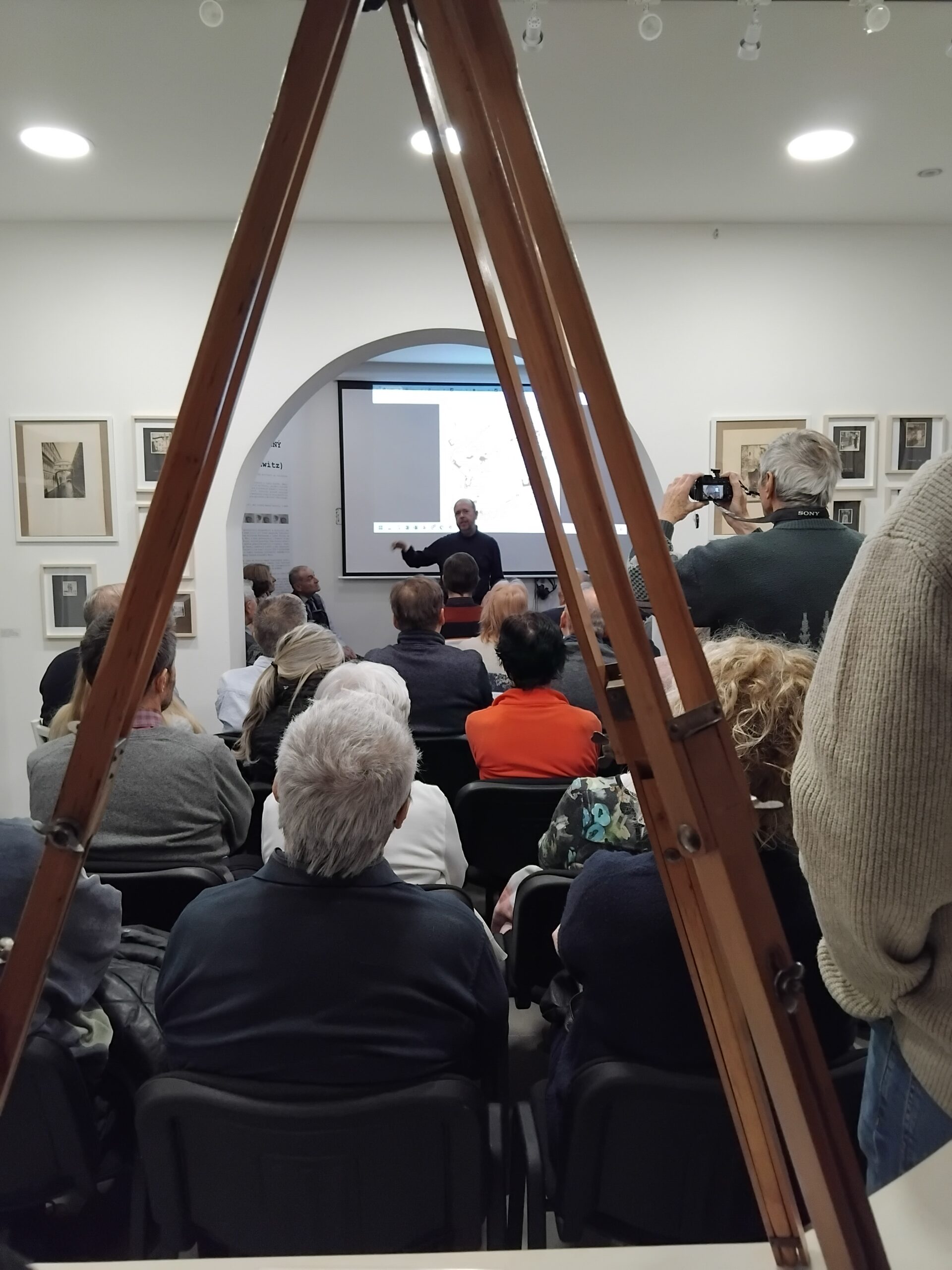
Before world fame. Obituaries for Franz Kafka and the building of literary immortality
In a lecture on Tuesday 11 February about his new book "Vor dem Weltruhm" (Böhlau, Vienna/Cologne 2024) Ines Koeltzsch presented how, through texts, images and the spoken word, famous and unknown authors remembered Franz Kafka immediately after his death. She placed special emphasis on the creation of a Jewish memorial community, to which the painter and Brno native Clara Epstein, among others, contributed.
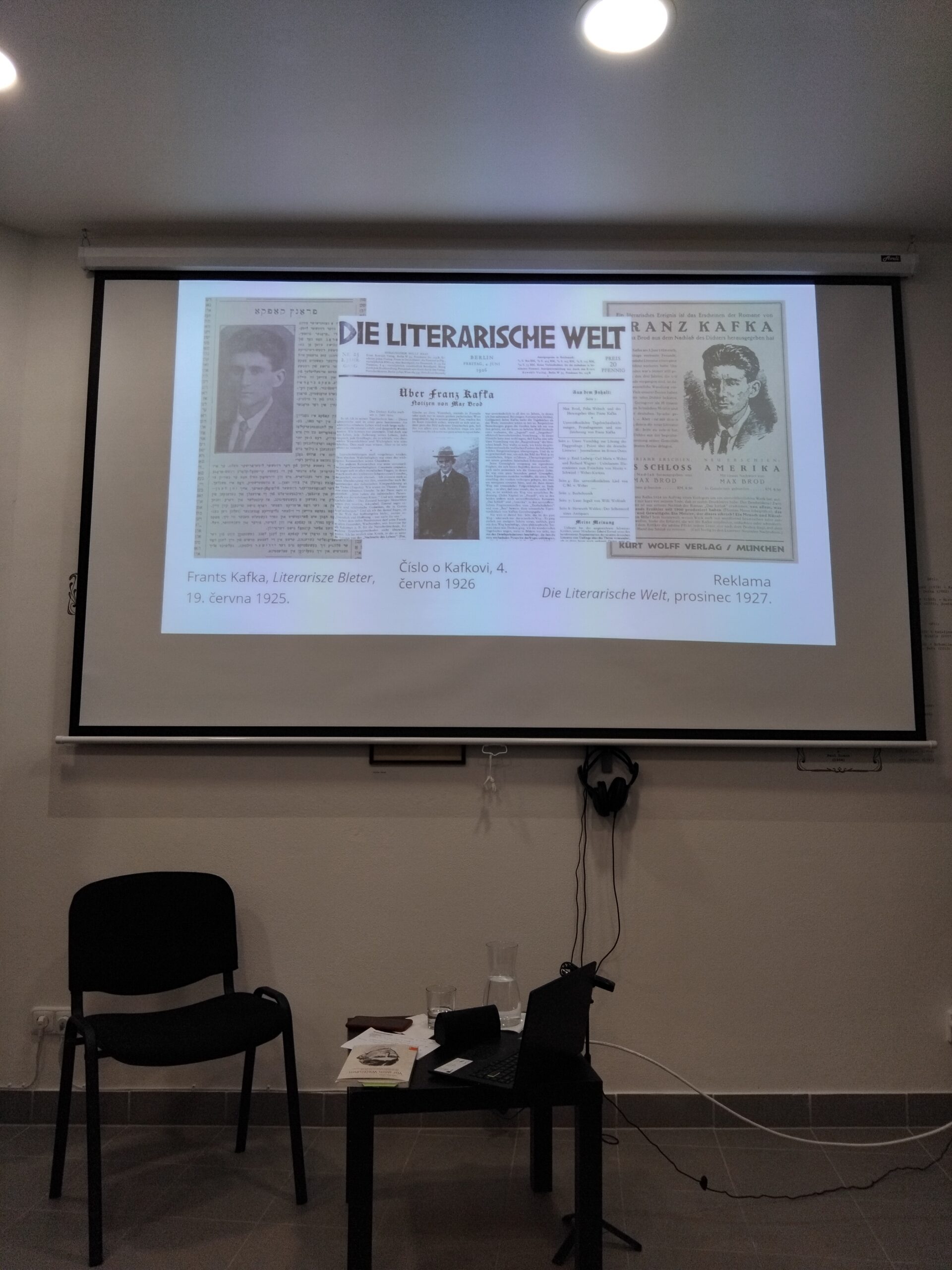
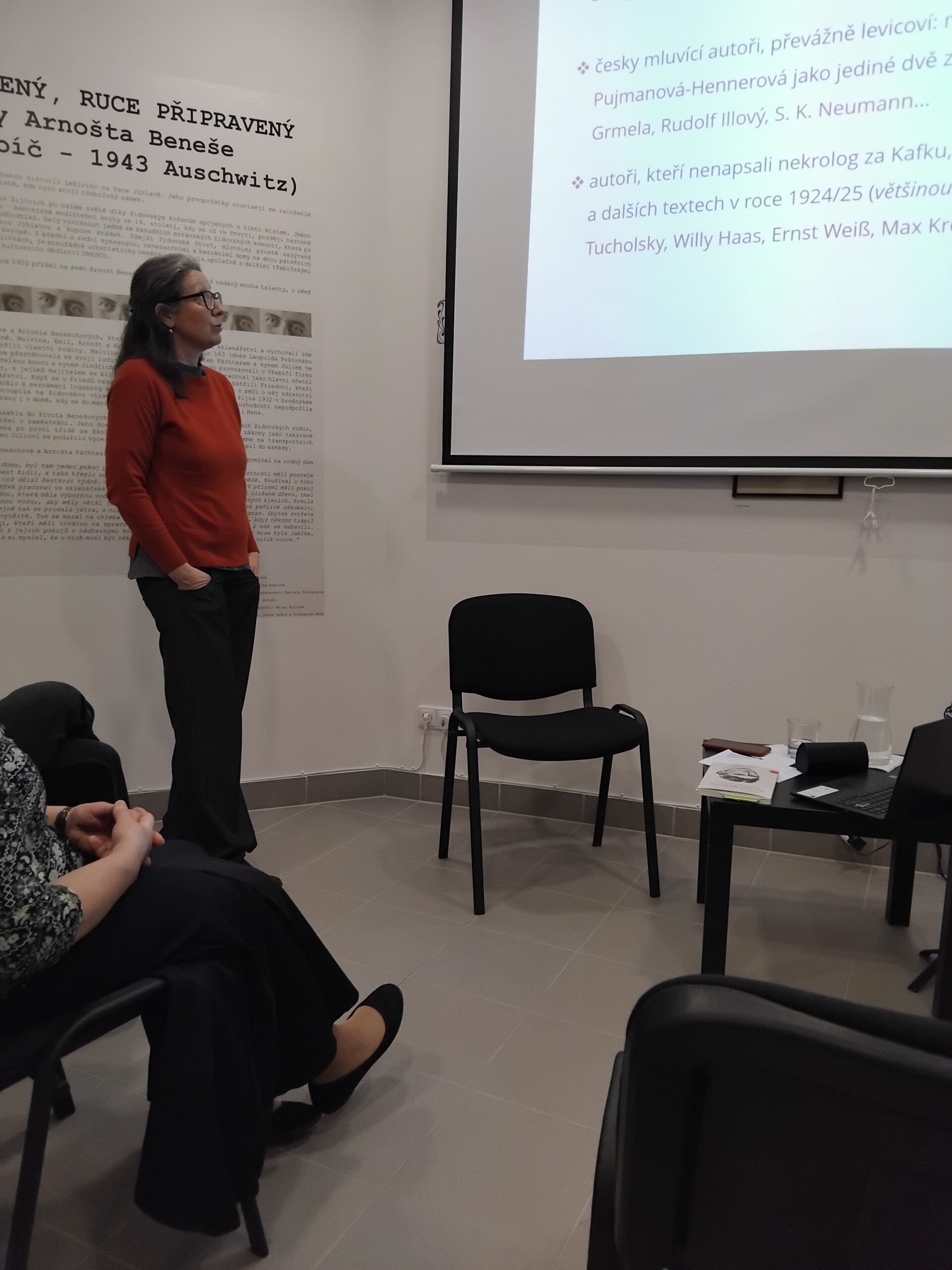
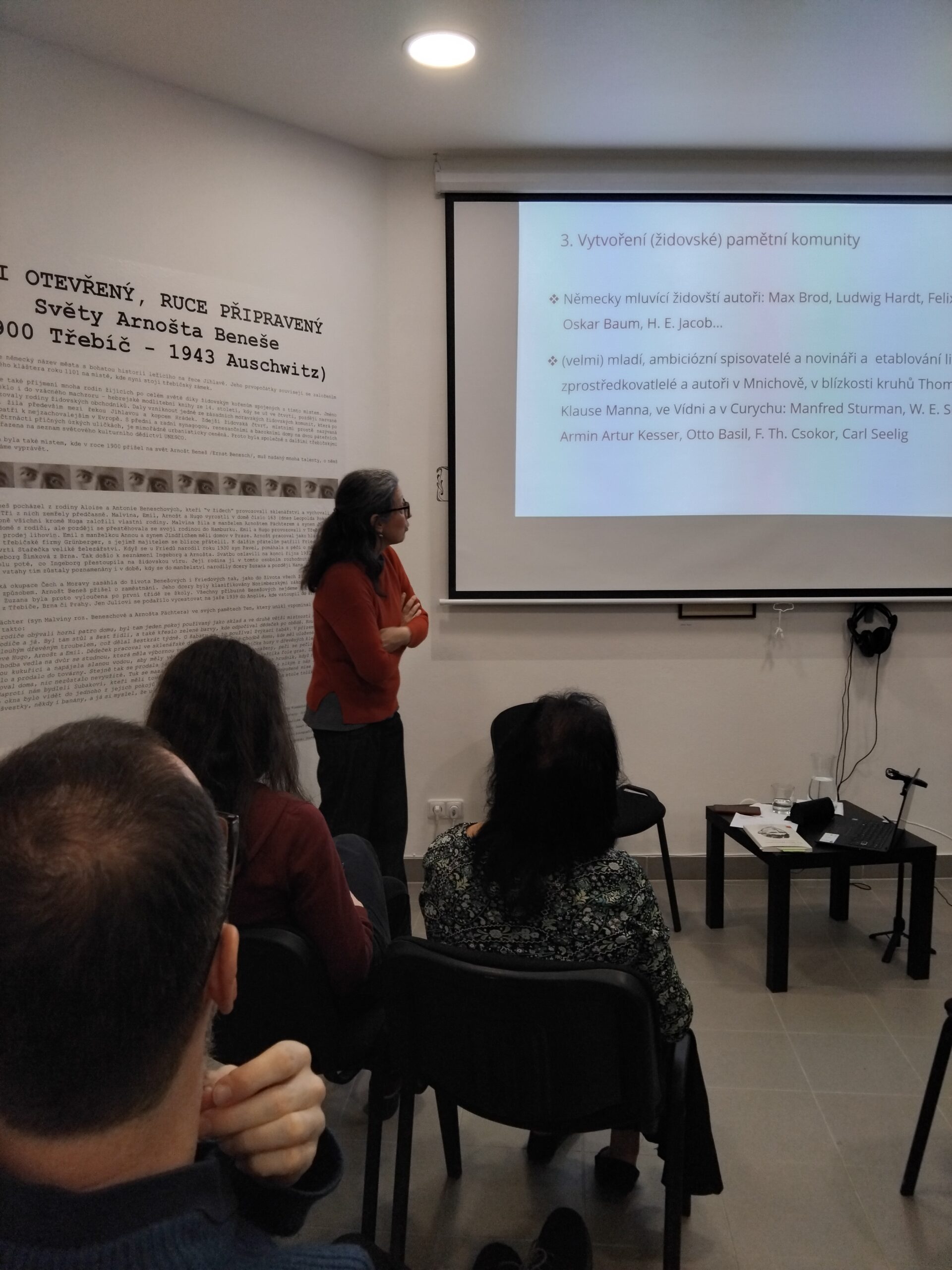
Letter to Alexander
The evening of 30 January 2025 was dedicated to Renata Laxová, a doctor, scientist and university lecturer in the field of child genetics, who was this year awarded the Brno City Award in memoriam in the field of "merit for freedom and democracy". Renata Laxová came from a Jewish family from Brno. She was one of the so-called Winton children. Throughout her life she felt a moral obligation to speak about the Holocaust to young generations and lectured on the subject at American high schools and colleges. She retold her life story in her book Letter to Alexander, which she wrote for her grandson in 2001.
From Wisconsin, USA, we welcomed Mrs. Anita Laxova - the daughter of Mrs. Renata - who came to Brno to receive the award for her mother. After excerpts from the book and excerpts from Renata Laxová's interviews, the attendees could also hear her daughter's direct memory.
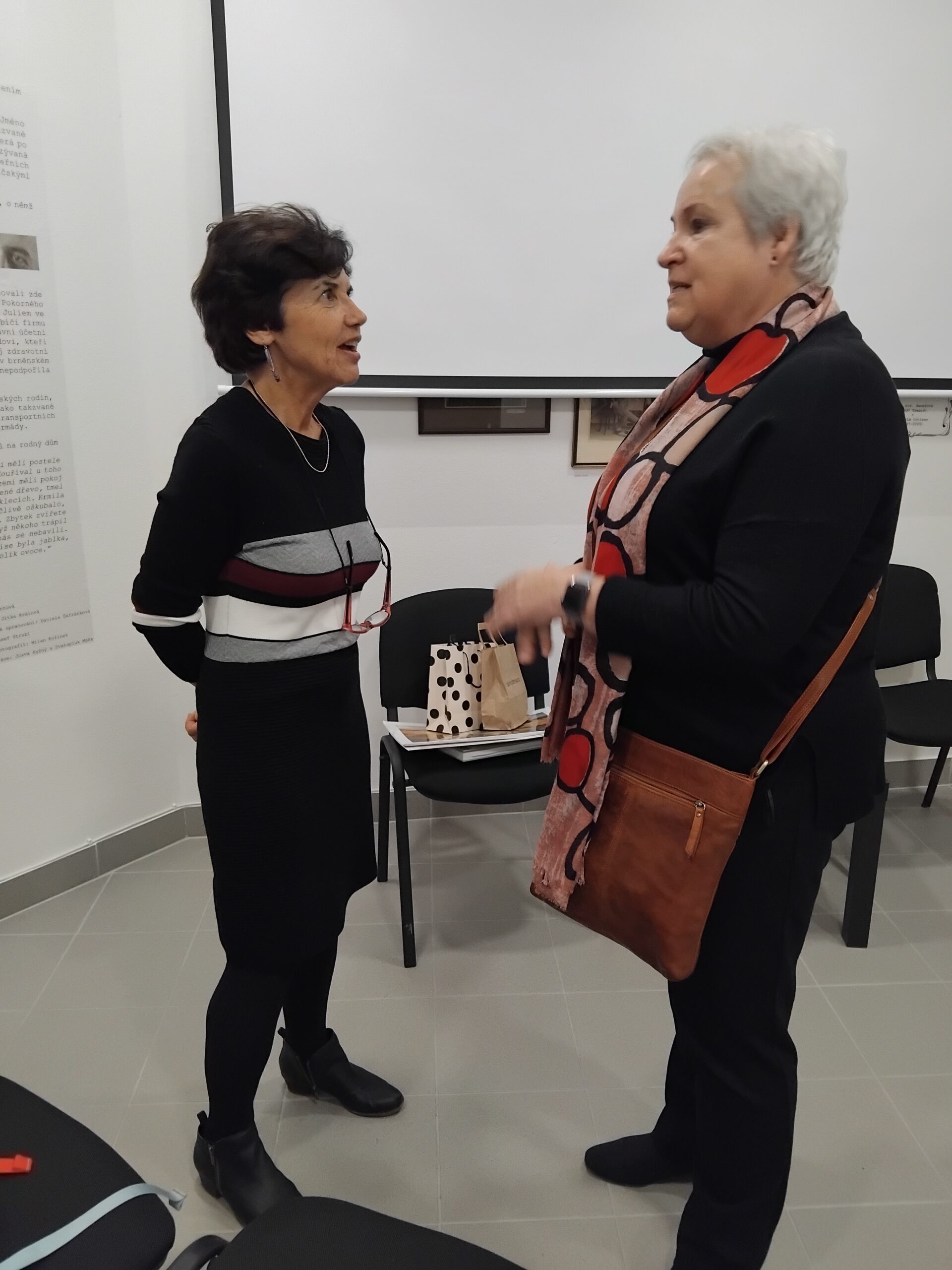
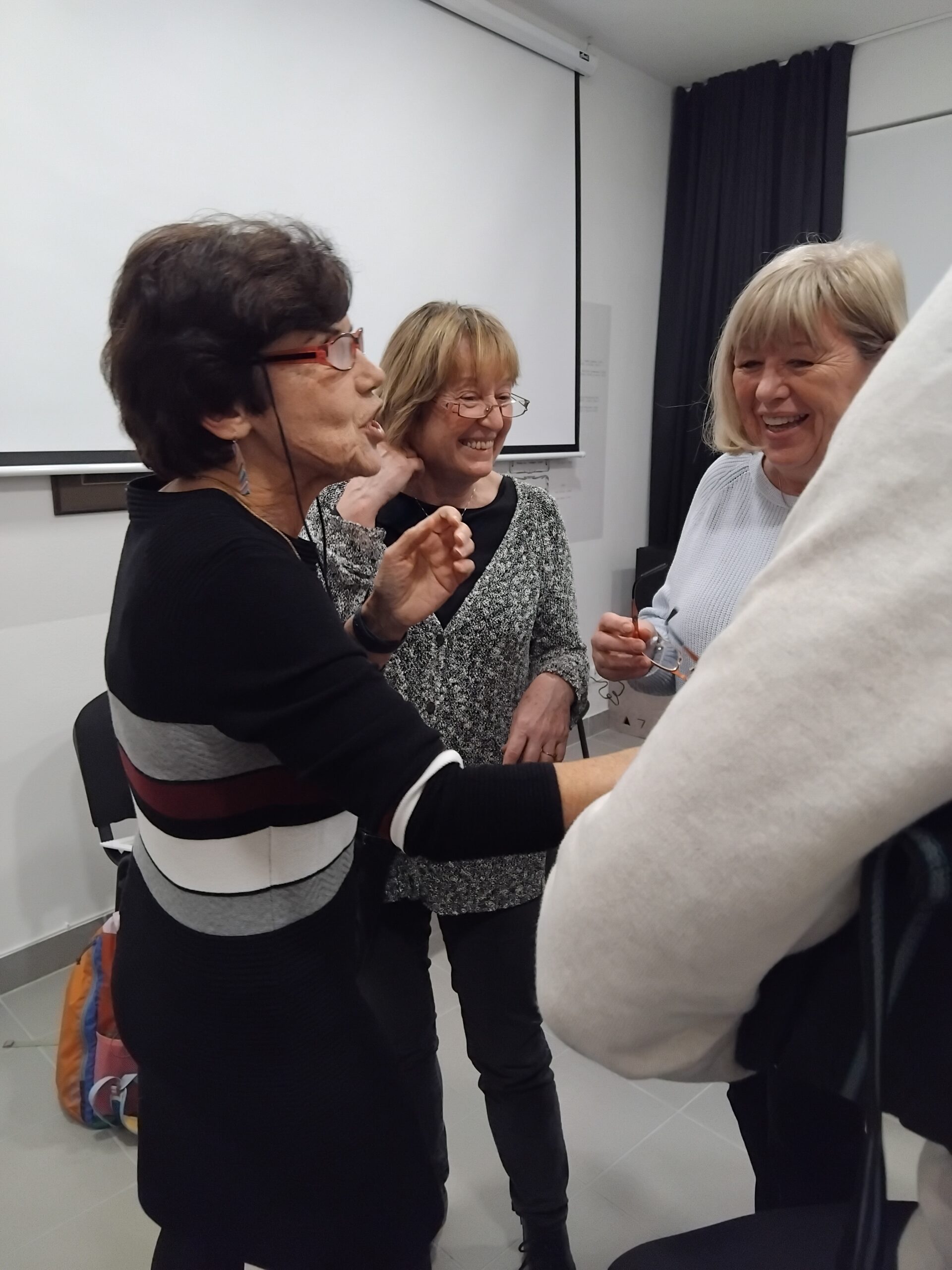
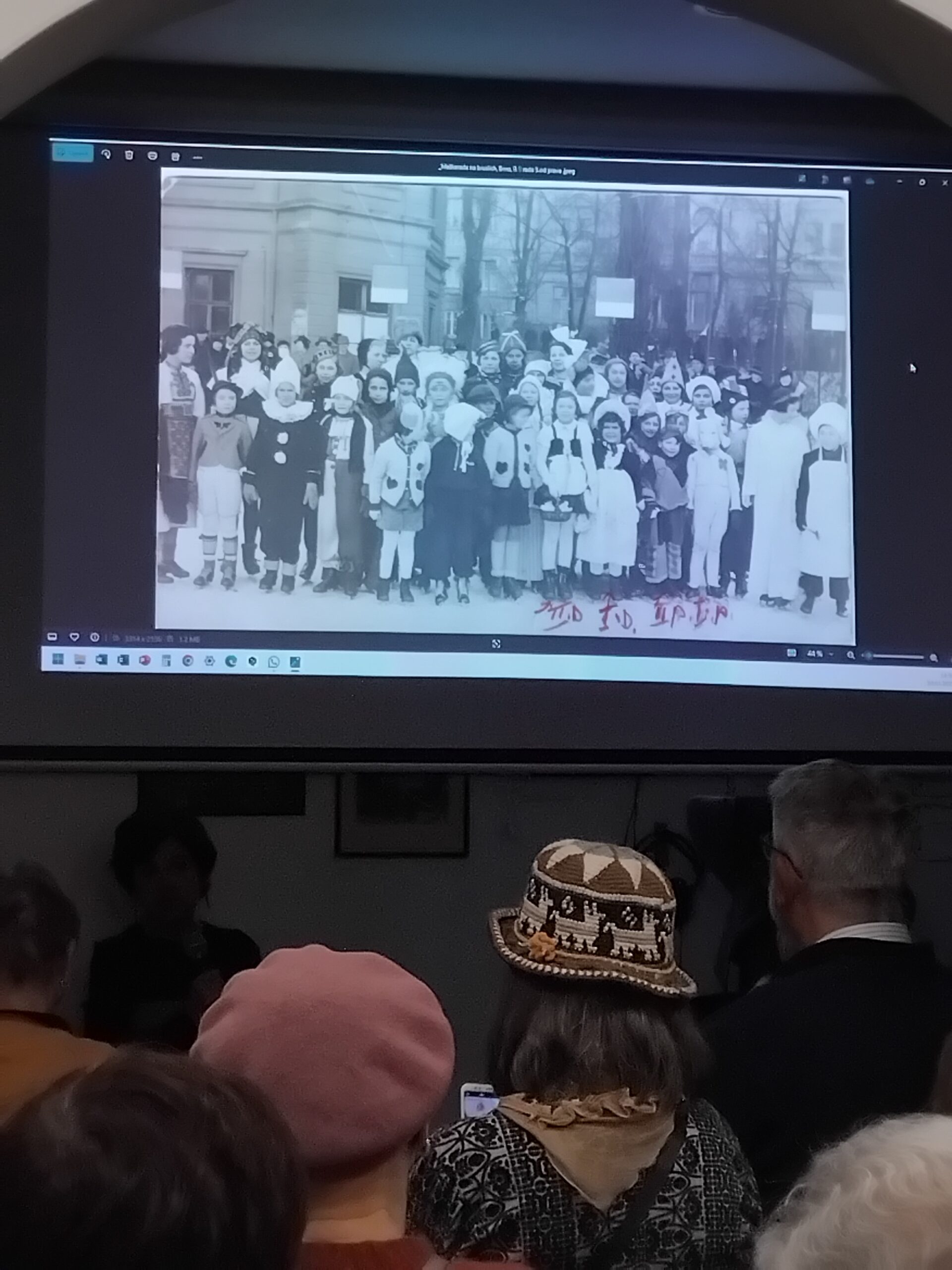
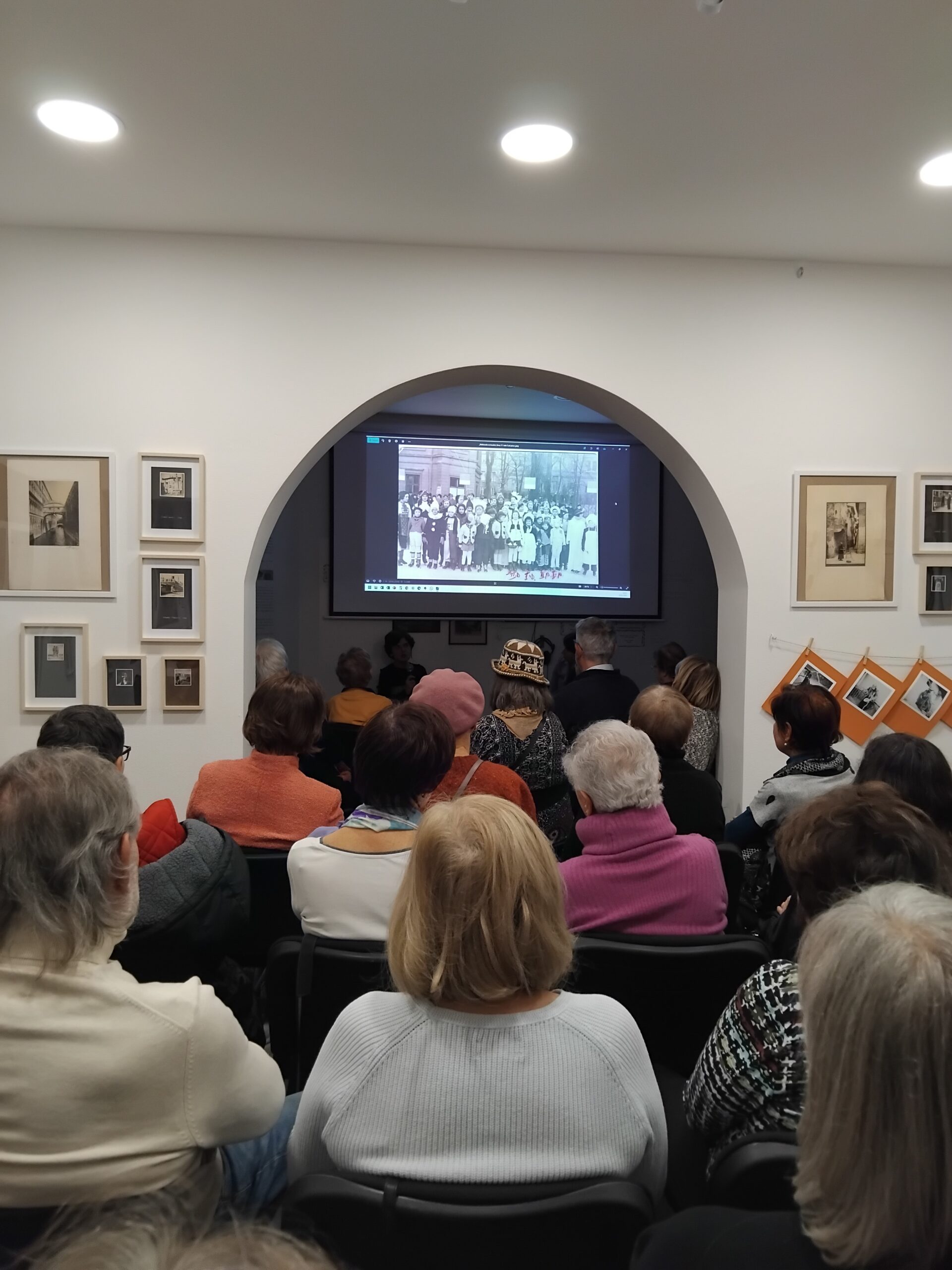
Jewish surnames as a trace of their life and culture
What is a surname, why do we have them, where did they come from, what do they reveal...
We very much appreciate the visit of Professor Emeritus of Masaryk University Prof. Rudolf Šrámekwho, despite his old age, has not lost his professional erudition and, accompanied by his daughter, came to Malý Mehrin on 20 January to present a synthesis of his research not only on the Brno Jewish cemetery...
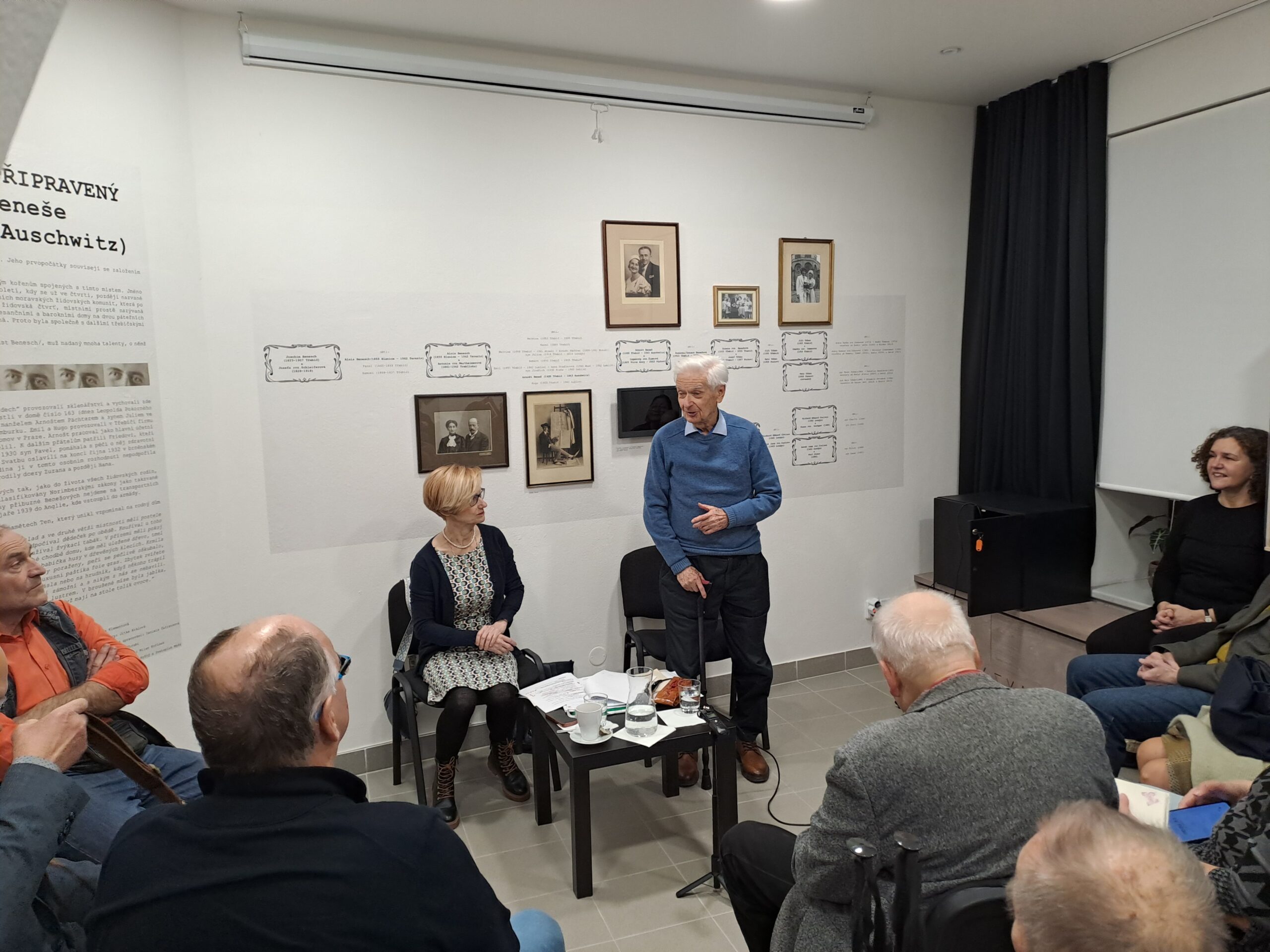
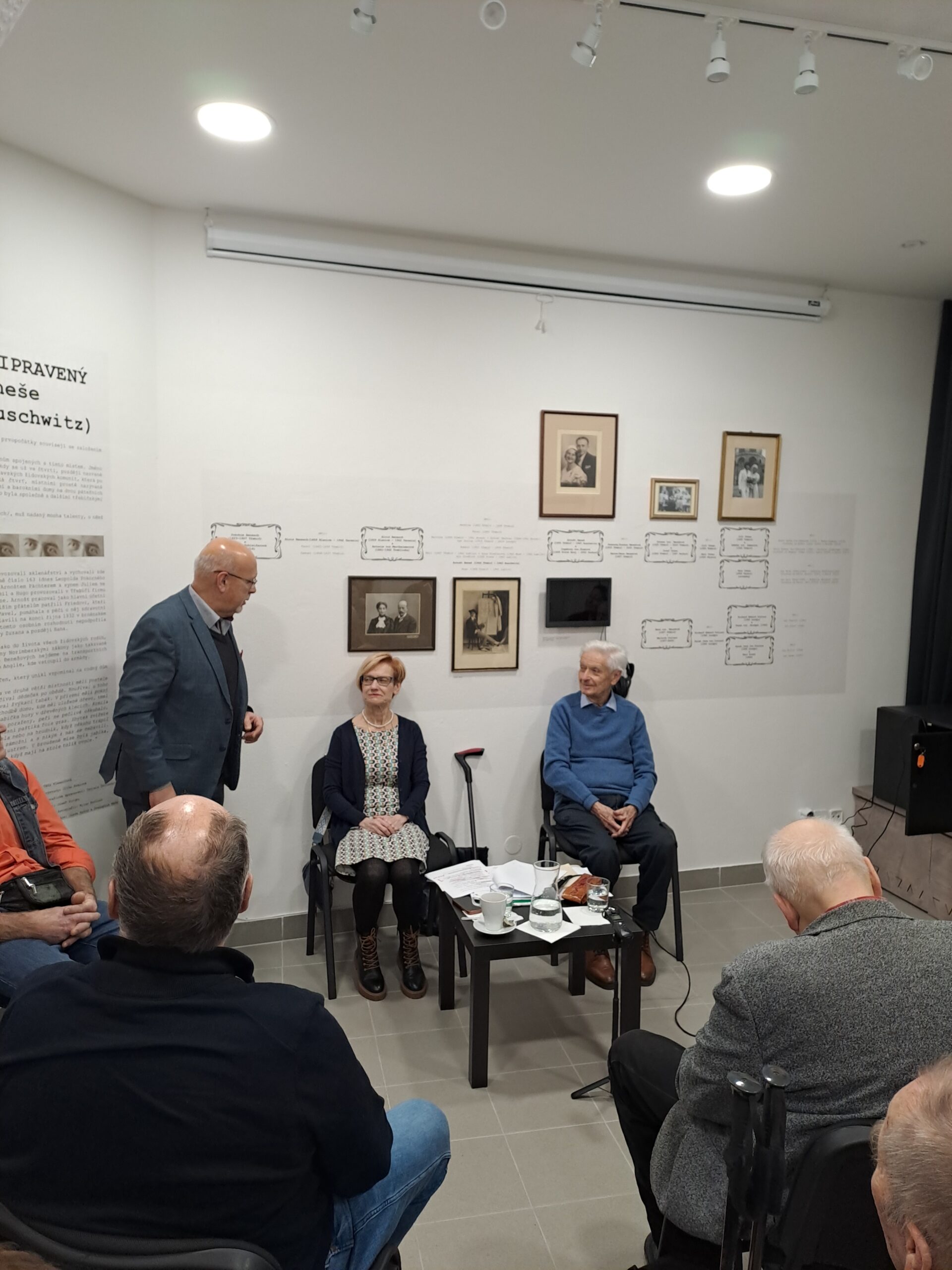
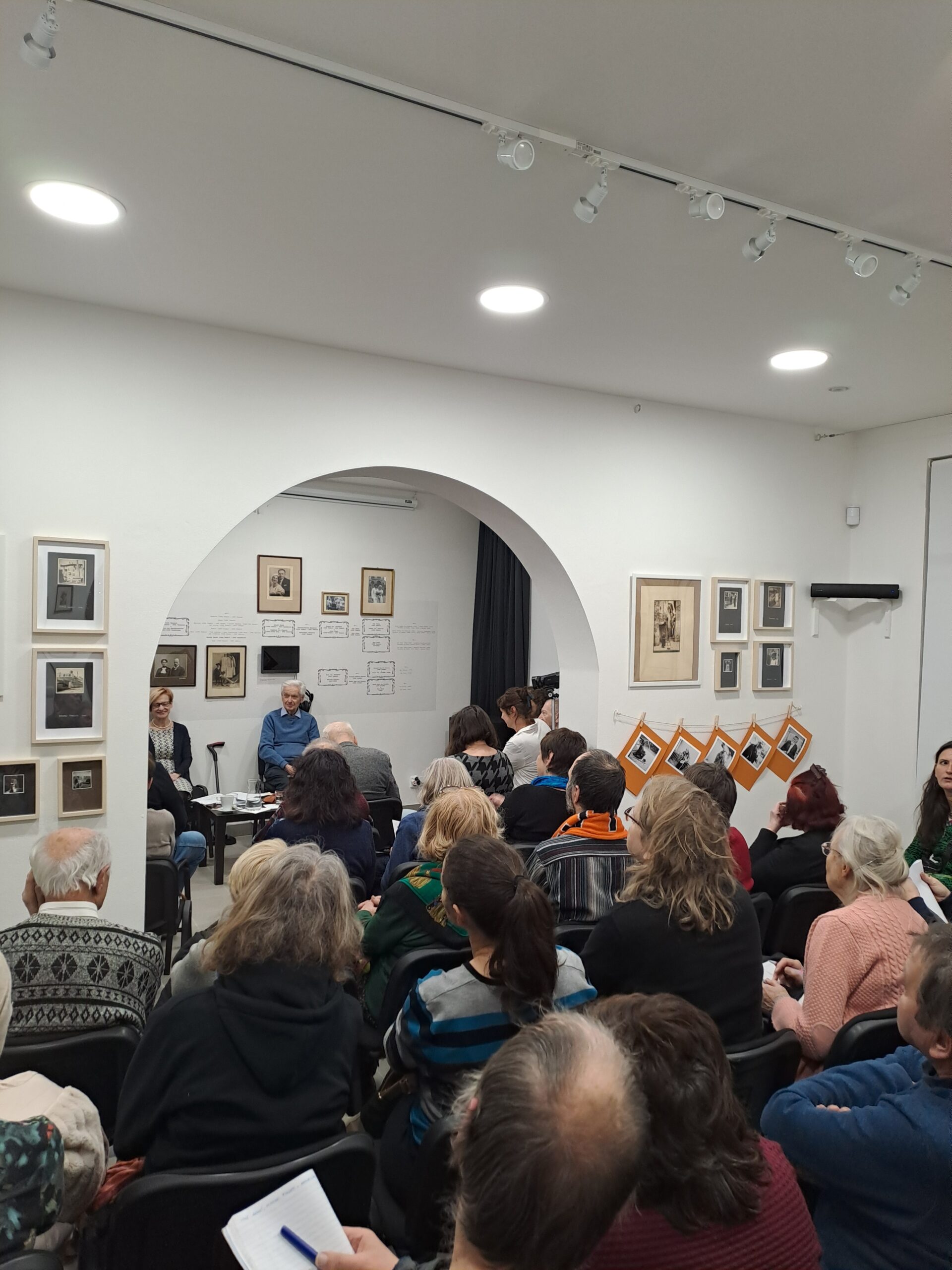
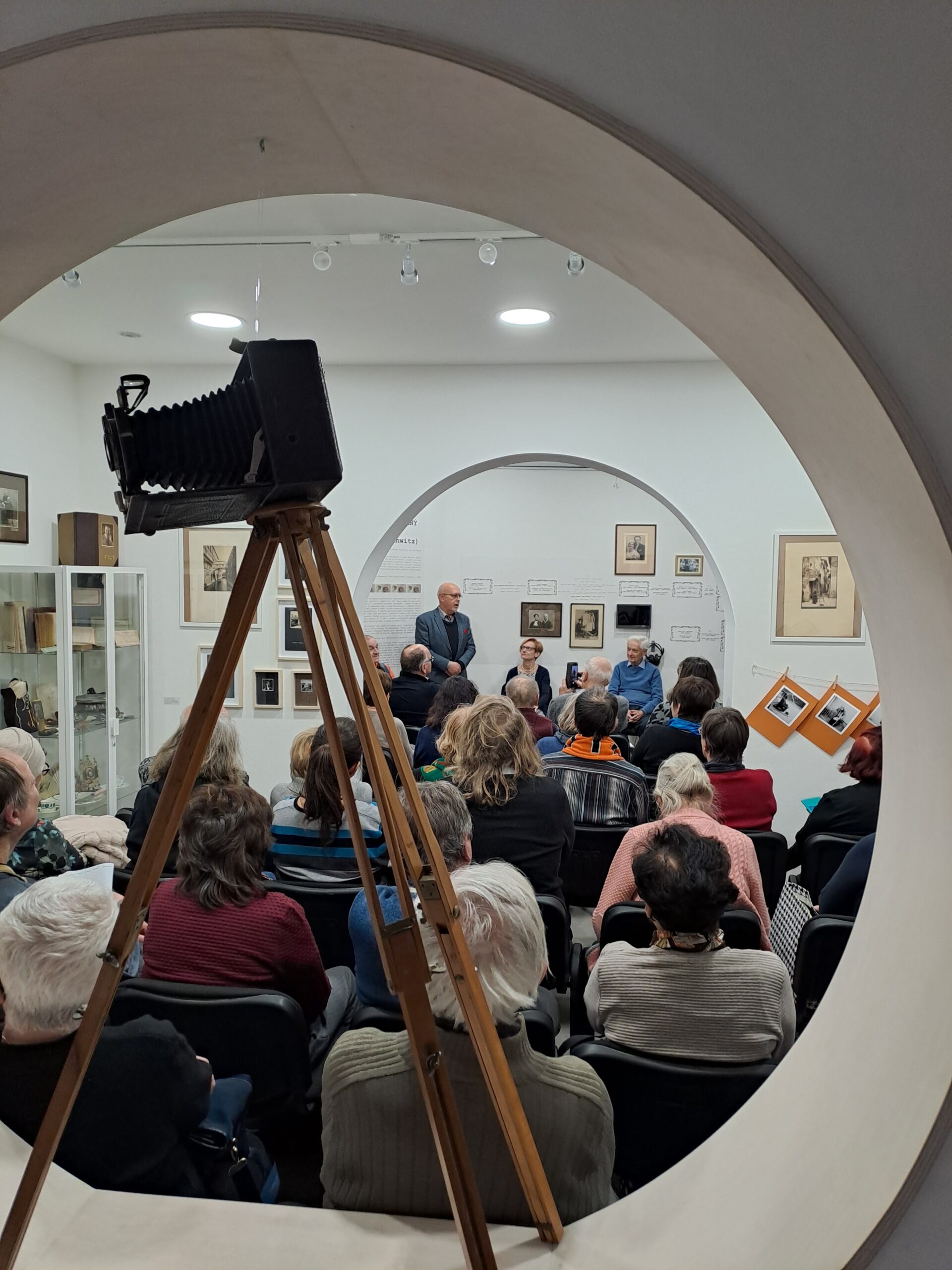
Eyes open, hands ready. The Worlds of Arnošt Beneš (1900 Třebíč-1942 Auschwitz) - Exhibition opening 3 January 2025
Immediately after the New Year, in the presence of the extended family of Arnošt Beneš's grandchildren, who, like many others, were not allowed to develop the talents he possessed, we inaugurated an exhibition of his photographs. These are complemented by samples of his filmmaking work, when he was the first resident of Trebic to buy an 8mm camera and film, taking into account the trends of the time, everything around him, especially his loved ones. He also excelled in handicraft skills, and the exhibition includes furniture he made for dolls and a preserved photograph of a wardrobe wall he made for their family villa. We especially appreciate the loan of many family artifacts, which have survived thanks to an ingenious hiding place under the stairs in their house that has not been revealed. Come along - the exhibition closes on Sunday 30 March.
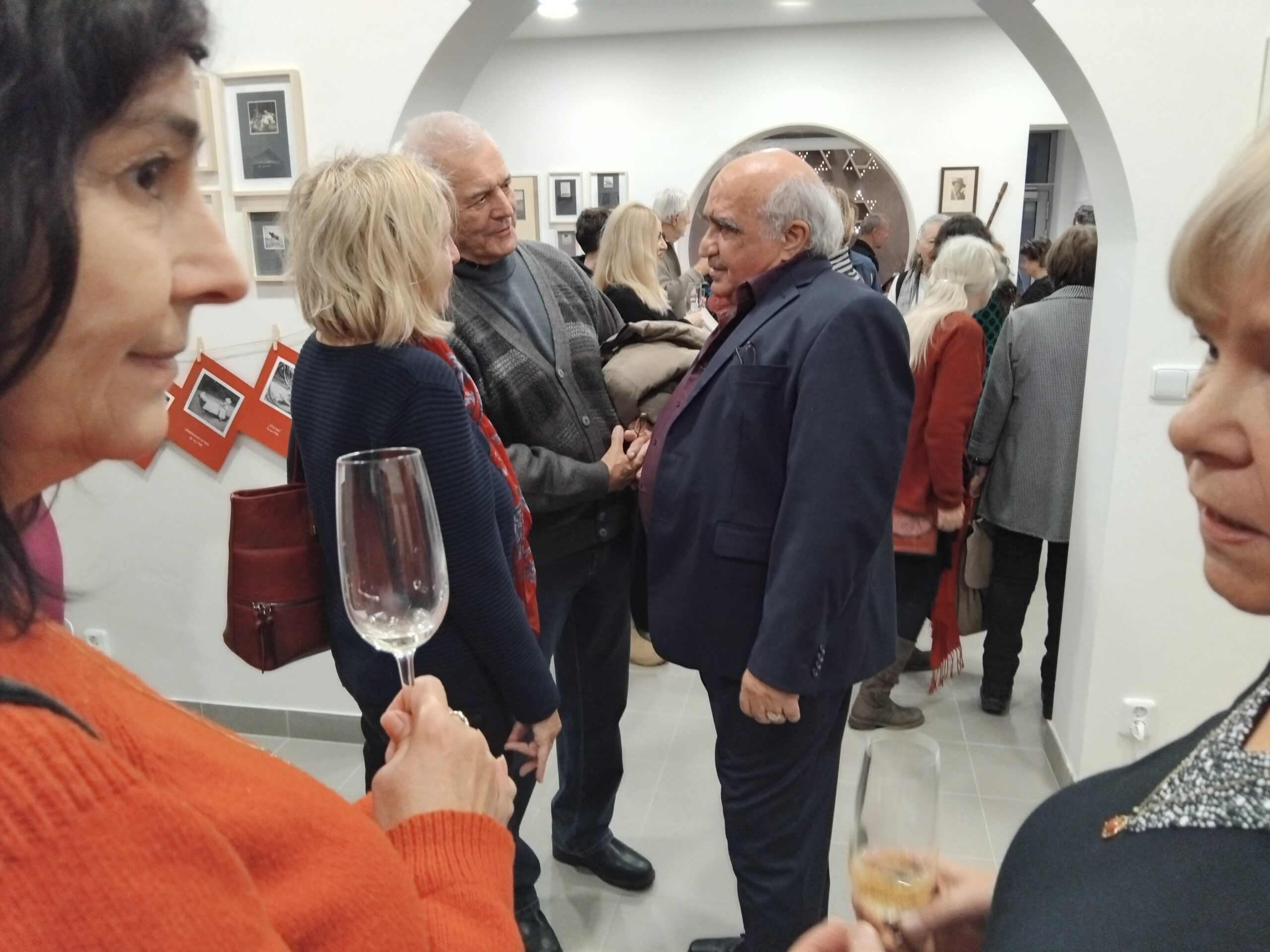
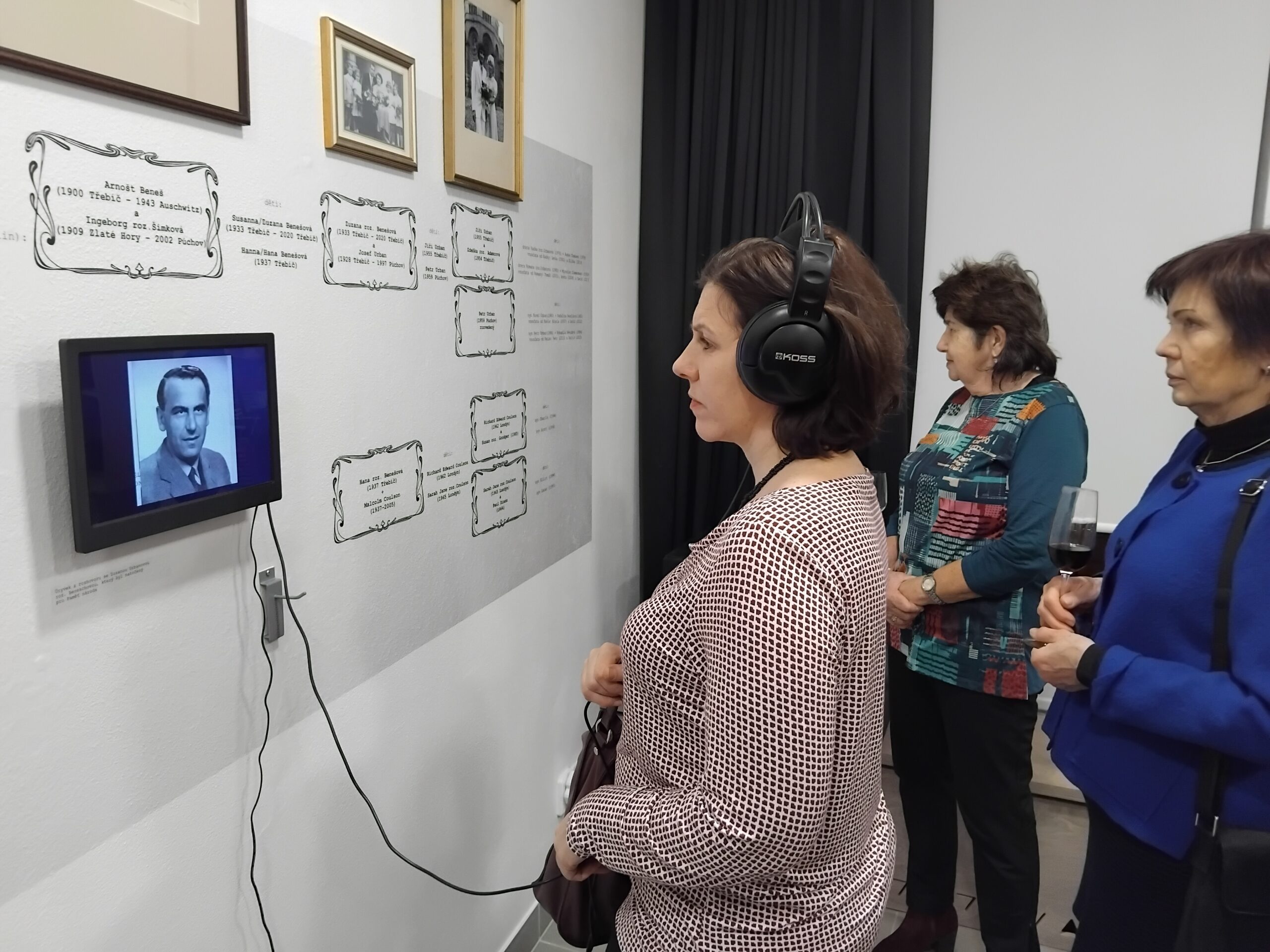
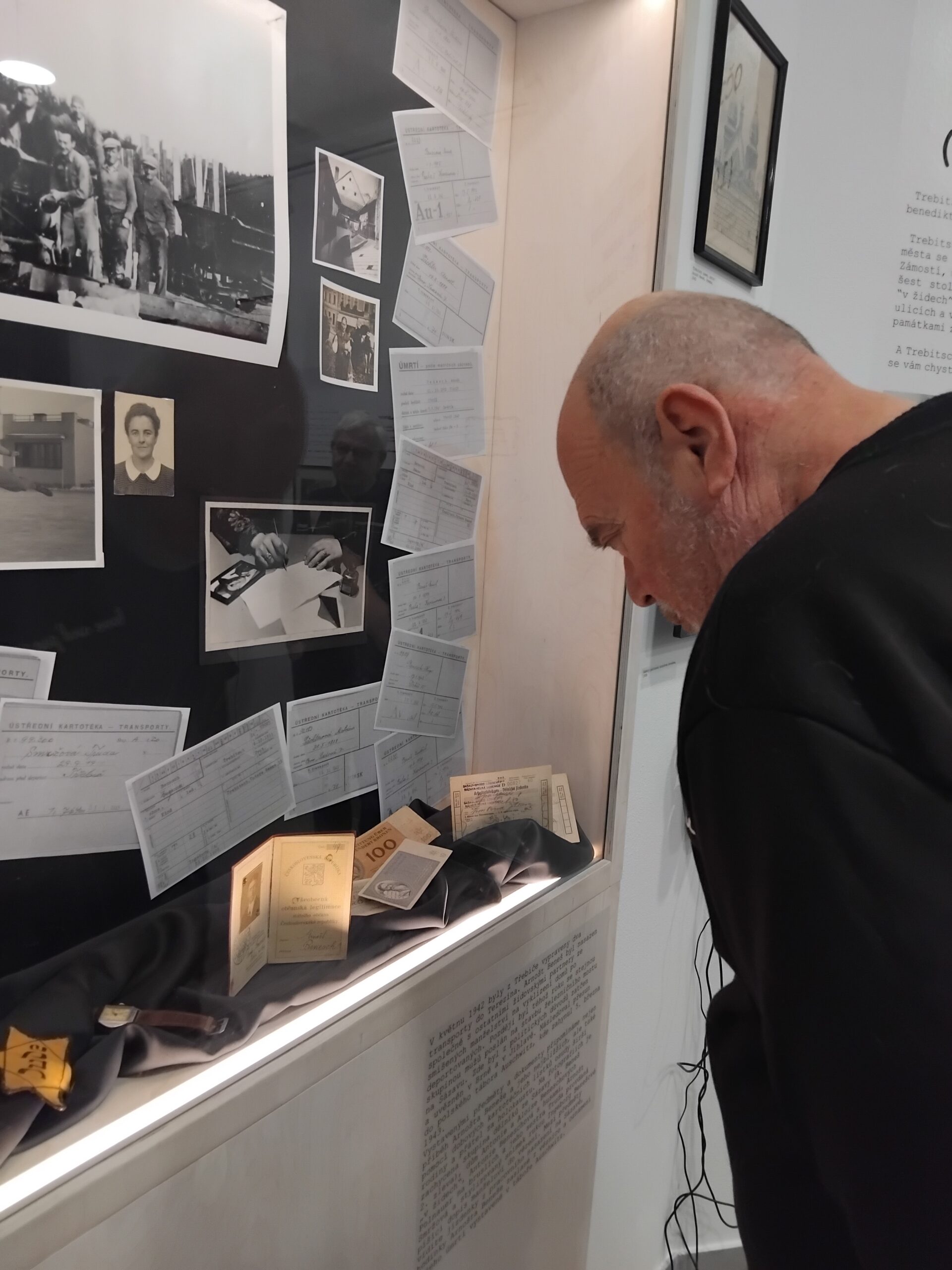
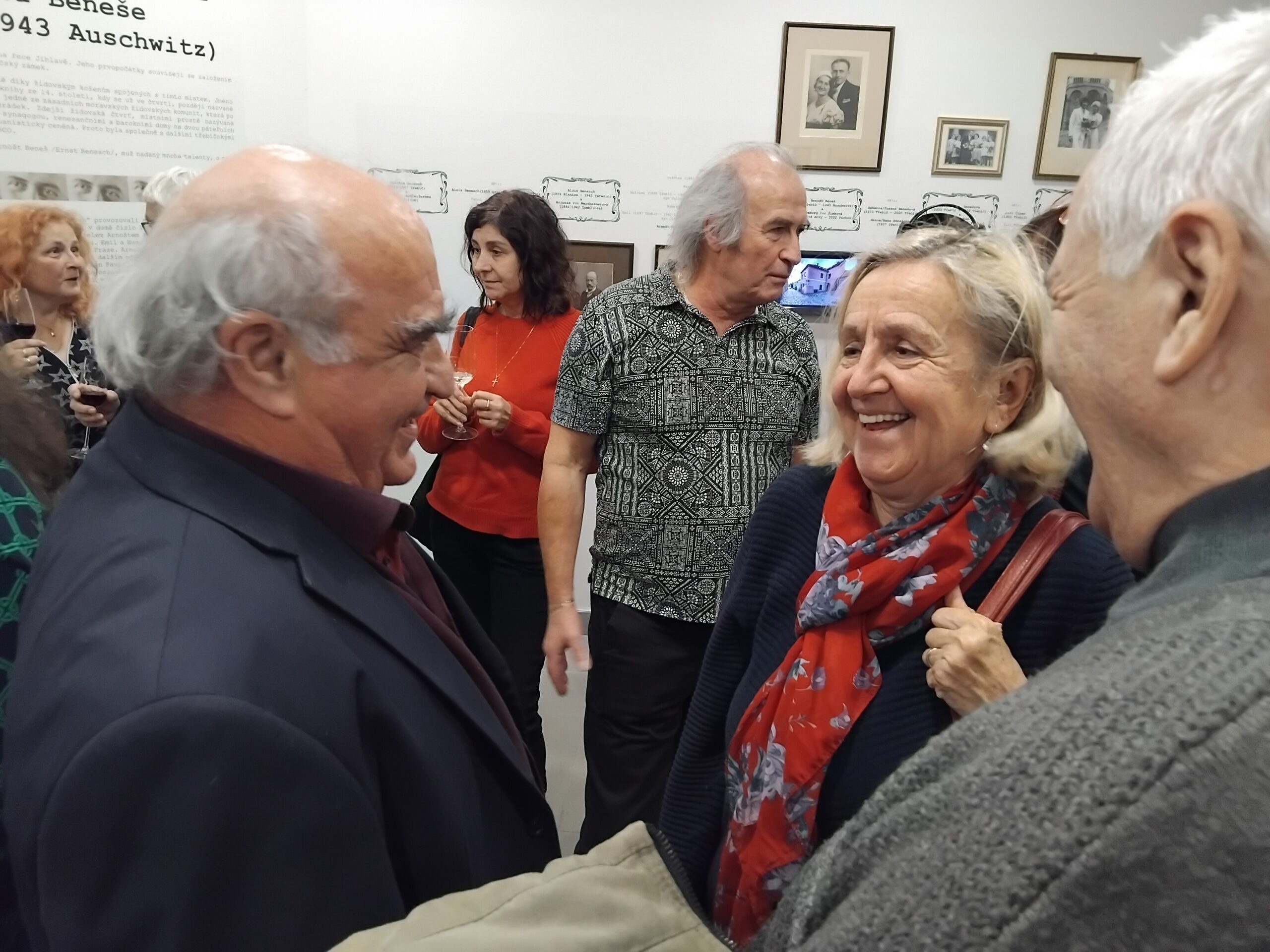
From the depositories of the Terezín Memorial...
We are very pleased that Tomáš Raichl, the custodian of the Terezín Memorial's depositories, accepted our invitation to the December lecture. We wanted to put into context for our visitors the exhibition of drawings by Gisela Rottonara, which was held in our premises until 19 December. We called it Pictures from Terezín 1942-1943 - Cartoon diary of Gisela Rottonara (1873-1943). These are drawings made by a Viennese painter, almost 70 years old, after her deportation to Terezín. She depicted her impressions, the corners of Terezín and the faces of the people. Tomáš Raichl's lecture then revealed to those present the enormous breadth and spectrum of what was created in Terezín.
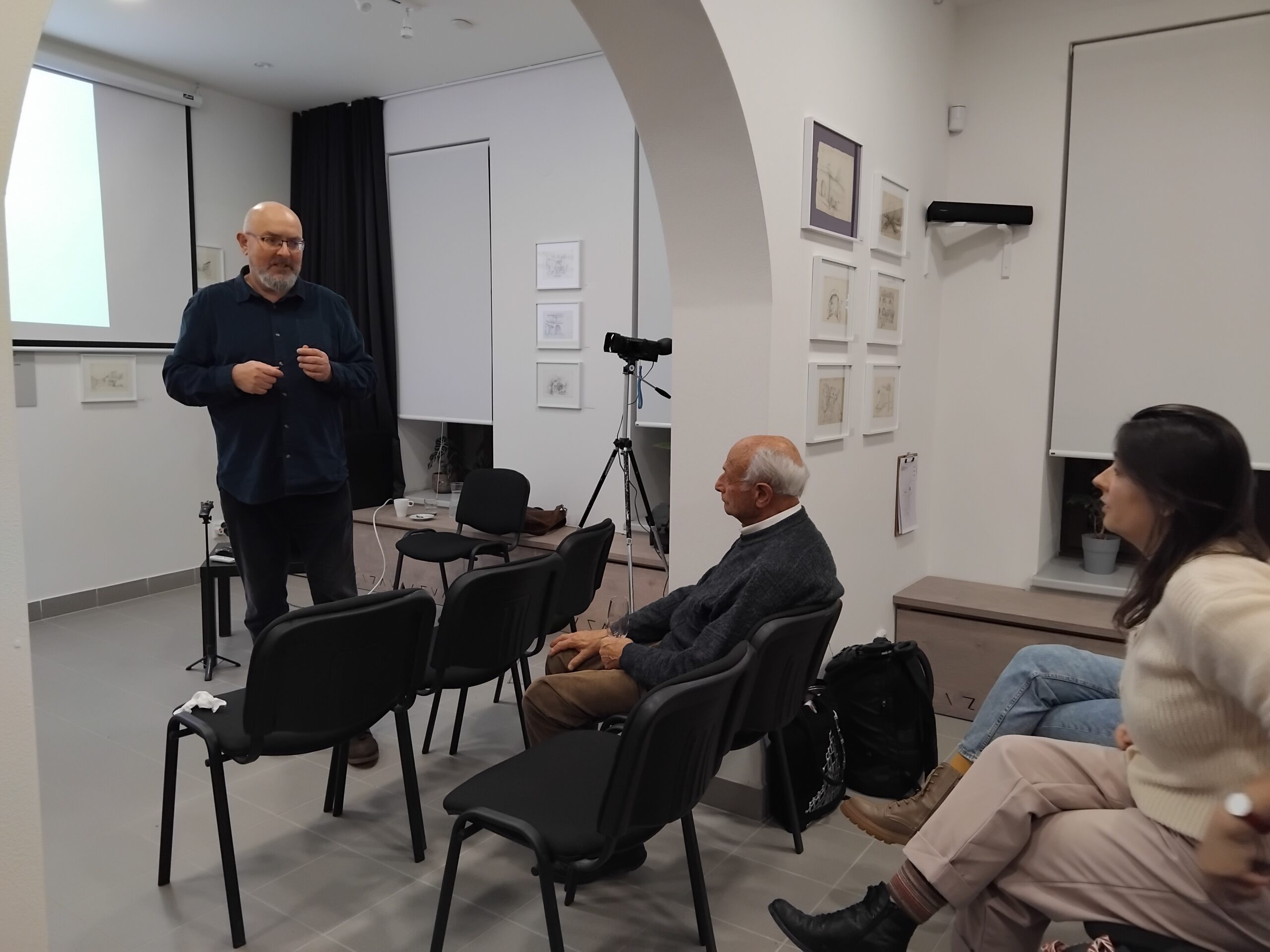
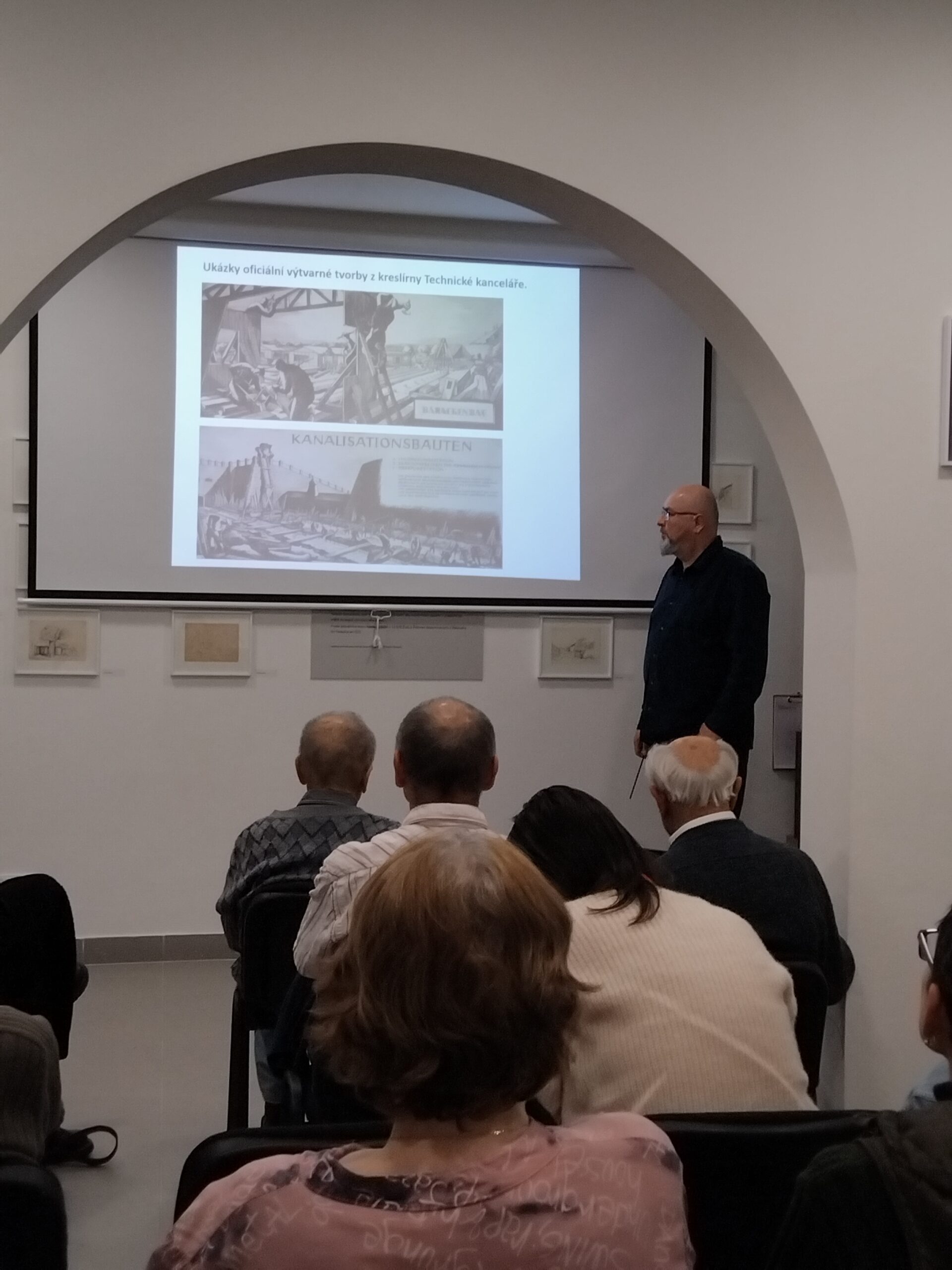
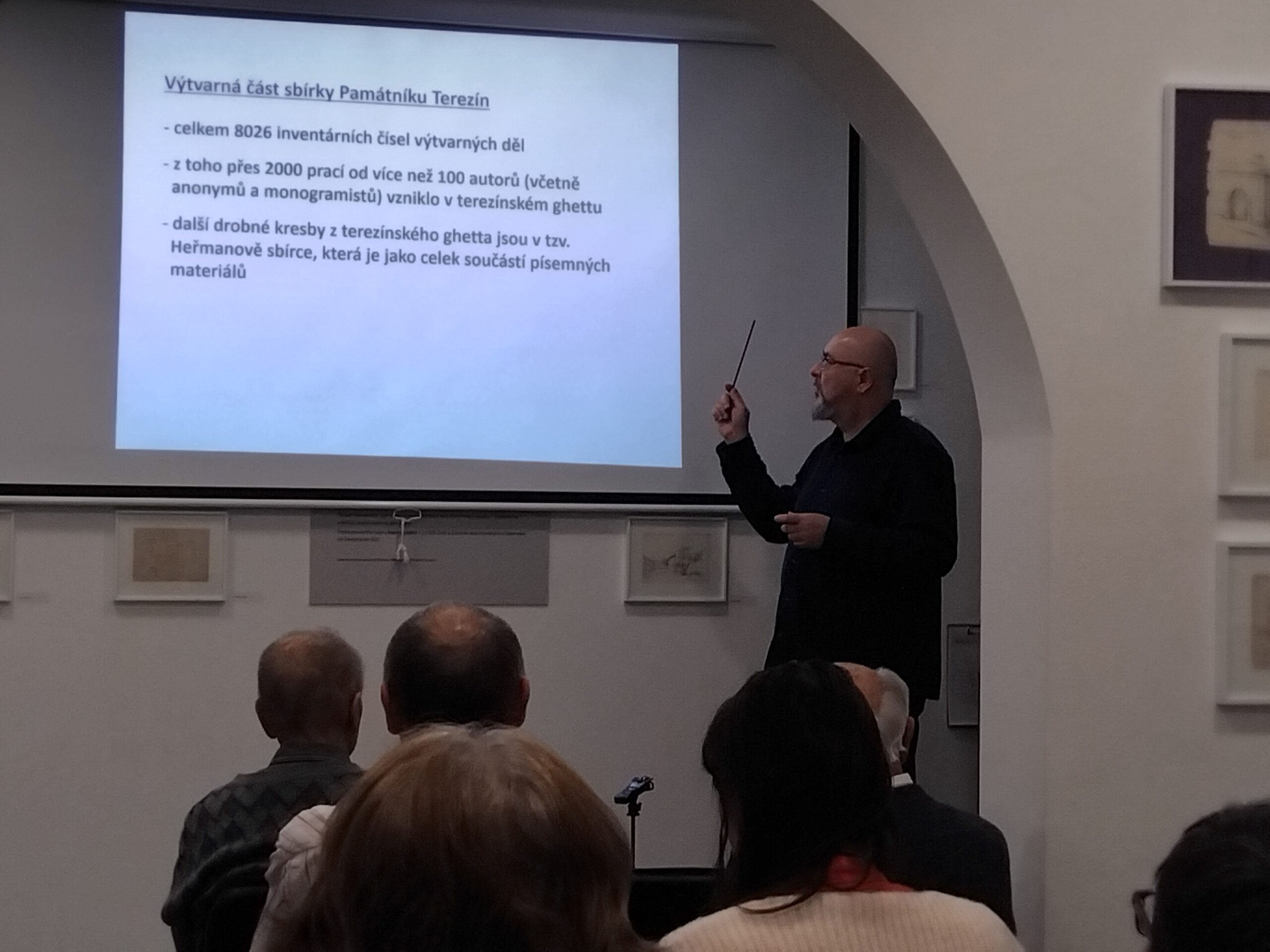
From the depositories of the Terezín Memorial...
We are very pleased that Tomáš Raichl, the custodian of the Terezín Memorial's depositories, accepted our invitation to the December lecture. We wanted to put into context for our visitors the exhibition of drawings by Gisela Rottonara, which was held in our premises until 19 December. We called it Pictures from Terezín 1942-1943 - Cartoon diary of Gisela Rottonara (1873-1943). These are drawings made by a Viennese painter, almost 70 years old, after her deportation to Terezín. She depicted her impressions, the corners of Terezín and the faces of the people. Tomáš Raichl's lecture then revealed to those present the enormous breadth and spectrum of what was created in Terezín.



Franz Kafka as a traveller and sportsman
It was not the first time that the journalist Judita Matyášová visited us. On Tuesday, 3 December 2024, she presented the personality of Franz Kafka from a slightly different angle. She drew on her book, which she published with photographer Jan Jindra and which they called Kafka on the Road. It will tempt you to at least flip through it after reading the excerpt of Kafka's text on the front cover: "To sit like this in a railway carriage, to forget, to live as if at home, to suddenly forget, to feel the drifting power of the train, to become a passenger, to take the cap out of the trunk, to behave more freely, more cordially, more emphatically towards fellow passengers, to be carried without merit to the destination, to feel it as a child, to become the darling of women, to succumb to the attractive power of the window, to have at least one hand always extended over the window frame..."
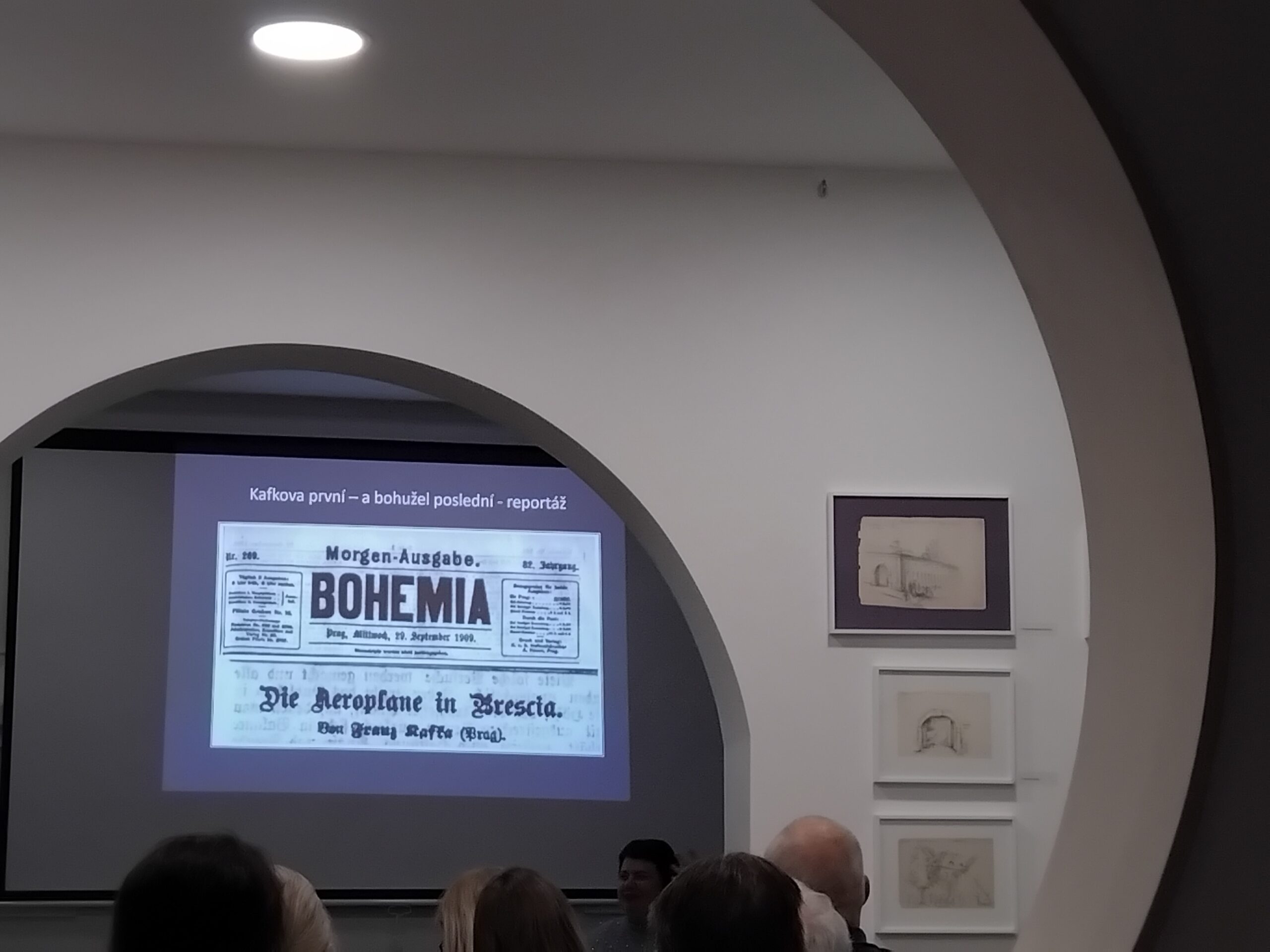
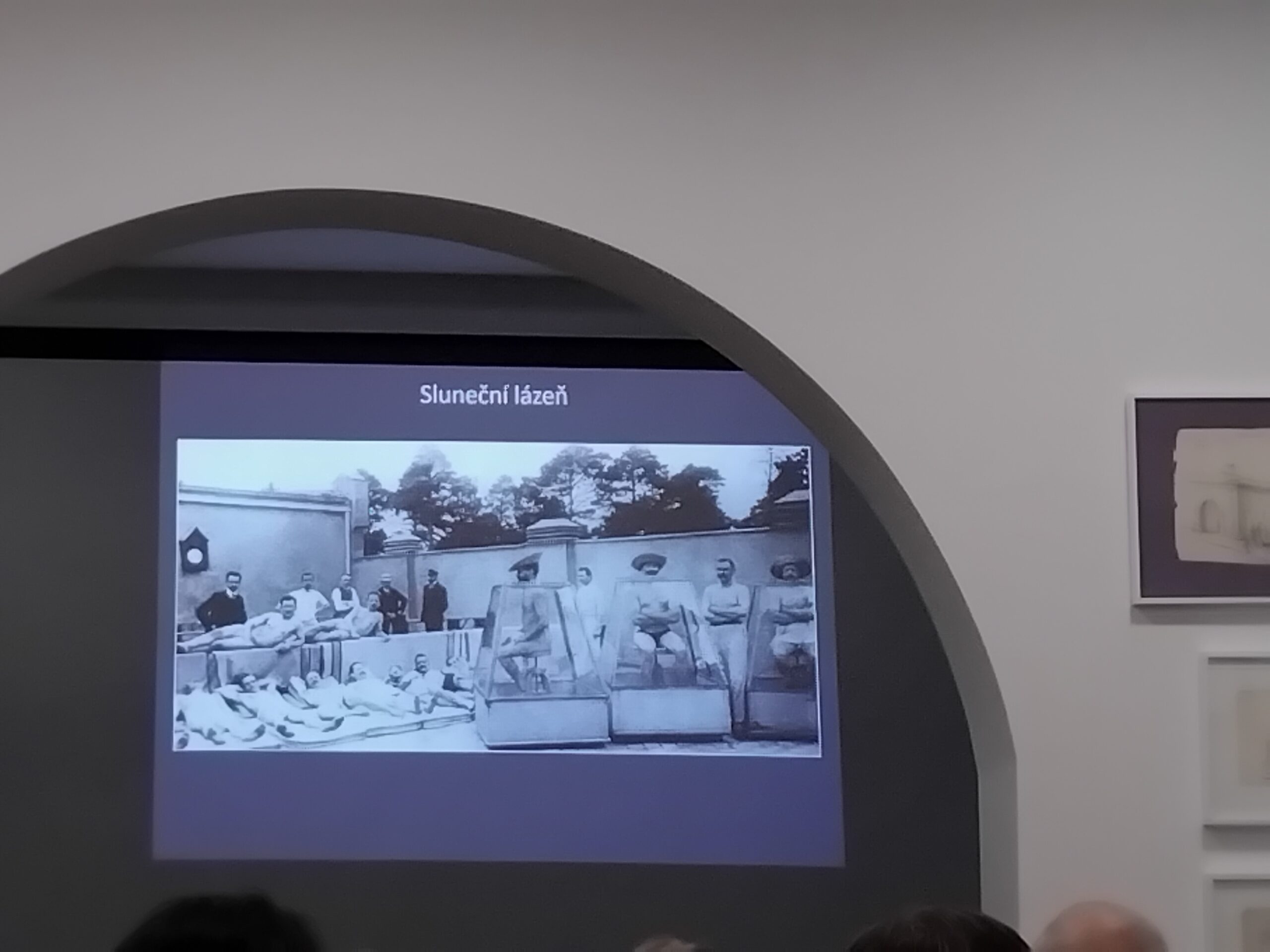
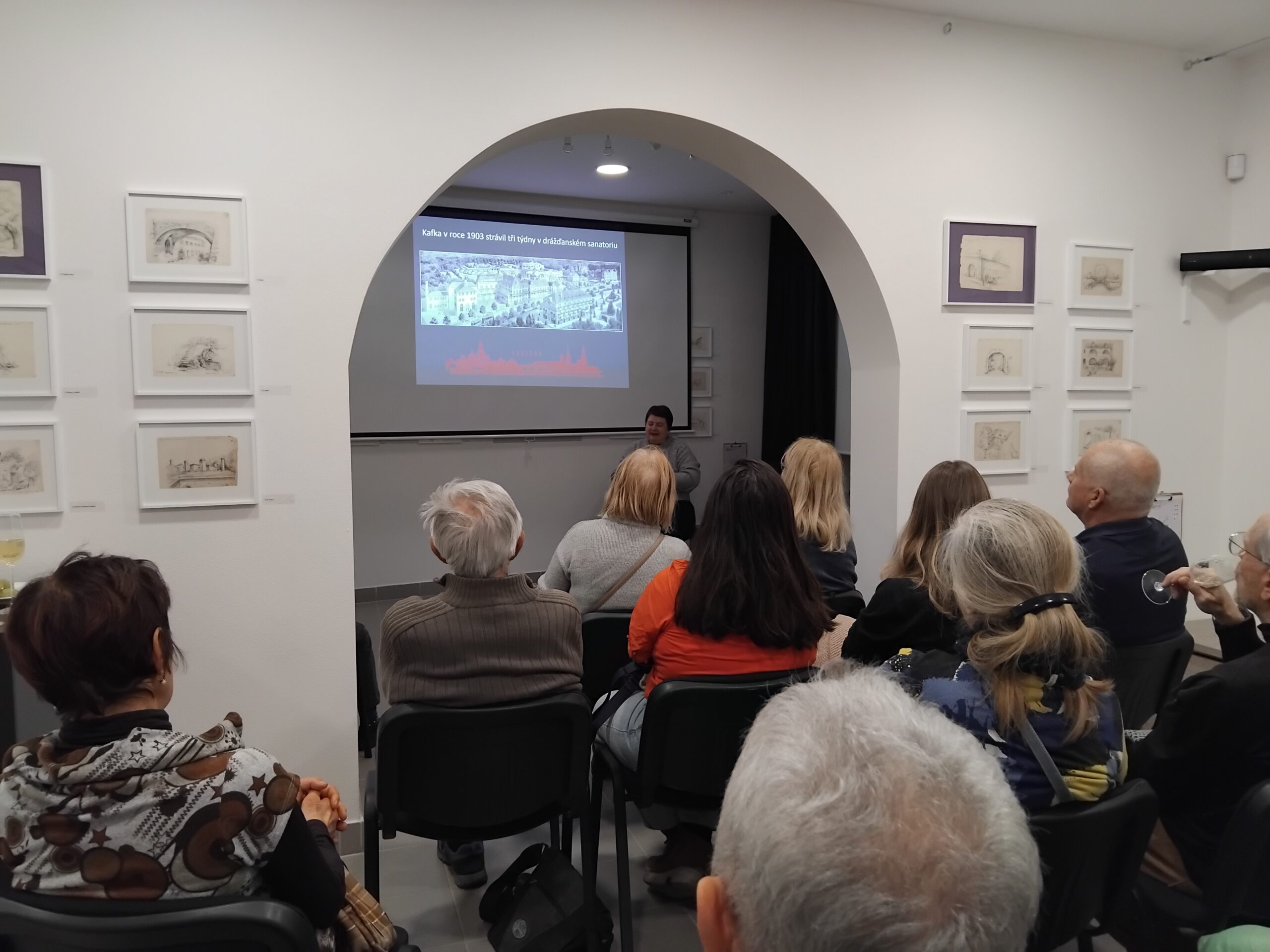
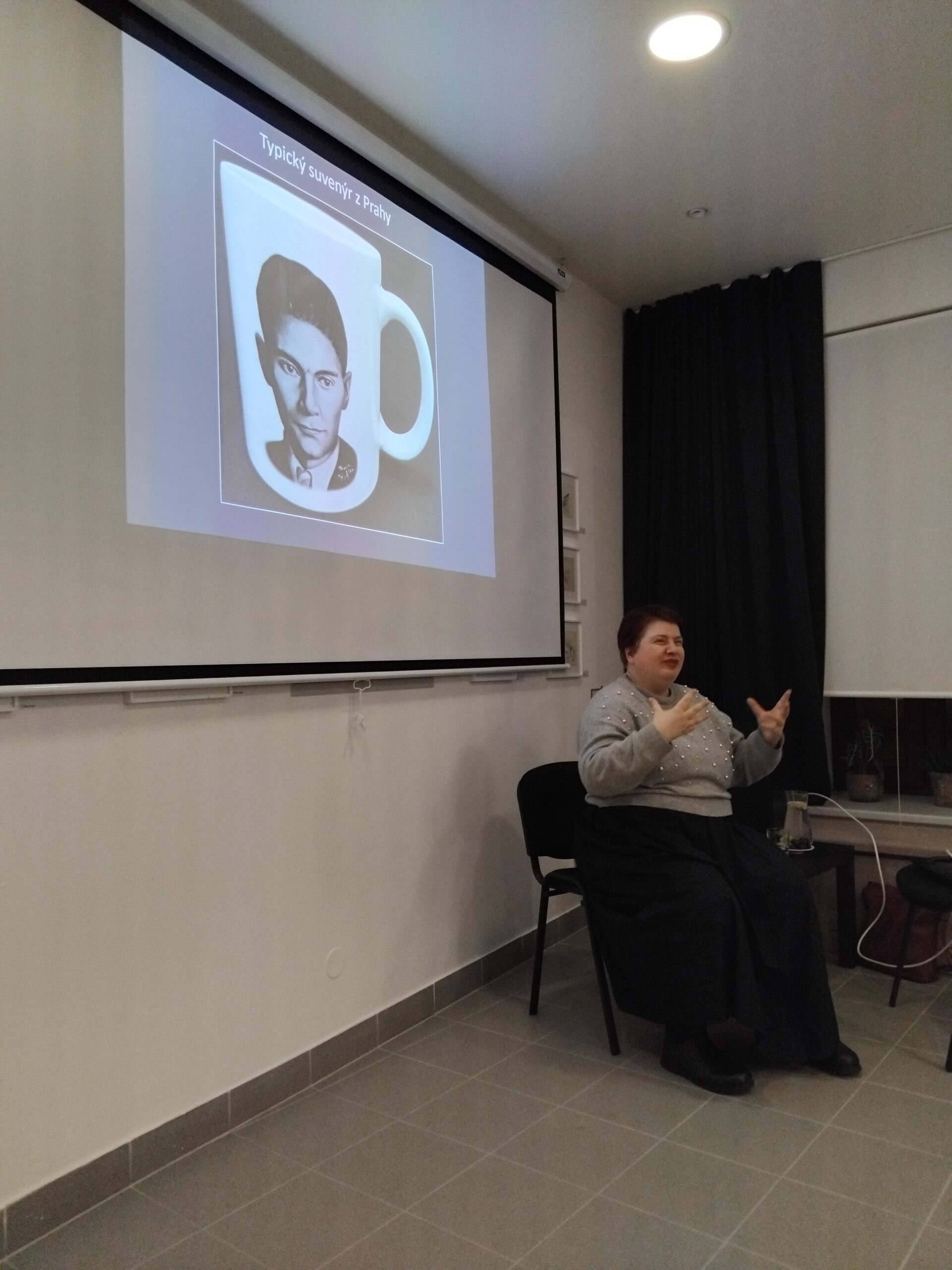
Tantehorse: Invisible I./Hannah
An autobiographical performance about the extraordinary actress and singer Hana Frejková as an archaeology of her personal past
On 27 November 2024, in cooperation with the Brno HaDivadlo, we managed to fulfill one wish - Mrs. Hanka Frejková, who worked out her fate and the story of her family in the book Divný kořeny, wished to present her story to the Brno audience. Her extraordinary life about her unbreakable search for her own place in the world, memories of her childhood and her relationship with her mother, drew the audience into her intimately processed story, which was also created by the expressive creations of dancer Markéta Jandová, which further emphasized the peculiarity of this life story. The long applause and the final discussion with the protagonist confirmed that it was the right decision to offer this performance to the Brno audience.
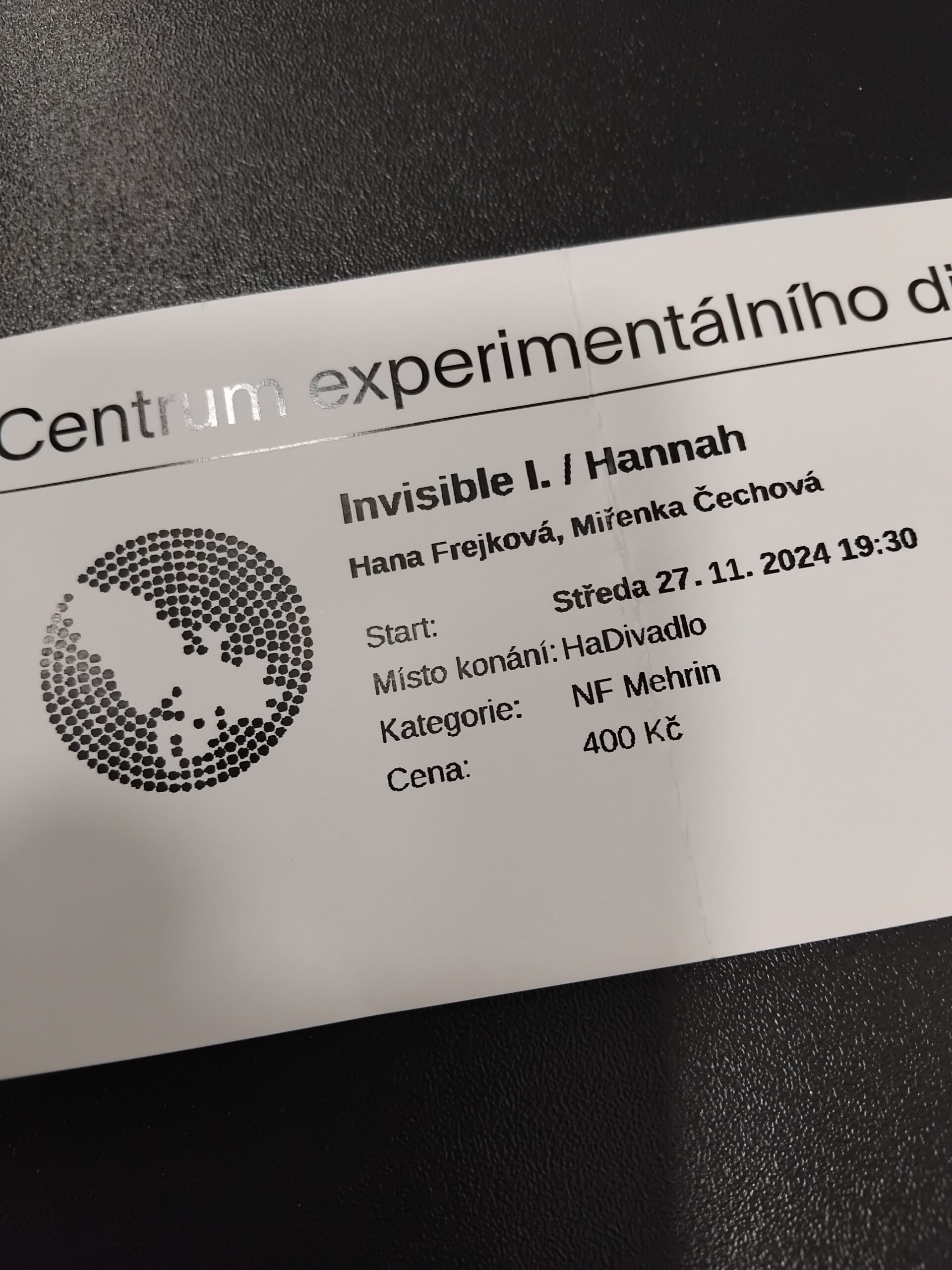
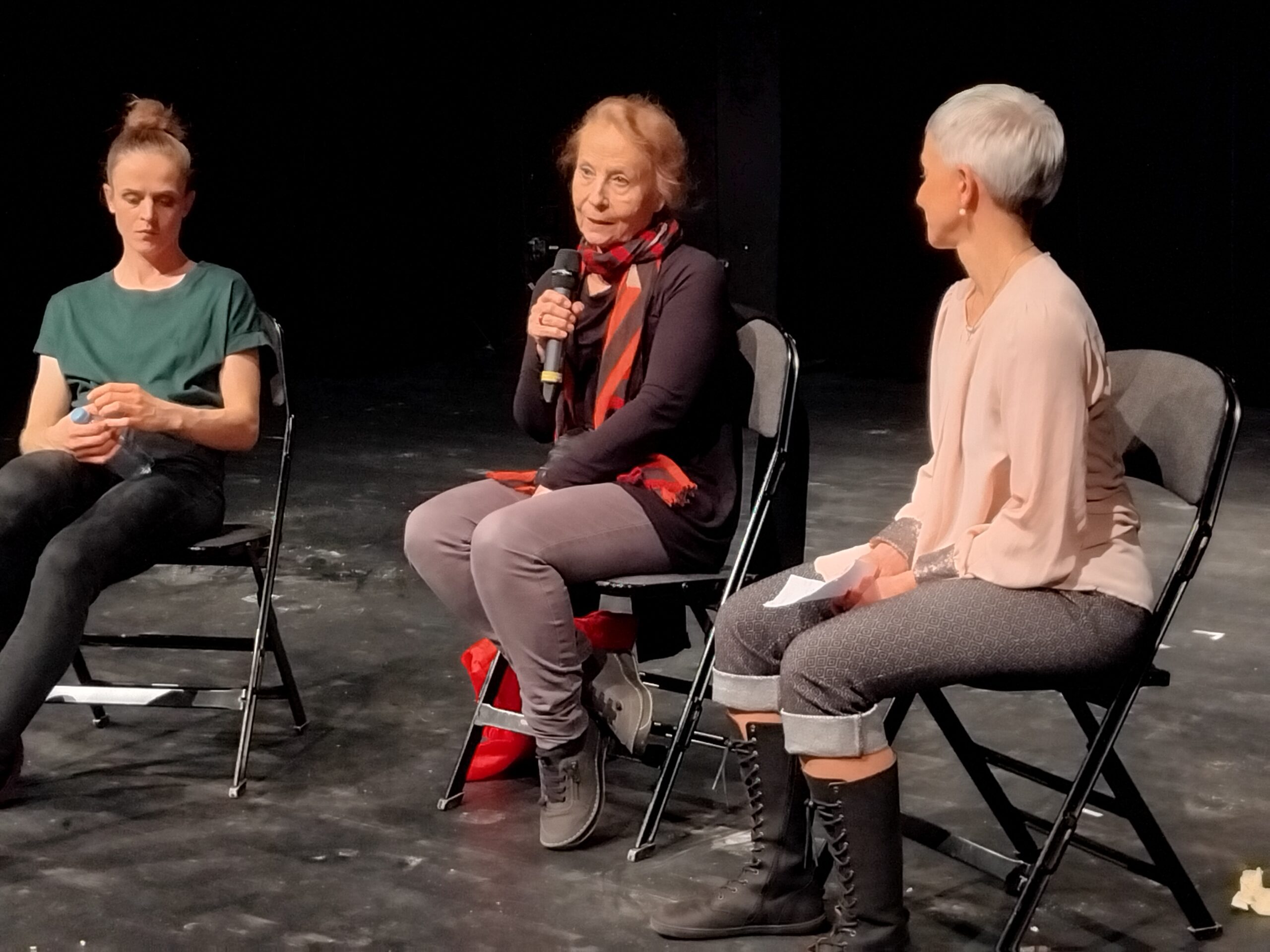
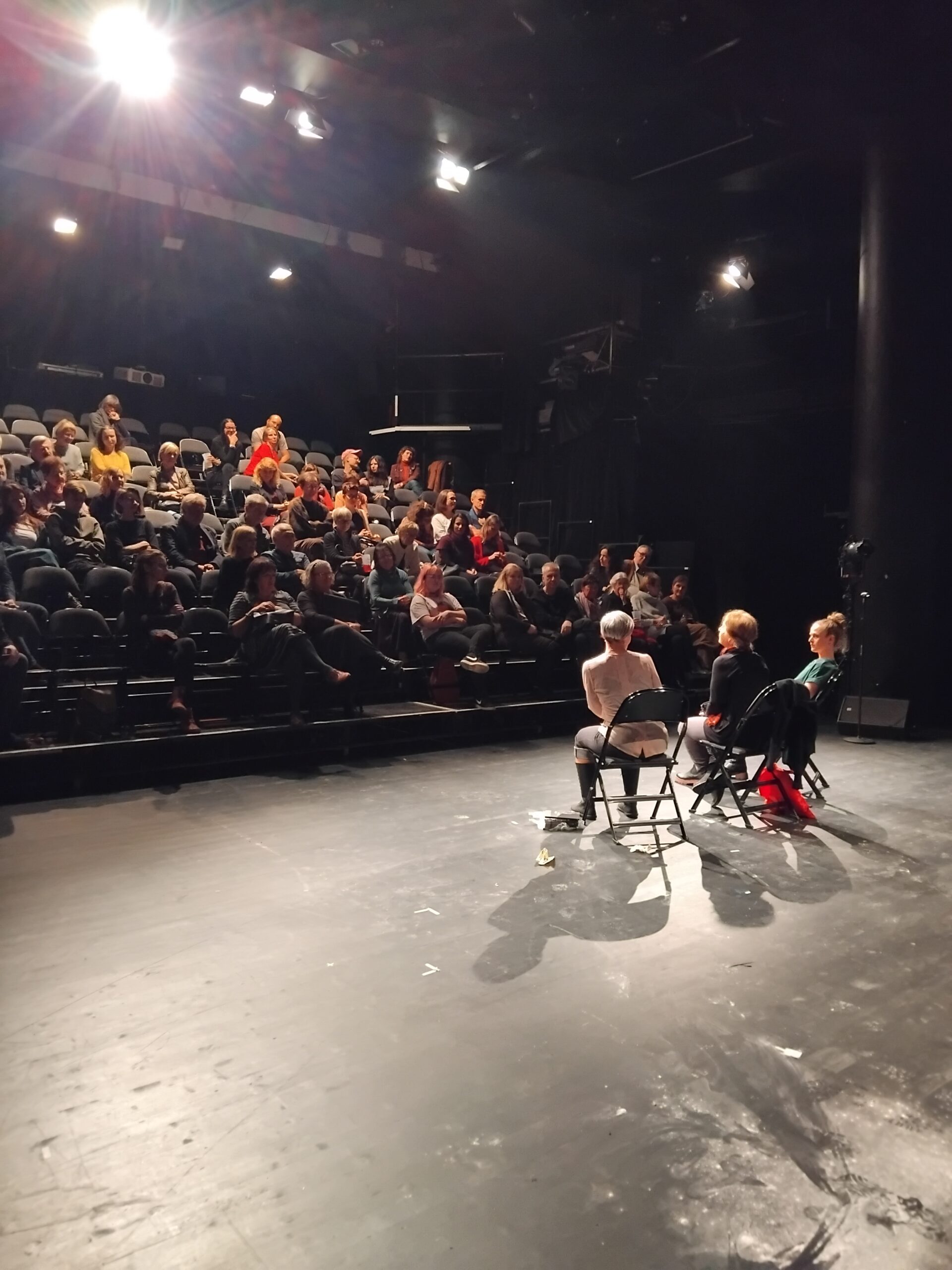
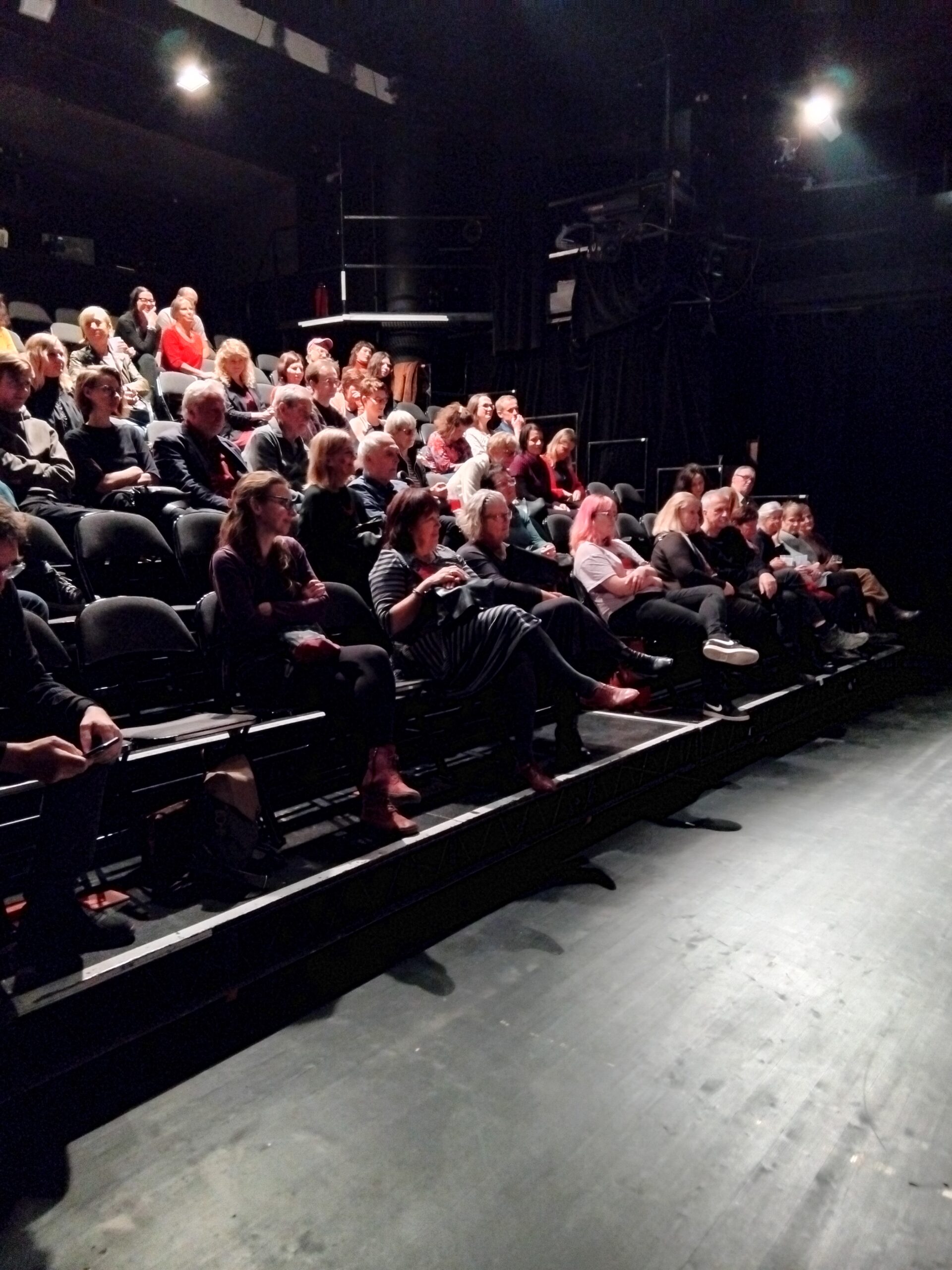
Pavel Kosatík: Entrepreneurship under the Star of David
On Thursday, 31 October 2024, we have scheduled a presentation of Pavel Kosatik's book entitled Entrepreneurship under David's Star in one of Brno's villas - Villa Löw-Beer on Drobného Street. As the title of the book suggests, it is an elaboration of the life stories of Jewish families, when not only the Tugendhats and Löw-Beers from Brno, but also the Kolbens, Bondy's and Petschks from Prague, the Poppers from Chrudim and others contributed significantly to the industrial boom and the spread of the reputation of the First Republic. The discussion was led by historian Táňa Klementová. Thanks to the Museum of Brno, which lent the historical premises of the villa and participated in the organization of the whole evening.
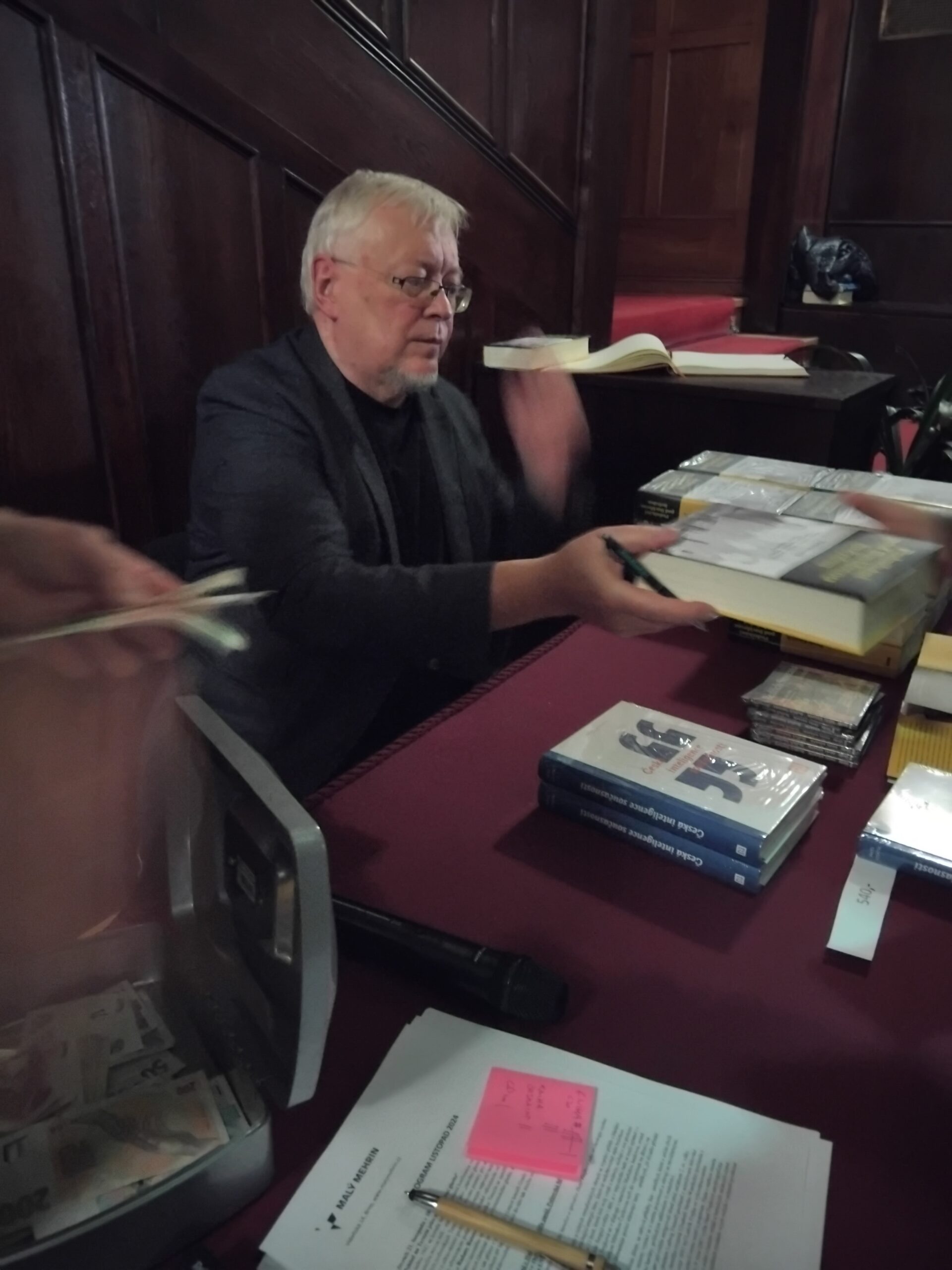
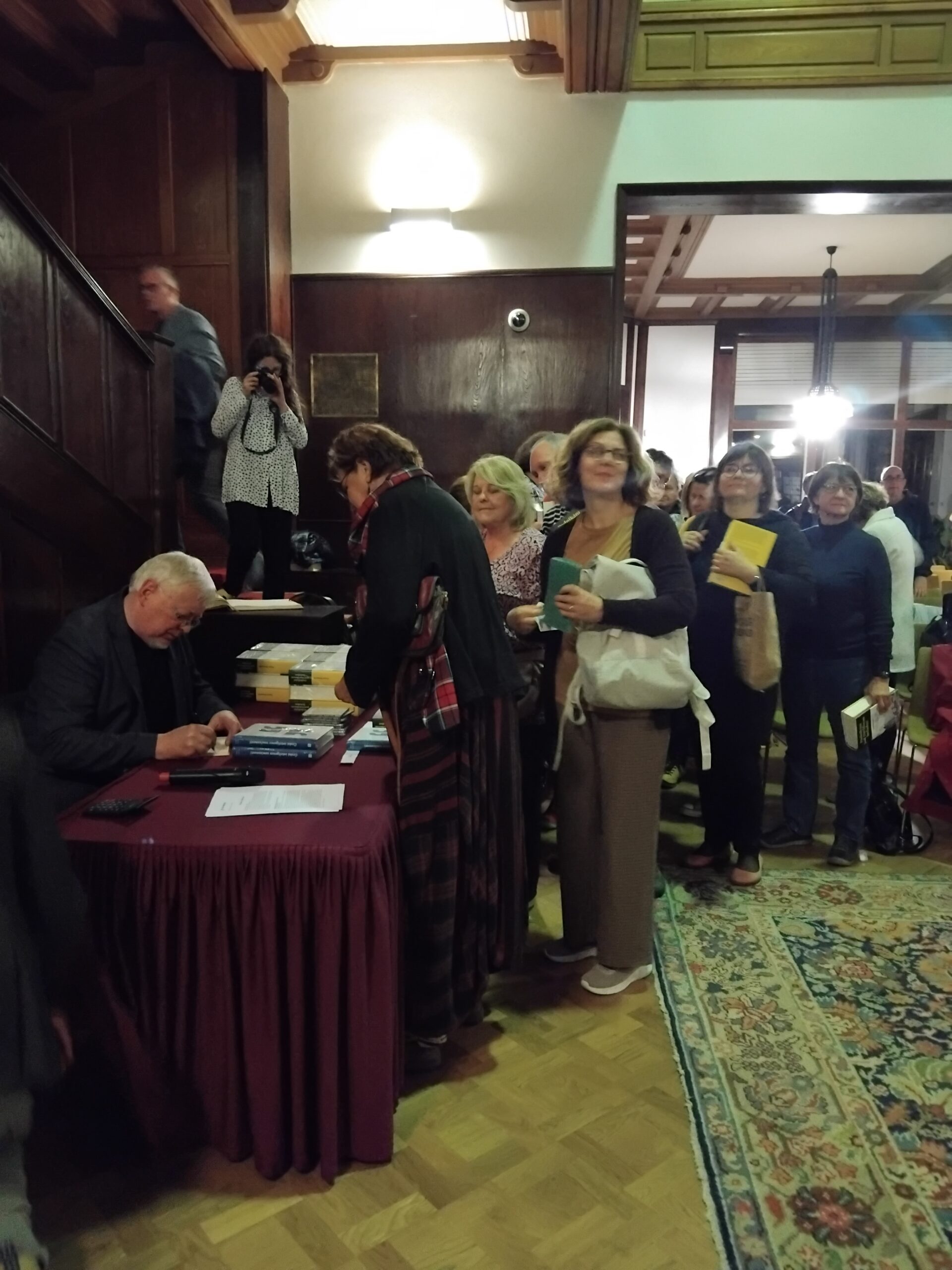
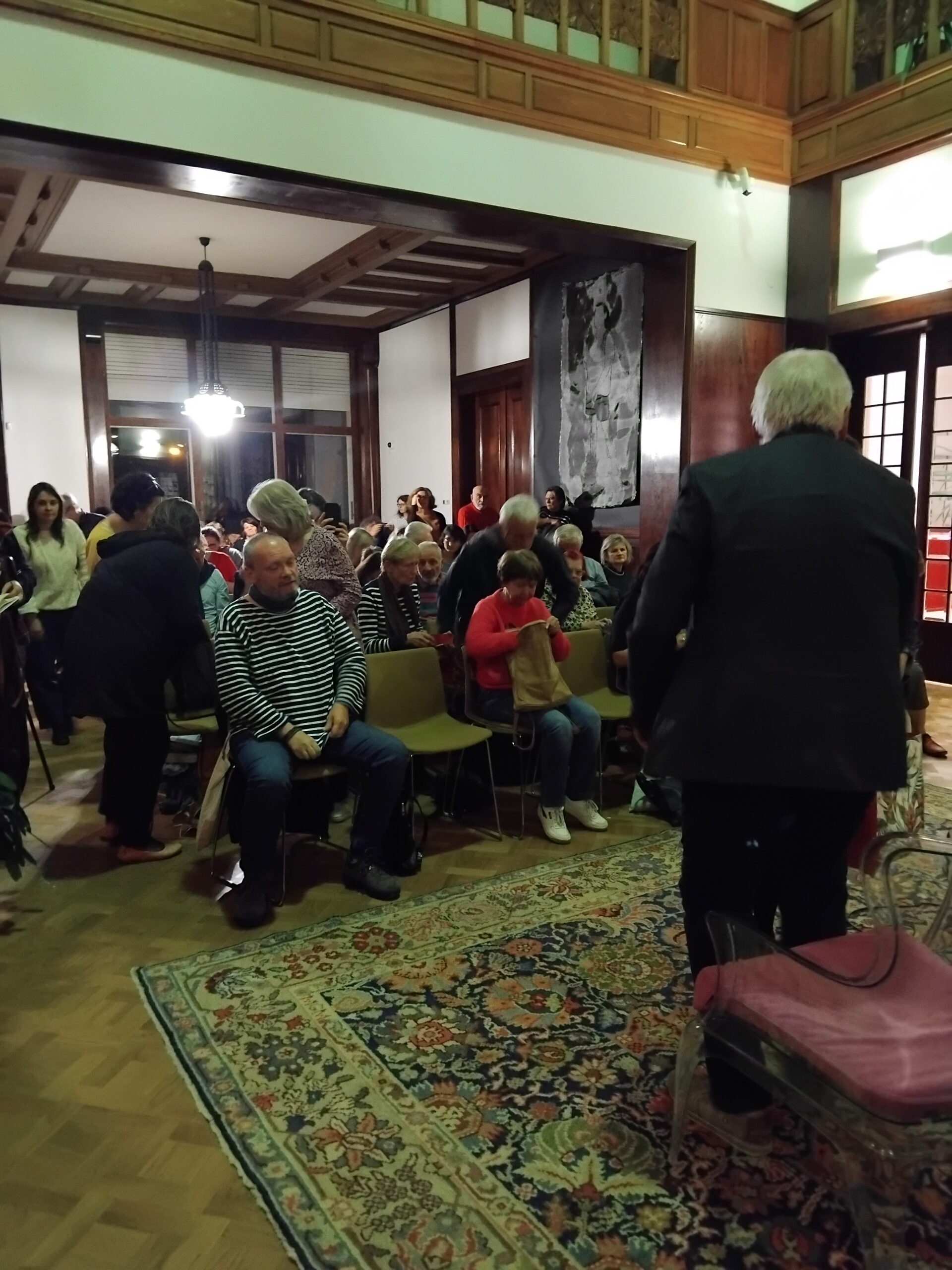
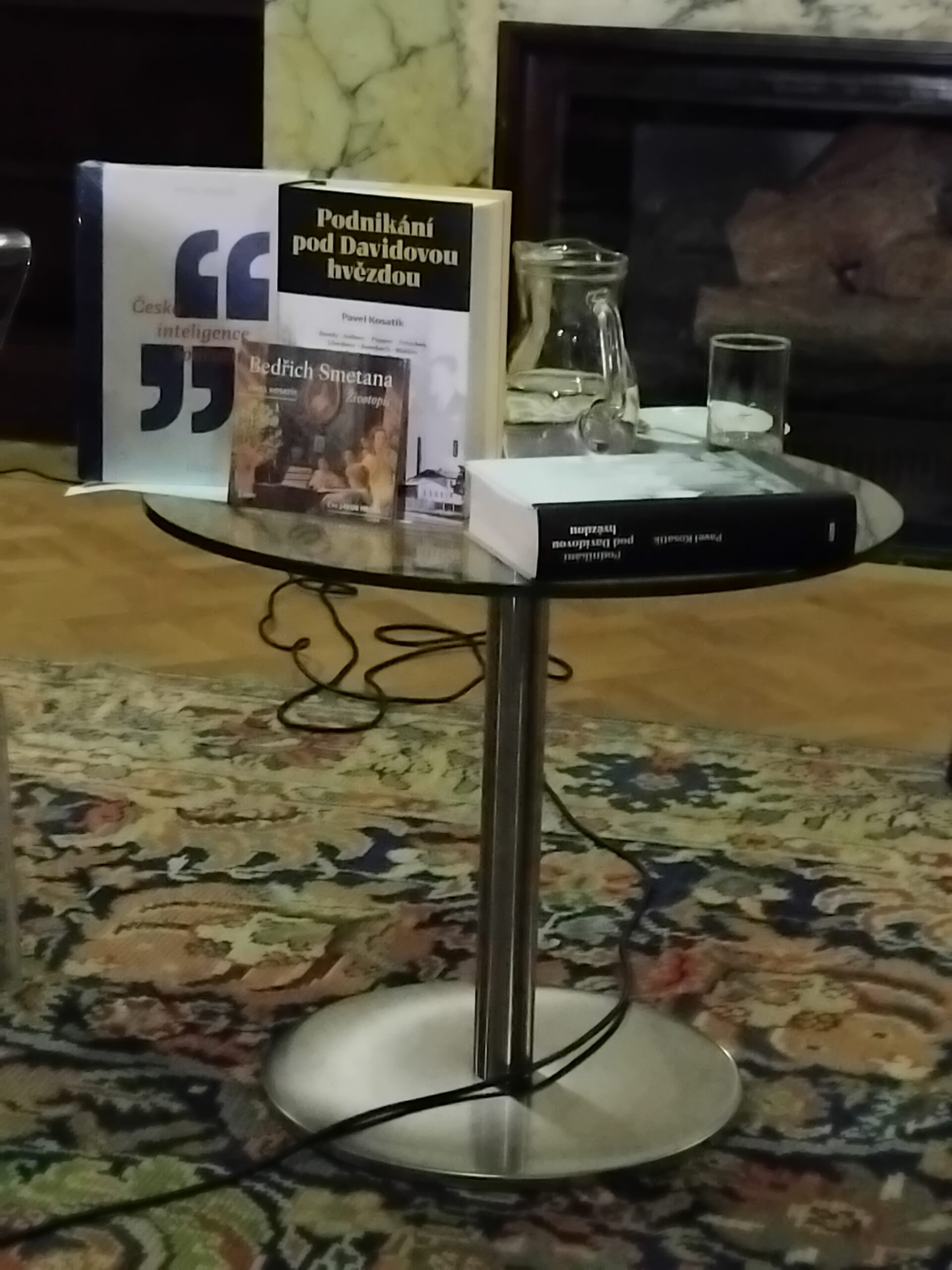
Does morality and ethics need religion?
On Wednesday, October 23, 2024, we welcomed the book of the same name into the world. We introduced it with these words:
Professor of nuclear chemistry, RNDr. Jiří Hála, a member of the Jewish Community of Brno and one of the last survivors who spent three years in Terezín as a child, is publishing a new book, his fifth in a row. Unlike the first, professional ones, in which he focused on radioactivity, in his latest books he has set his sights primarily on the toxic attention paid in the past by the Catholic Church to the "children of Jerusalem".
Book Does morality and ethics need religion? compiled as editor from the reflections of nine Anglo-Saxon philosophers and one physician. The answer is not hard to guess, just from the way the title of the book is constructed. But the essays contained in the book force the reader to consider the subject in a broader context than is usual.
The publisher Martin Reiner talked with Jiří Hála, read excerpts and asked questions.
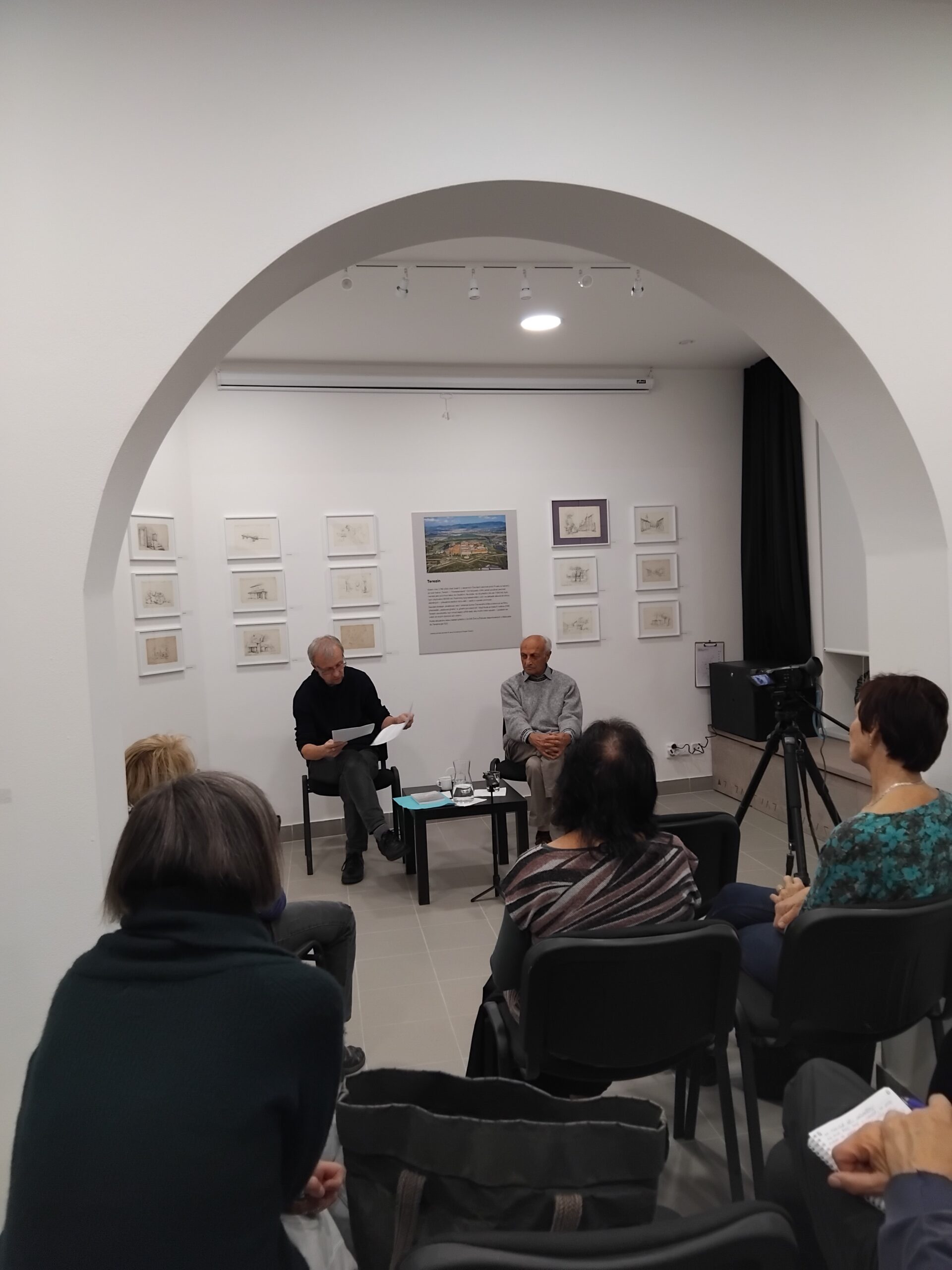
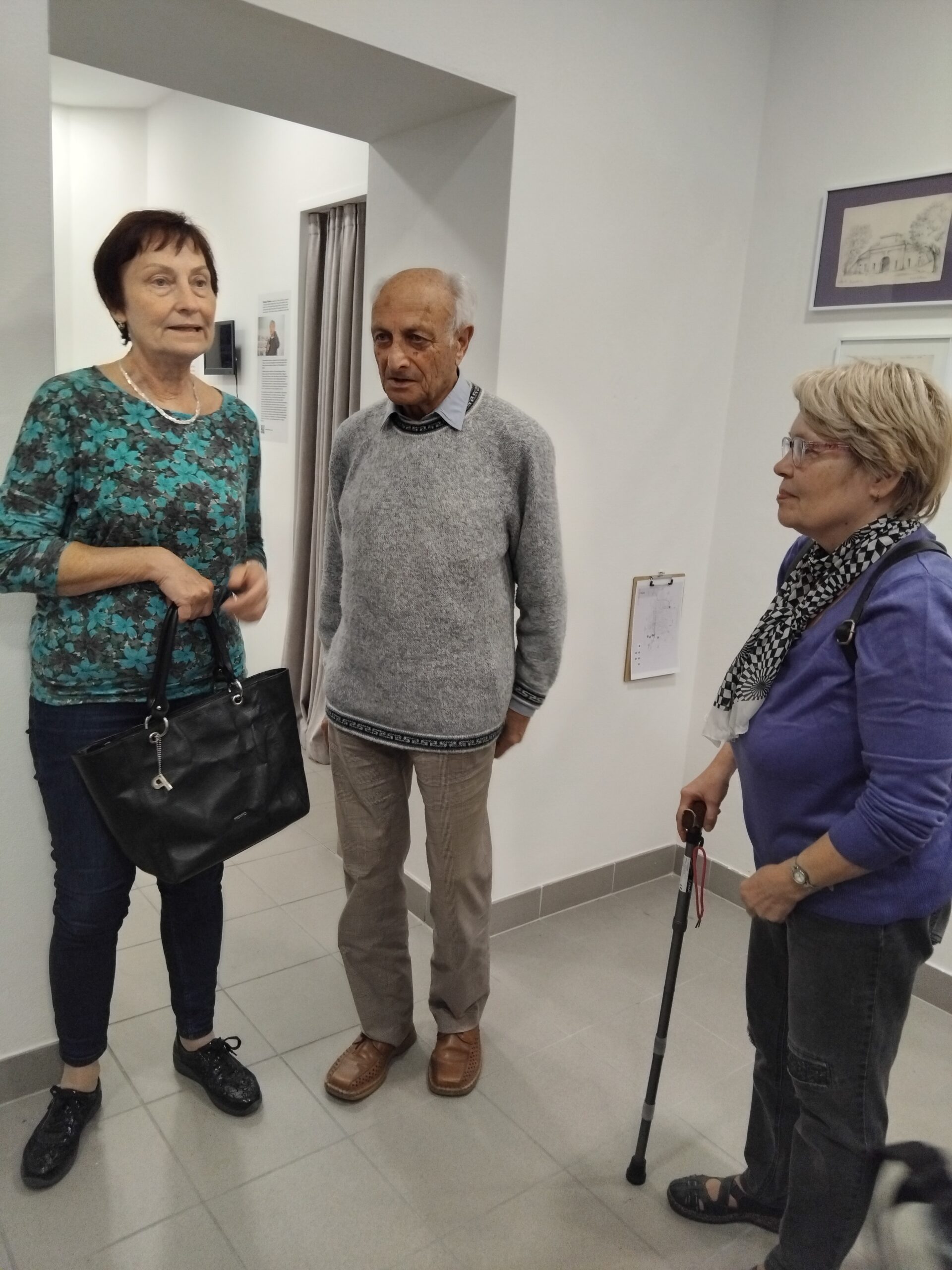
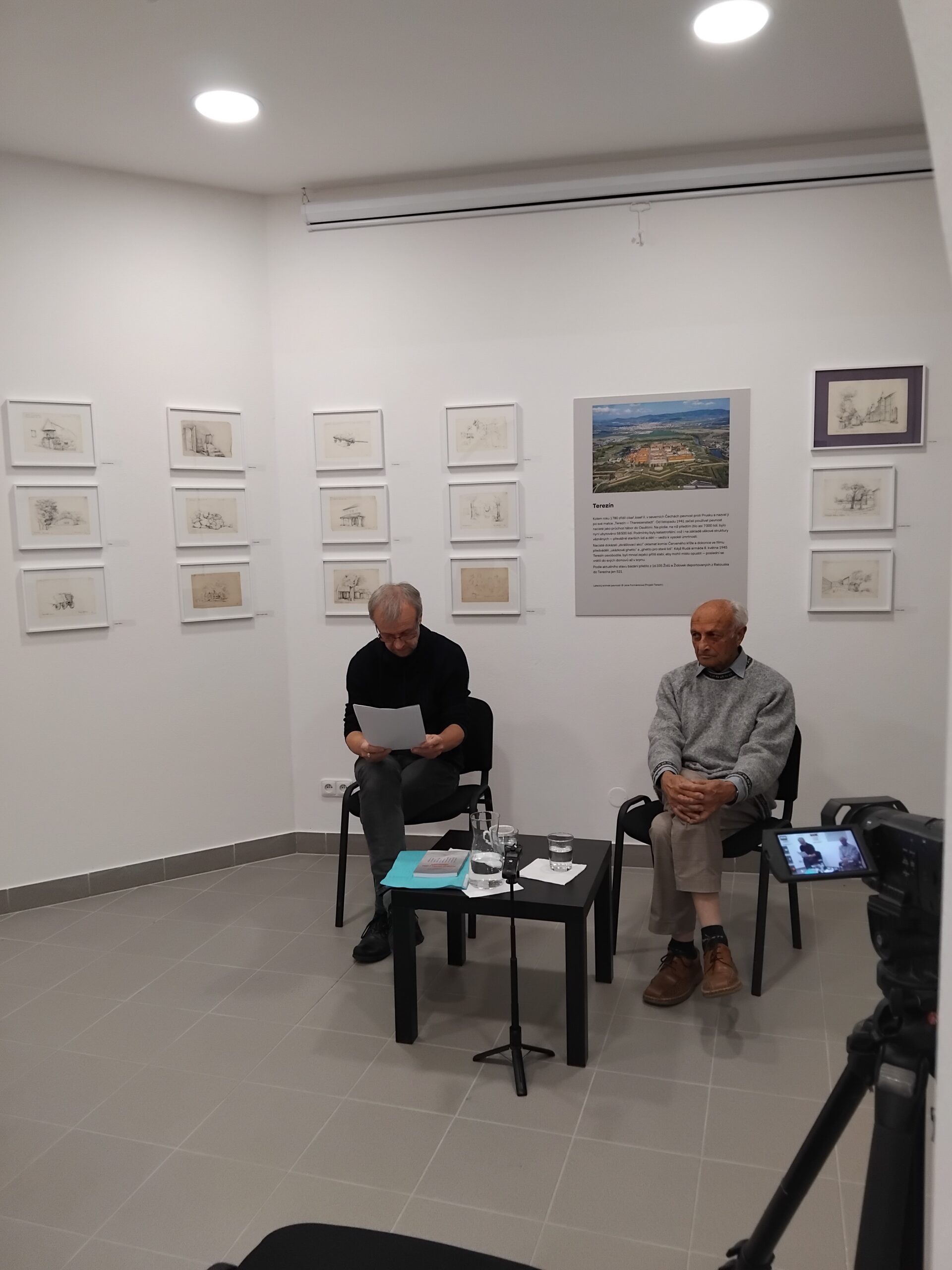
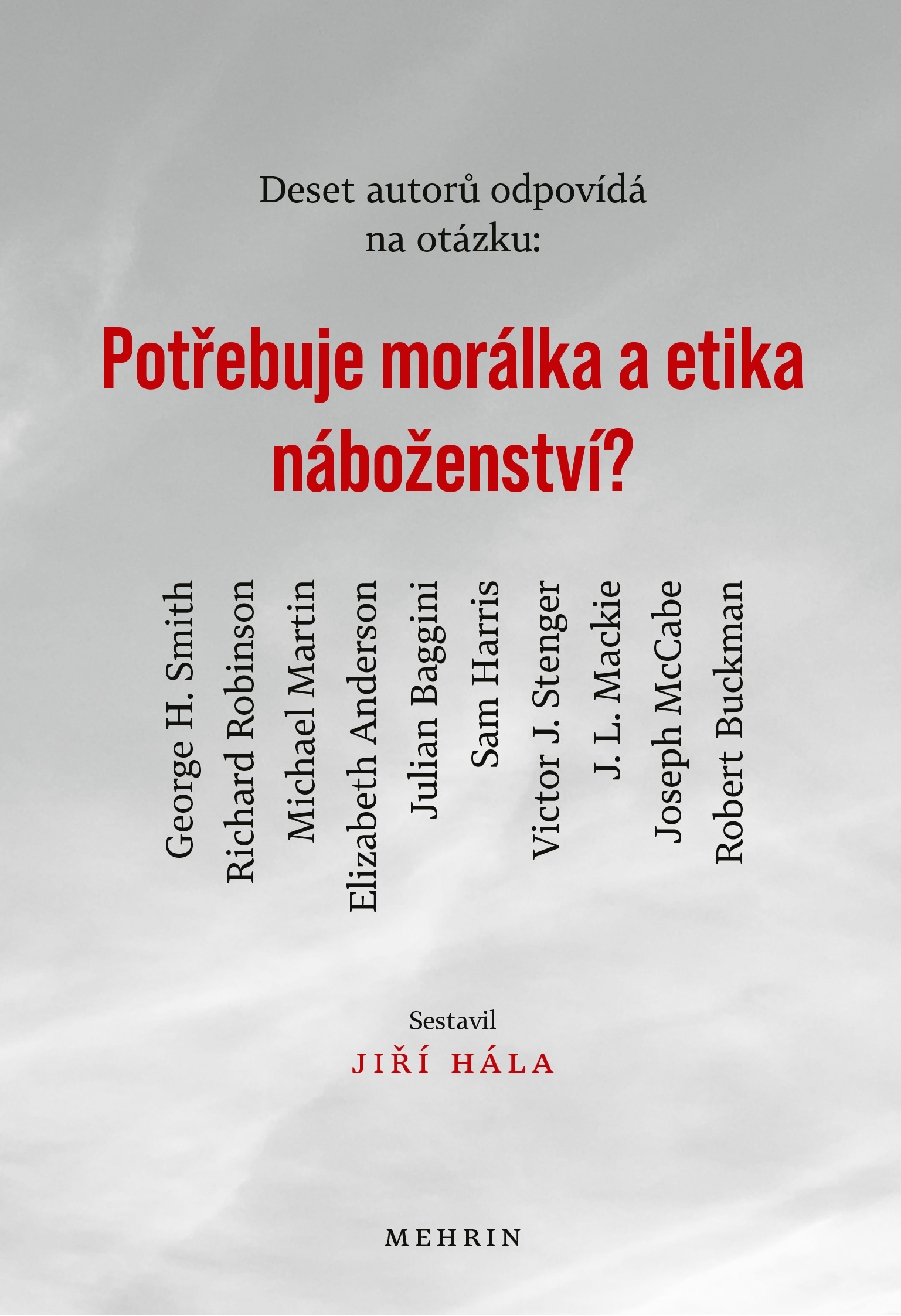
Mr. President in Little Mehrin
Thursday, October 10, 2024 was an extraordinary date for the Little Mehrin, and thus for the entire project of the Moravian Jewish Museum Mehrin. During its
on his way to South Moravia, President Petr Pavel visited us in the early morning. He spent almost an hour at the Viennese, watched a short film about the creation of the Little Mehrin and also looked at all the exhibitions with credible interest. He was most impressed by the architectural design of the future museum and expressed the idea that not only the city of Brno, but the entire Moravian region would deserve such a prestigious building, which in the future could become
an attraction for tourists both in terms of architecture and content. The author of the photographs is Monika Hlaváčová.
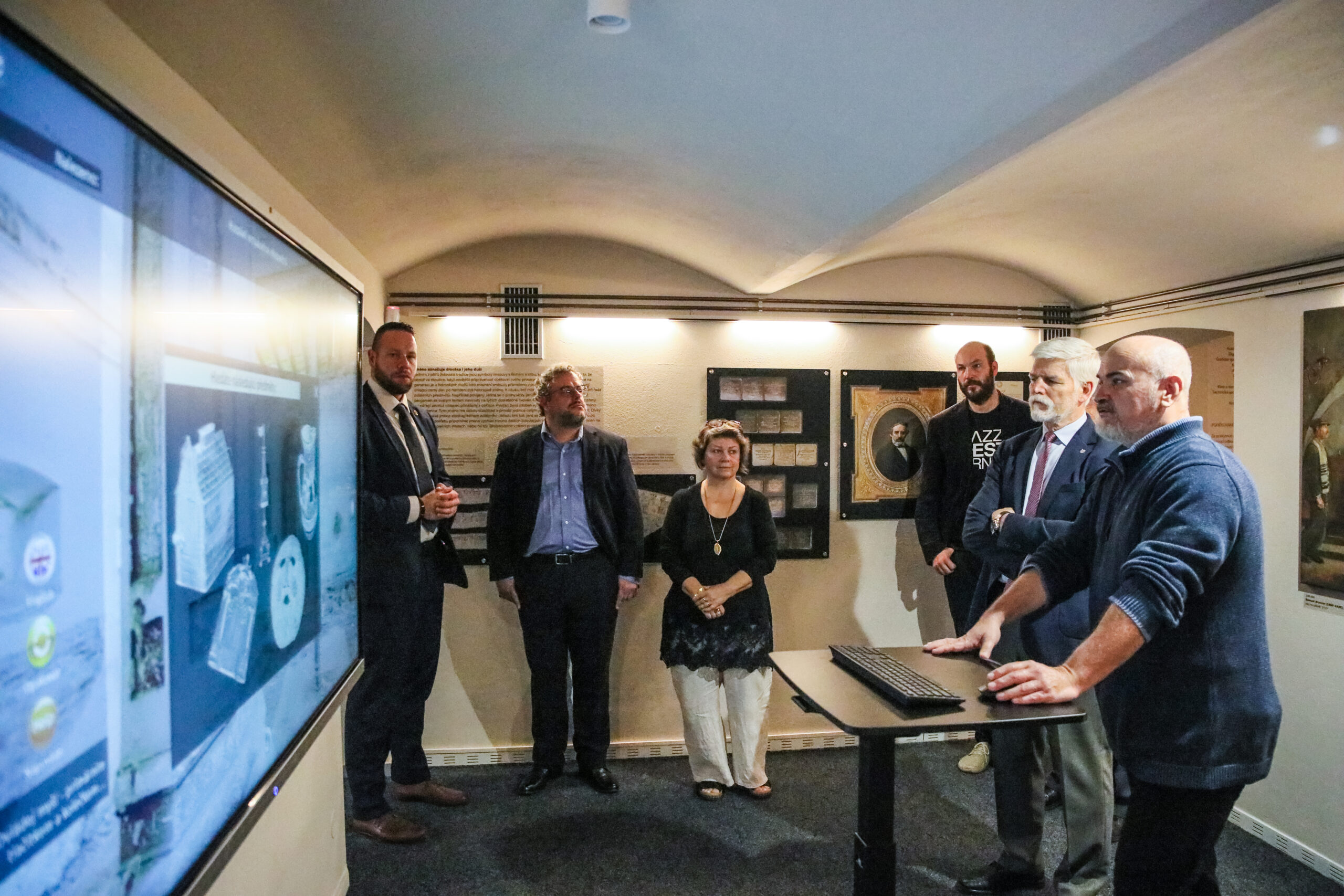
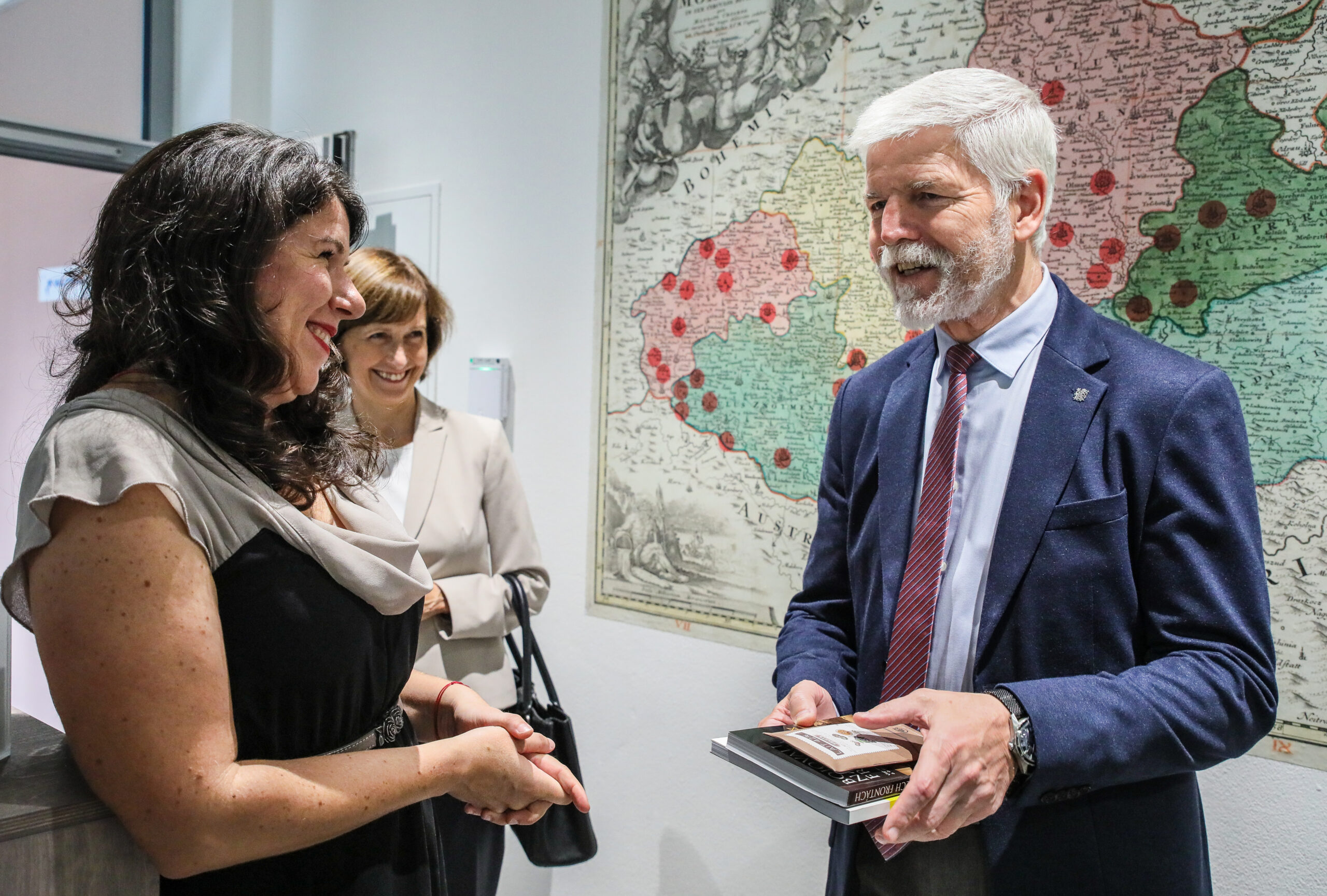
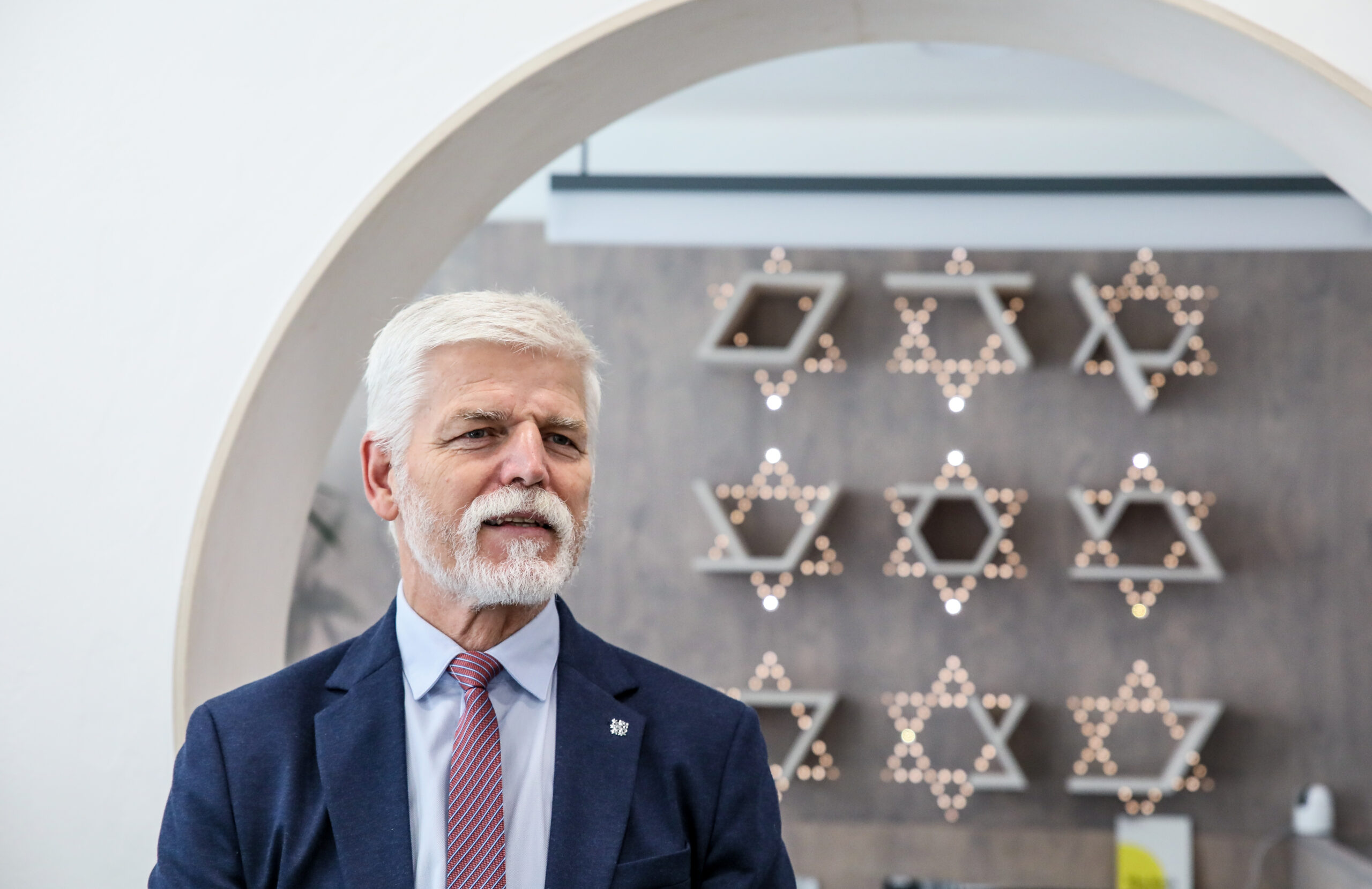
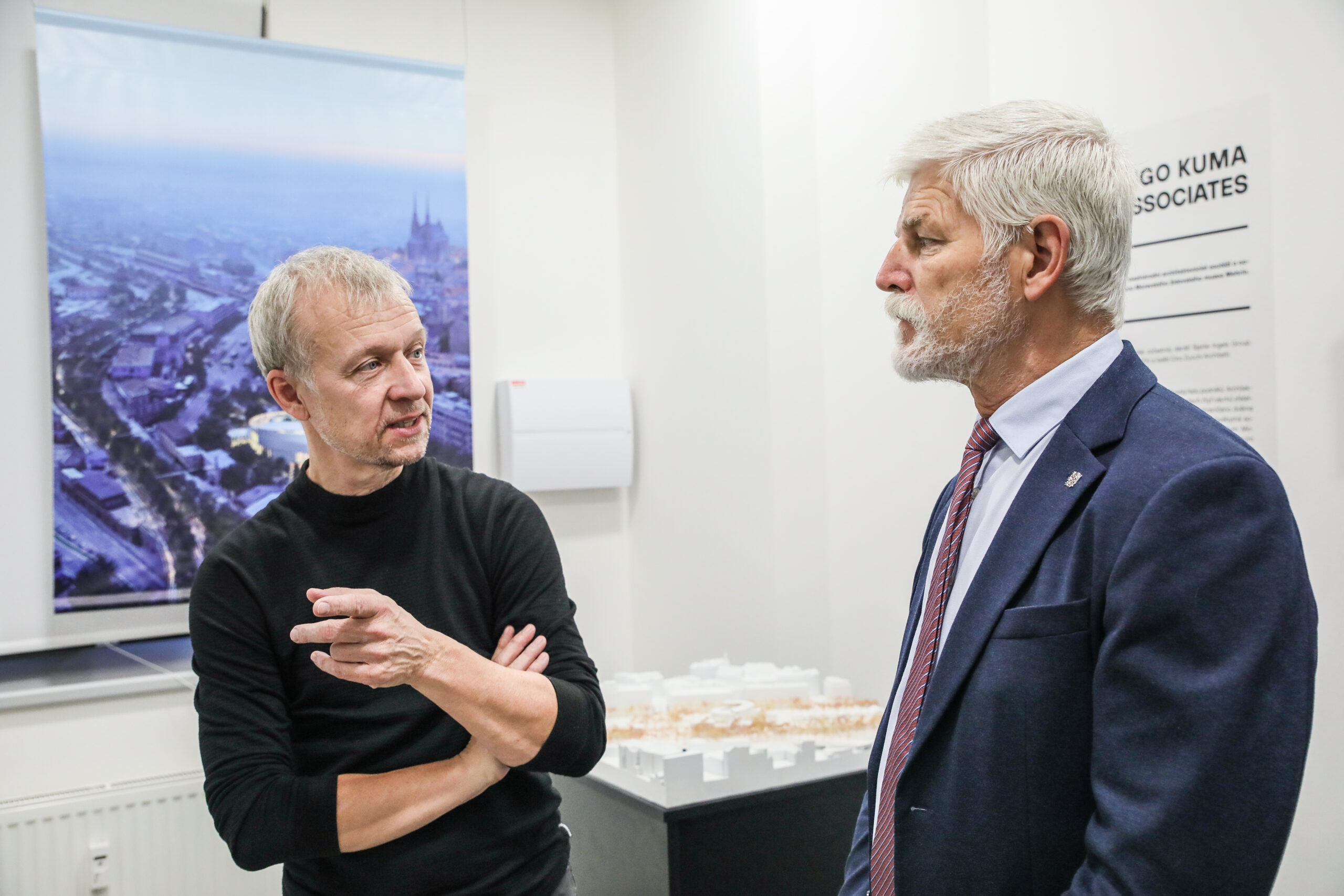
The influence of great history on the fate of Jews in the Shoah on the example of Miroslav
The lecture on Wednesday 9 October was prepared by Aleš Bednařík, who has lived in Miroslav since 1999. Since then he has been privately researching the fate of the victims of the Shoah in Miroslav with varying intensity. The debate with him was led by historian Táňa Klementová, and the attentive listeners were not only regular visitors to our lectures, but also some residents of Miroslav, who had travelled to Brno and did not want to miss the talk about their former neighbours...
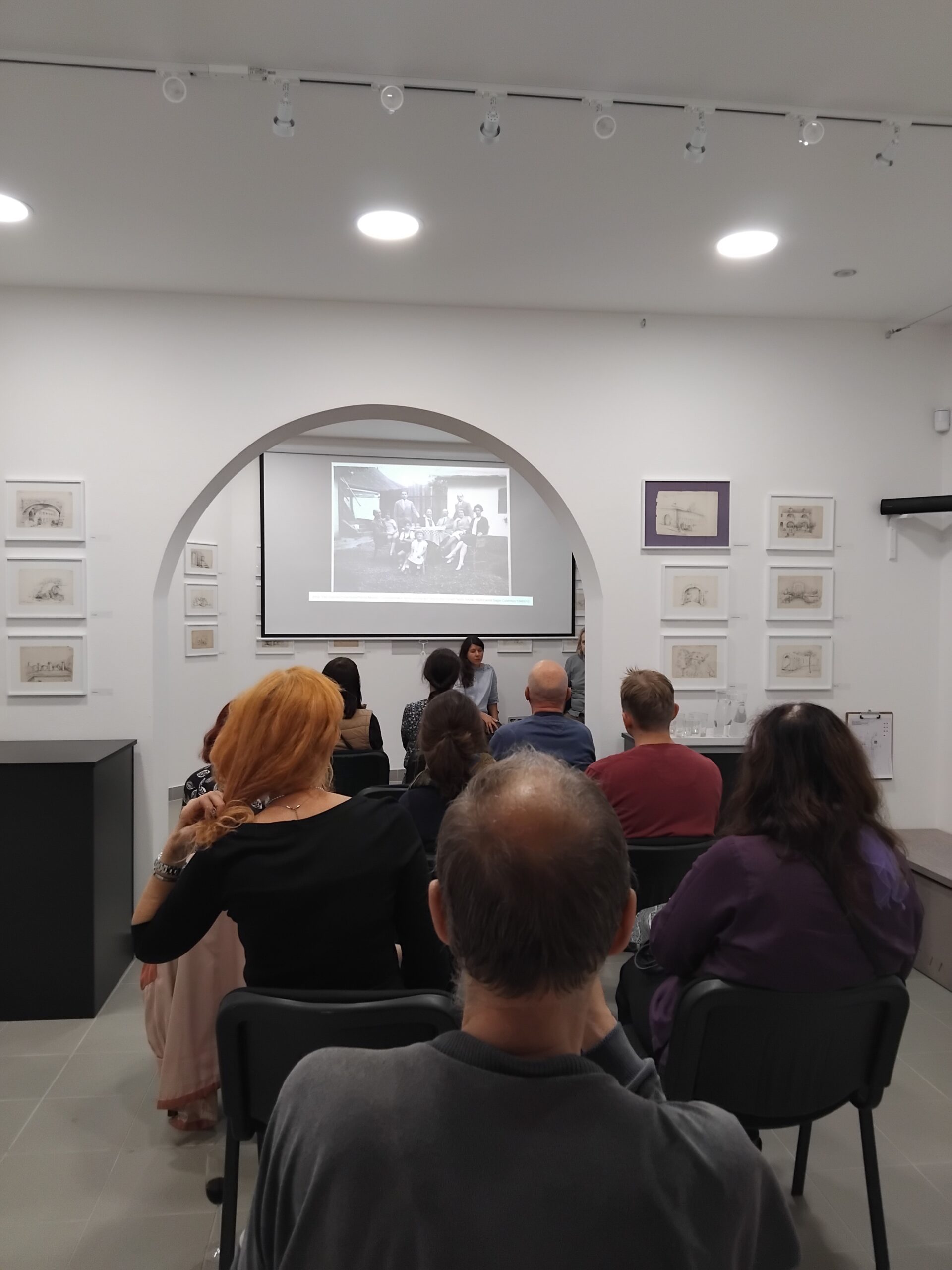
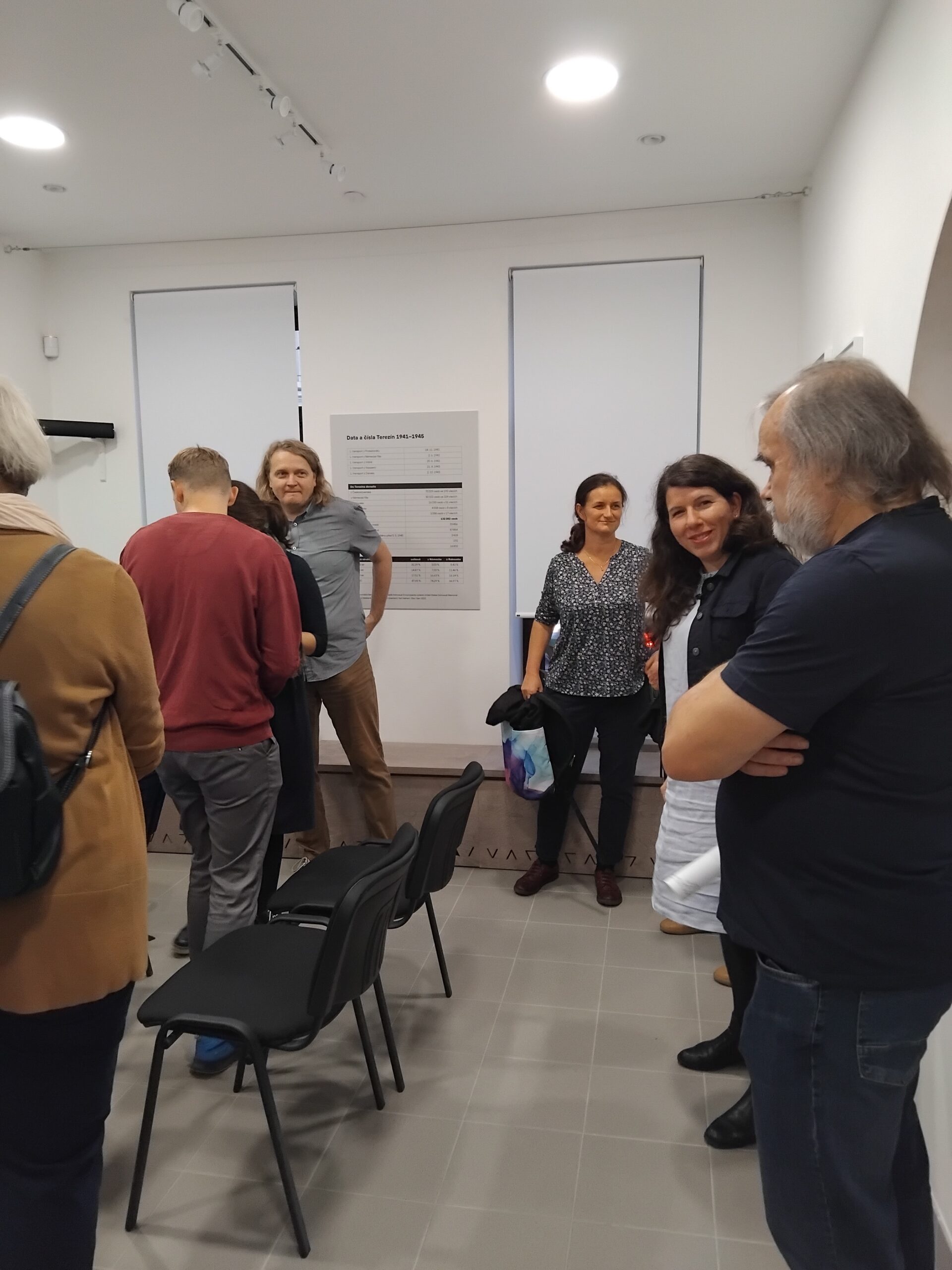
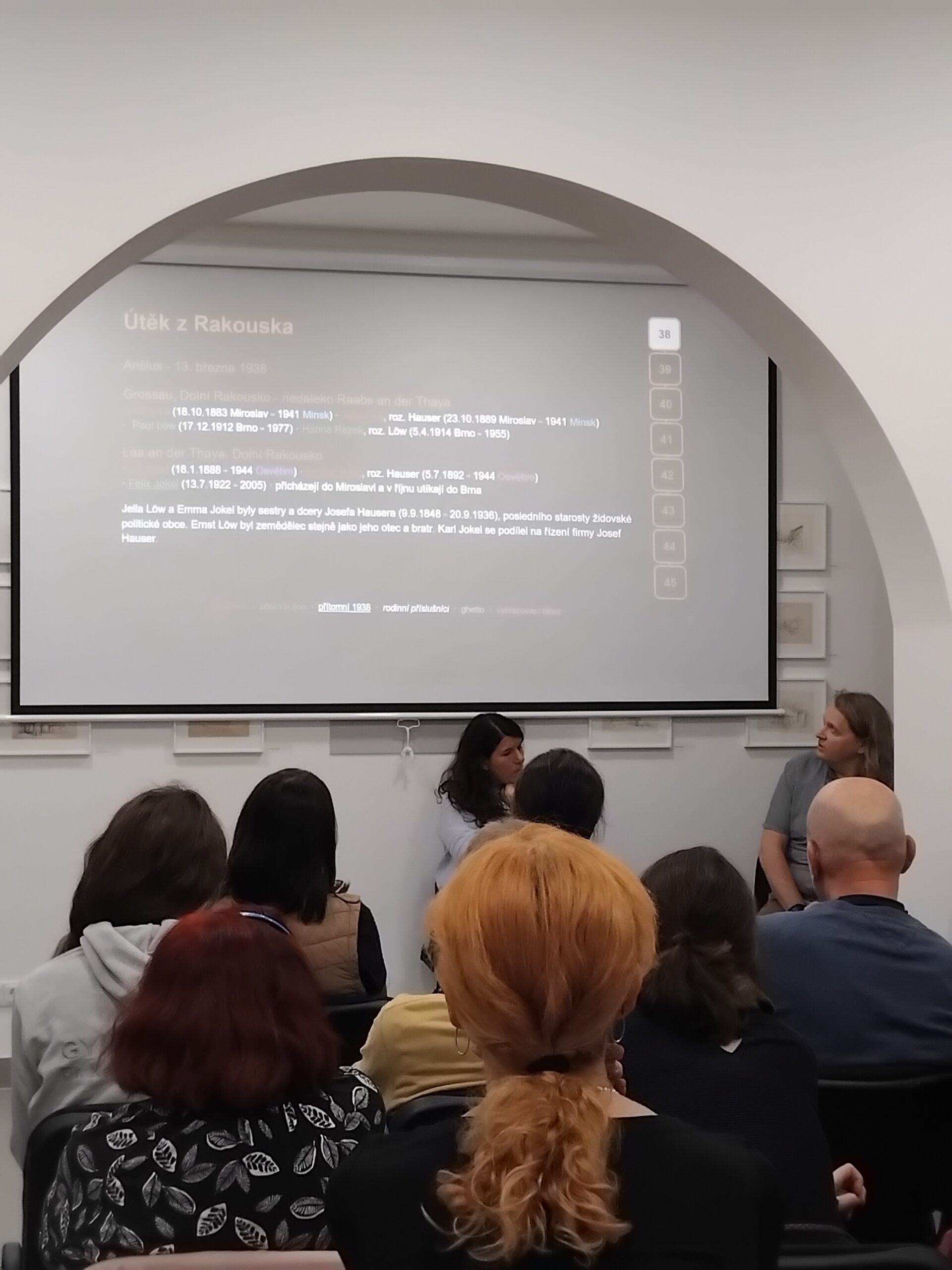
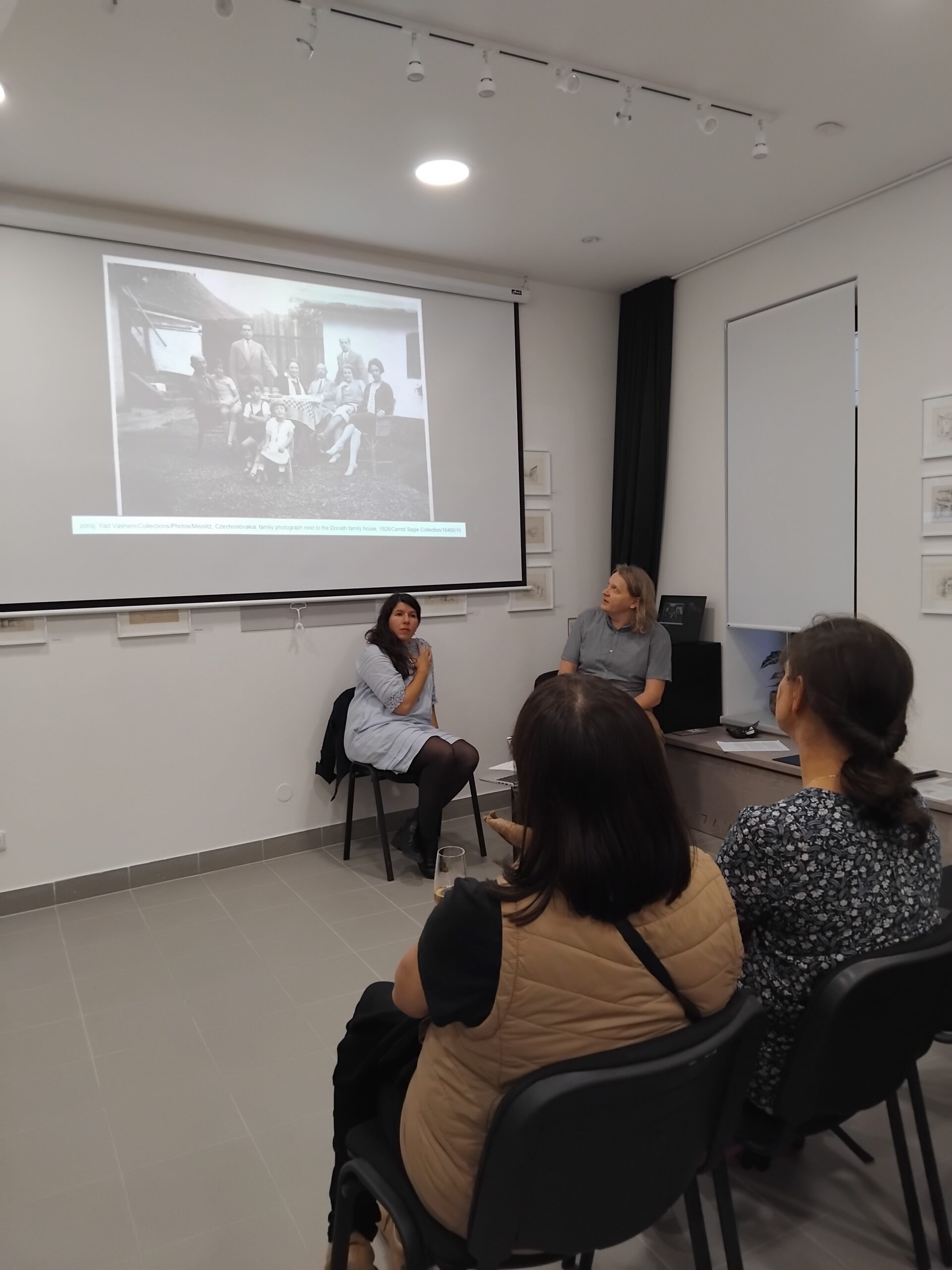
Pictures from Terezín 1942-1943; Cartoon diary of Gisela Rottonara
Pictures from Terezín 1942-1943; Gisela Rottonar's Cartoon Diary A meeting on 23 September on the occasion of the opening of a new exhibition lent to us by the Institut für jüdische Geschichte Österreichs from St. It is the drawings of Mrs. Gisela Rottonara, a seventy-year-old painter who captured her impressions, the corners of Terezín and the faces of the people on the pages of her notebook. After less than six months in the ghetto, she died, but before her death she entrusted the diary to her cellmate, who then returned the set of drawings to her family. The family guards the drawings closely for several decades, and it is only a chance encounter between an institute worker and one of its members in a hospital setting that subsequently allows the drawings to be presented to the public...
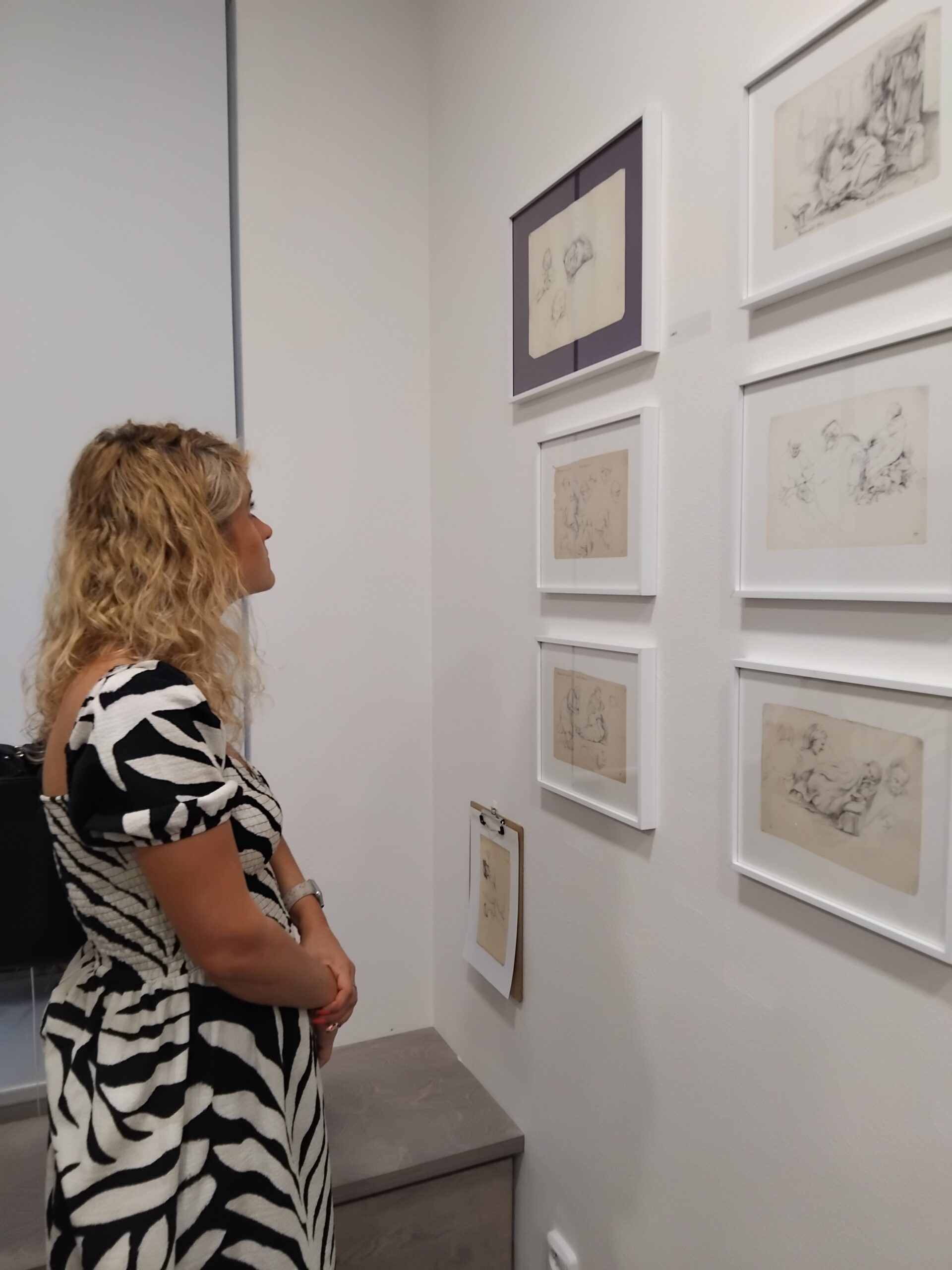
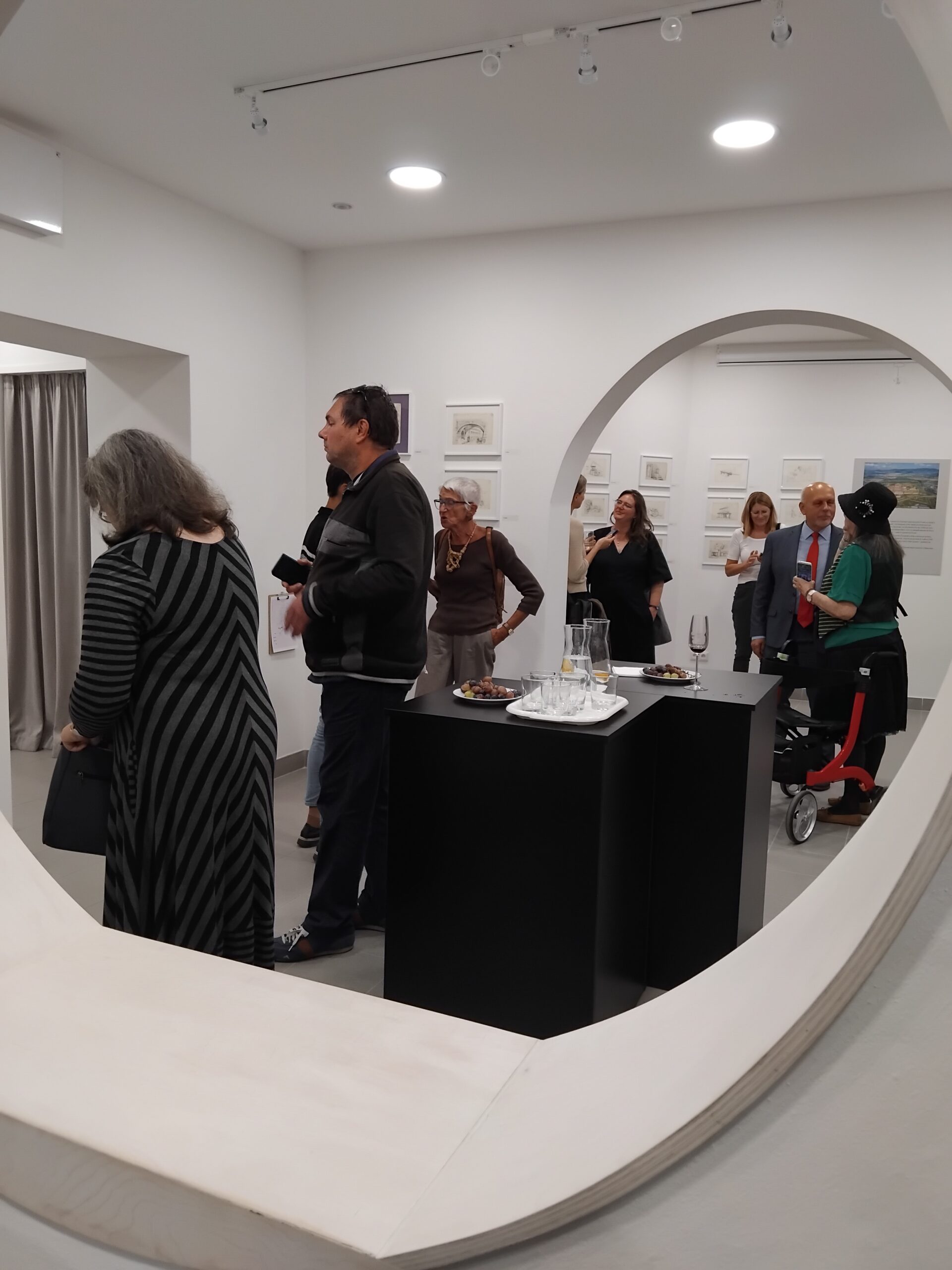
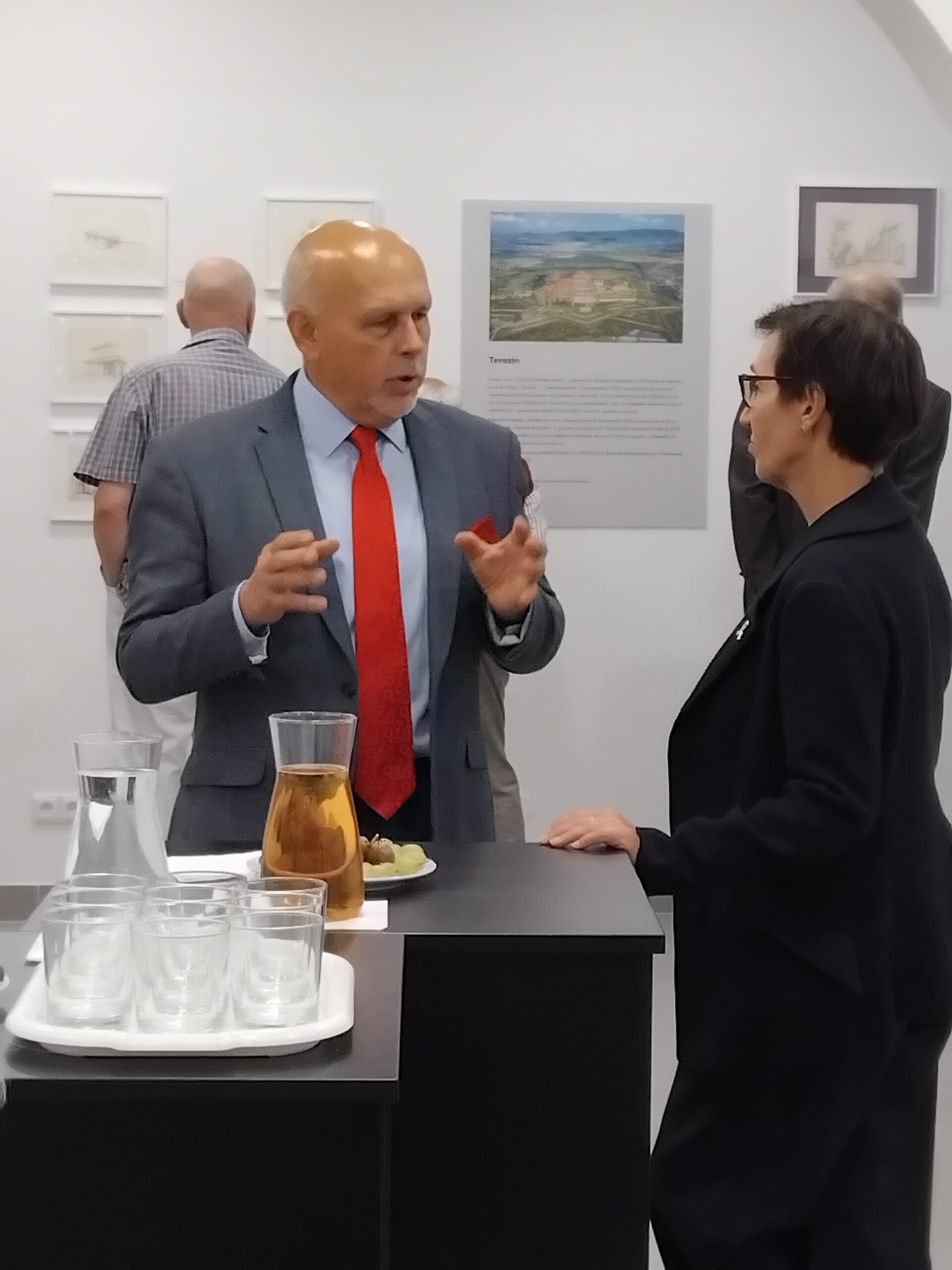
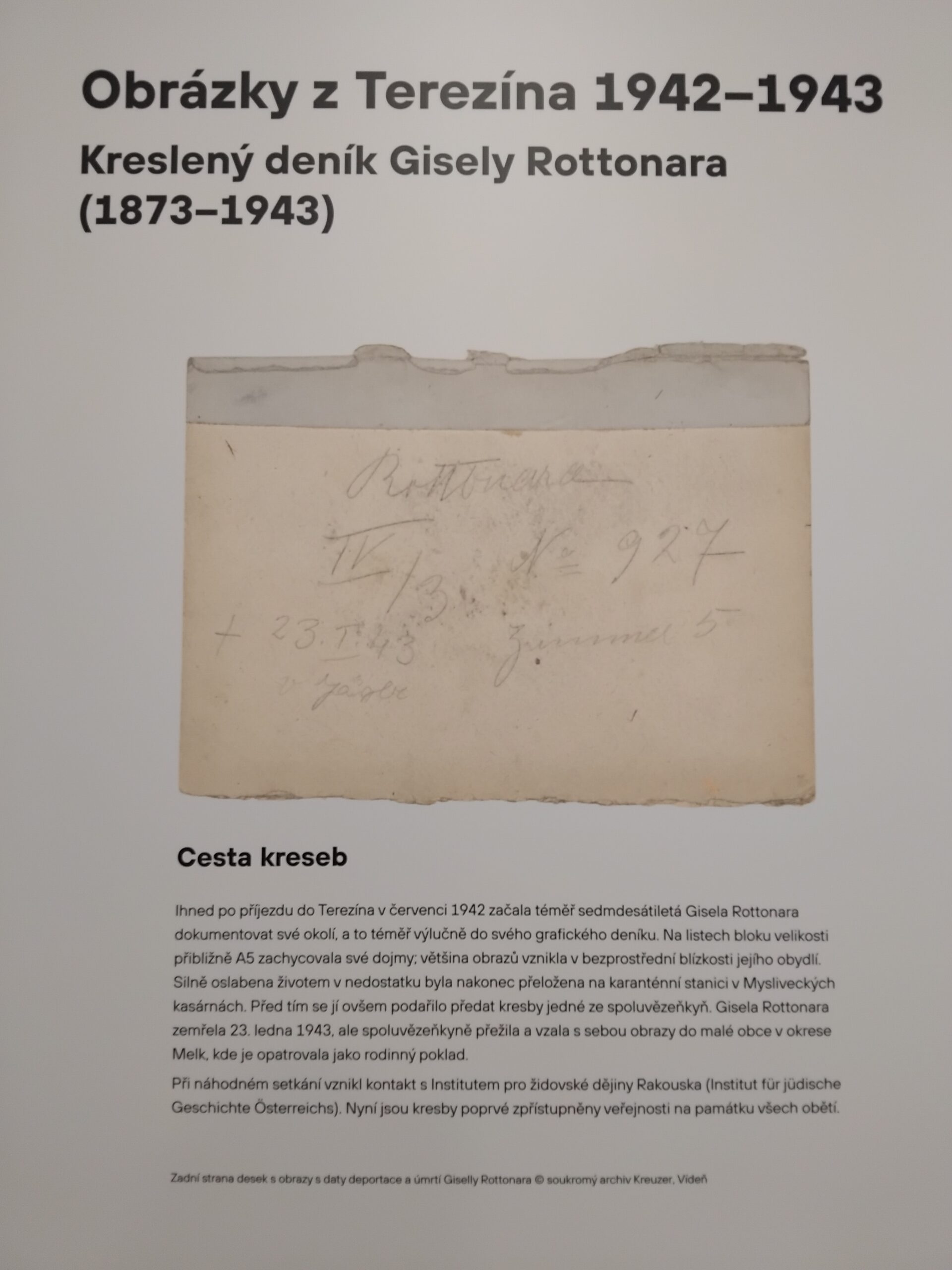
Closing of the exhibition Places where the Moravian Torah Scrolls were at home - with Sheila Pallay
On Tuesday 17 September 2024 we invited Mrs Sheila Pallay, a volunteer with the London Memorial Scrolls Trust, to enrich the exhibition with her photographs. In a dialogue with the author of this exhibition, Julius Müller, she said, among other things, "The moment I touched the 250-year-old Torah, rescued from Bohemia, I felt a sudden, unexpected and very strong personal connection with past generations. With those who held this very Torah in their hands. They recited from it. They kissed it. And wore it proudly around their synagogue. This was the initial impulse that led me to the idea of making a pilgrimage with my camera and discovering what Jewish things remained in the Czech lands, i.e. in Bohemia, Moravia and Silesia...
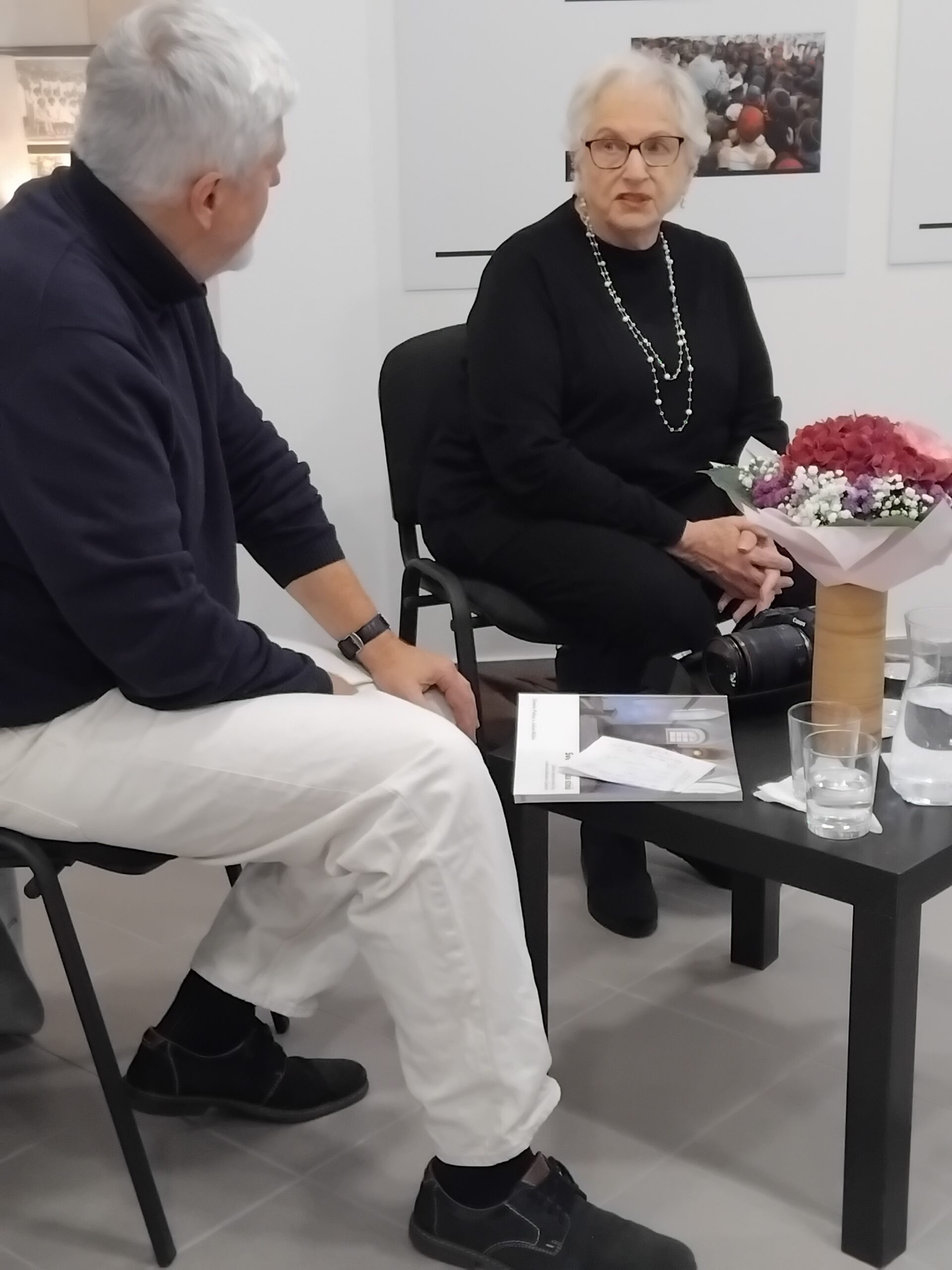
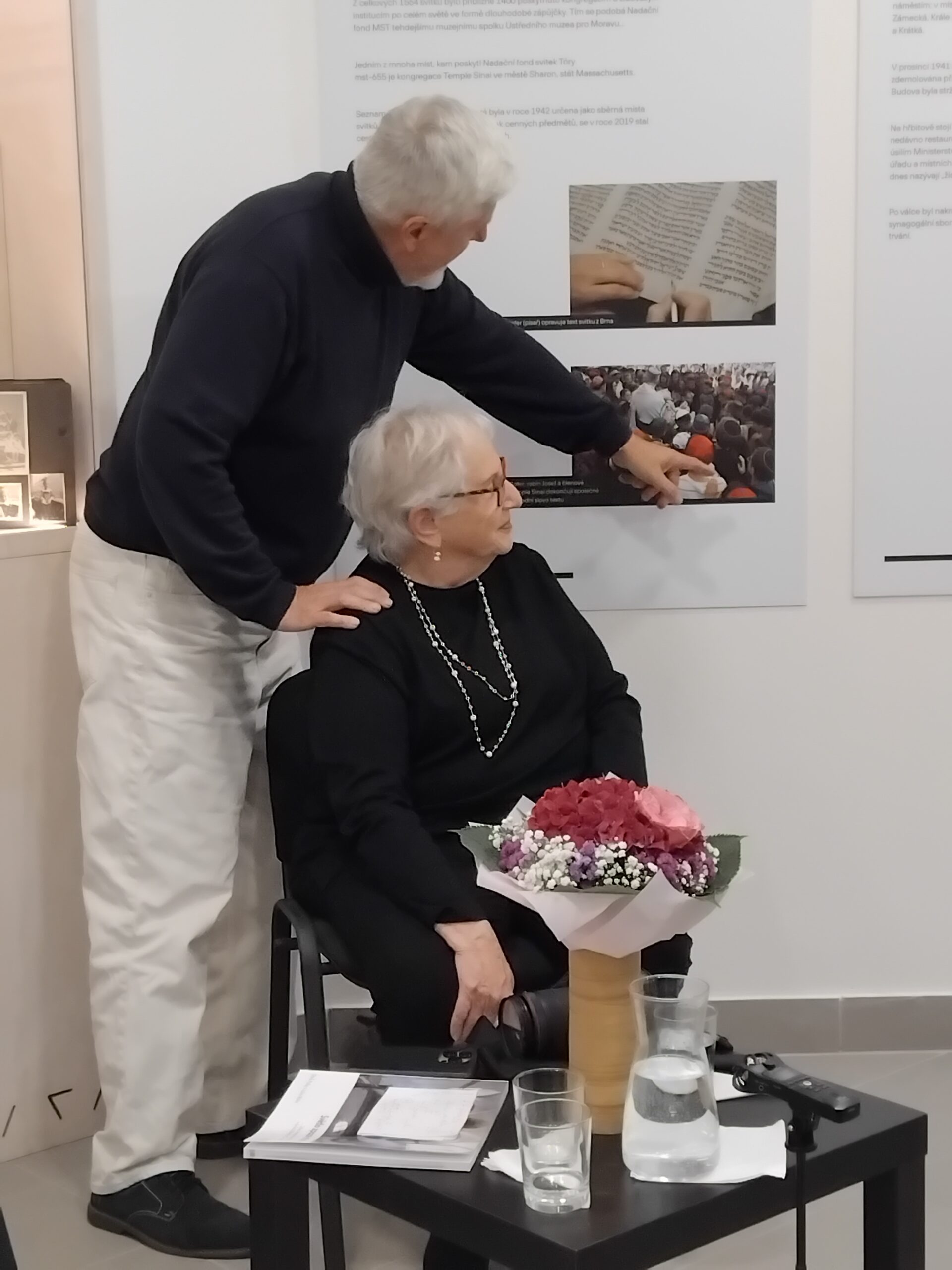
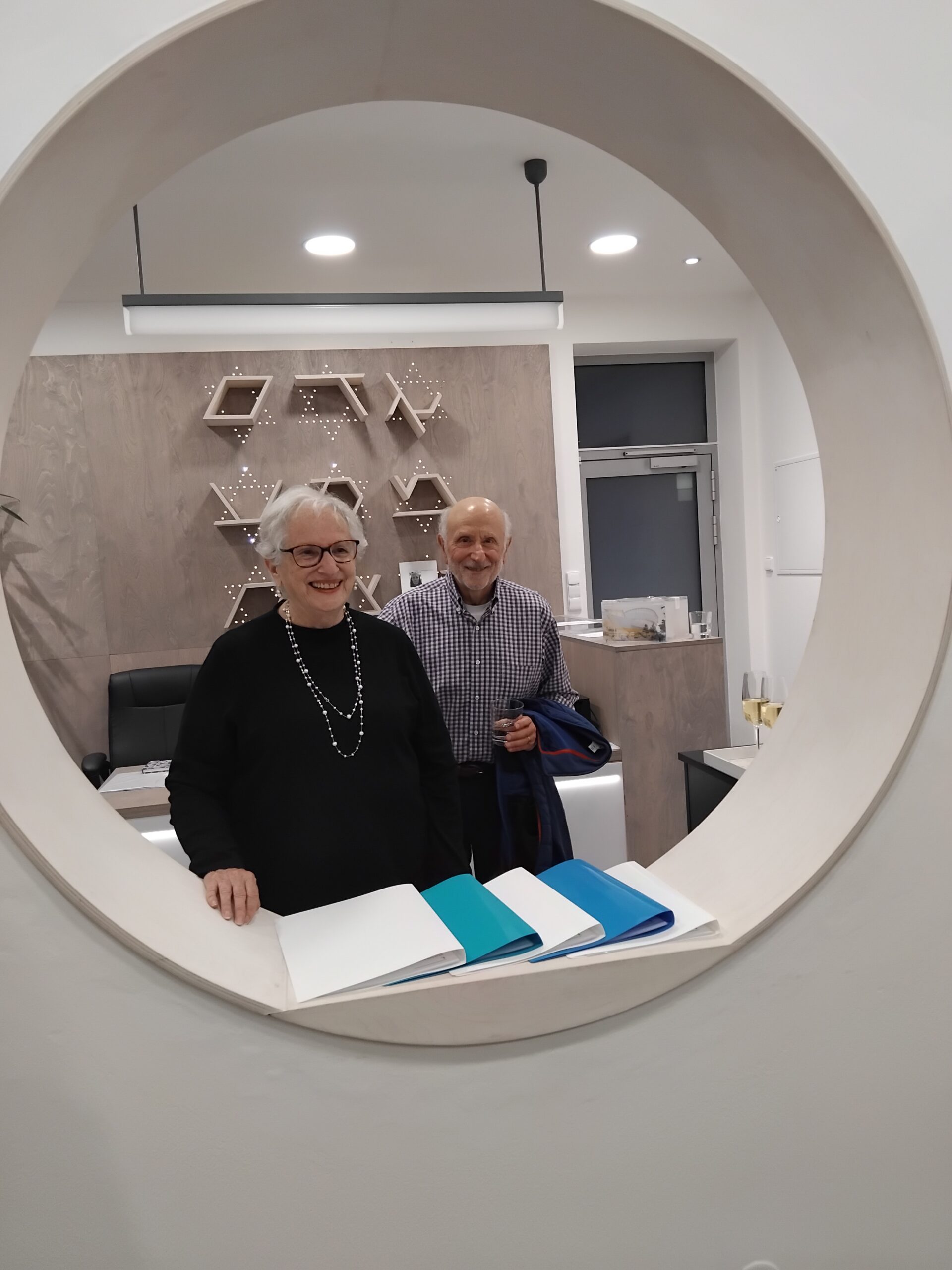
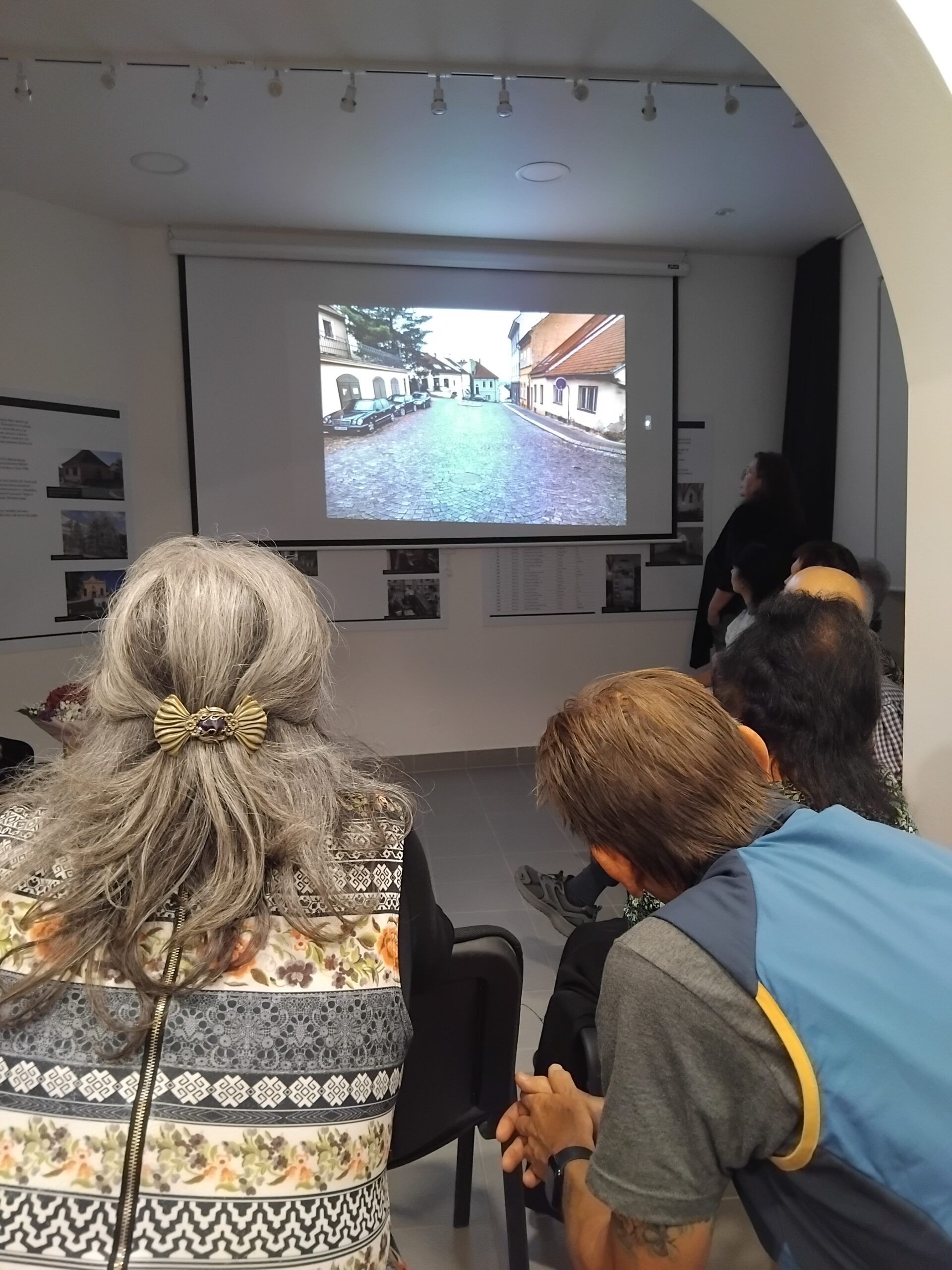
Opening of a permanent 3D exhibition in the basement of the Vídeňská Street
On Monday, May 13th, we opened the anticipated exhibition, which took up residence in our unused basement space, not only in the presence of a delegation from the Jewish Museum in Prague. Invited guests were able to take a closer look at, for example, holograms of ritual objects of the Chevra Kadisha burial fraternity from Mikulov, or a Purim mask in 3D form found in 2003 in the genizah of the Holešov synagogue. Those present were also intrigued by the interactive touch screen, on which they could independently assemble a Torah shield or try to find hidden objects in the prepared interactive game, as well as view the many informative panels, which are also present in the new exhibition. Questions, which were countless, were then discussed over refreshments and wine, which are not to be missed at any opening...
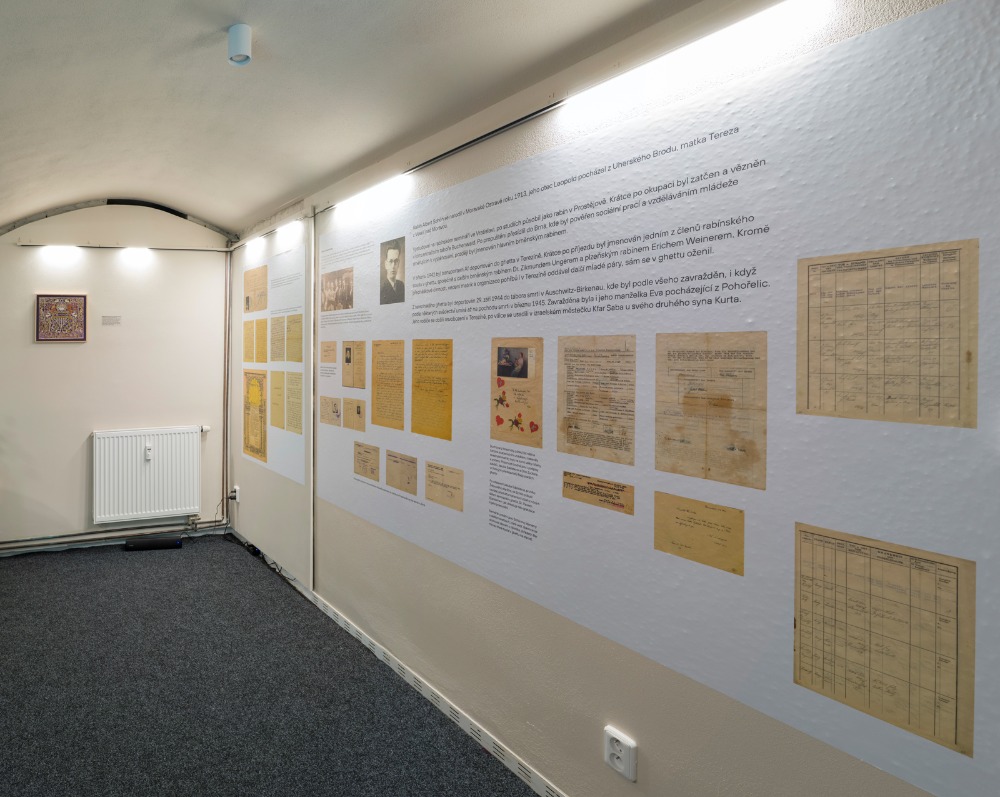
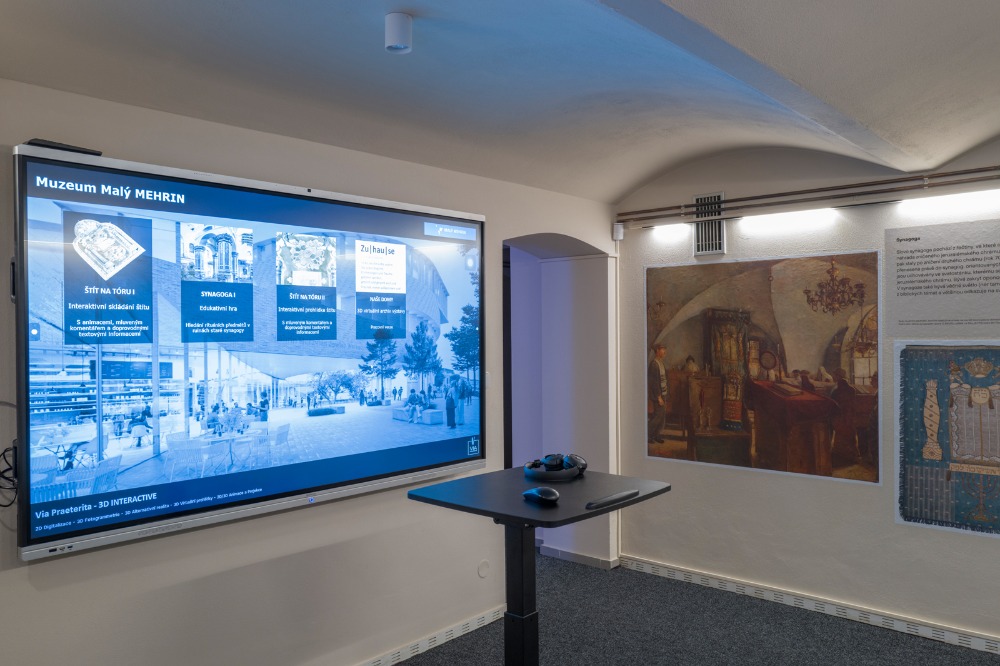
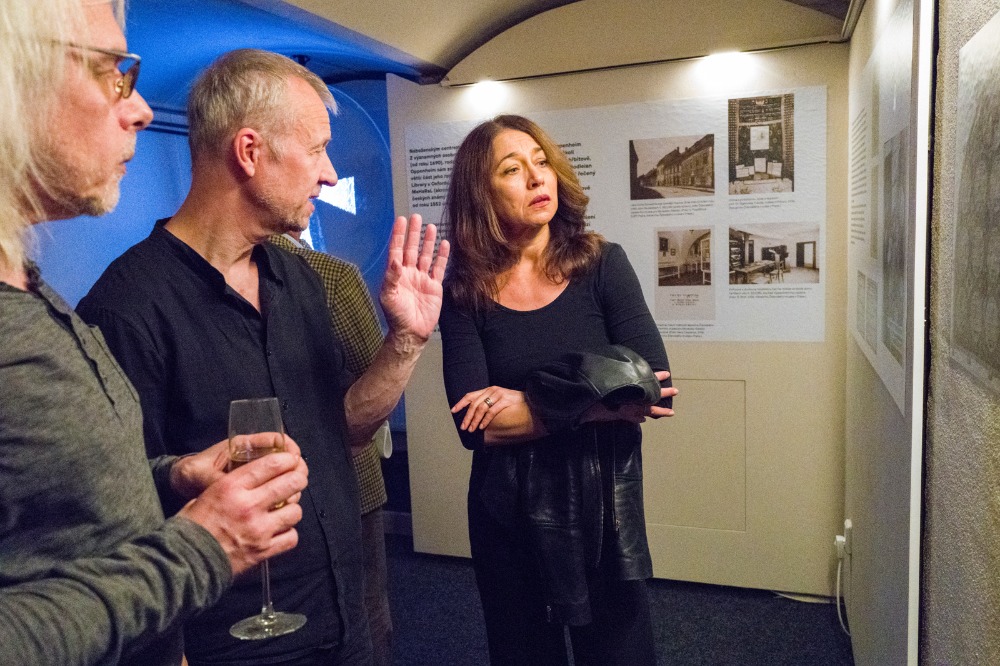
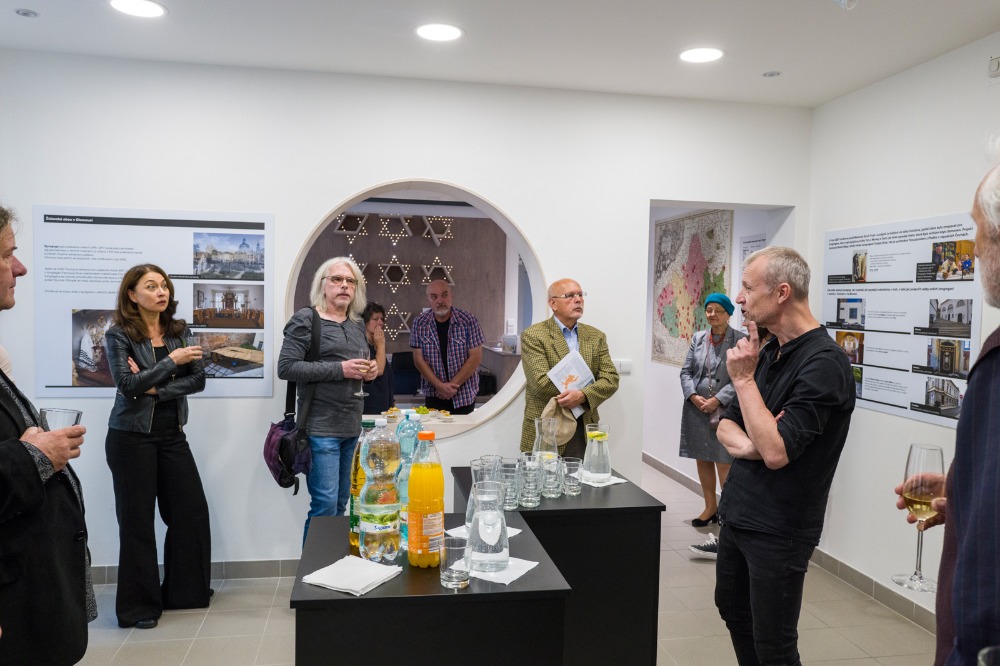
White Places of Jewish Moravia and Silesia
Already on Saturday, 11th May, in the early evening, some of the participants of the conference "White Places of Jewish Moravia and Silesia" gathered in Brno and had a dinner together.
some of the topics discussed. "After all, the long-standing deficit in primary source research offers a new generation of historians unexpectedly vast opportunities to
to think about our past without the old clichés and prejudices. We want to reflect together with you on specific locations, but also on
some interpretative narratives" - said in our invitation. And so, from Sunday morning onwards, the registered participants presented expert papers
not only to colleagues who came from all over the country, but also to the public. The dignified venue was provided by the allied Masaryk
University, and a packed lecture hall heard Michael L. Miller from the Central European University in Vienna speak on
Moravian Jews: a European perspective. We would also like to hold follow-up conferences in the coming years...
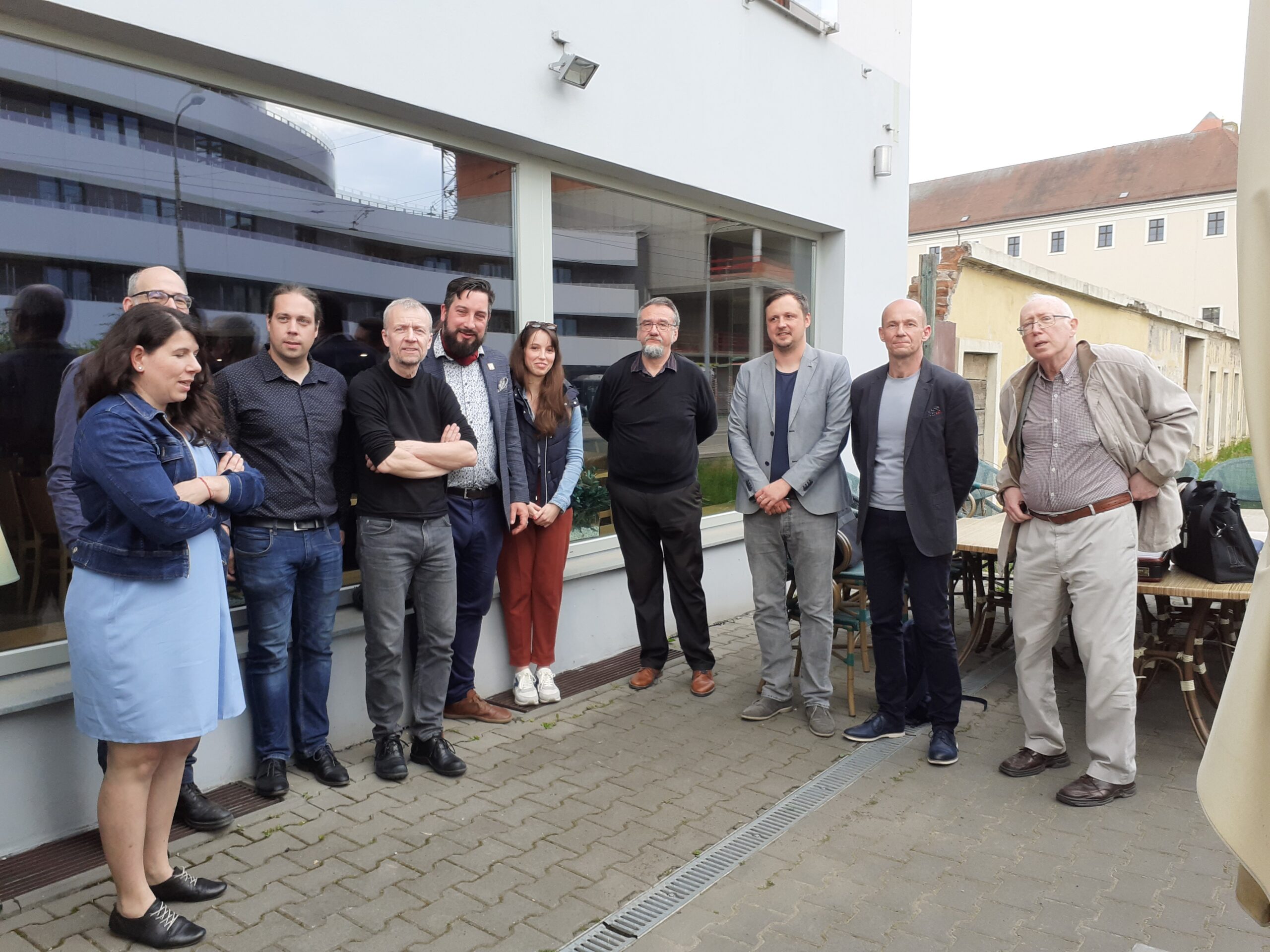
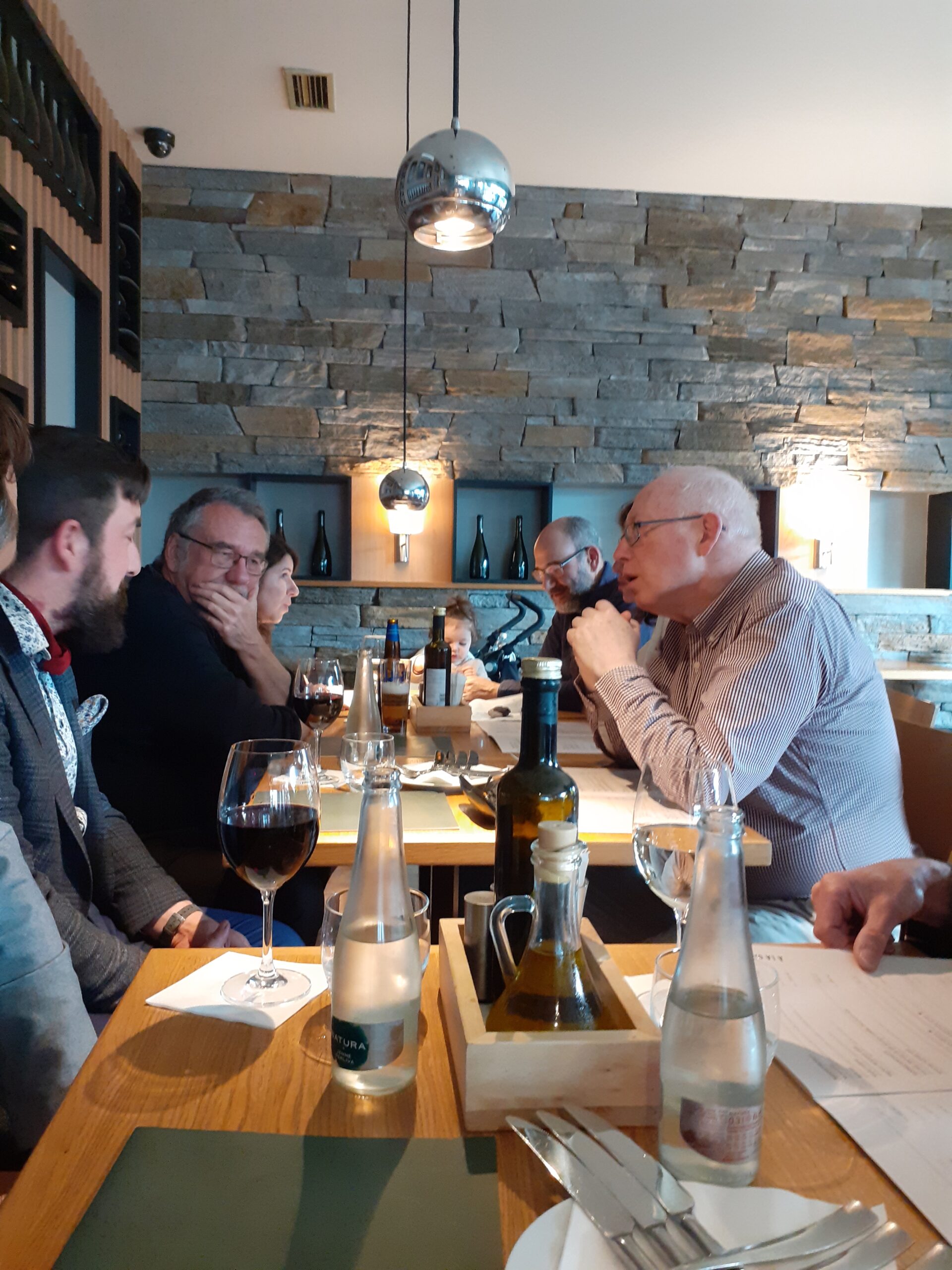
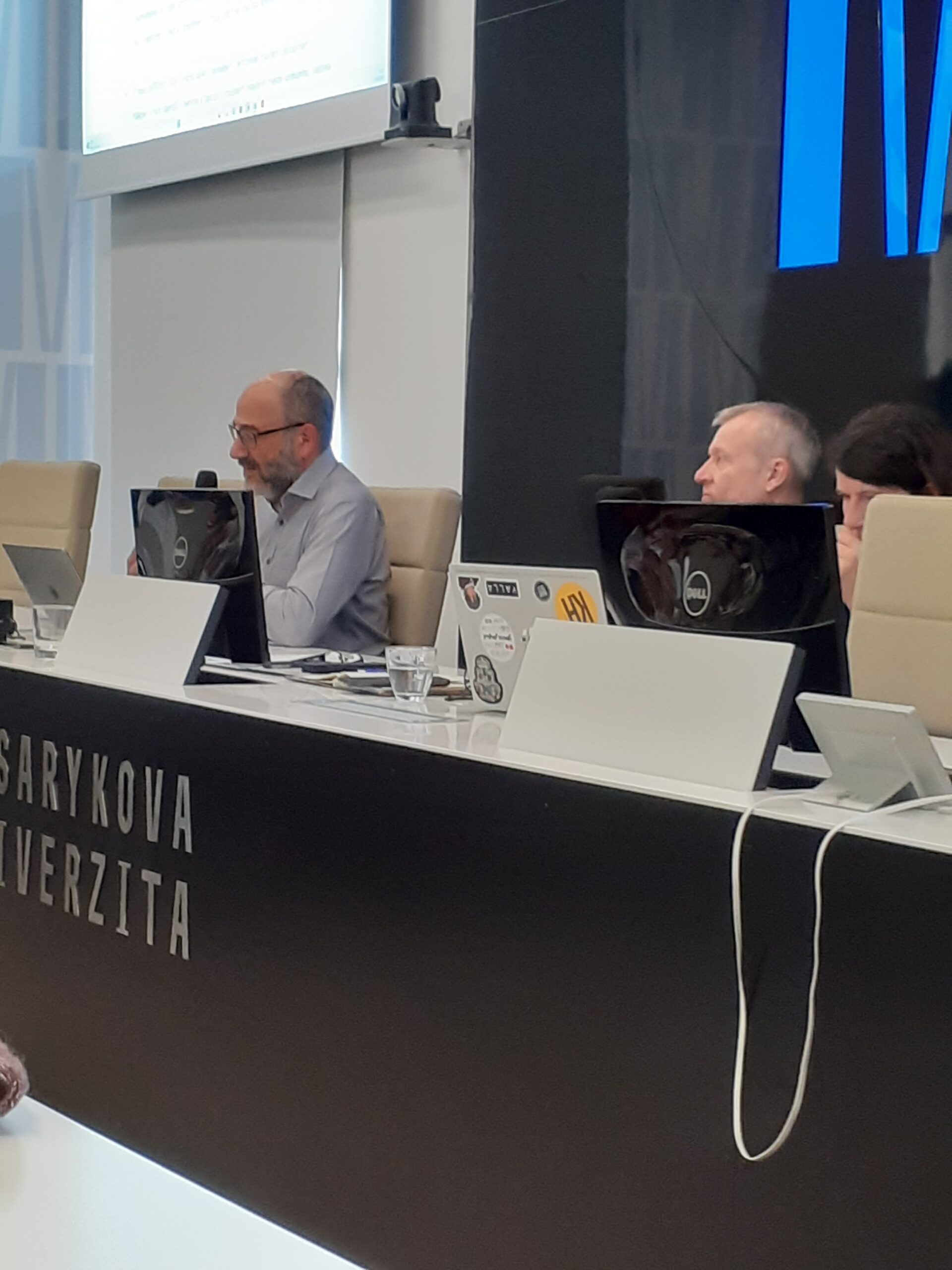
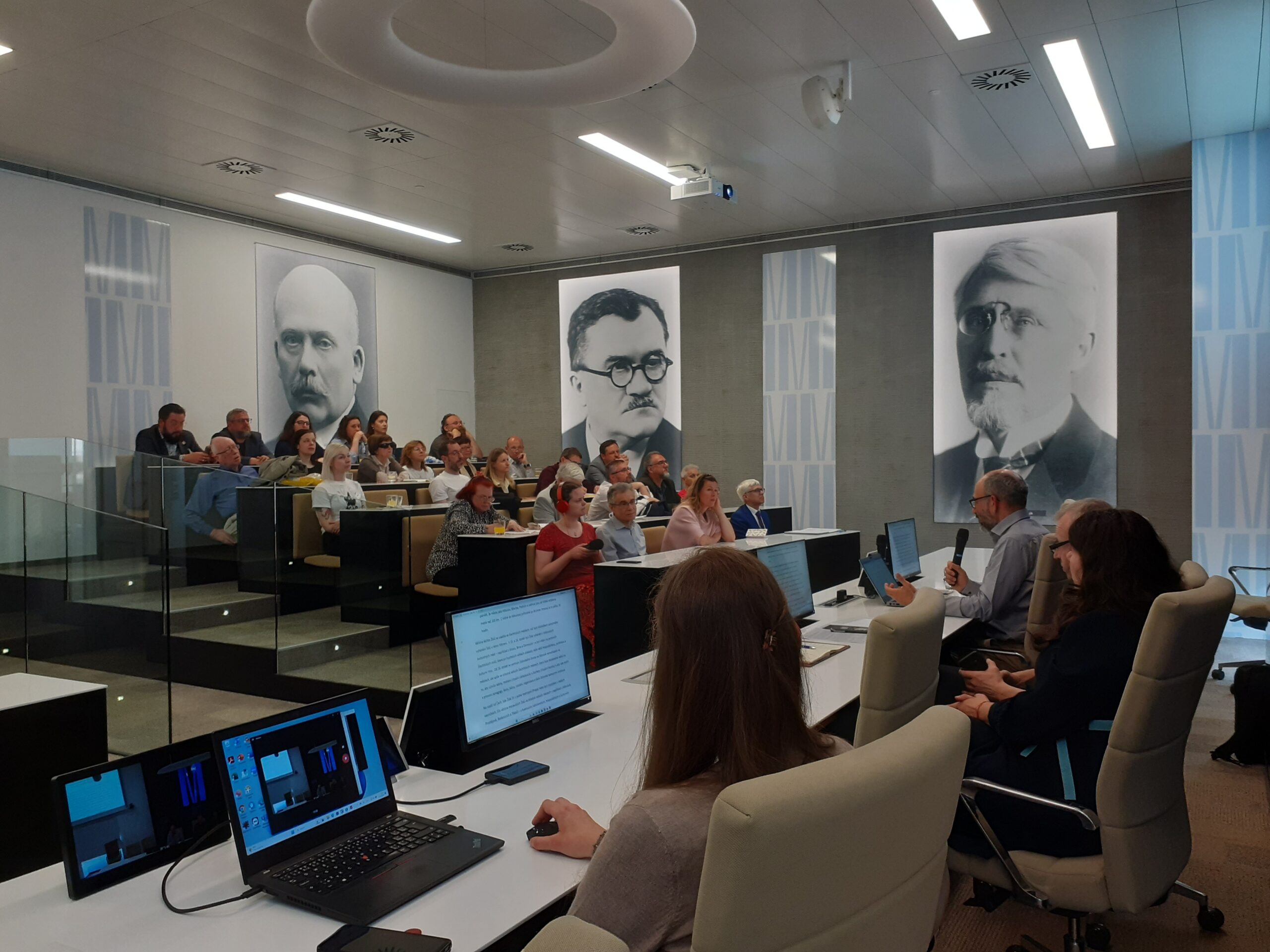
Jewish Cemeteries and Burial Rituals by Ahab Haidler
We invited Jaroslav Achab Haidler, a special storyteller, to the inspiring Café Kaprál on Tuesday 14 May 2024 to present his book Jewish Cemeteries and Burials, which was also available for purchase on the spot. Anyone who knows a little bit about Ahab's personality knows that he certainly won't get a serving of dry, emotionless interpretation, but quite the opposite. A wealth of information was presented to those present in a juicy and illustrative manner, as evidenced, in fact, by the accompanying photo documentation. Everyone left satisfied also because every question asked was answered, even at any time during the lecture. Photo: Roman A. Muselík and Jitka Králová.
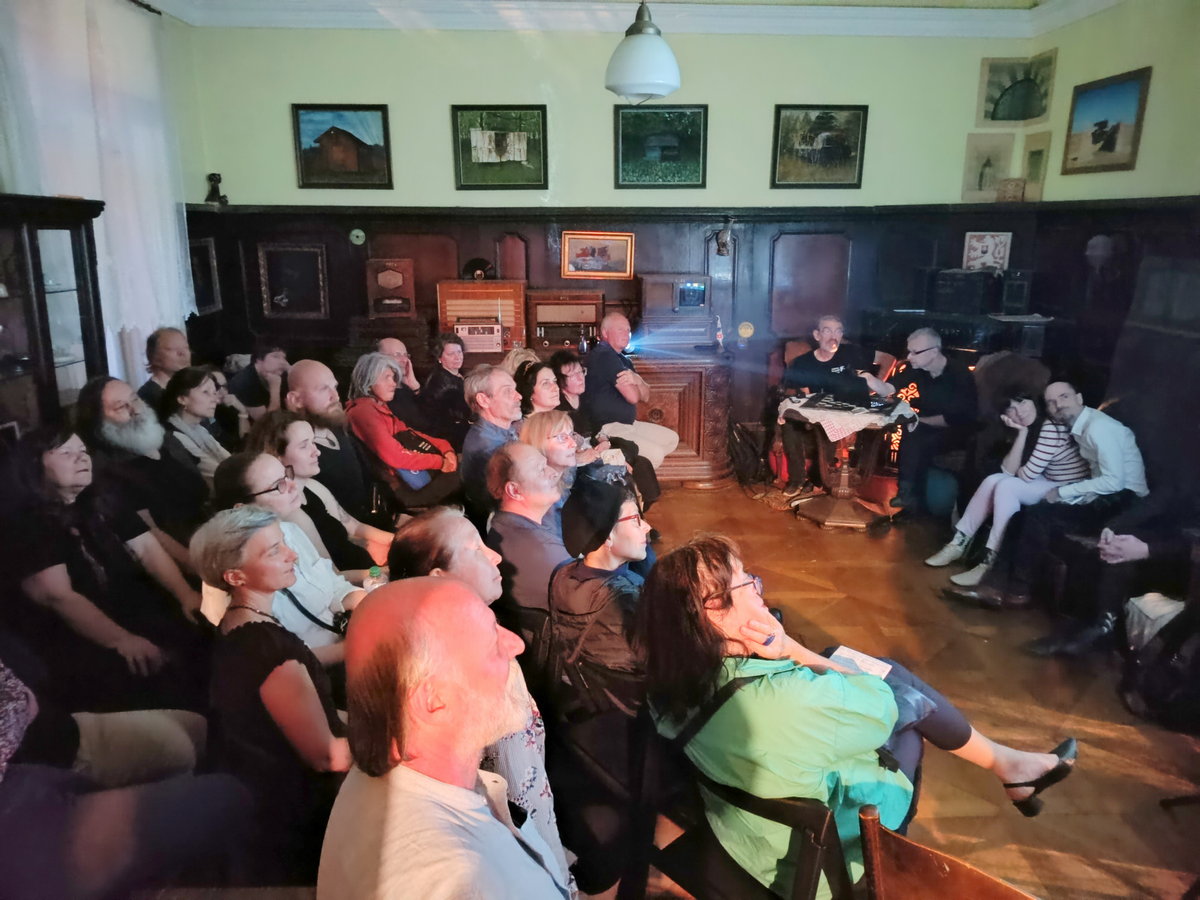
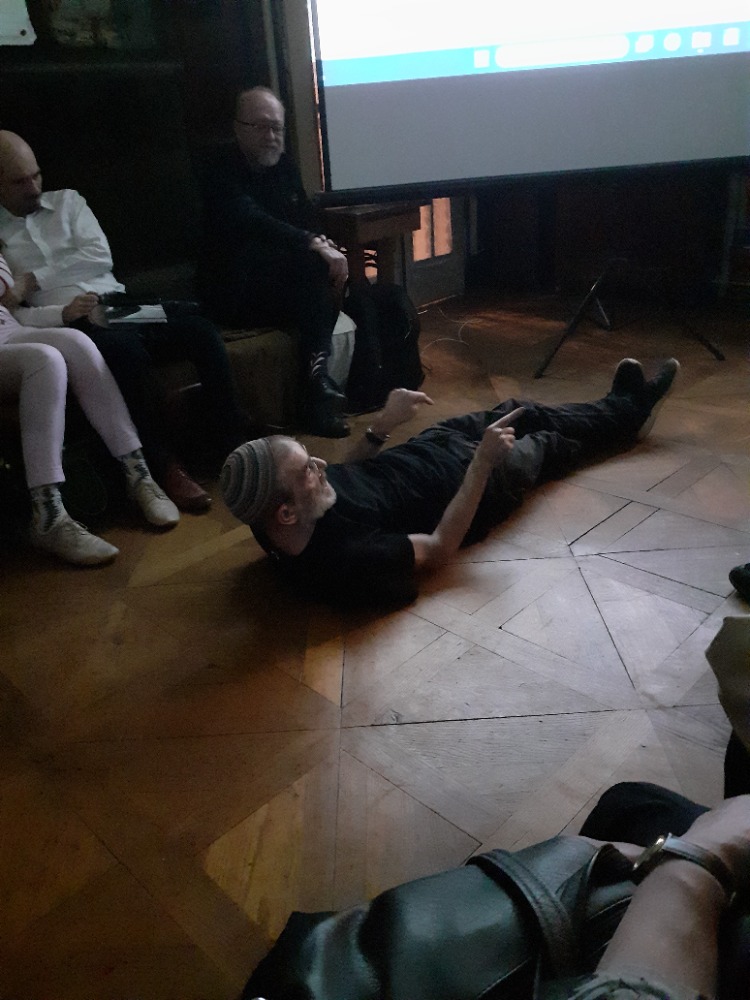
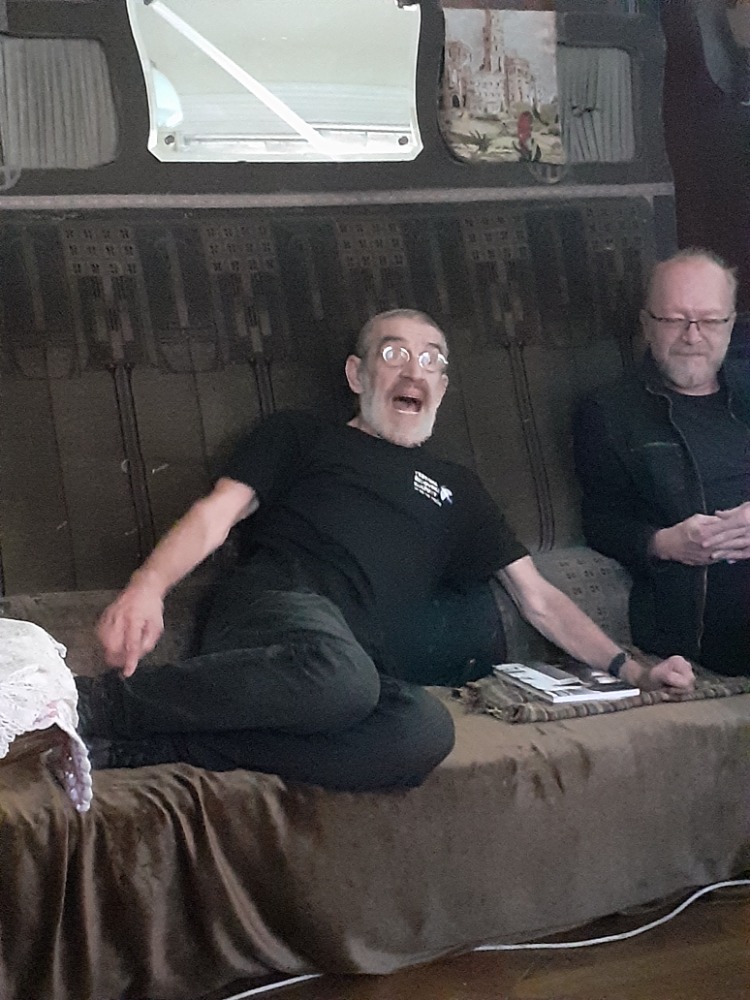
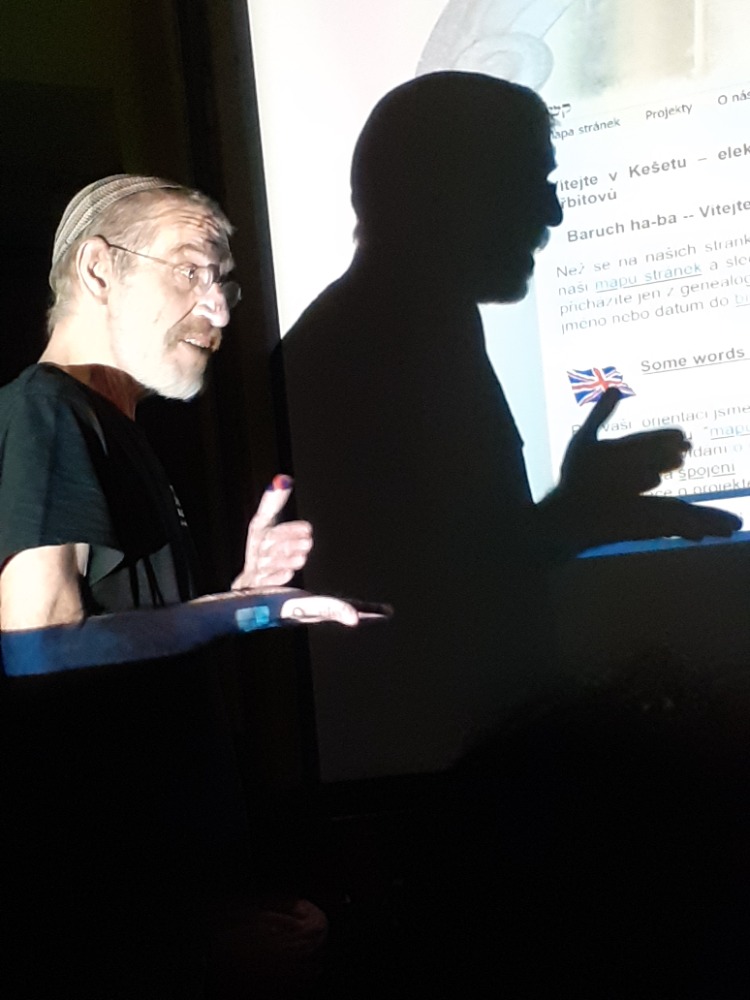
Places where Moravian Torah scrolls were at home; 1942-1964-2019
On Monday, May 6, 2024, we opened a new exhibition entitled Places Where Moravian Torah Scrolls Were At Home; 1942-1964-2019. Its author,
Julius Müller, named it so explicitly because in 1942 the Nazis confiscated and took Torahs from congregations throughout our territory to
collection point in Prague. From there, a large part was sold off by the communist regime in 1964 to London, where the Memorial Endowment Fund was established.
Scrolls Trust) to commemorate the vanished pre-war Jewish communities. In 2019, the author of the exhibition, together with photographer and volunteer
fund Sheila Pallay wandering through the current places, ...where the Moravian Torah scrolls were at home... The exhibition consists of 13 panels, which can be lent to interested parties for further display after the exhibition ends in September 2024.
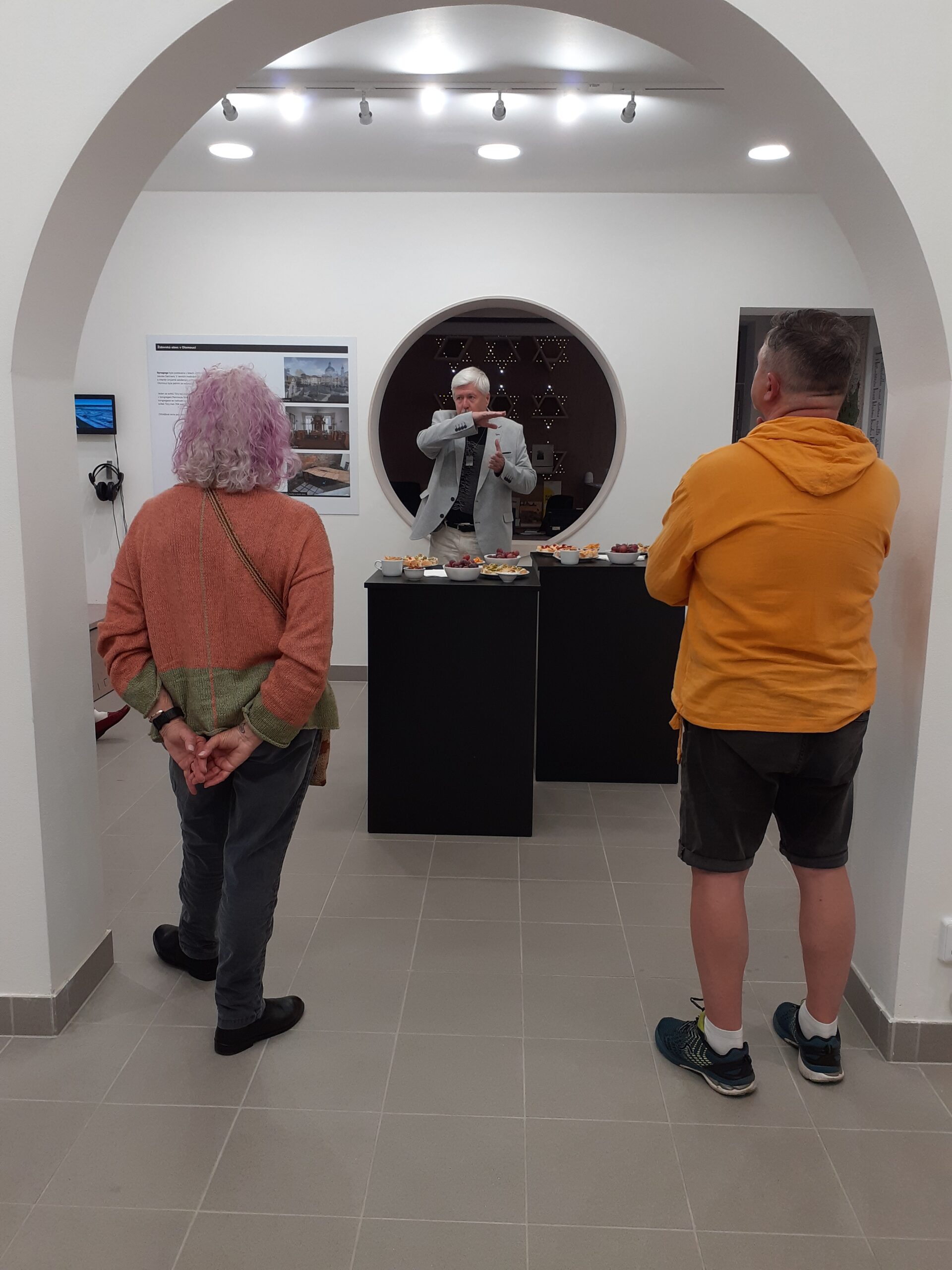
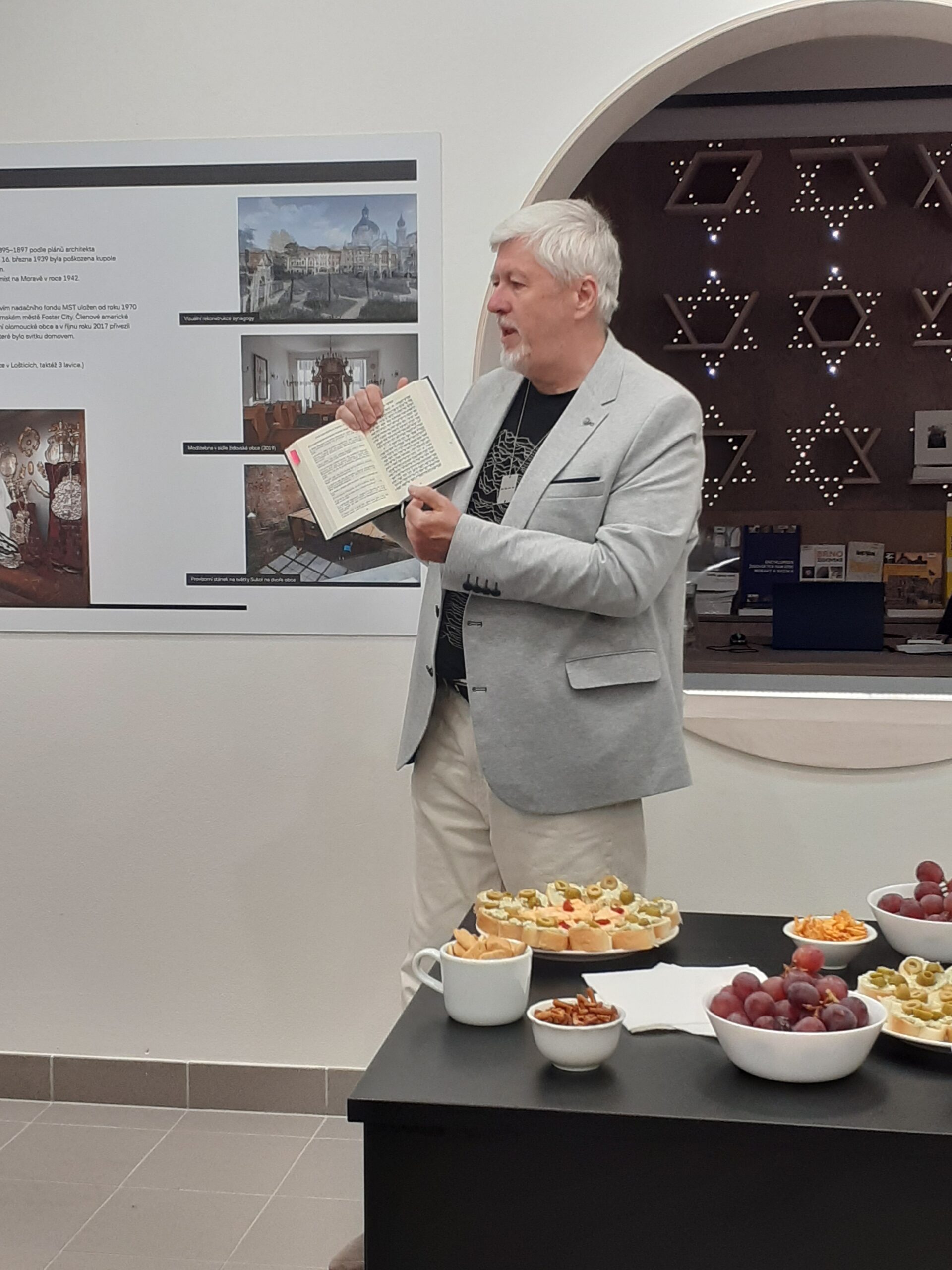
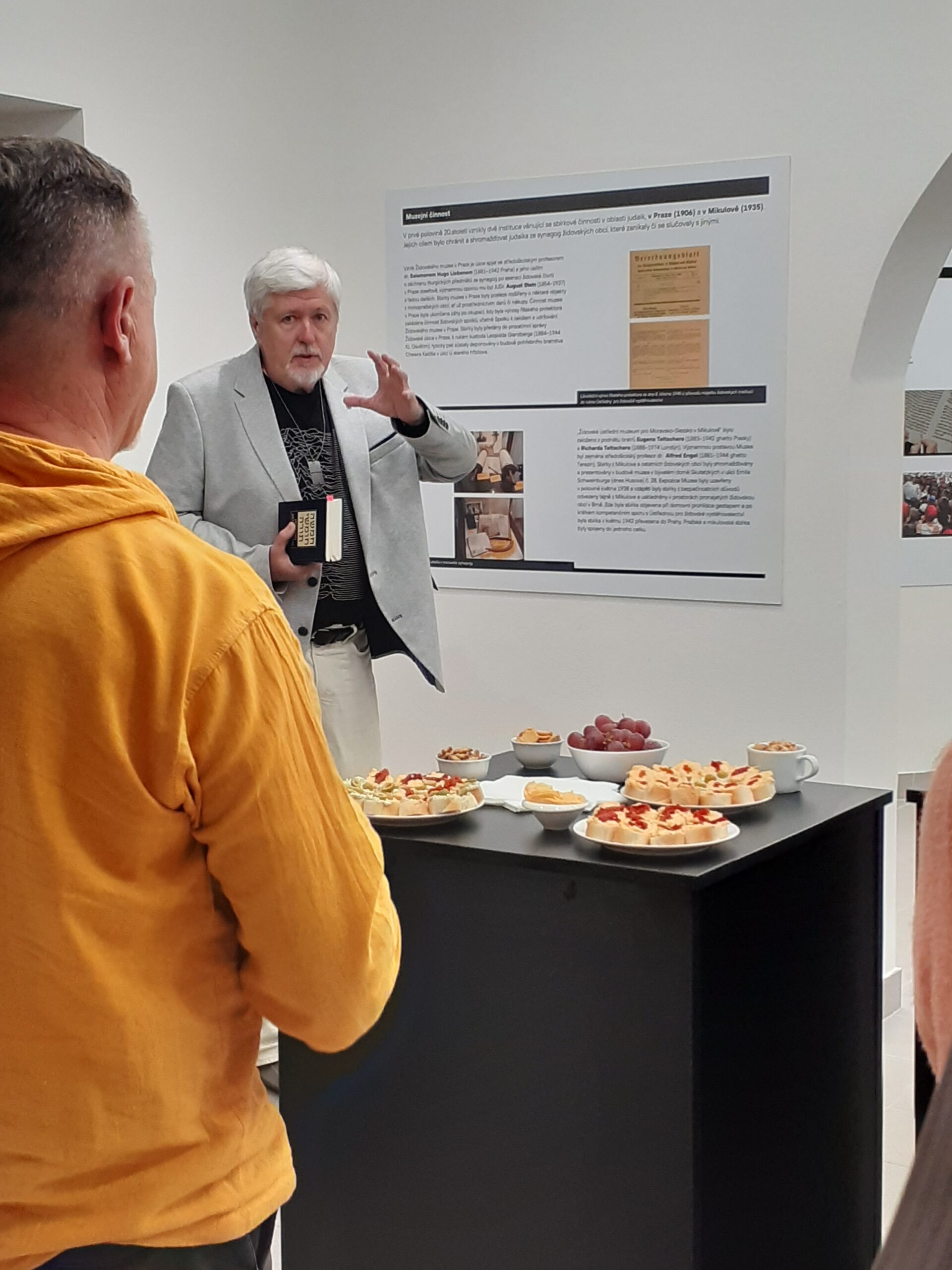
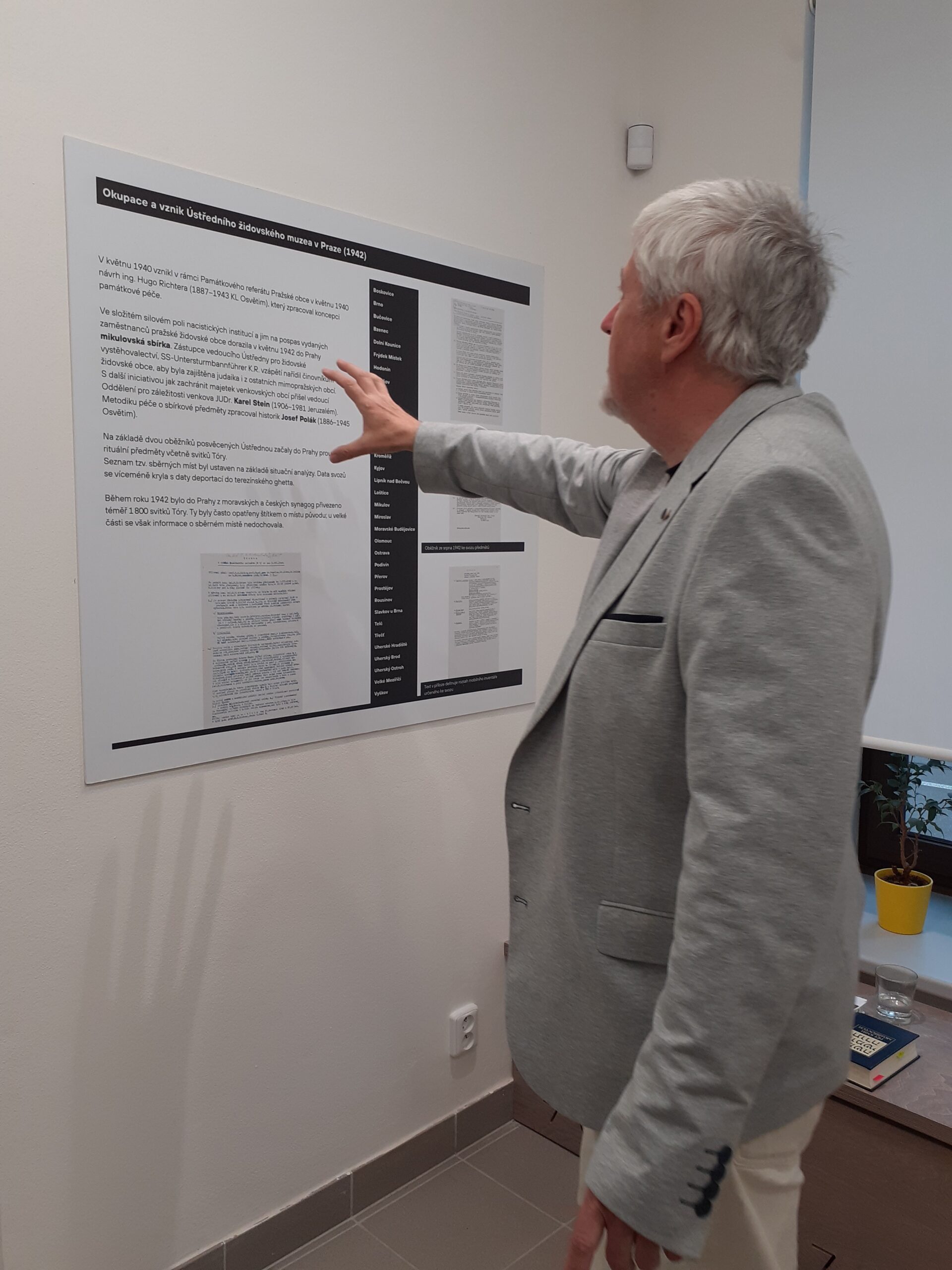
Fioretta on April 28, 2024 at the Art Cinema
Although it was a sunny Sunday, a lot of people came to the screening of Fioretta at the Art Cinema in the late afternoon. The attraction was the promised personal presence of its protagonist - Randy Schoenberg. He took his almost grown-up son with him on the trip to Europe, who also attended the filming of the movie. In the film, American director Matthew Mishory presents a piece of history seen through the lens of the family story of Randol "Randy" Schoenberg, who is the grandson of Austrian-American classical composer Arnold Schoenberg, but who has also been obsessed with genealogy since childhood. In this cinematic travelogue, Randy and his son Joey crisscross Prague, Vienna and Venice, gradually uncovering fascinating details of his family's Jewish past...
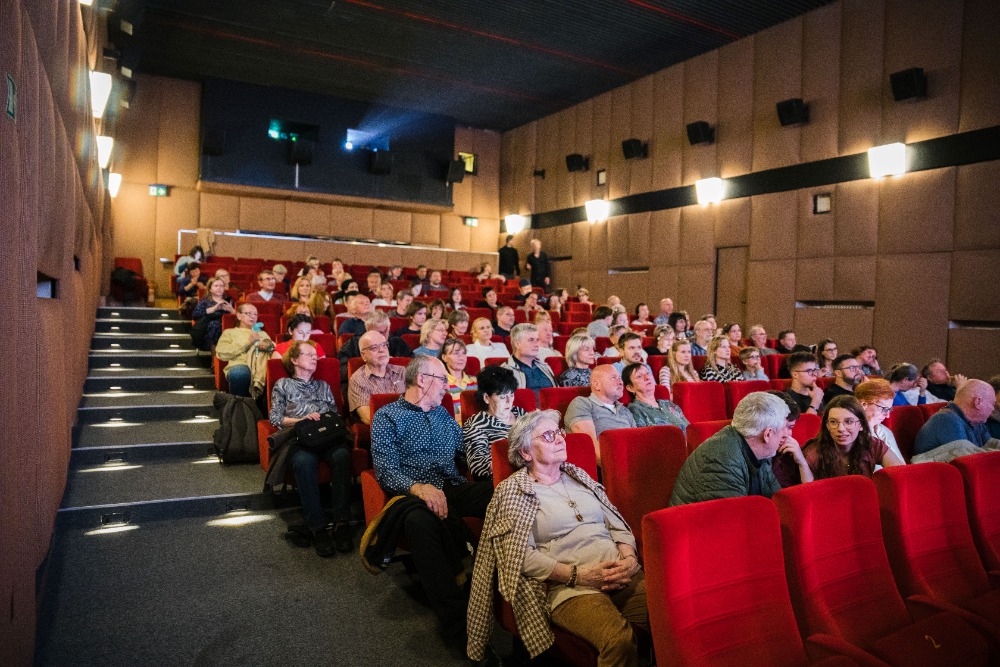
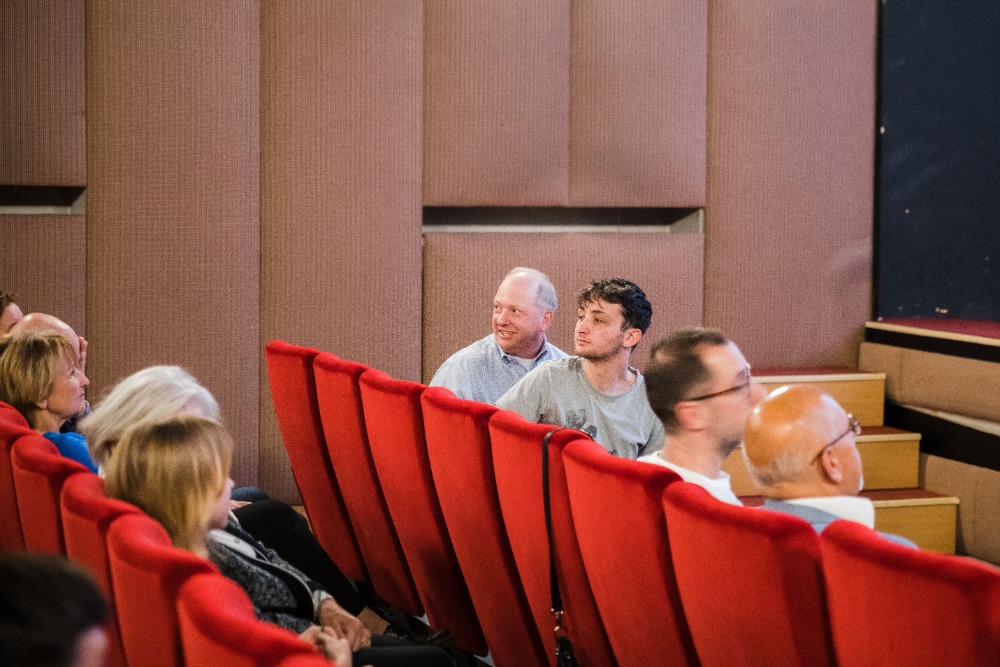
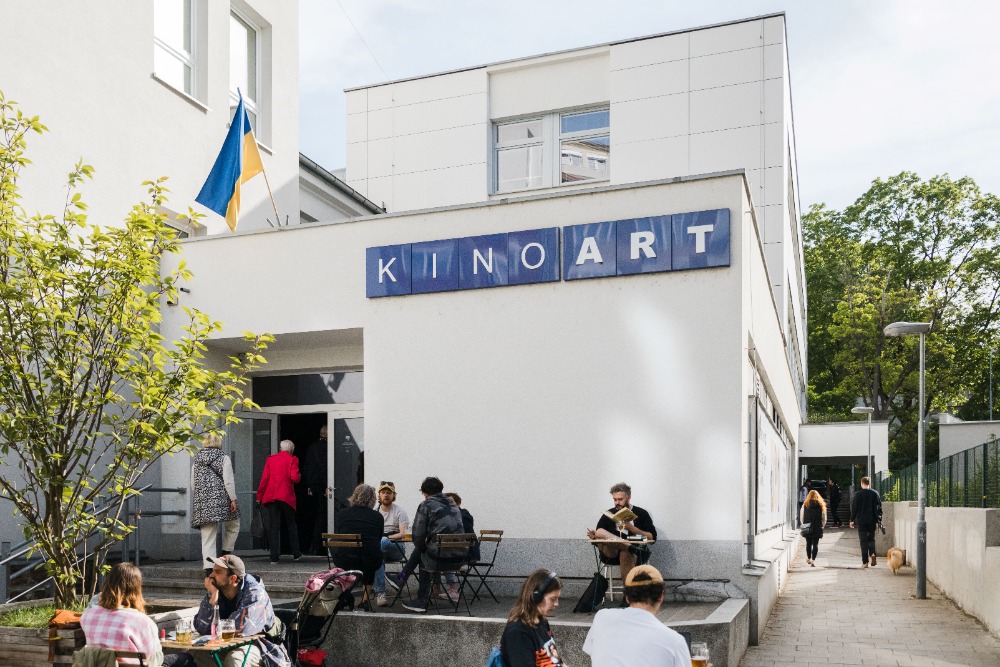
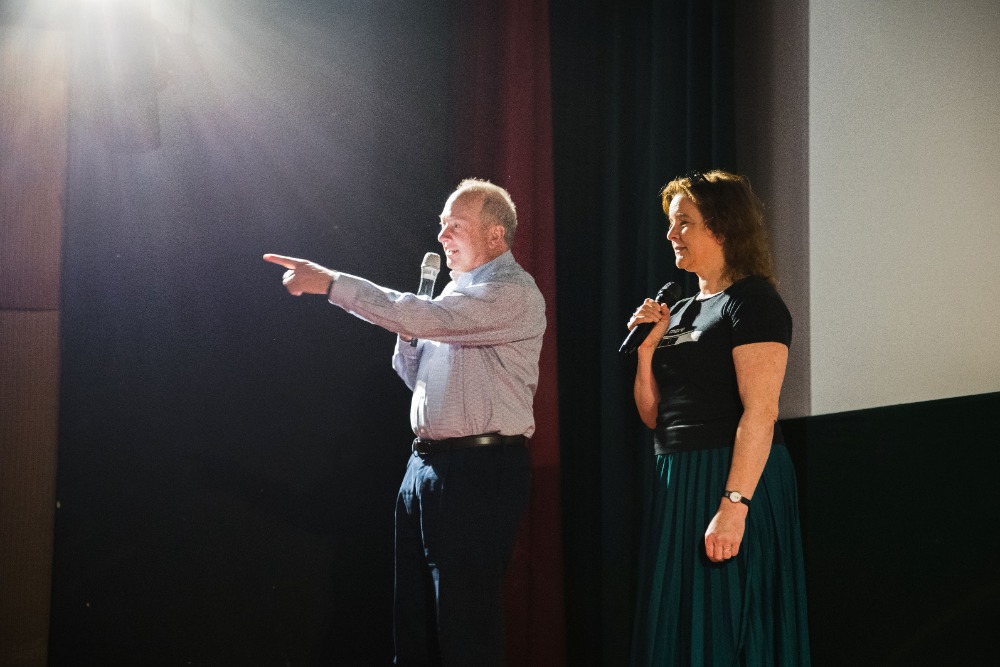
Citizens of no man's land. Invisible refugees of 1938.
Invisible refugees in 1938 One of the topics that historian Michal Frankl has been dealing with for a long time is the fate of Jewish refugees who were stripped of their citizenship and expelled by one country and not accepted by another. His lecture was thematically based on the book Citizens of No Man's Land: Refugees and the Shifting Borders of Central Eastern Europe 1938-1939, which he wrote and which you will be hard pressed to find anymore. It tells the almost unknown story of the Jewish refugees of 1938-1939 who lived, or rather languished, in no man's land, in forests and hastily built slums; no one cared about them.
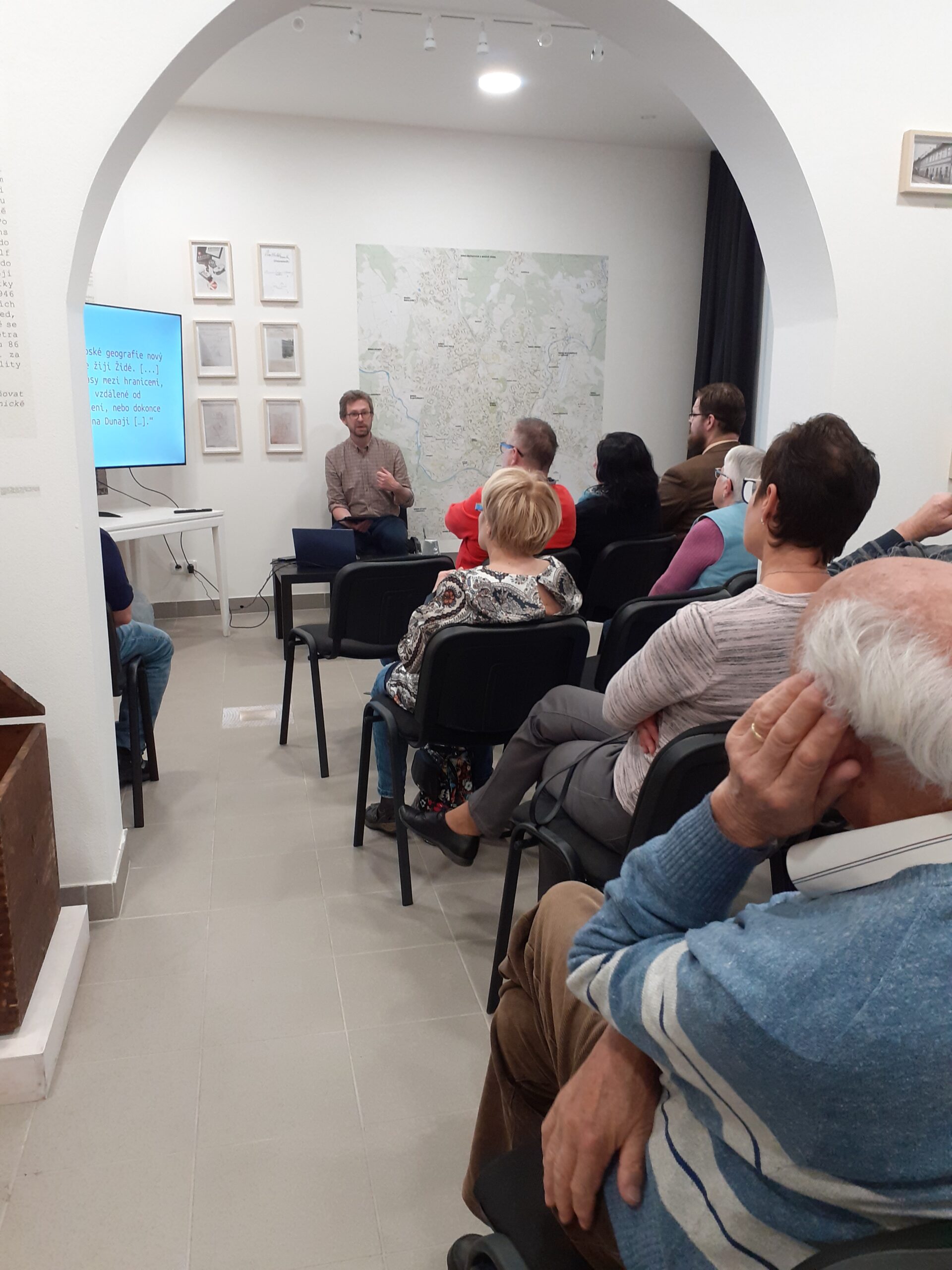
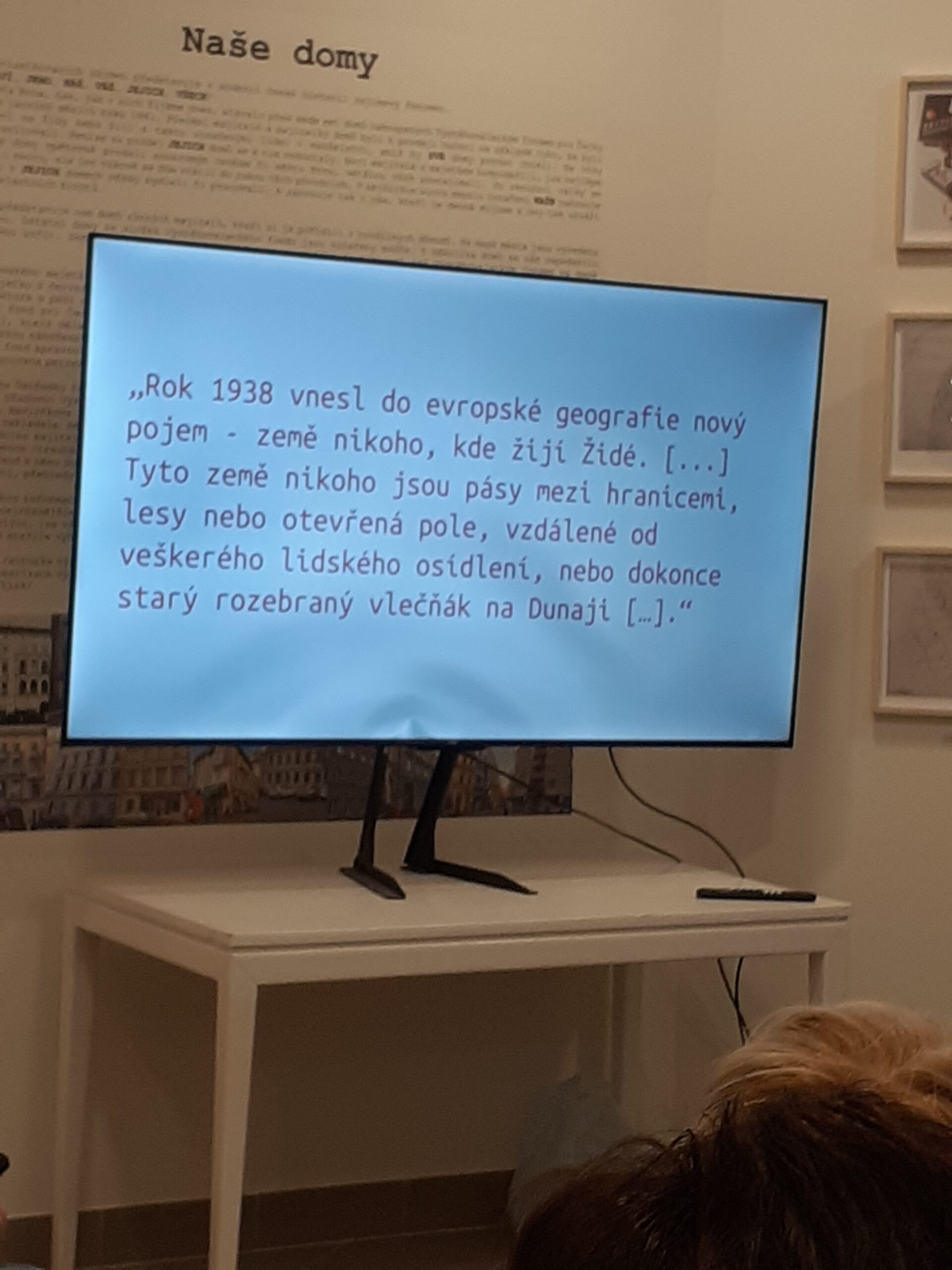
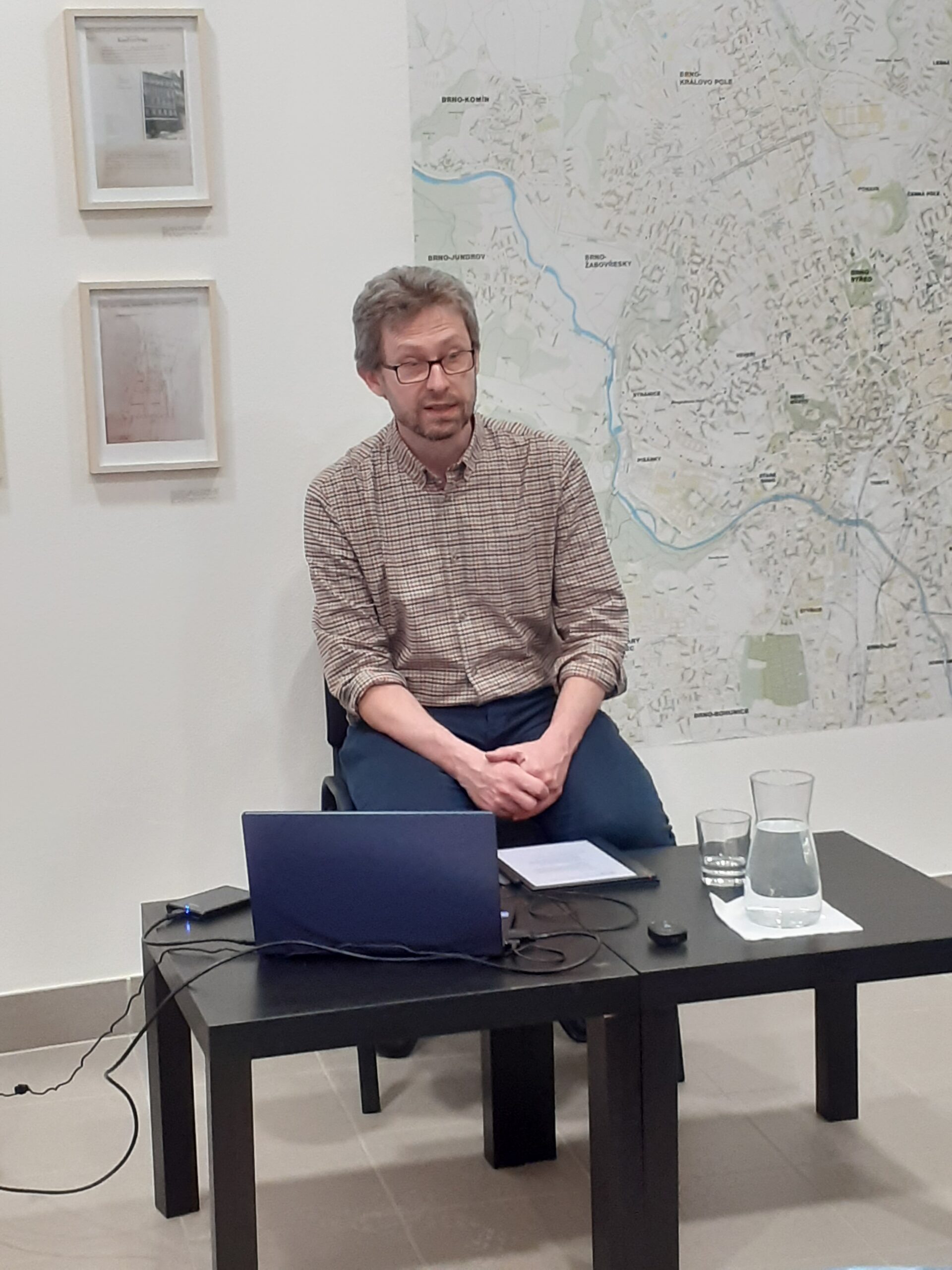
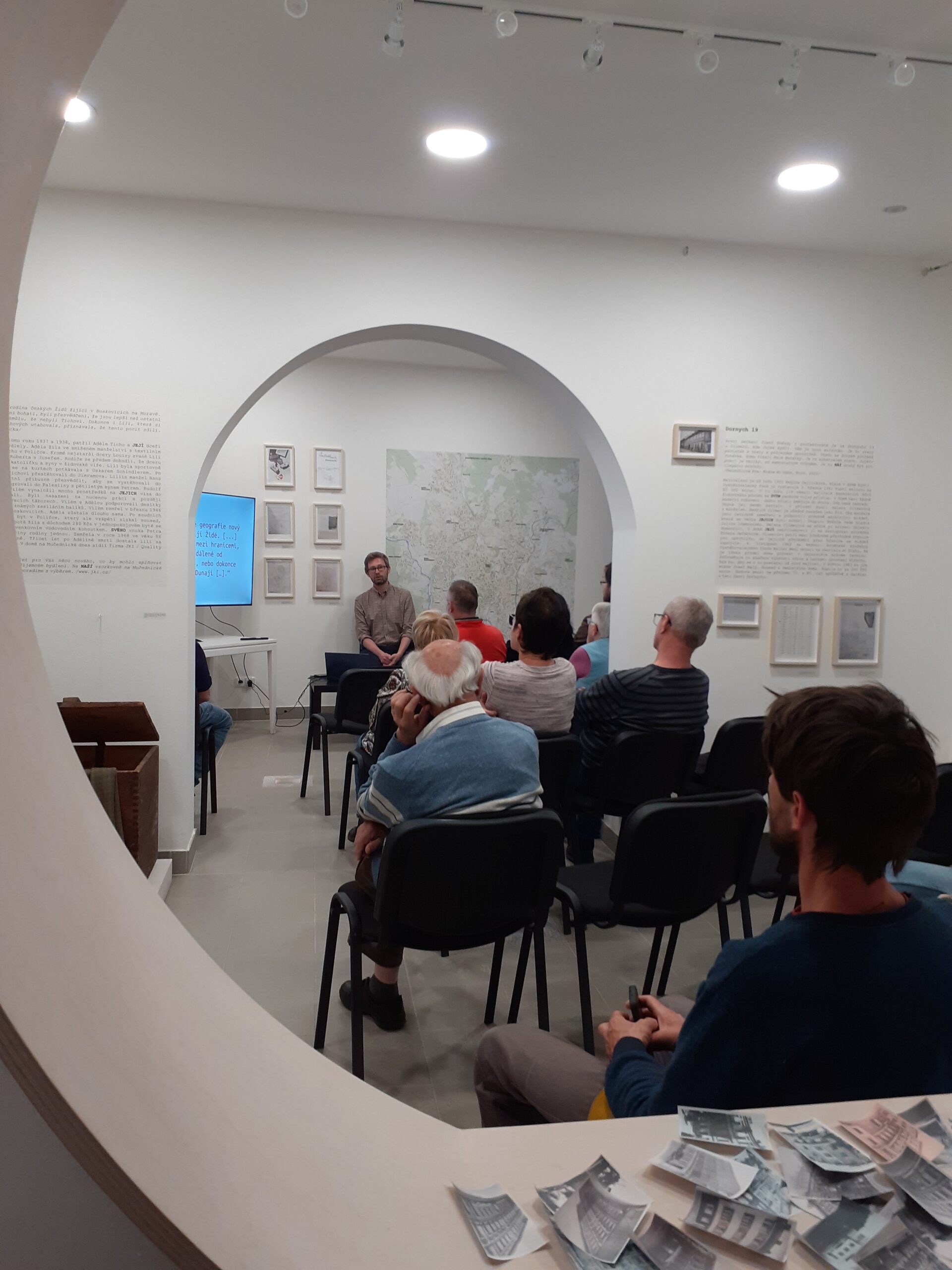
For a sandwich at Hahn's
We are already working with various Moravian Jewish stories as part of our reflections on the future exhibition of the Mehrin Museum. One such story was heard on Thursday, April 4, 2024, at the Malý Mehrin, where Táňa Klementová had an erudite discussion with Prof. Jiří Hála, the grandson of the Brno delicatessen owners Hahn, who describes himself as belonging to the one and a half generations of memoirists. He was imprisoned in Terezín as a child. He was lucky enough to spend most of his time in the ghetto by his mother's side. He returned home with both parents after the war, which profoundly influenced his own reflection on the Holocaust. He complemented this by reflecting on what his parents and grandparents, exposed to far more difficult situations, had experienced. The narration of the stories of the Hahns and Herschmanns was supplemented by rich pictorial material from the family archive. The topics discussed also touched on the post-war period and Mr. Hála's professional and personal life up to the present day. Thanks for the pleasant company!
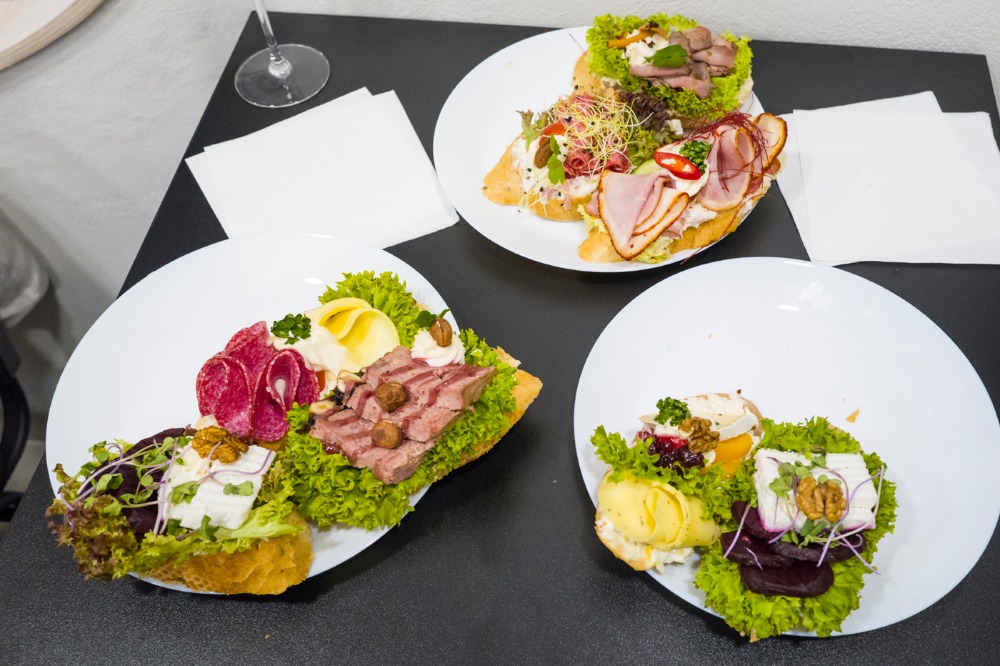
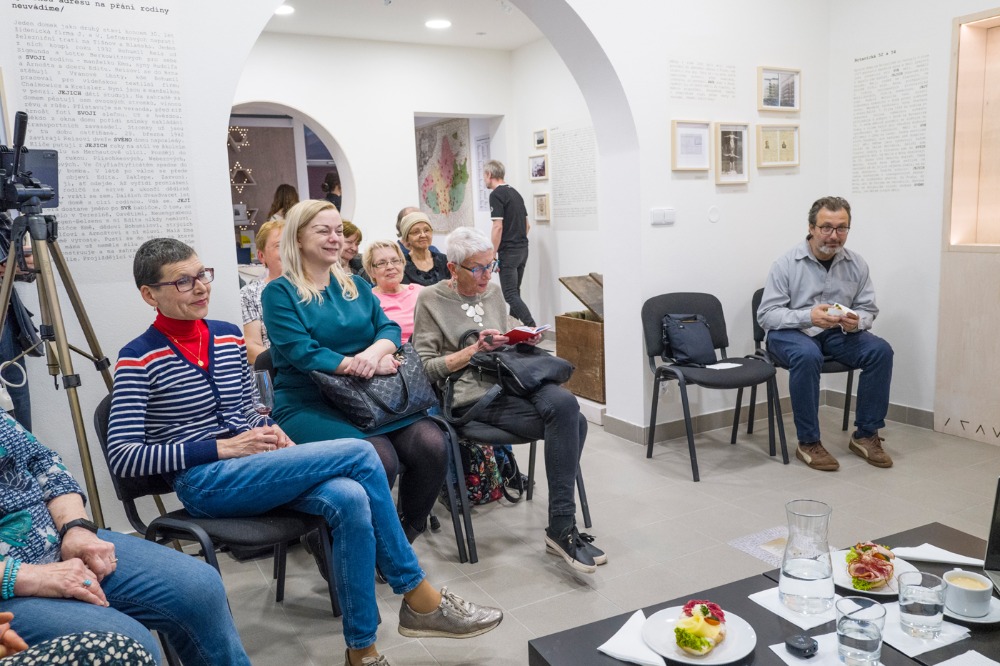
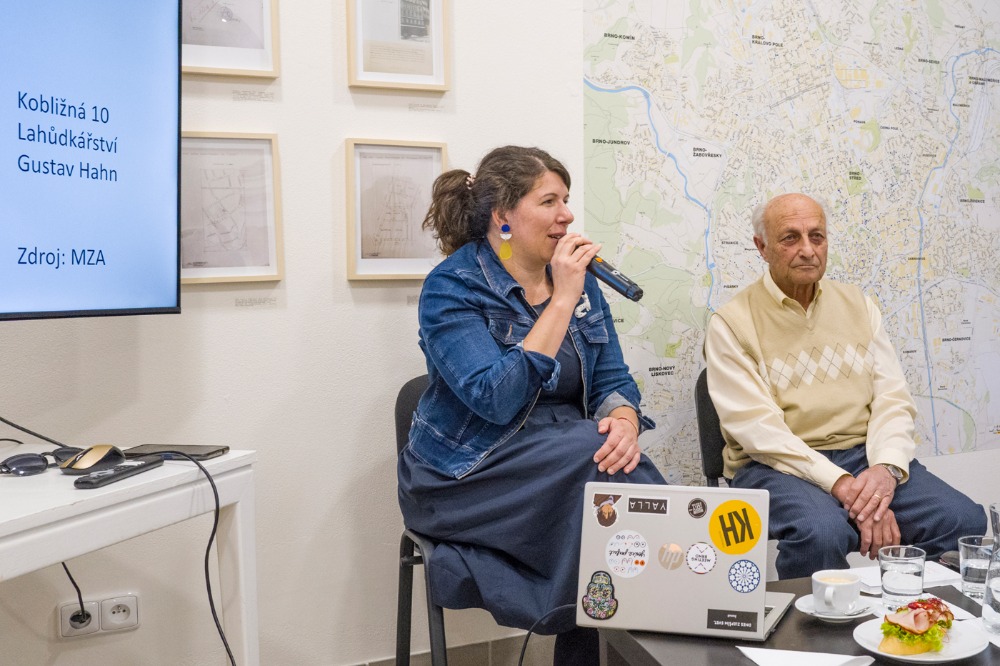
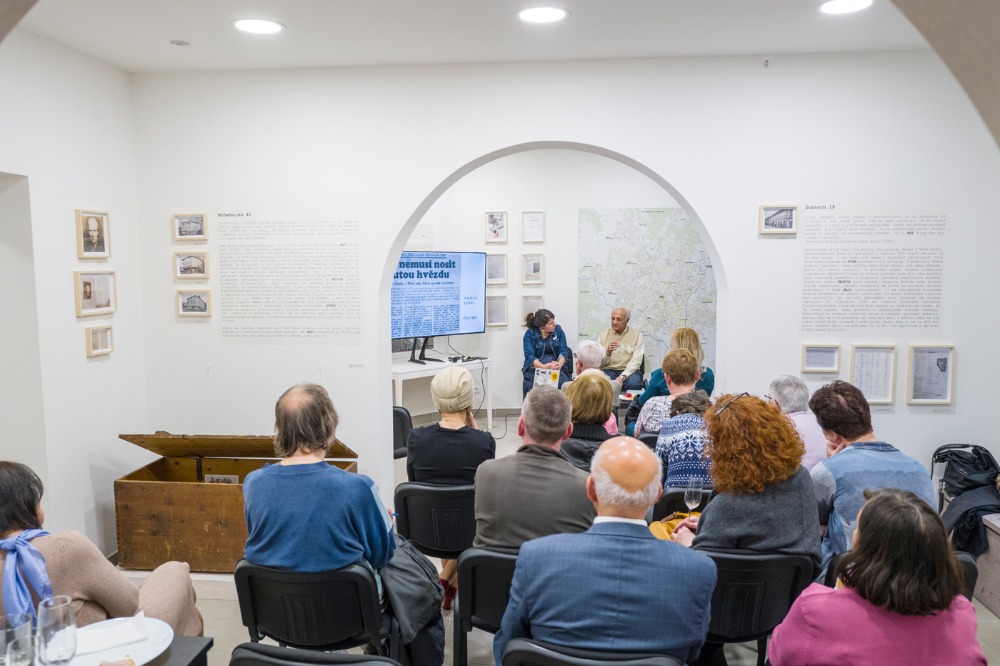
Genealogical research - the journey there and back again
On Monday, March 25th, we invited Julius Müller, founder and current director of Toledot (Hebrew for generation), a center for Jewish genealogy in Prague. He not only lectures but also publishes on the subject of Jewish genealogy, the science that examines the relationships between individuals resulting from their common ancestry. He actively conducts research for those who want to learn more about their ancestors. The lecture brought together those who are interested in the question of searching for background information, especially in the archives, and therefore many specific questions were asked both during the lecture and after its official end.




Family heirlooms
On Monday, 11 March 2024, two invited ladies - Eva Lustigová, daughter of the writer Arnošt Lustig, who presented a book about her father called Arnošt's Journey, as well as other projects that develop her father's legacy - talked about how to deal with the family heritage that has been handed down to us. The second invitee was Karen Kruger, who lives in the USA, granddaughter of the Türkle family from Brno, who visits schools not only in the USA but also in our country with dozens of letters that have come to her as part of her heritage and is positively surprised how the original letters she lends evoke unexpected emotions in her students. It was the idea of historian Tania Klementová, who expertly moderated the whole discussion, to focus on this topic and invite both women. Thanks to her, there was a mutual and unique harmony between the audience and the speakers, and the two invitees talked with the visitors for a long time afterwards.
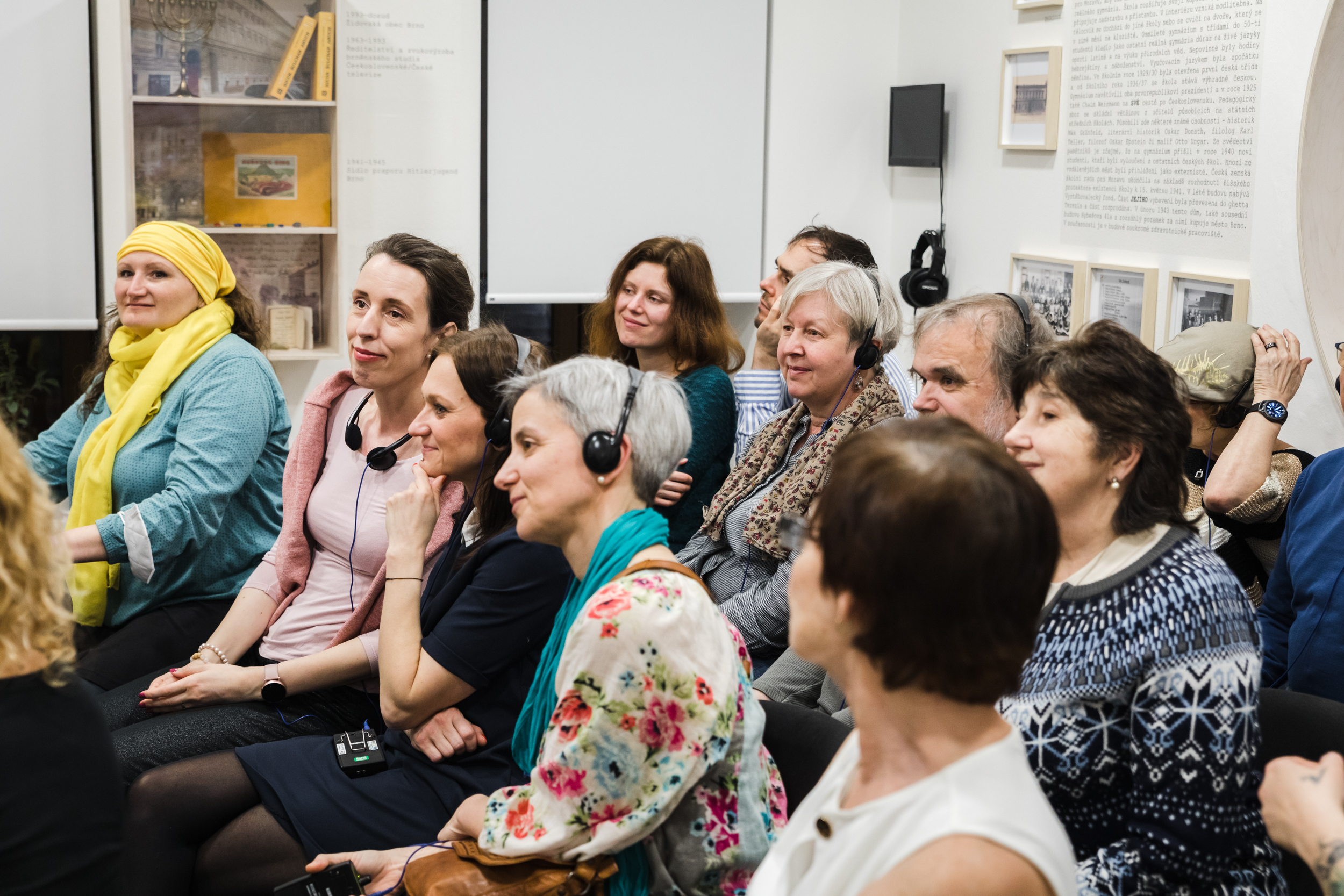
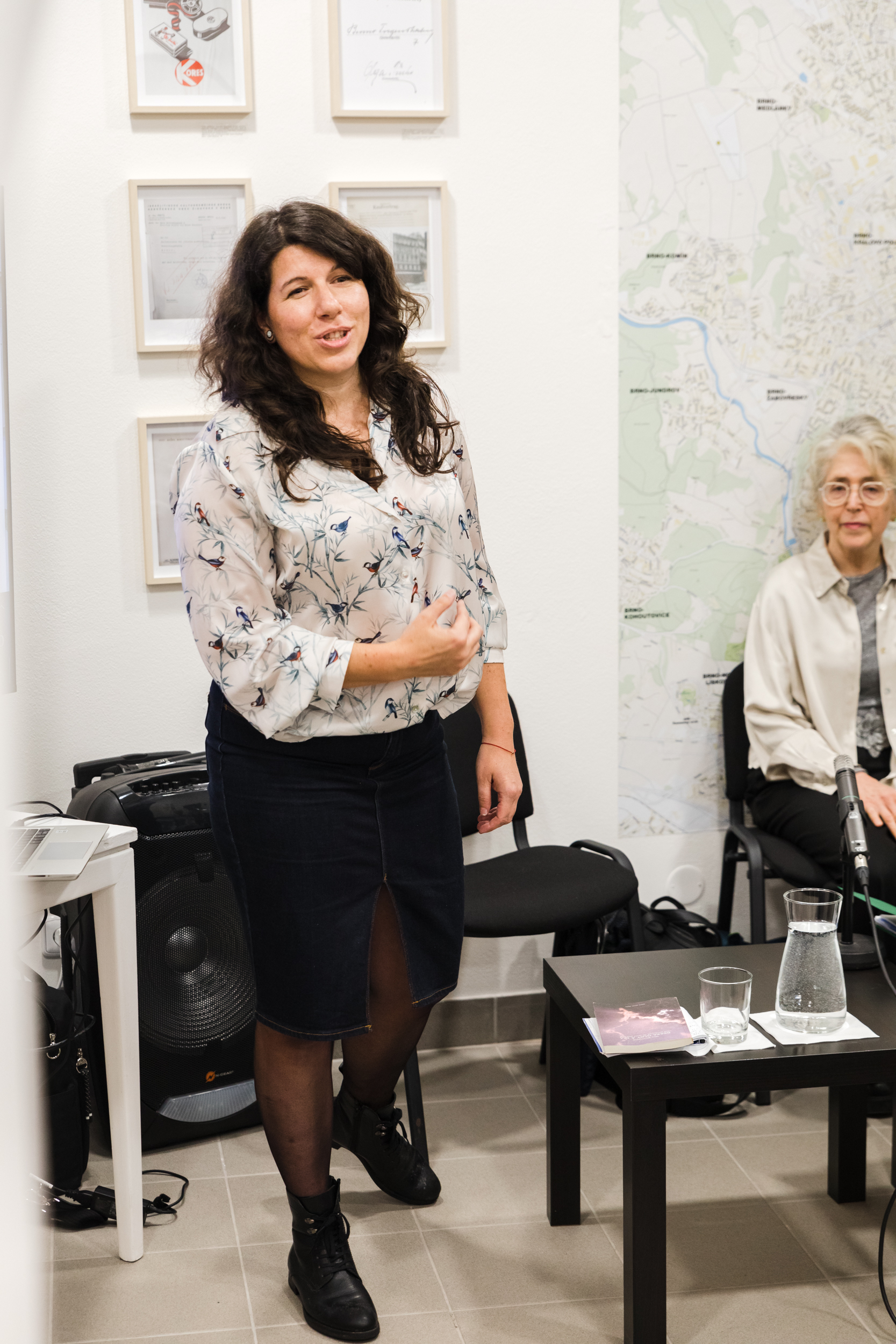
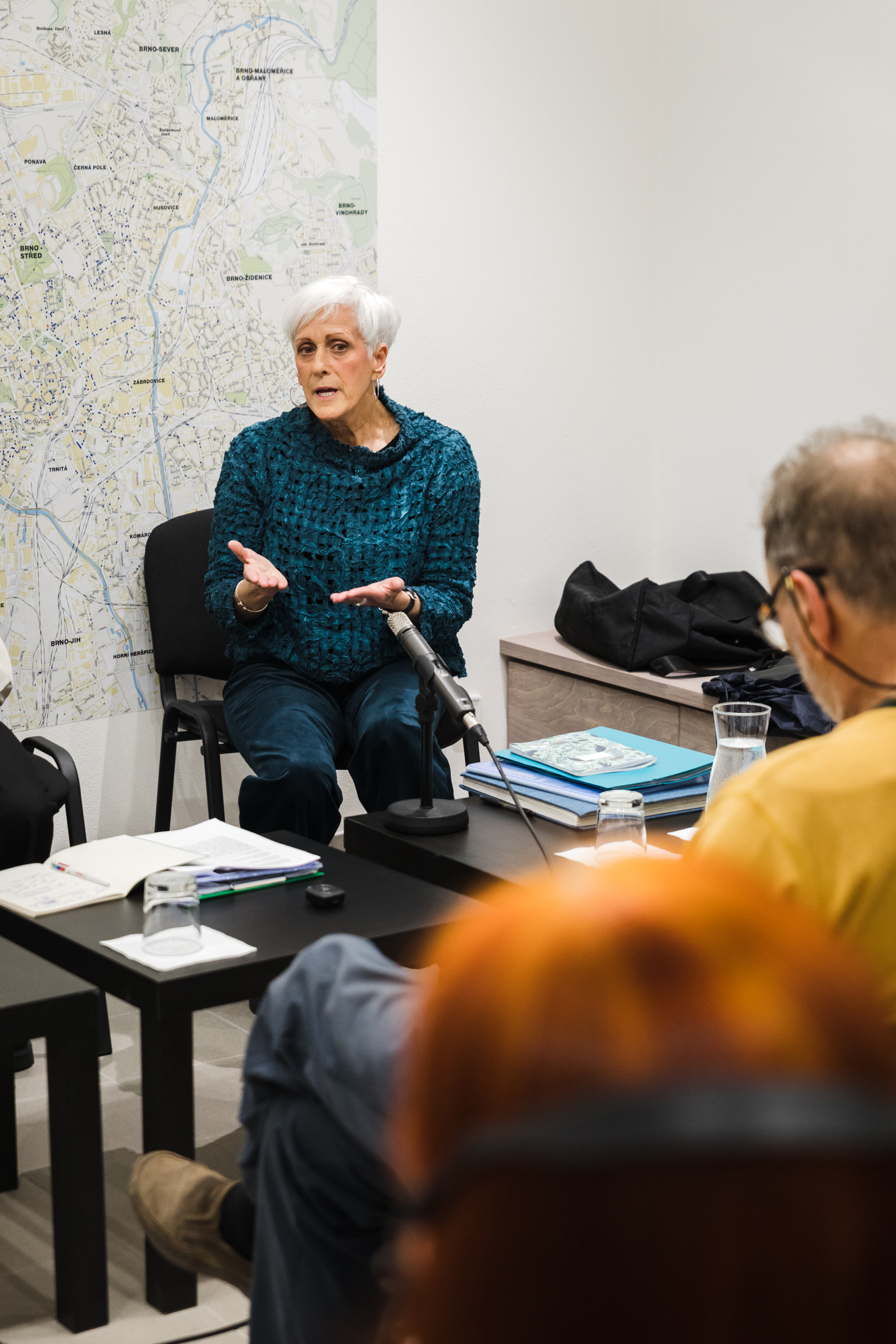
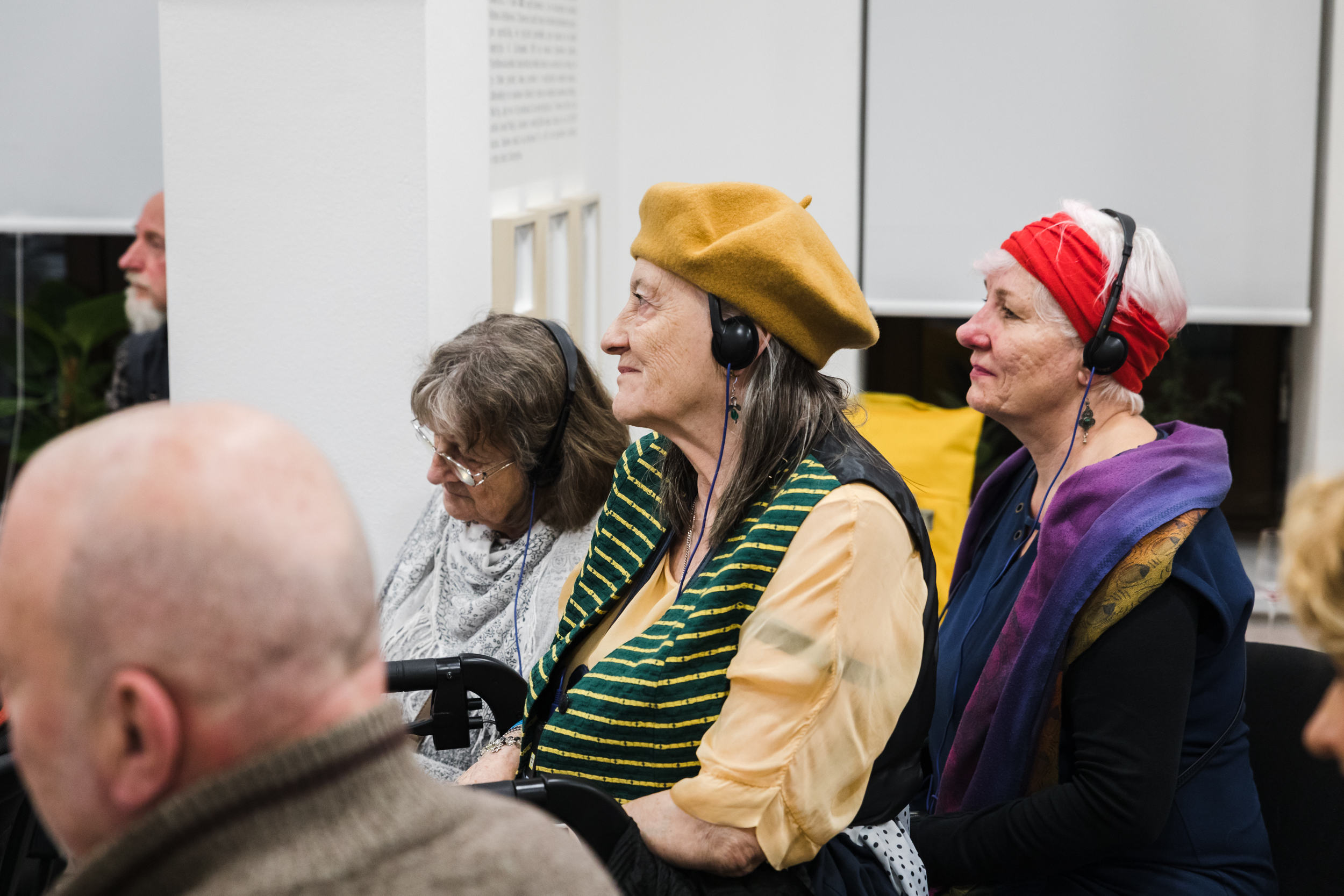
Shoah in Czech Radio play
We have addressed the topic of the Holocaust from many angles in our programmes. Přemysl Hnilička's lecture brought a slightly different perspective, based on artistic audio recordings of Czechoslovak and later Czech Radio and other radio stations, which from the 1960s to the present have broadcast plays by authors such as A. Lustig, D. Fischerová, Z. Rotrekl, M. Uhde, A. Goldflam and others. They were dominated by the voices of O. Scheinpflugová, Z. Štěpánek, R. Hrušínský, E. Cupák, J. Adamíra; in the contemporary ones, V. Javorský, L. Veselý, M. Táborský and J. Plesl. Let us not forget the Brno trace in the form of the voices of D. Hofmanová, L. Lakomý, F. Derfler and J. Grygar. We believe that further searches in the radio archives will reveal possible hidden discoveries, perhaps even a "Moravian Jewish story"...
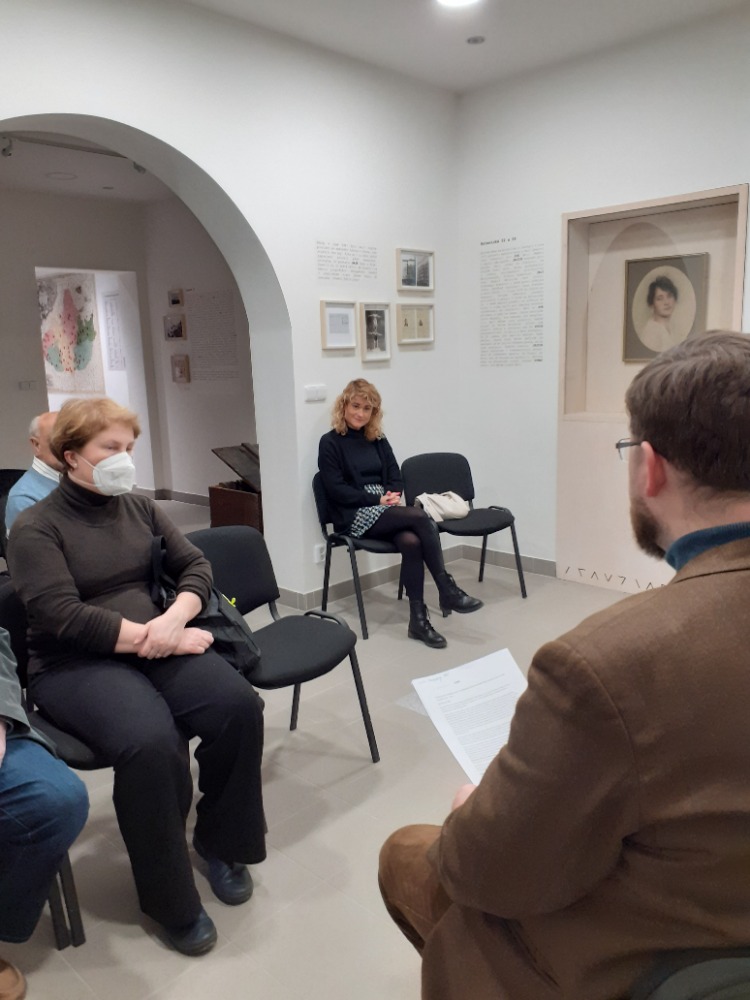
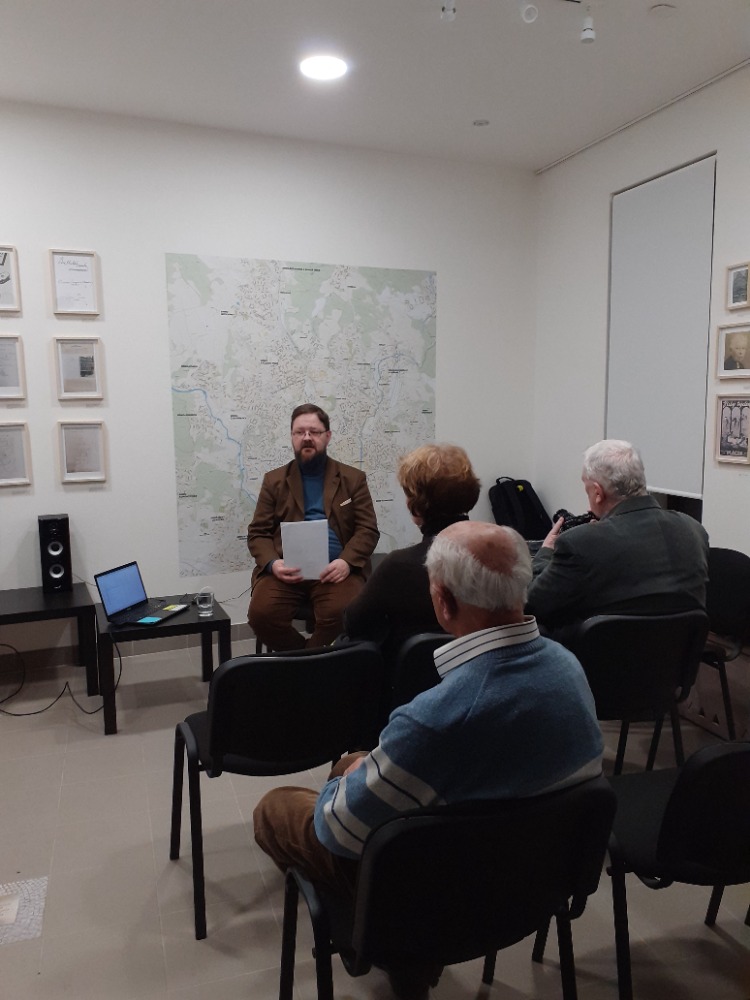
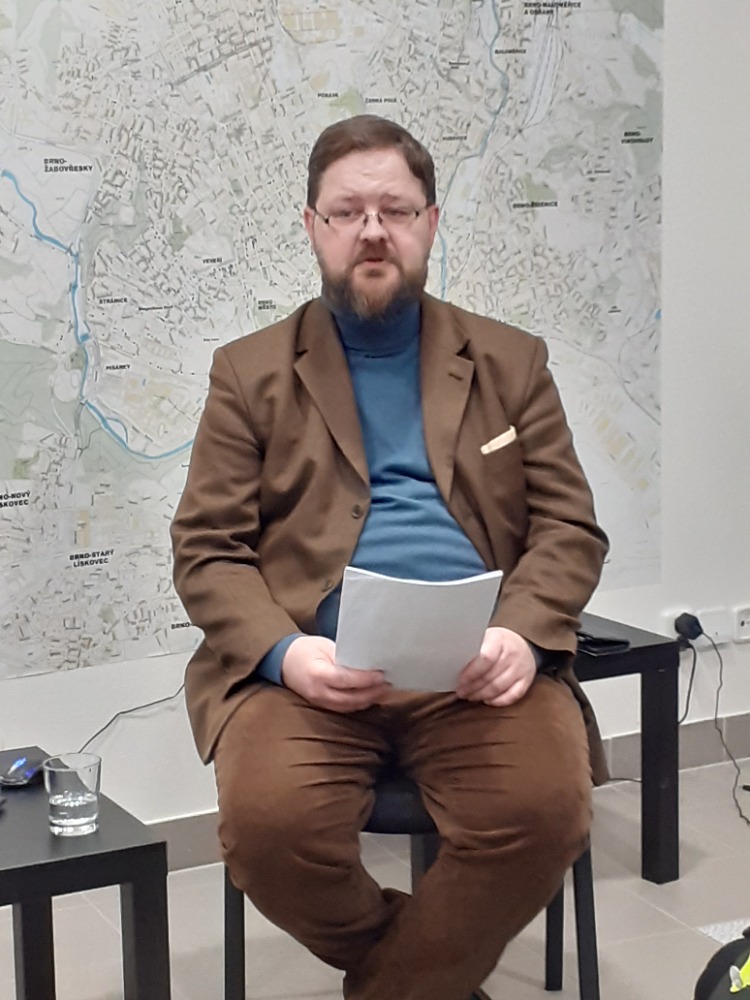
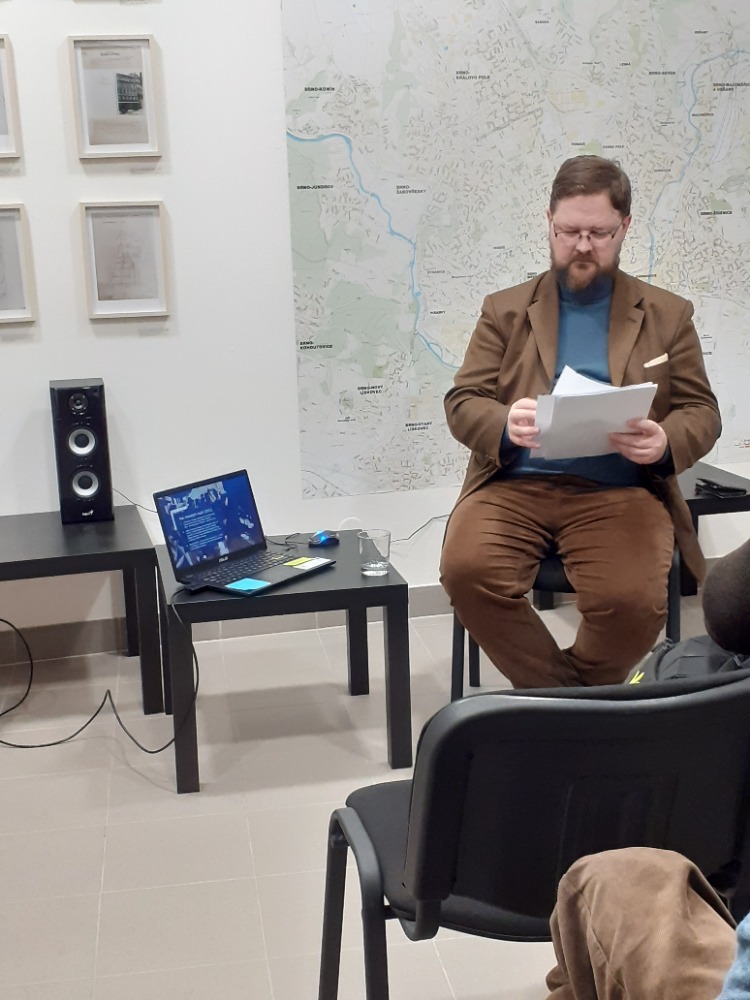
Hachshars in Czechoslovakia
On Monday, 26 February 2024, Daniela Bartáková from the Masaryk Institute and the Archives of the Academy of Sciences of the Czech Republic came to present the phenomenon of hachshars - agricultural training centres that began to emerge in Czechoslovakia in the 2Os of the last century - to our visitors. In a very interesting lecture, accompanied by photographs, she focused on the change in the whole concept of hachshars in the context of the approaching war, and the resulting need to evict as many Jewish youth as possible. At the end, there was a lively discussion between the speaker and the visitors, who had many additional questions.
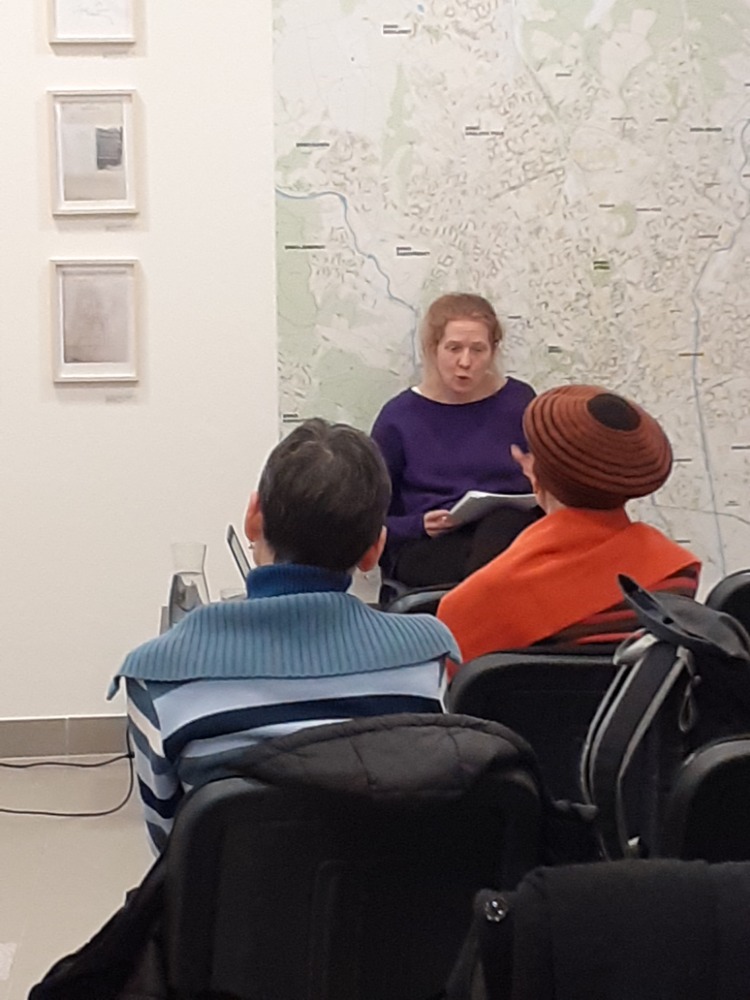
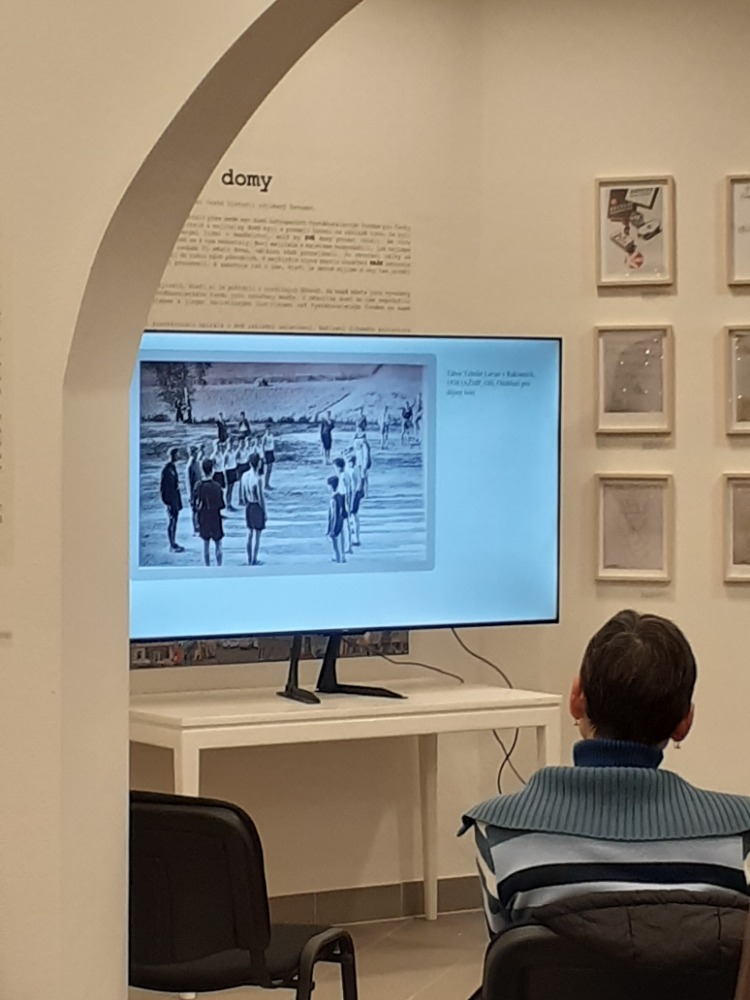
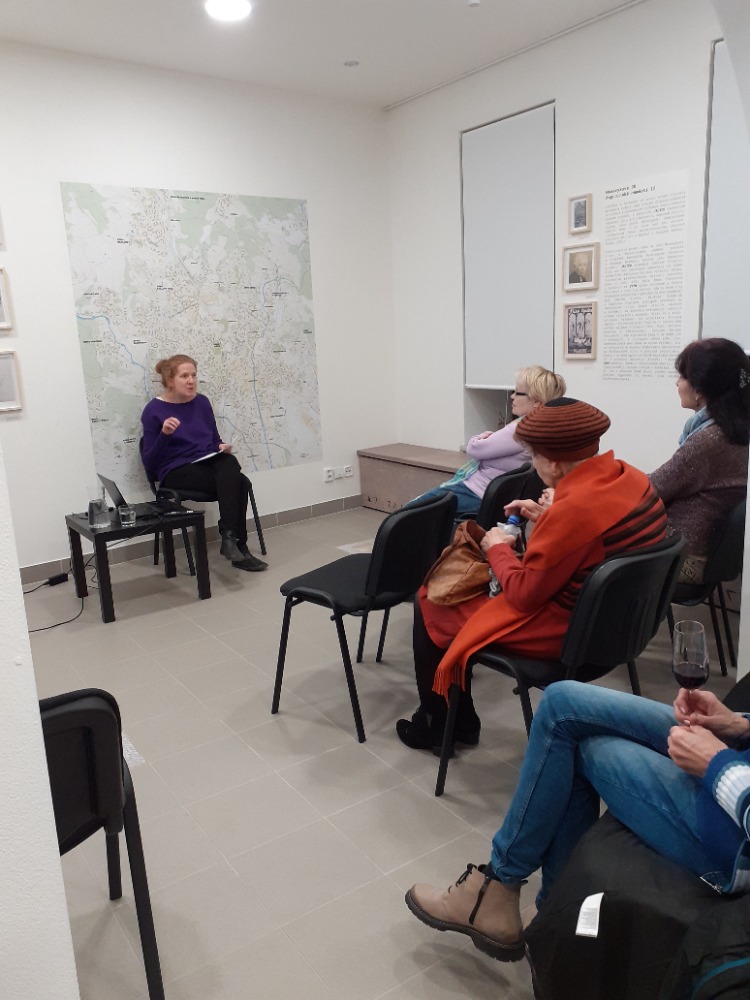
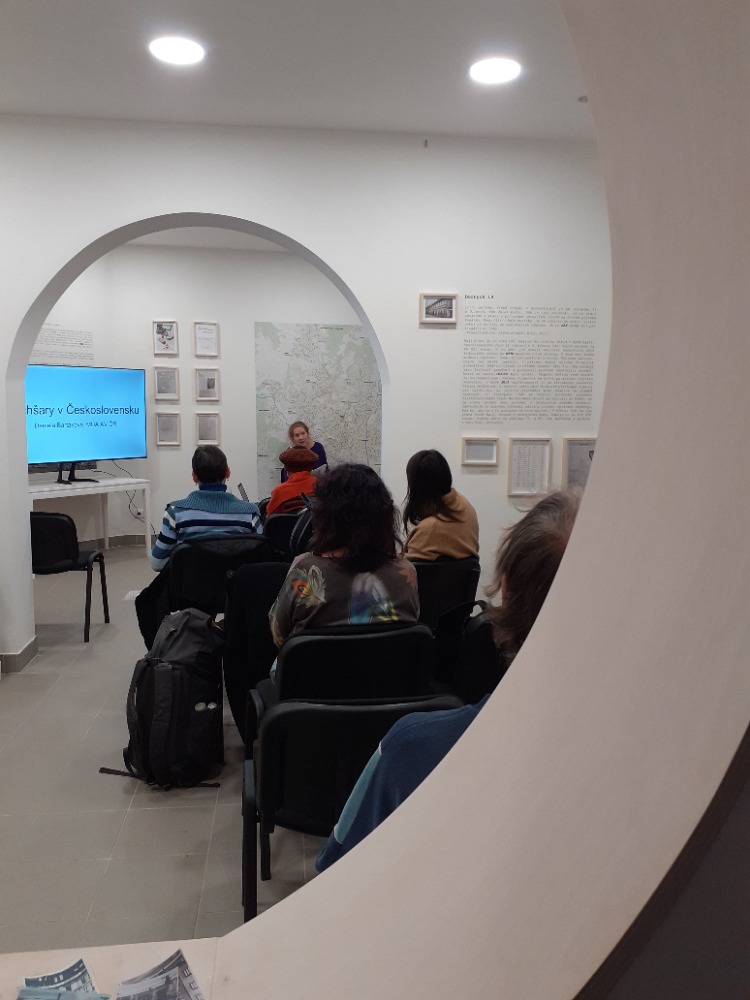
Brod and us
Under this name, we said on our Facebook page that you can meet journalist Peter Brod, who "knows practically everyone and knows enough about everyone", in other words, he tells engaging stories about his own extended friendship and the people he has met on his colourful life journey.
And this is exactly what the early evening of Tuesday 23 January 2024 offered to those who did not hesitate and filled the premises of the Little Mehrin completely.
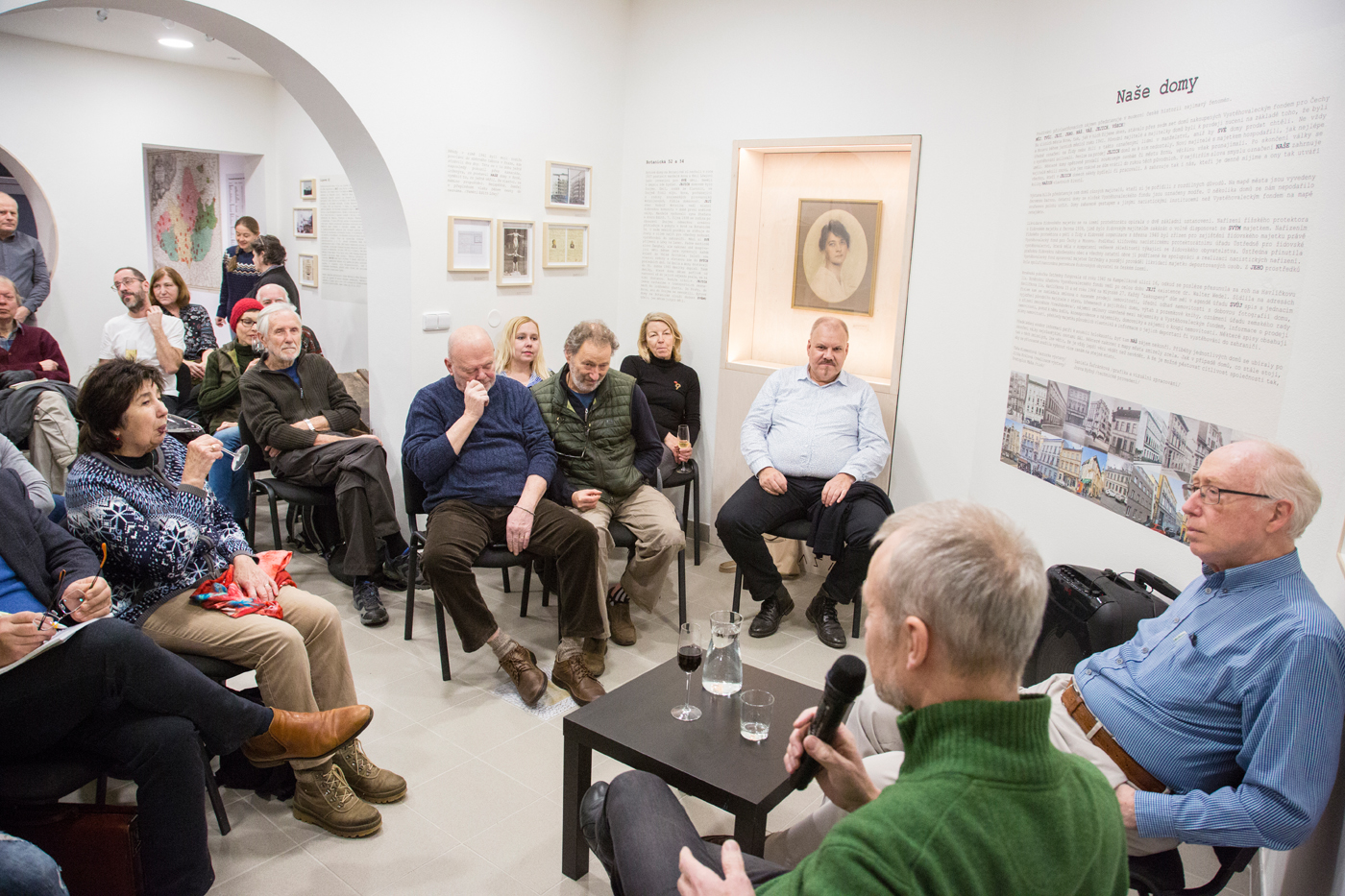
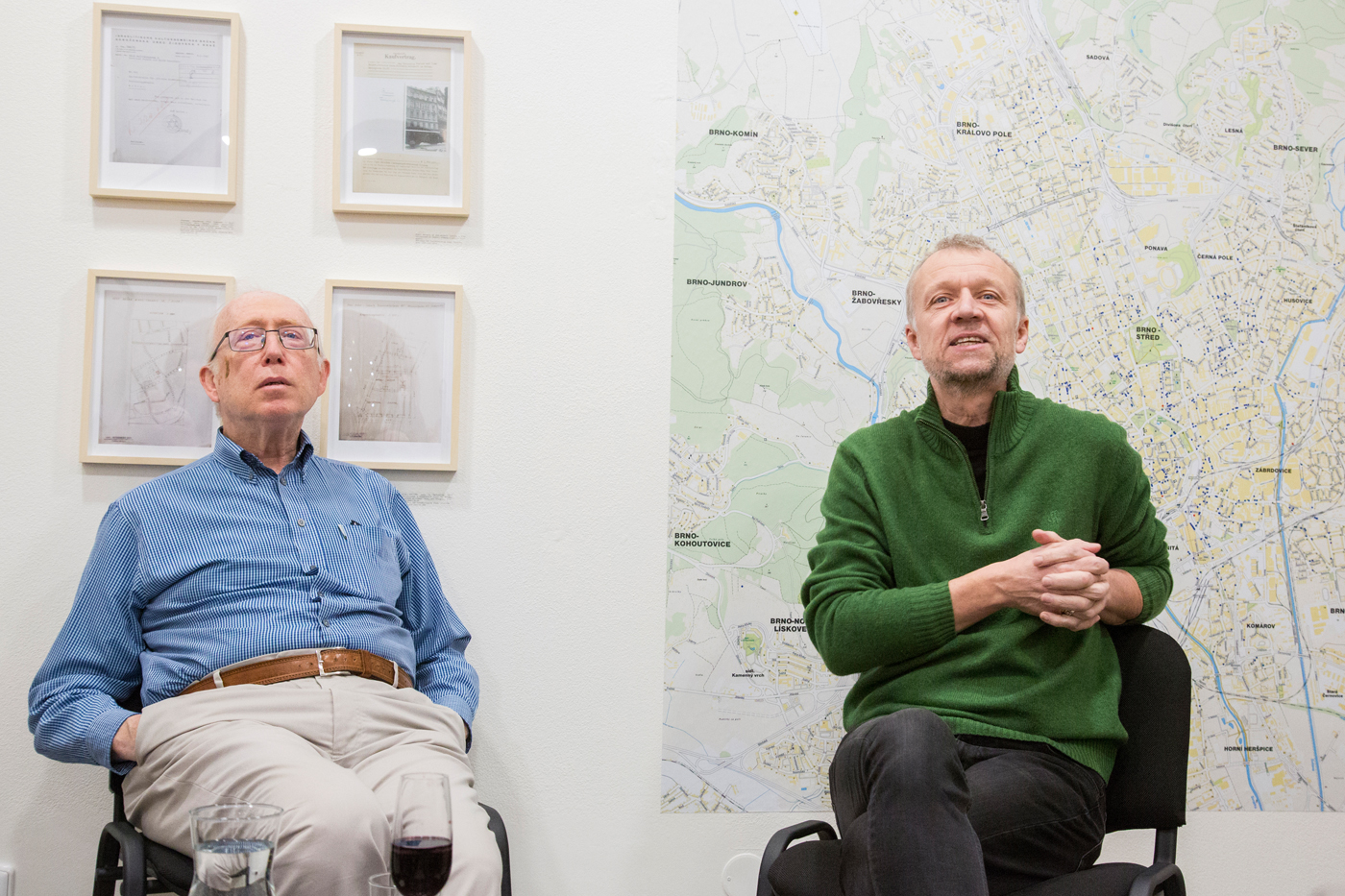
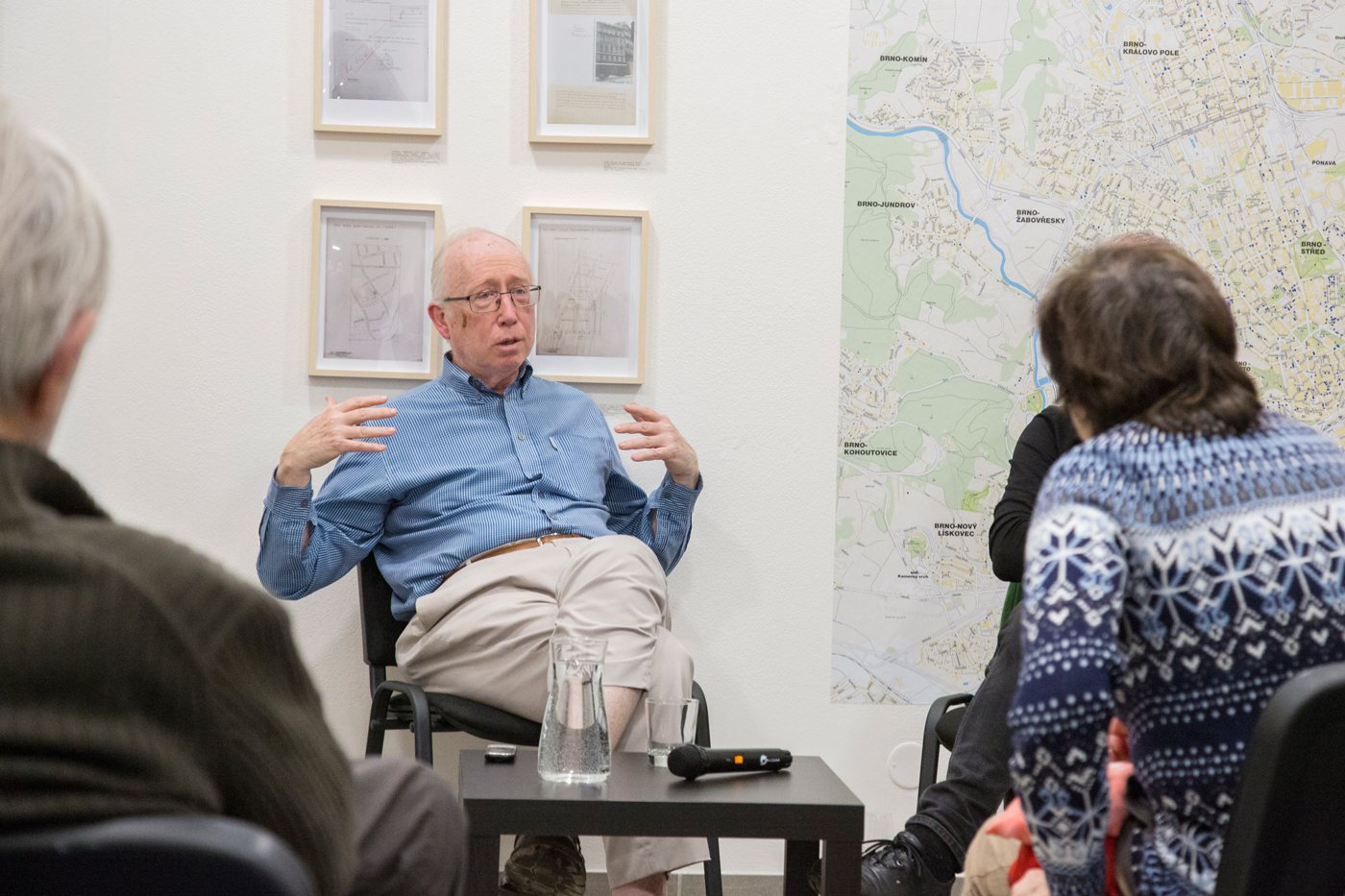
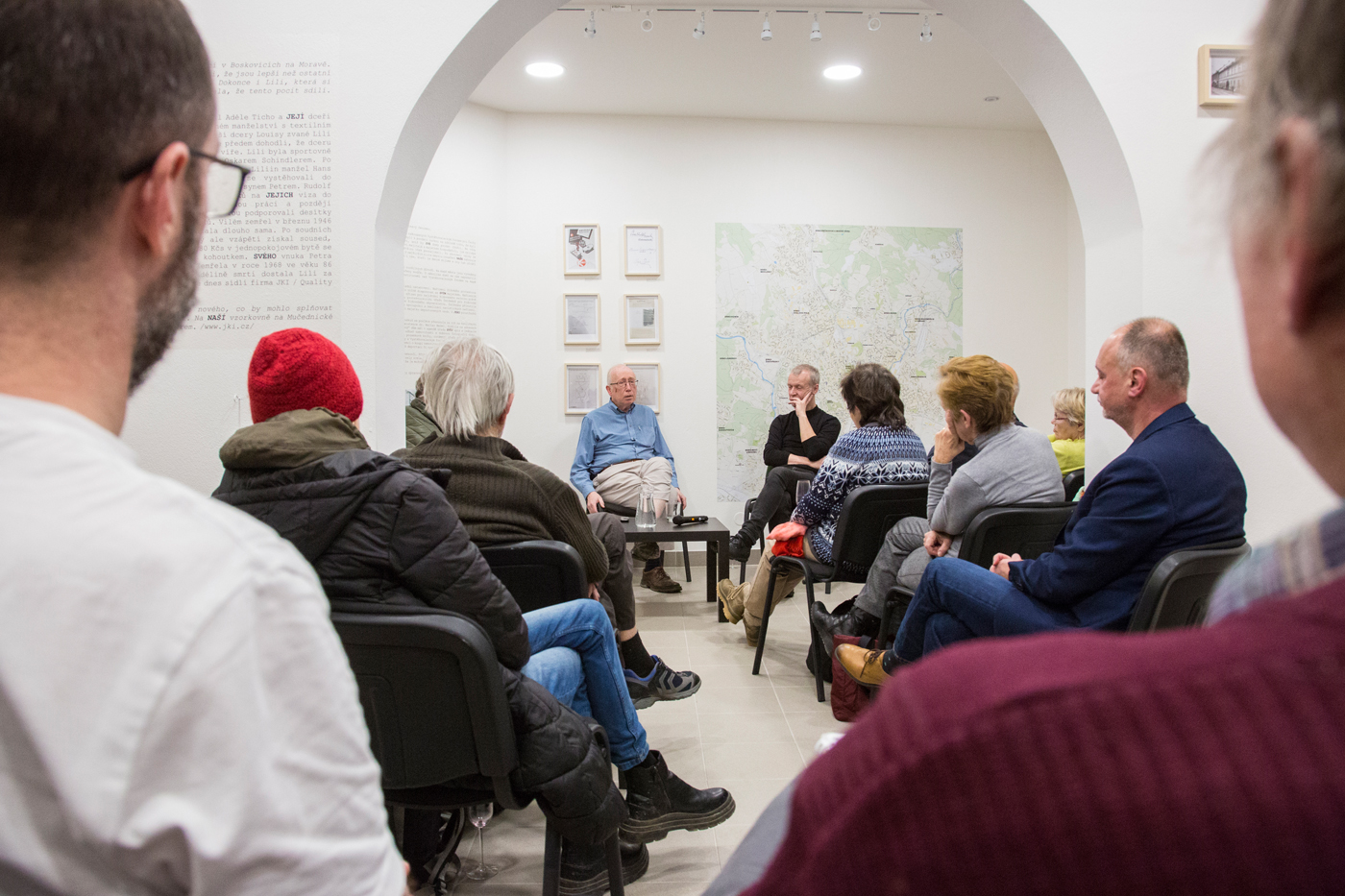
Our houses
In the very first week of the new year 2024, we boldly launched the Our Homes exhibition on 4 January. The new year has shown that visitors are interested in learning about the fate of Brno houses, as dozens of visitors came to Malý Mehrin, so the name of the museum proved justified in this case.
The author of the exhibition Mgr. Táňa Klementová presents to the public the specific story of eight houses that she selected from more than 700 houses in Brno that were arranged by the Eviction Fund. These are accompanied by a large-scale map of Brno, on which all the houses that were "bought out" are marked with coloured dots. There is also a wealth of accompanying photographic and documentary material on the individual houses, as well as documents accompanying the process of the arización itself. After all, come and see for yourself. The exhibition will run until 27 March 2024.
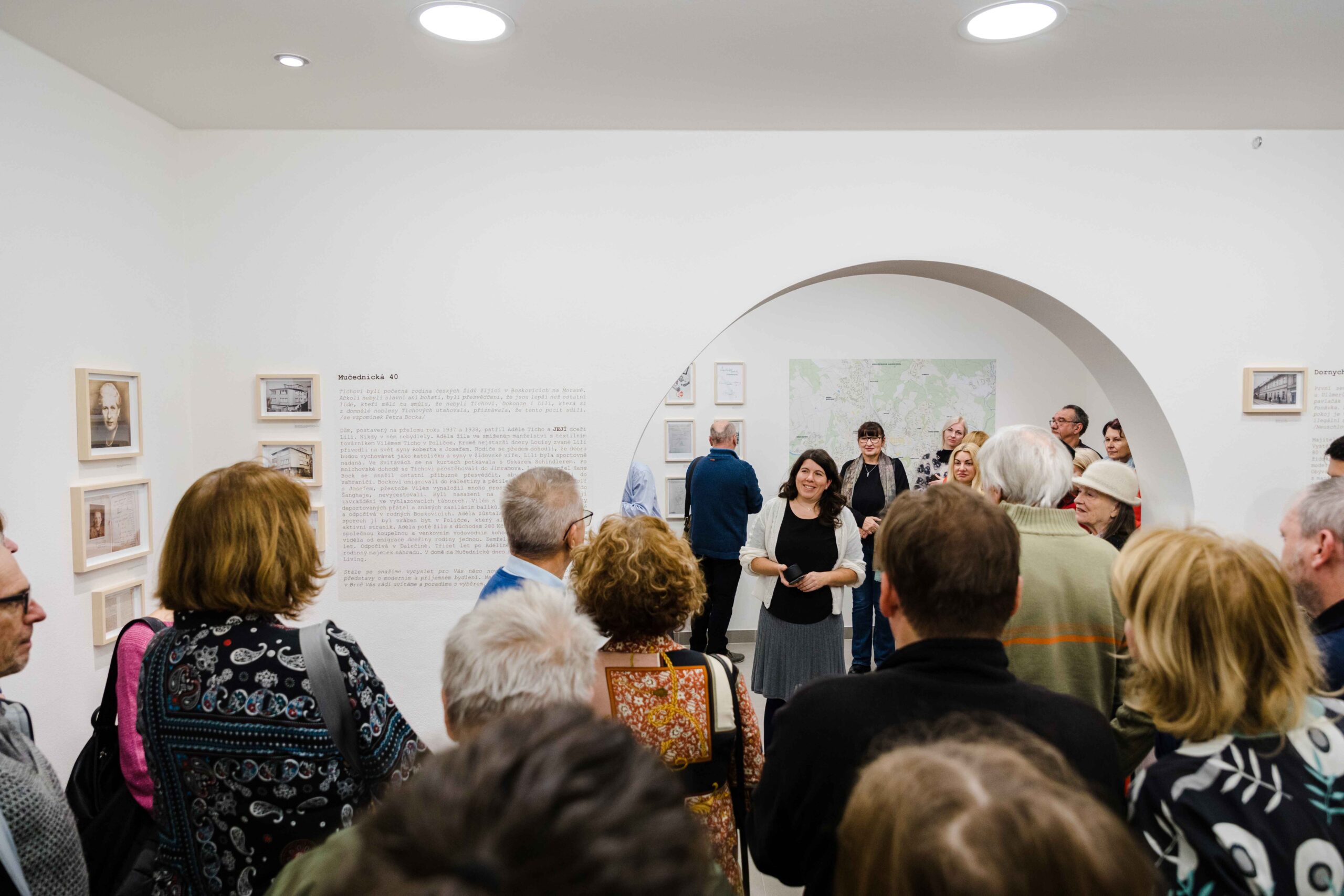
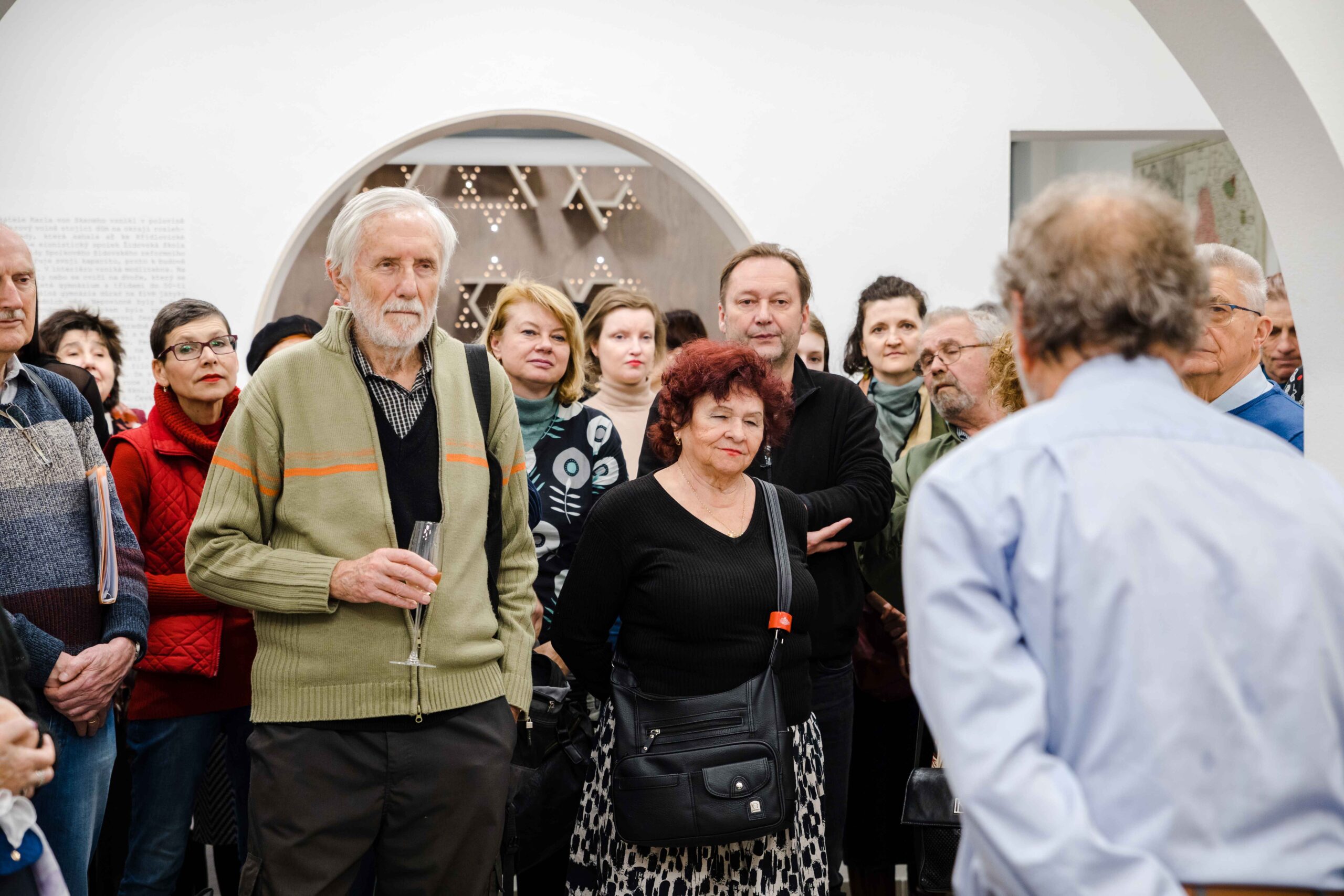
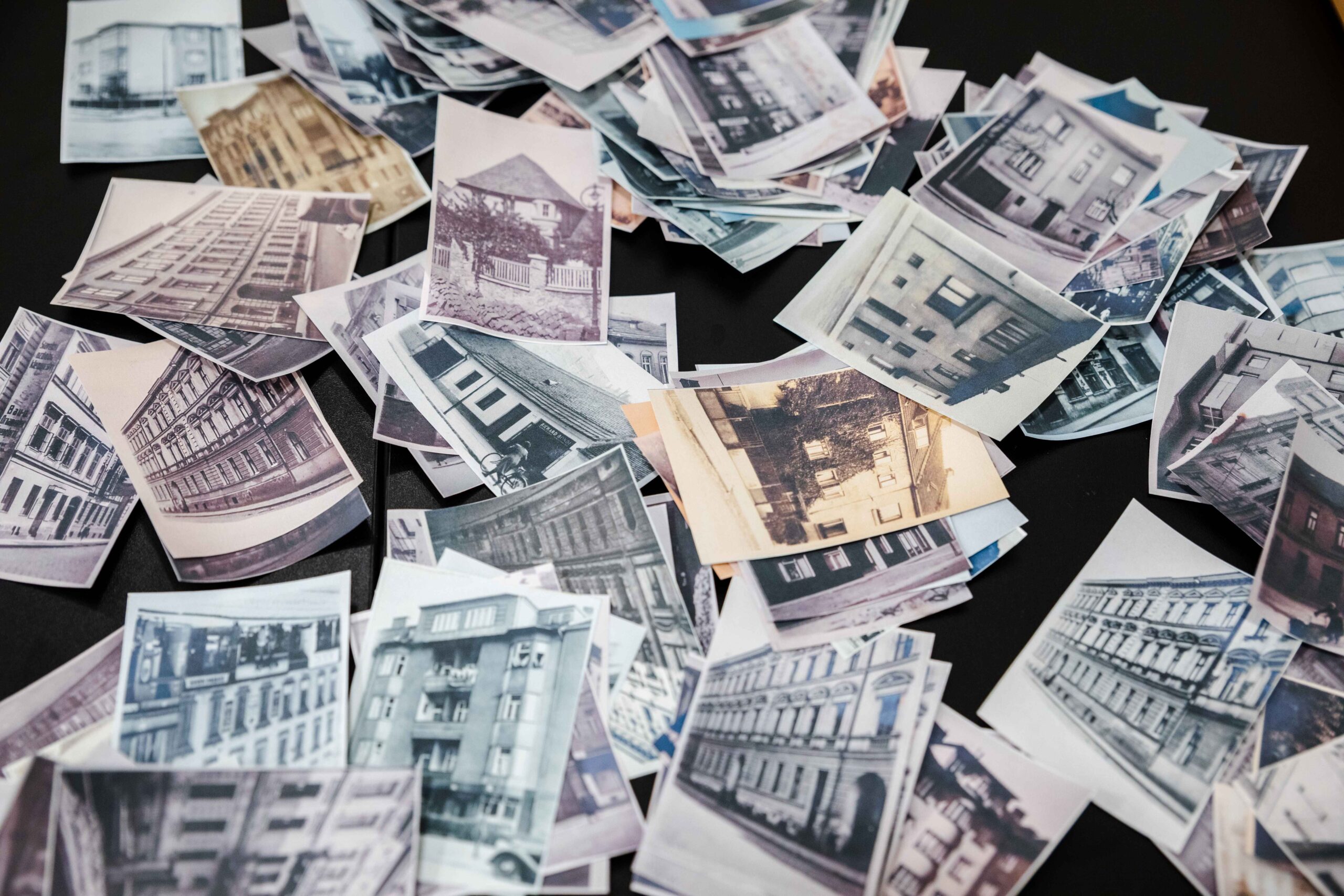
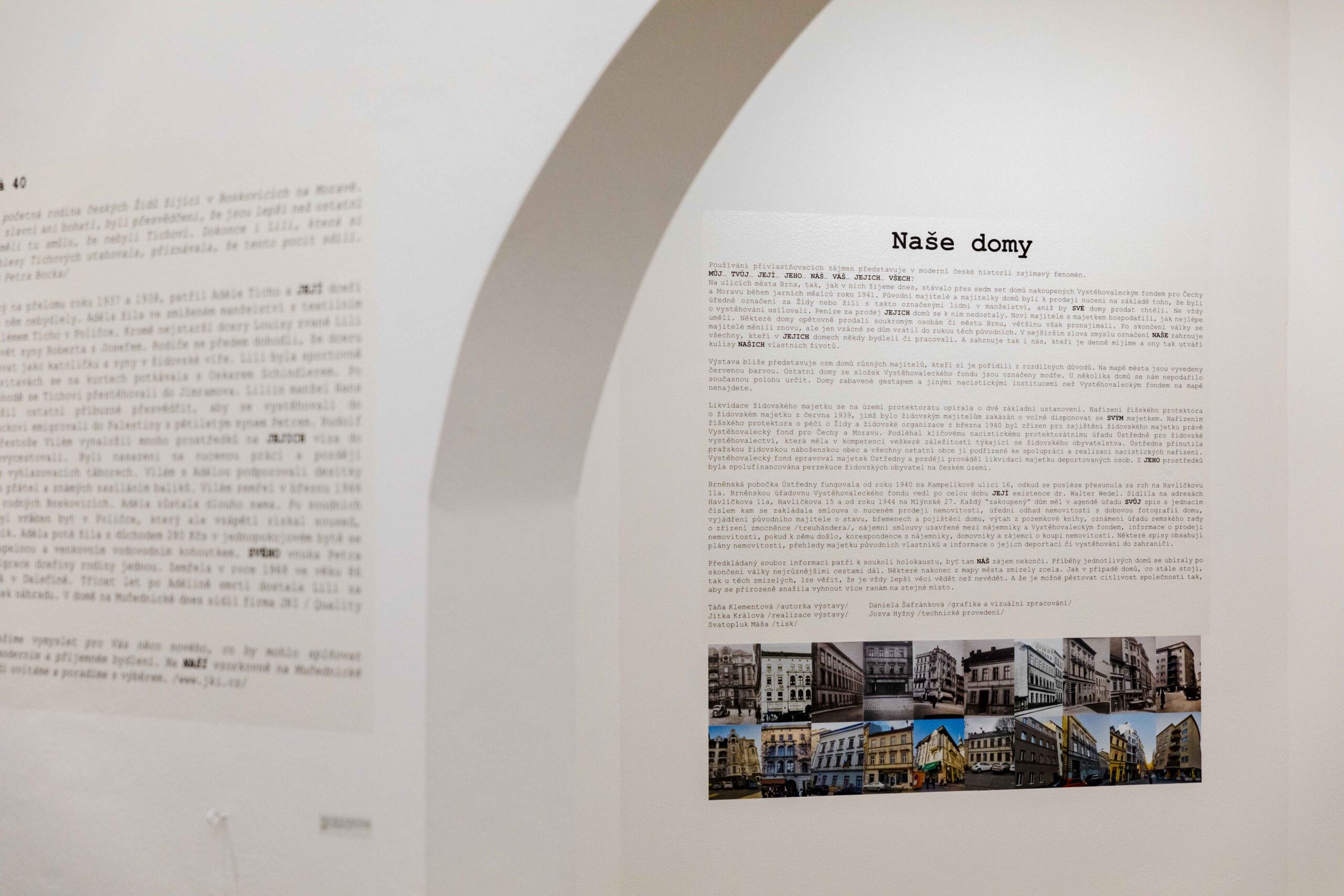
The labyrinth of normalization in us
The topic of the normalization of anti-Jewish propaganda was the subject of a lecture by Martin Šmok, the author of the exhibition and the book of the same name by the Jewish
Museum in Prague - Labyrinth of Normalization. Its rich visual and audiovisual materials contain many previously unpublished documents, which help to reveal places and situations that have not yet been discovered. Thank him for that!
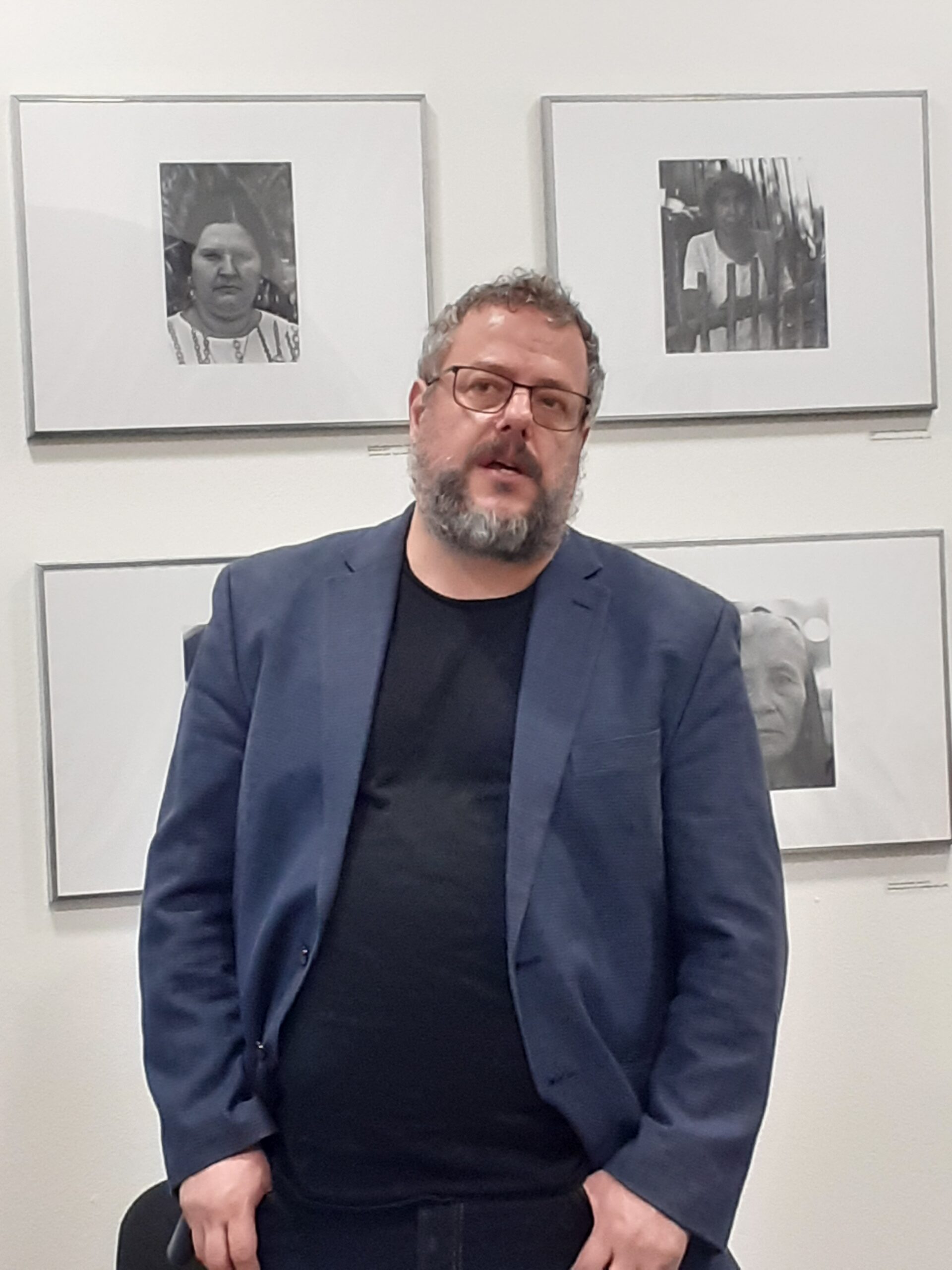
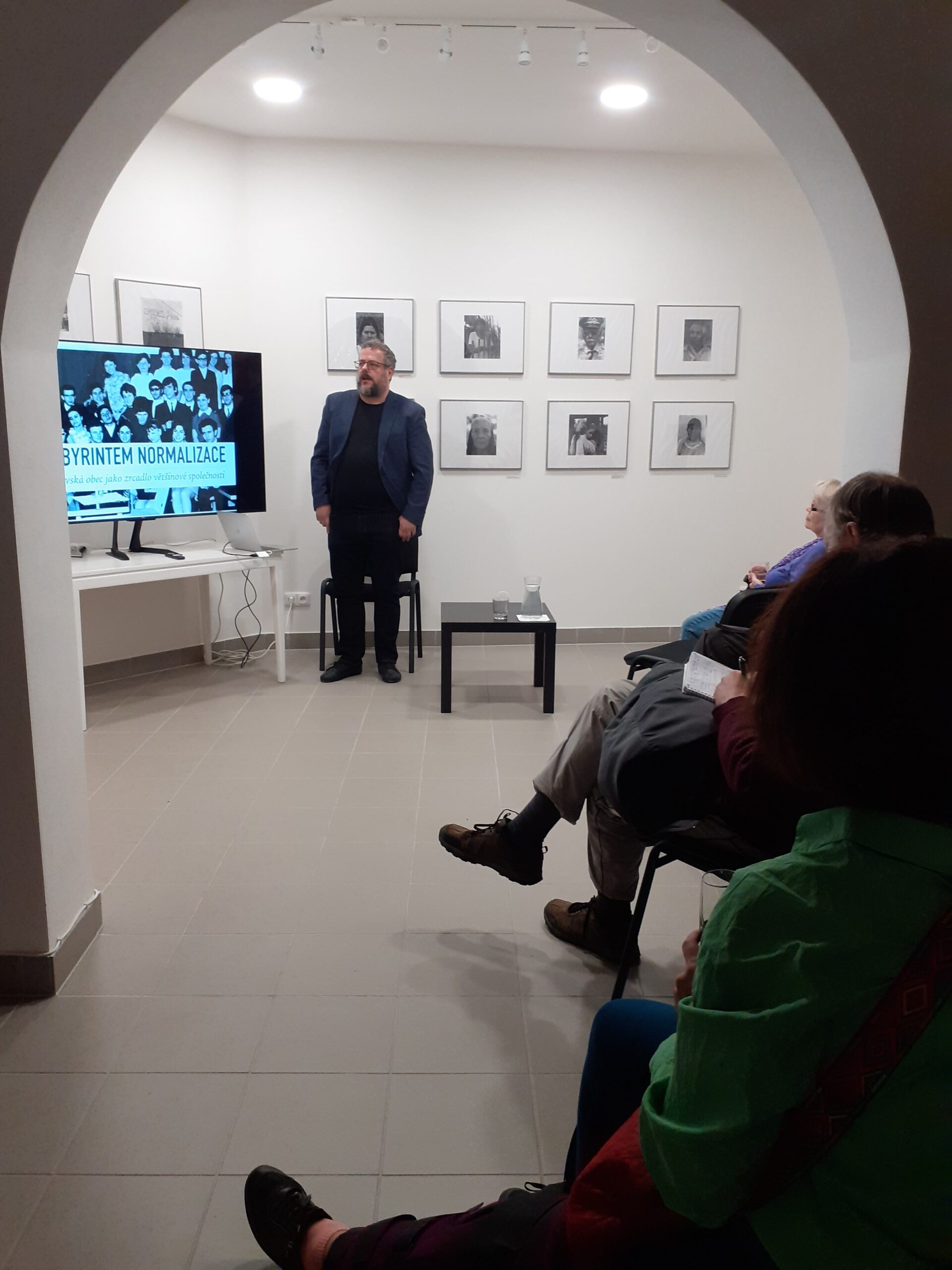
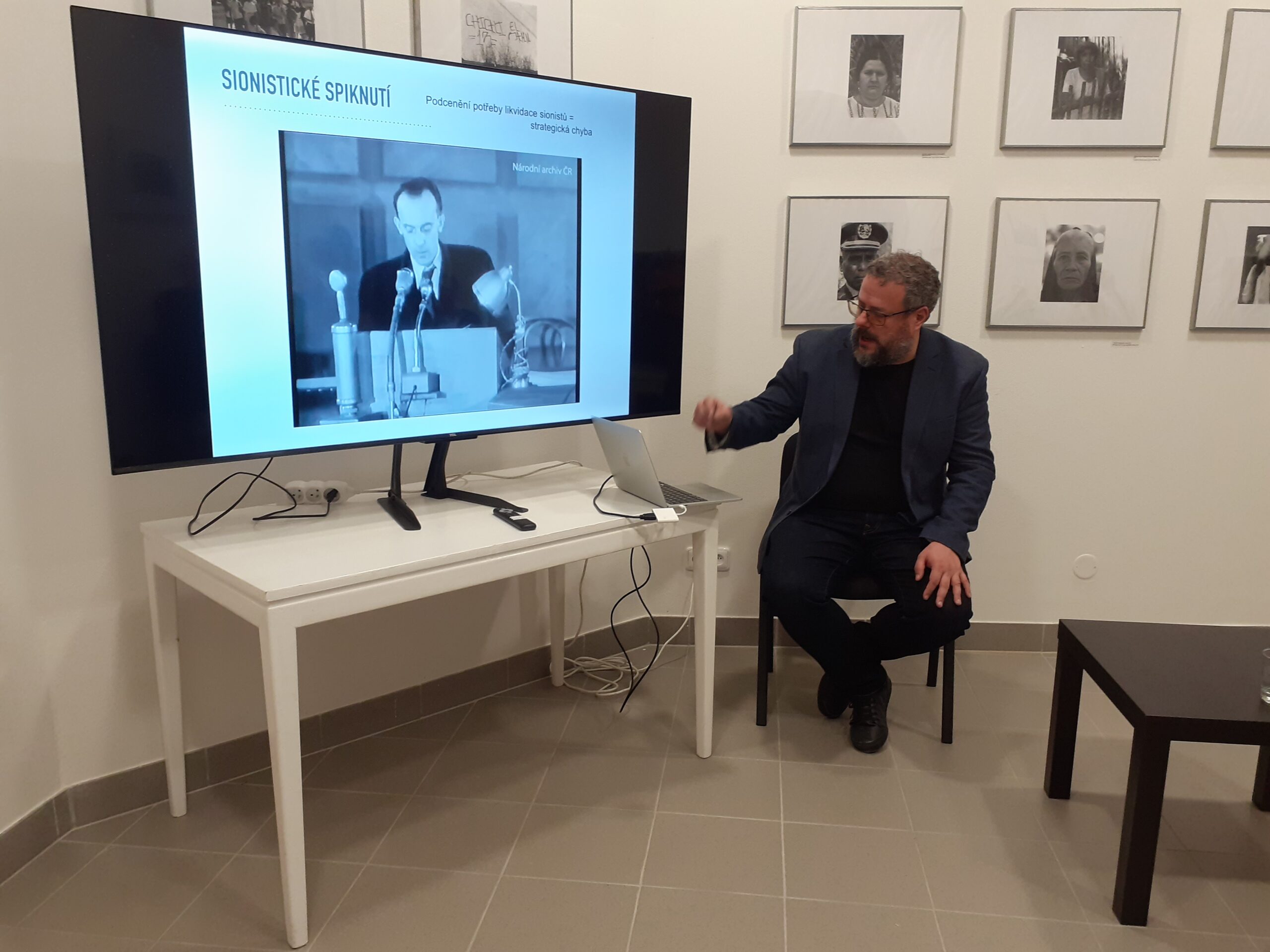
E+I correspondence
Under this familiar-sounding title, a lecture took place on Thursday 14 December, which was tailor-made for the ongoing exhibition of Fred Iltis' photographs. The lecturer Táňa Klementová prepared translations of letters exchanged between Albert Einstein and Hugo Iltis (Fred's dad) across the ocean. She also involved those present in the reading of the letters...
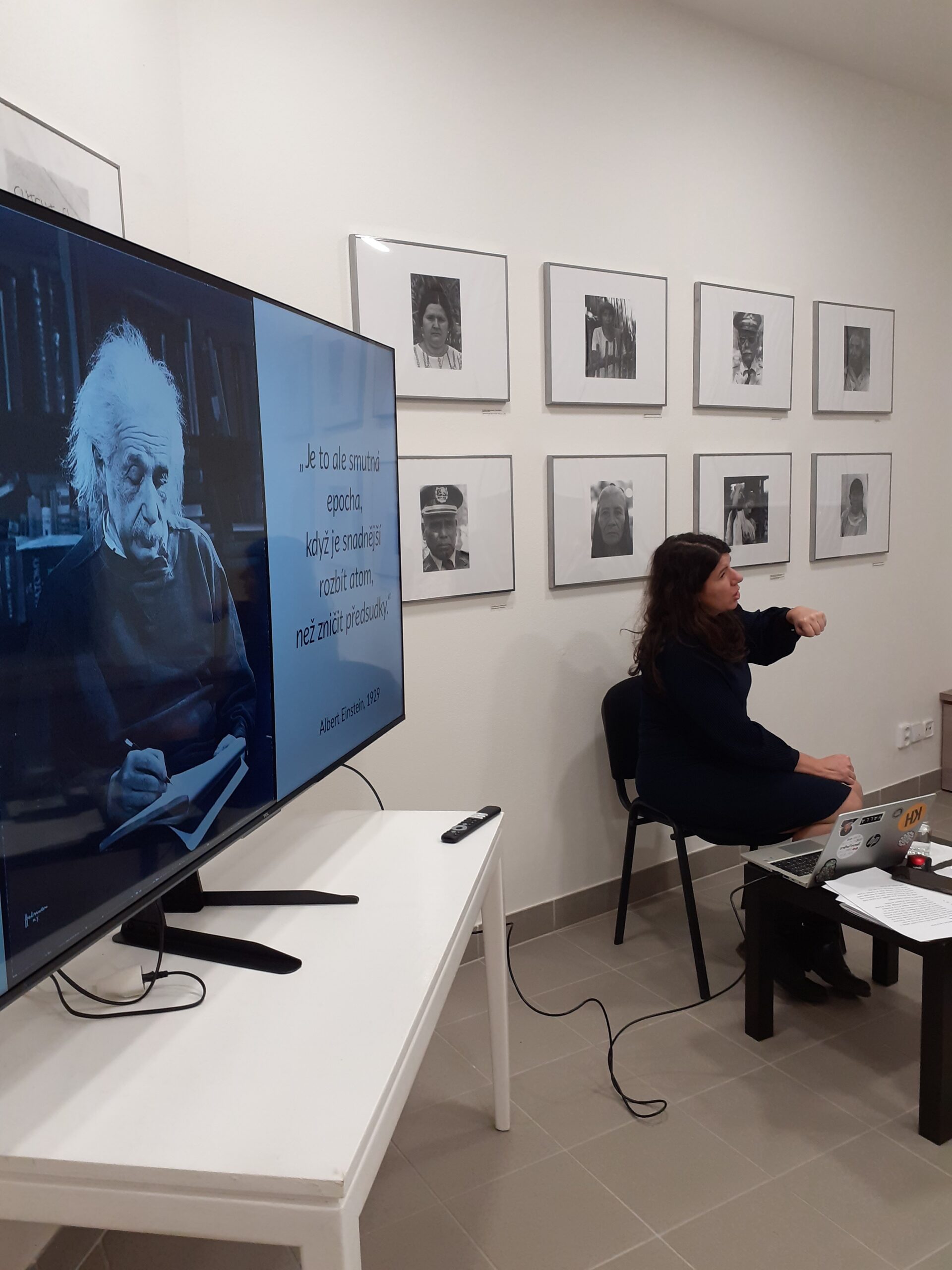
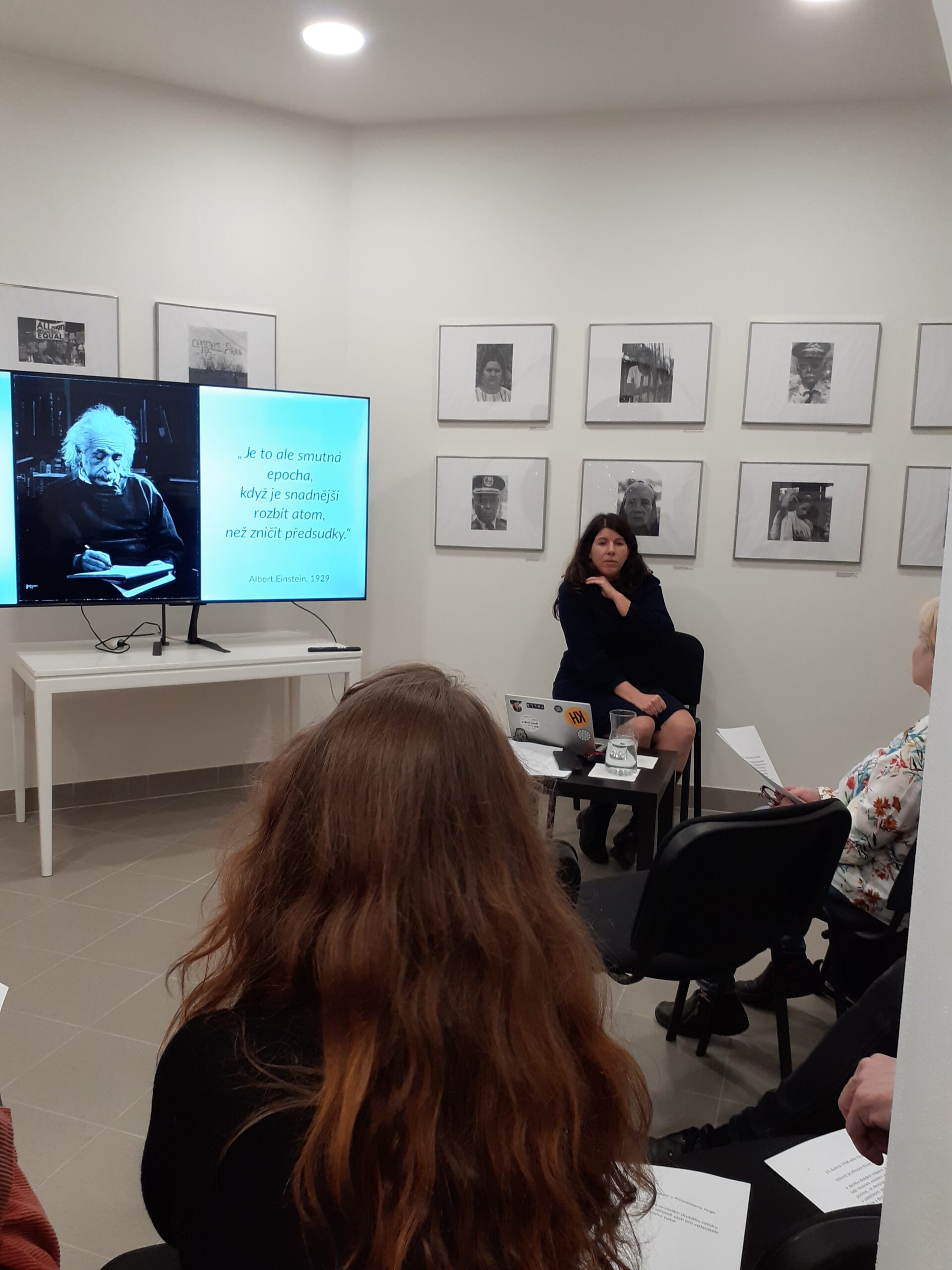
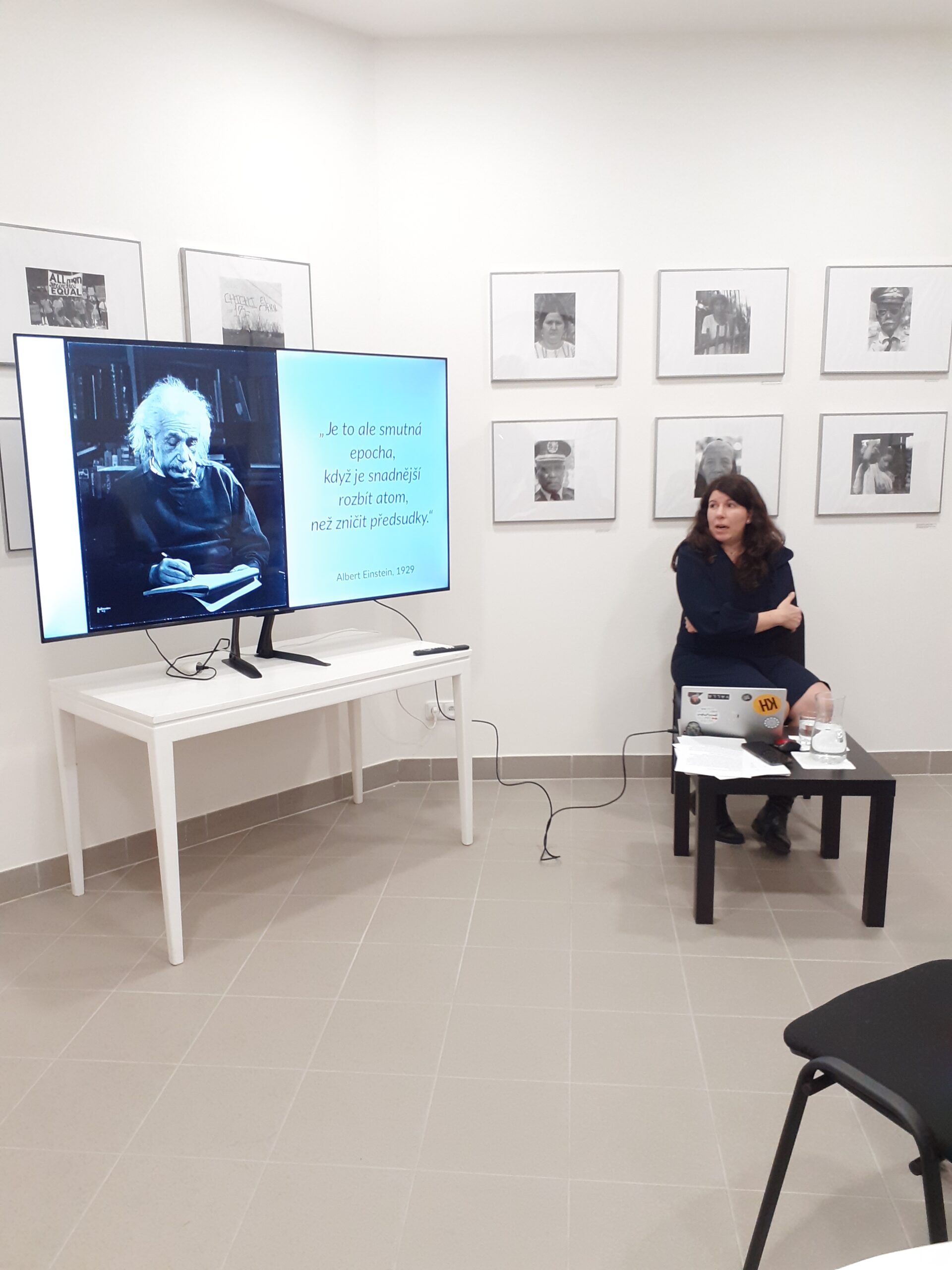
Israel and Gaza in context
In the case of the Israeli-Palestinian conflict, we are talking about a conflict that has taken many forms over the past decades, but unfortunately has never lost its potential. Even so, the world was shocked by the brutality and atrocities committed by the terrorists of the Palestinian Hamas movement on 7 October against Israeli citizens on Israeli territory. Strangely enough, even in the part of Europe to which we belong and want to belong, there were large numbers of people who applauded these acts. Such a reaction brings astonishment, indignation, but also many questions that are not easy to answer. That is why we have invited experts who have a lot to say on the matter to the Little Mehrin in Vienna. Political scientist Mgr. Eva Taterová, M.A., Ph.D., who works at the Institute for Contemporary History of the Academy of Sciences and lectures at Masaryk University, and Colonel of the General Staff doc. Mgr. Ing. Libor Kutej, Ph.D., who is the Director of the Institute of Intelligence Studies at the University of Defence and a former intelligence officer who served for three years as a military attaché at the Czech Embassy in Israel.
The grateful reactions we received from the participants of the meeting show that this meeting was worthwhile.
The grateful reactions we received from the participants of the meeting show that this meeting was worthwhile.
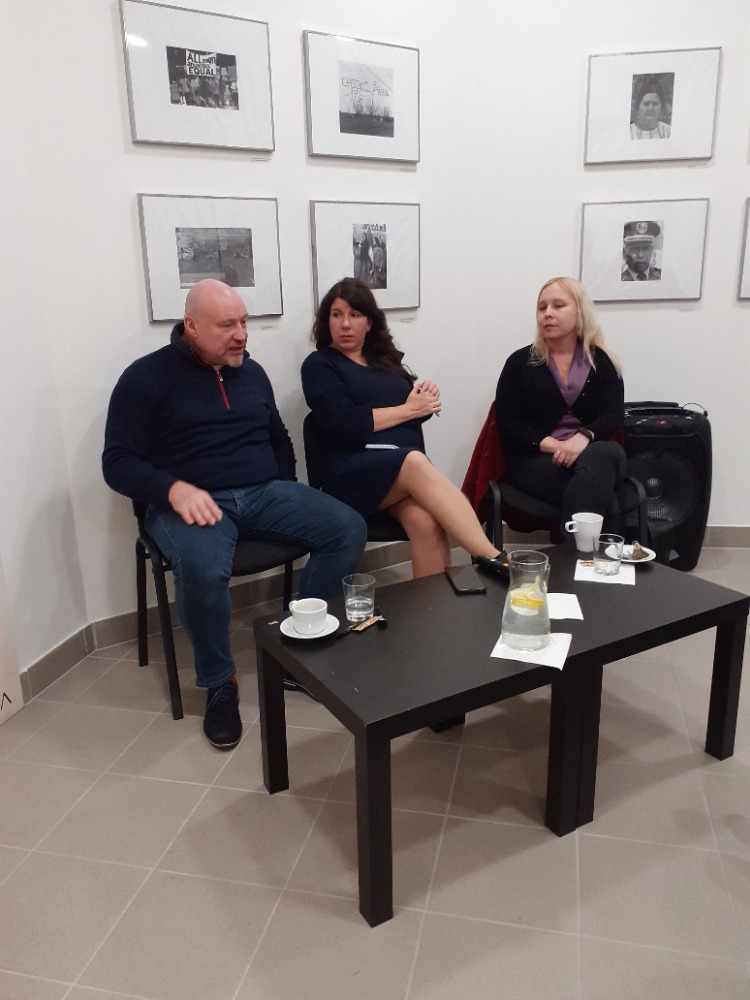
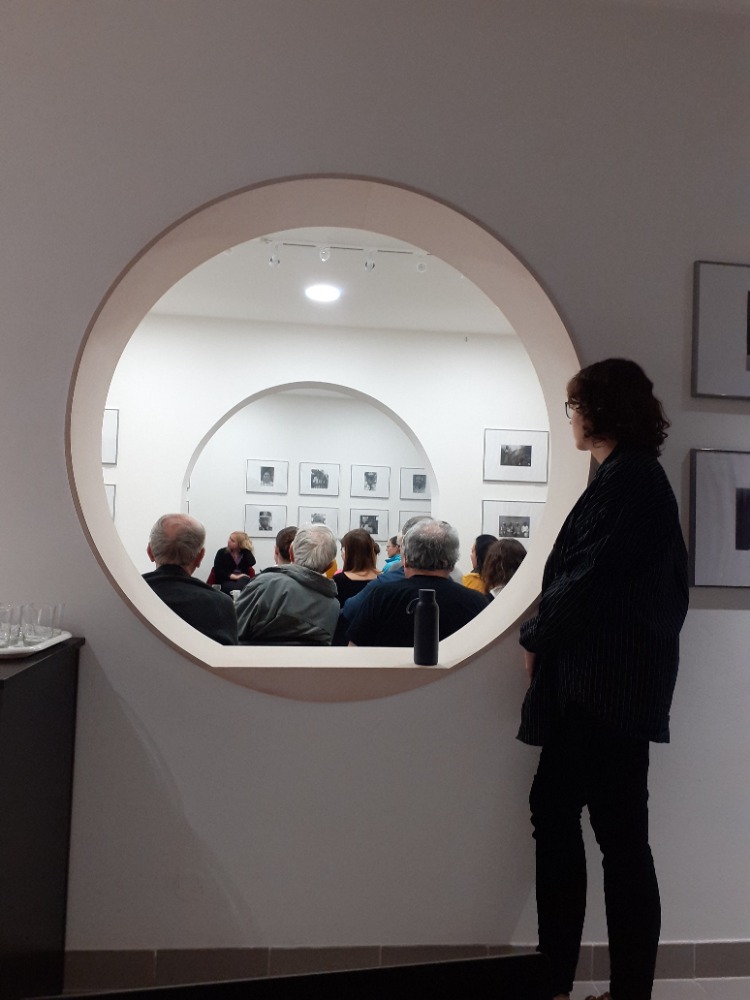
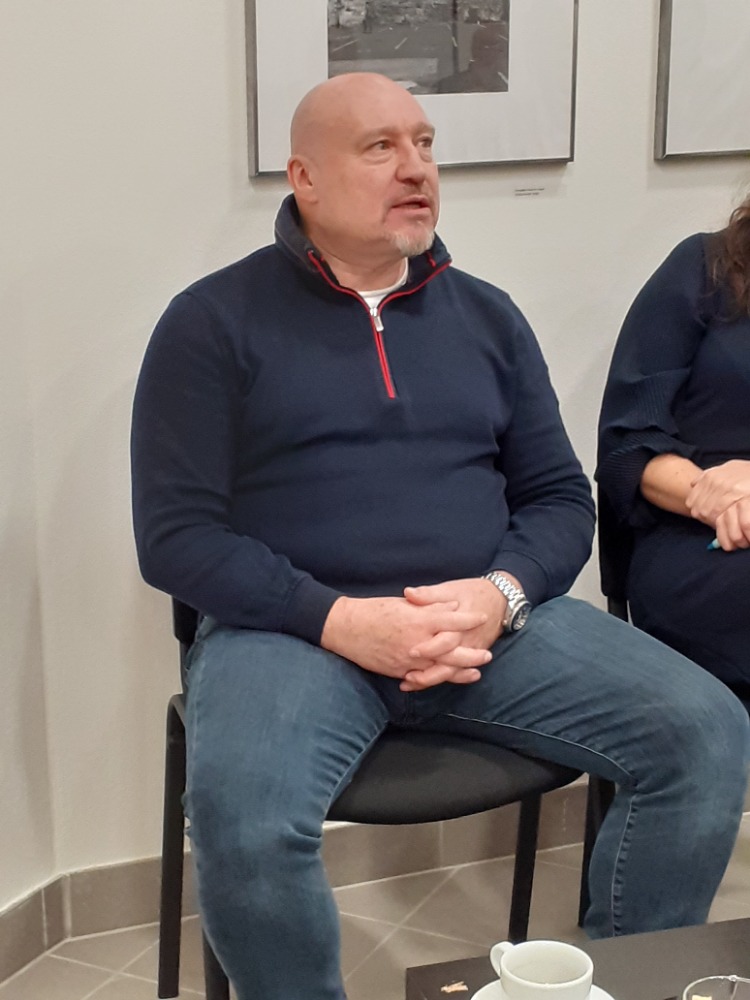
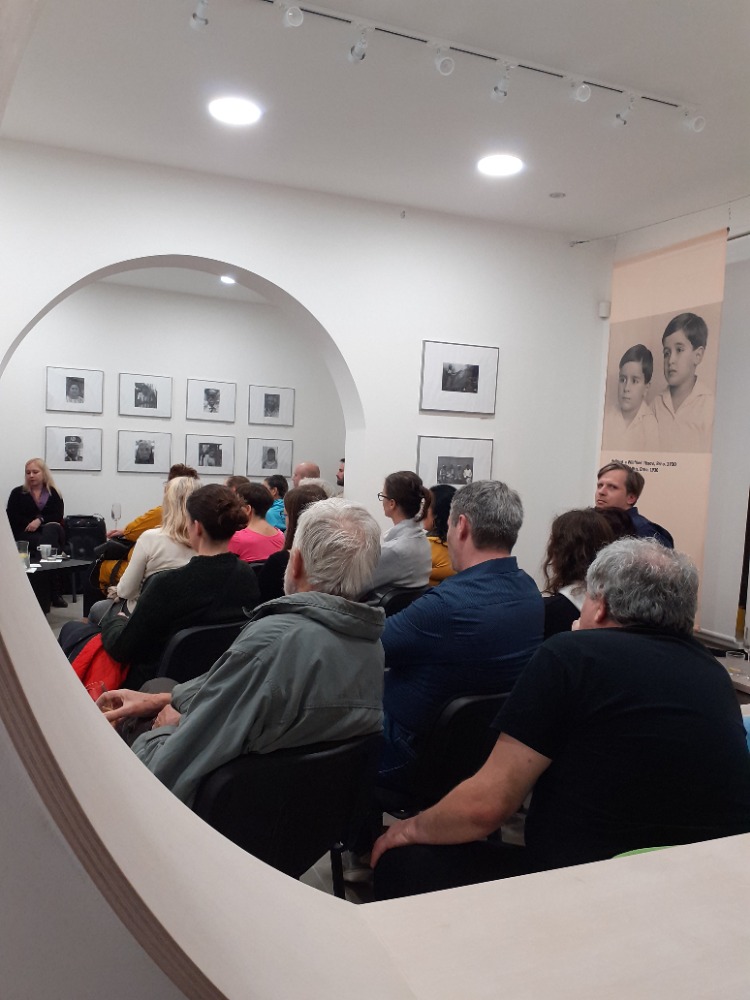
Kosher wine tasting
For the second time this year we repeated on Thursday 26th October a guided tasting of kosher wines from the Austrian winery Hafner. Once again, Mr. Ladislav Polák came from Bratislava to visit us and together with his wife he presented and offered a collection of white and red wines for tasting. This was personally selected and compiled for "our" tasting by the owner of the winery, Mr. Hafner, so that those present had the opportunity to taste samples across the range, including wines offered in a screwcap bottle intended for kiddush. The expert explanation not only about the cultivation, varieties and strict rules in the production of kosher wines captivated the attendees so much that the questions did not stop...
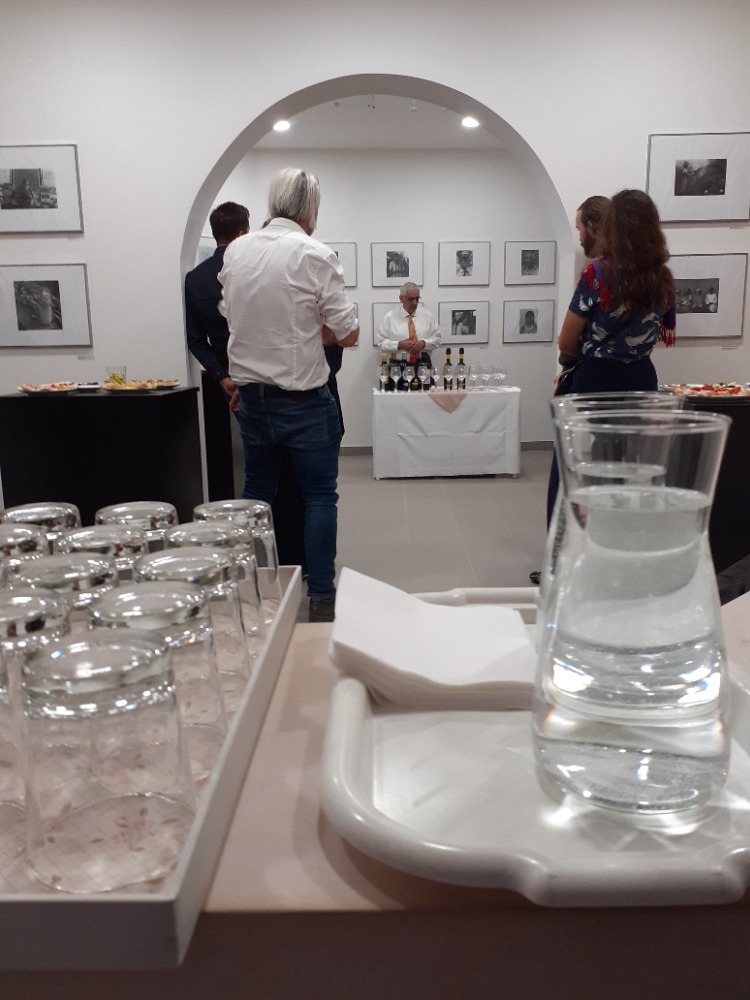
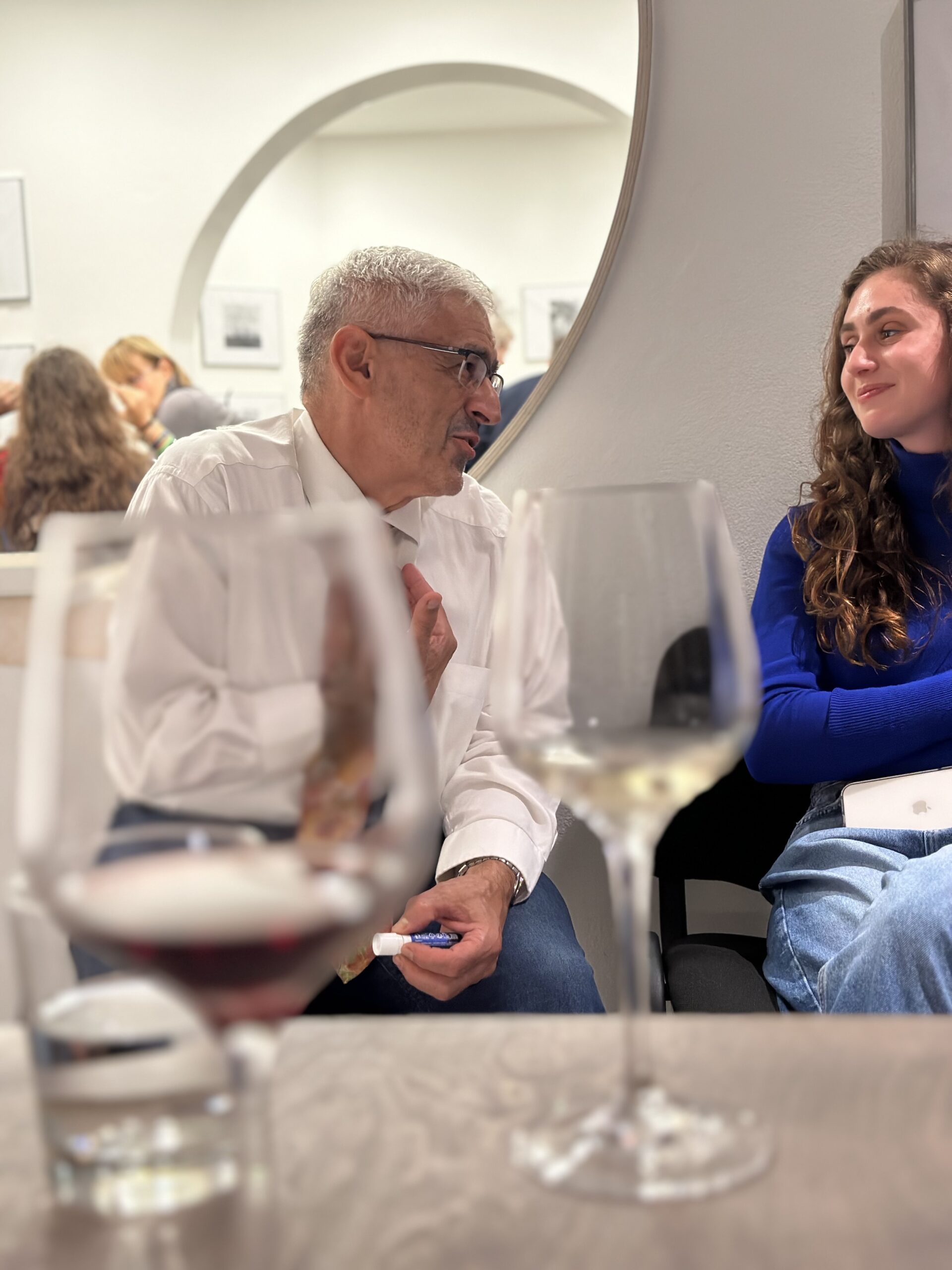
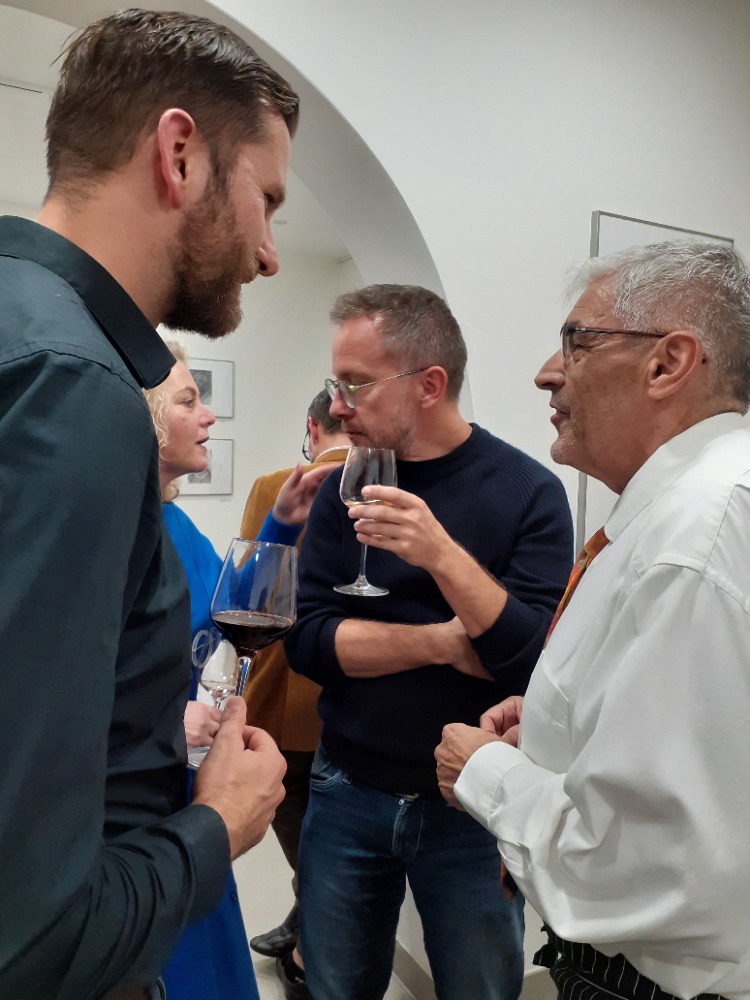
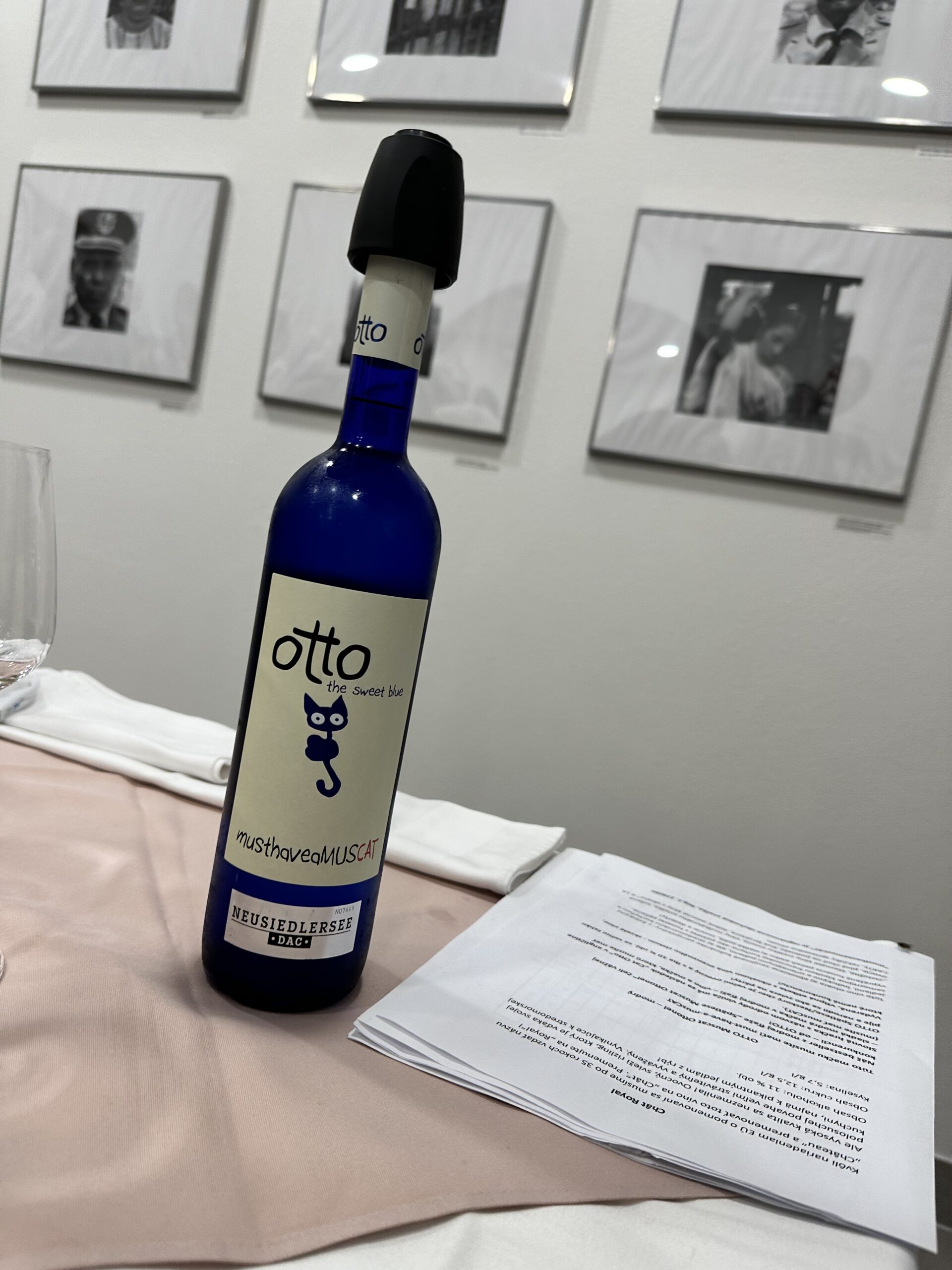
Nora Lustig – The Destiny between Brno and Norway
On Wednesday, 11 October, a lecture was held at which doc. Miluše Juříčková from Masaryk University presented one of the many fates of Jewish refugees. Nora Lustig was a member of the International League of Women for Peace and Freedom. Although she herself had helped refugees from Germany and Austria, she too was forced to go to Norway through the Nansen Foundation, but this refuge soon became a target of the Nazi occupation.
She was imprisoned, deported and murdered. Her grave can be found in the Brno Jewish cemetery.
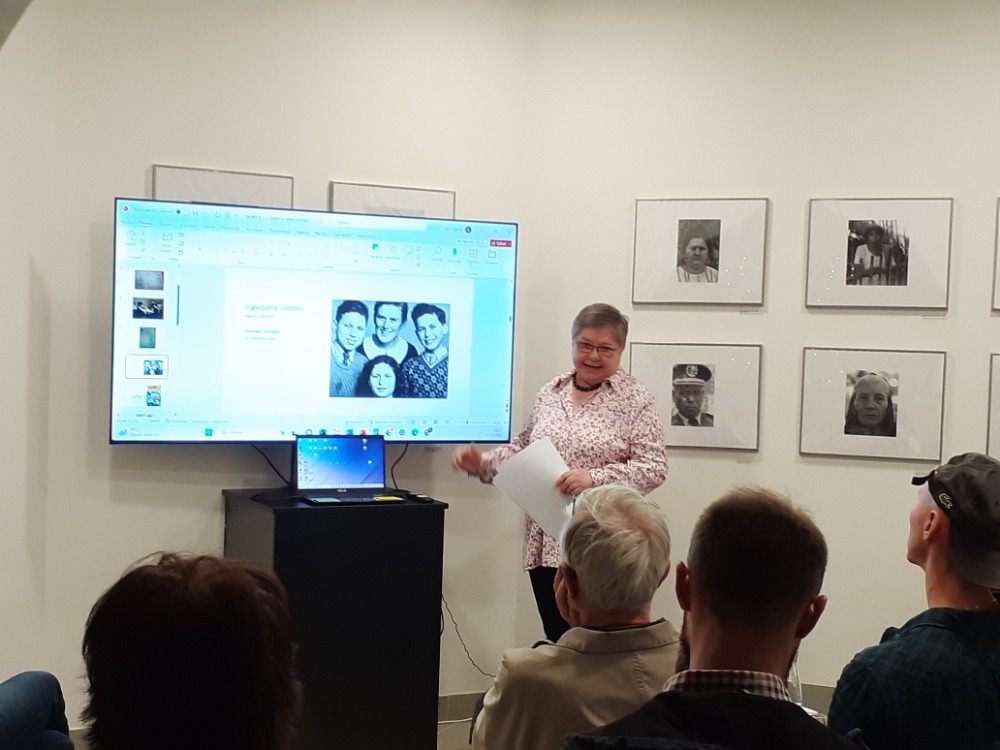
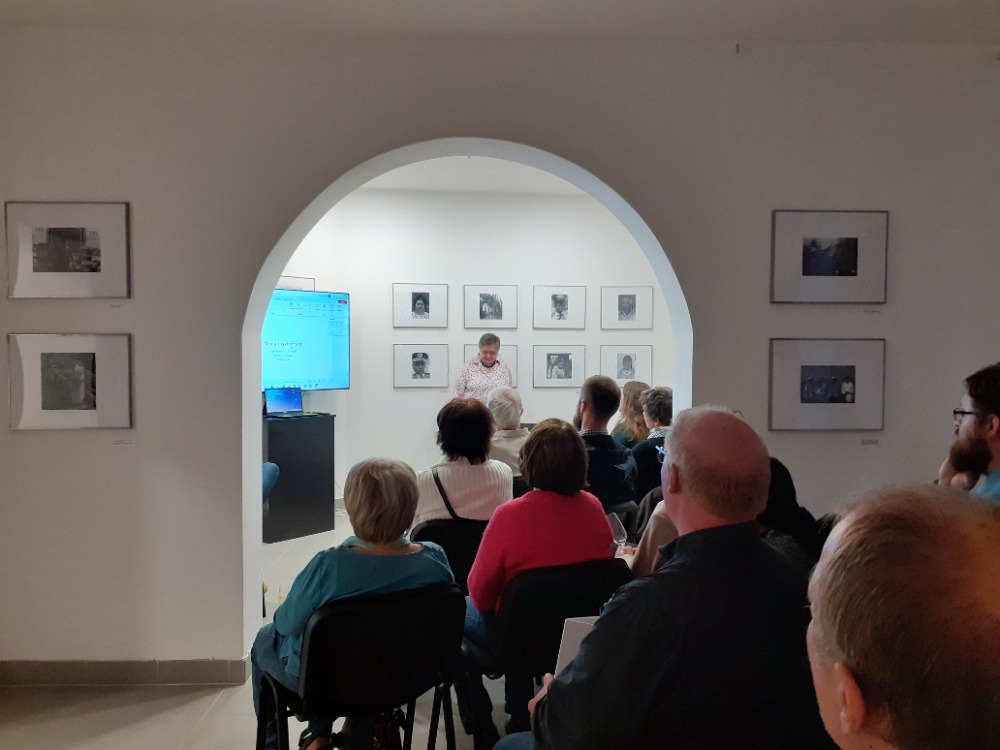
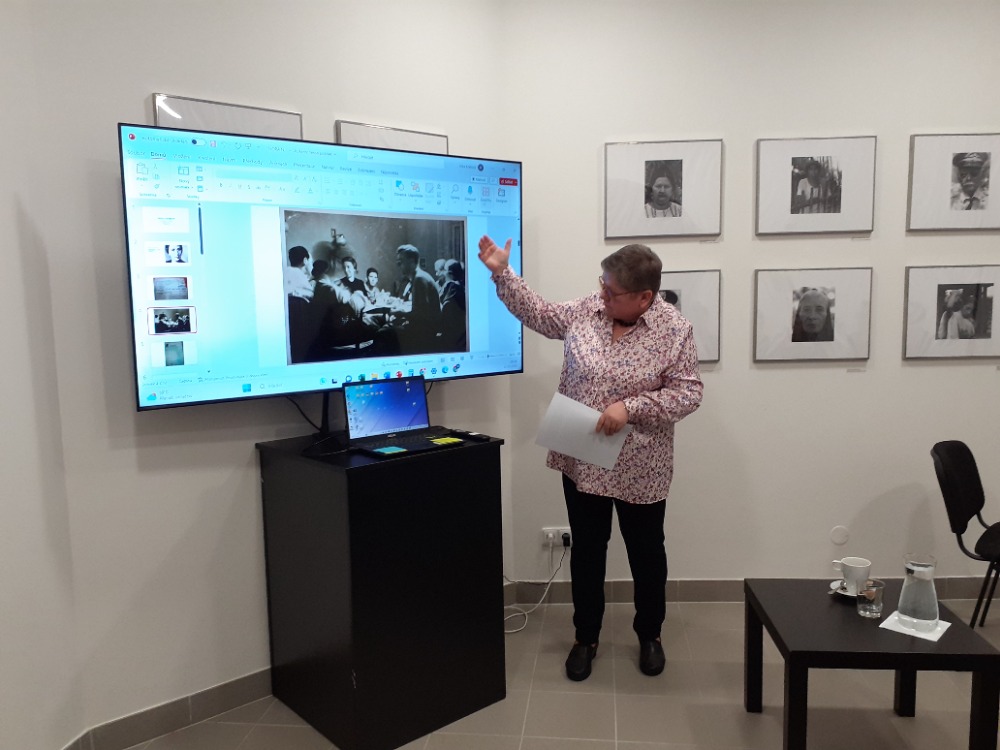
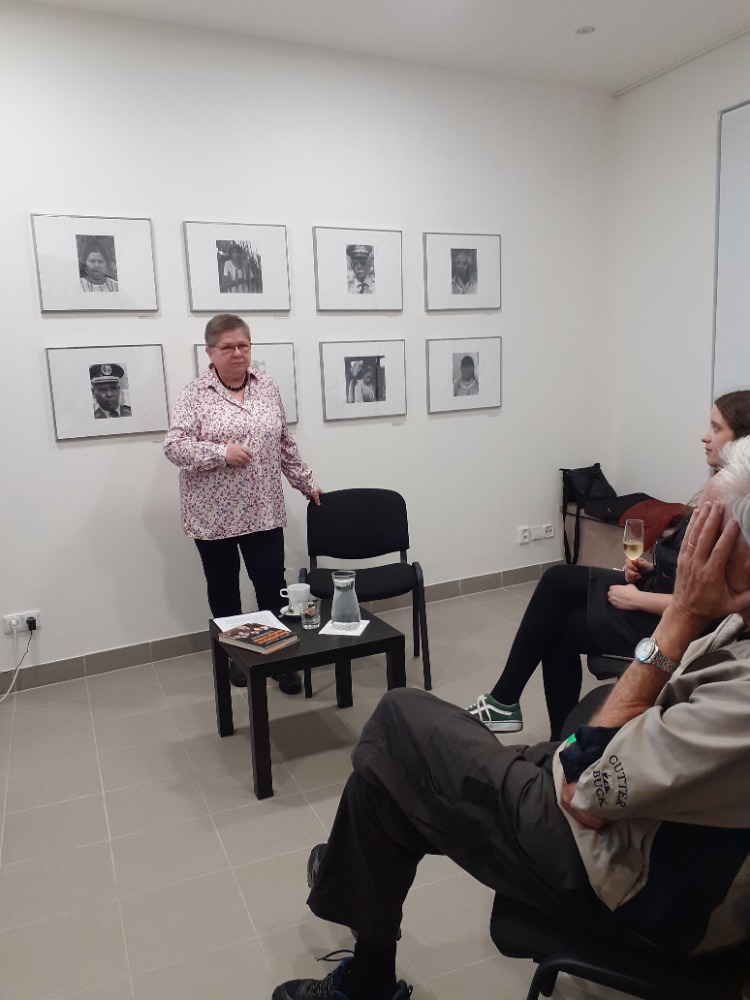
Boys from Boskovice
On Wednesday, October 4, our invitation to a talk was accepted by Mrs. Vicky Unwin, granddaughter of the "Moravian Kafka" Hermann Ungar. Her talk was not only about
around her book Boy from Boskovice, in which she comes to terms with her family's "history" of the complex characters of her father Thomas and
Grandpa Hermann. "We invited Mrs. Vicky not only as the granddaughter of an important writer, but as Mrs. Vicky Unwin," said Mehrin, speaking for
Táňa Klementová, and therefore the debate was also about her acceptance of her own Jewish roots and family heritage from Moravia. A recording of the entire discussion can be
see it on our Facebook page.
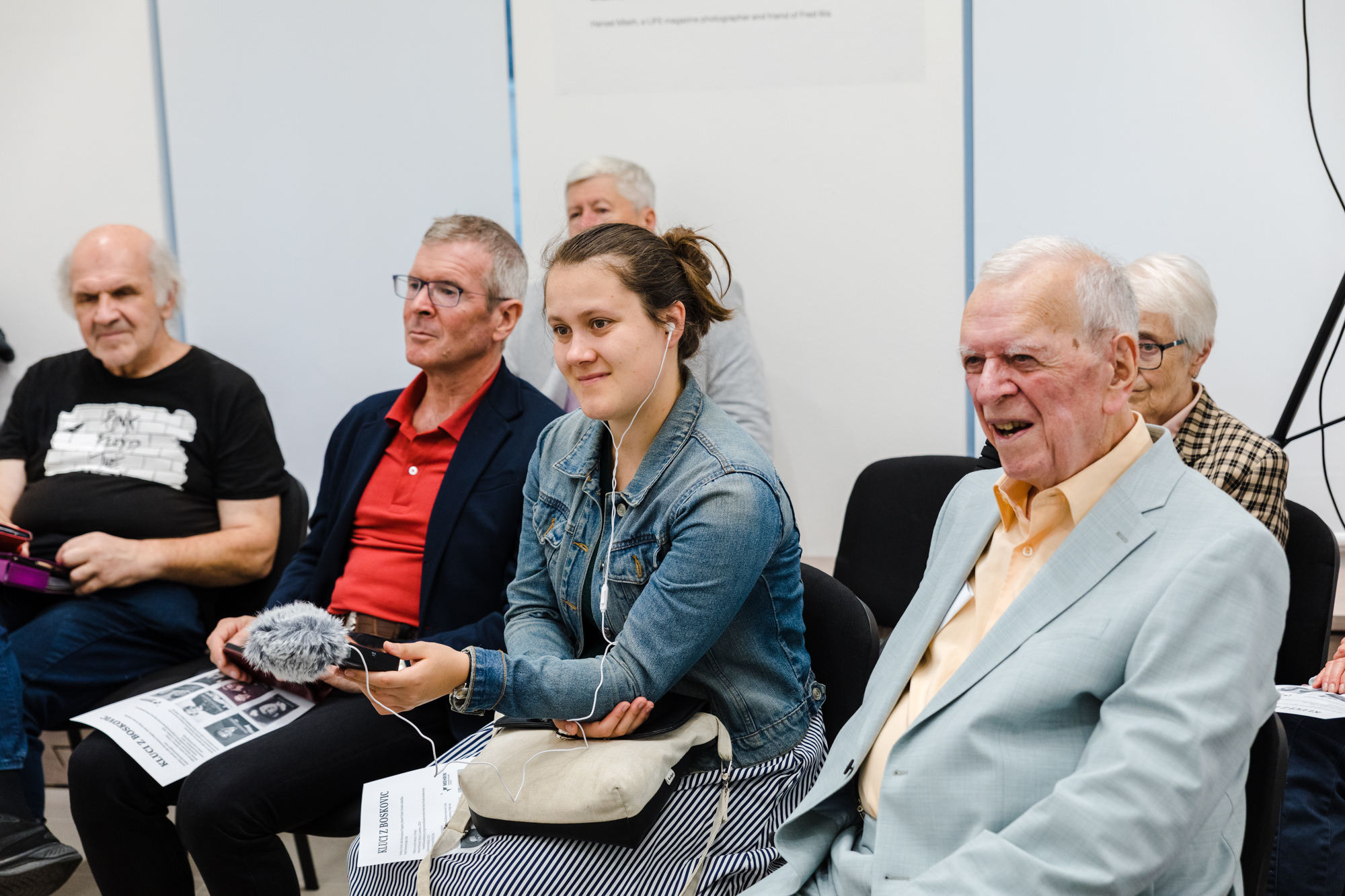
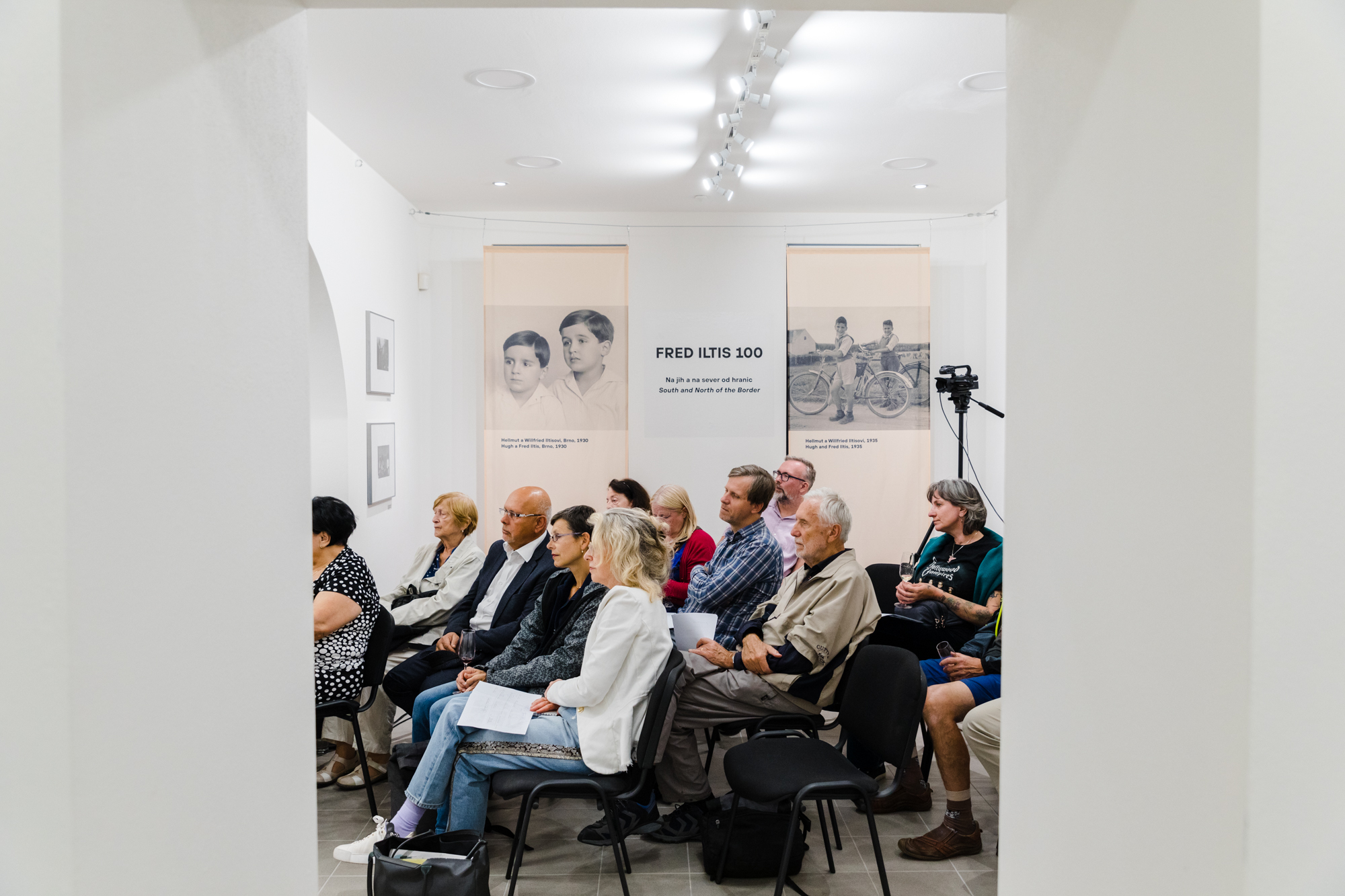
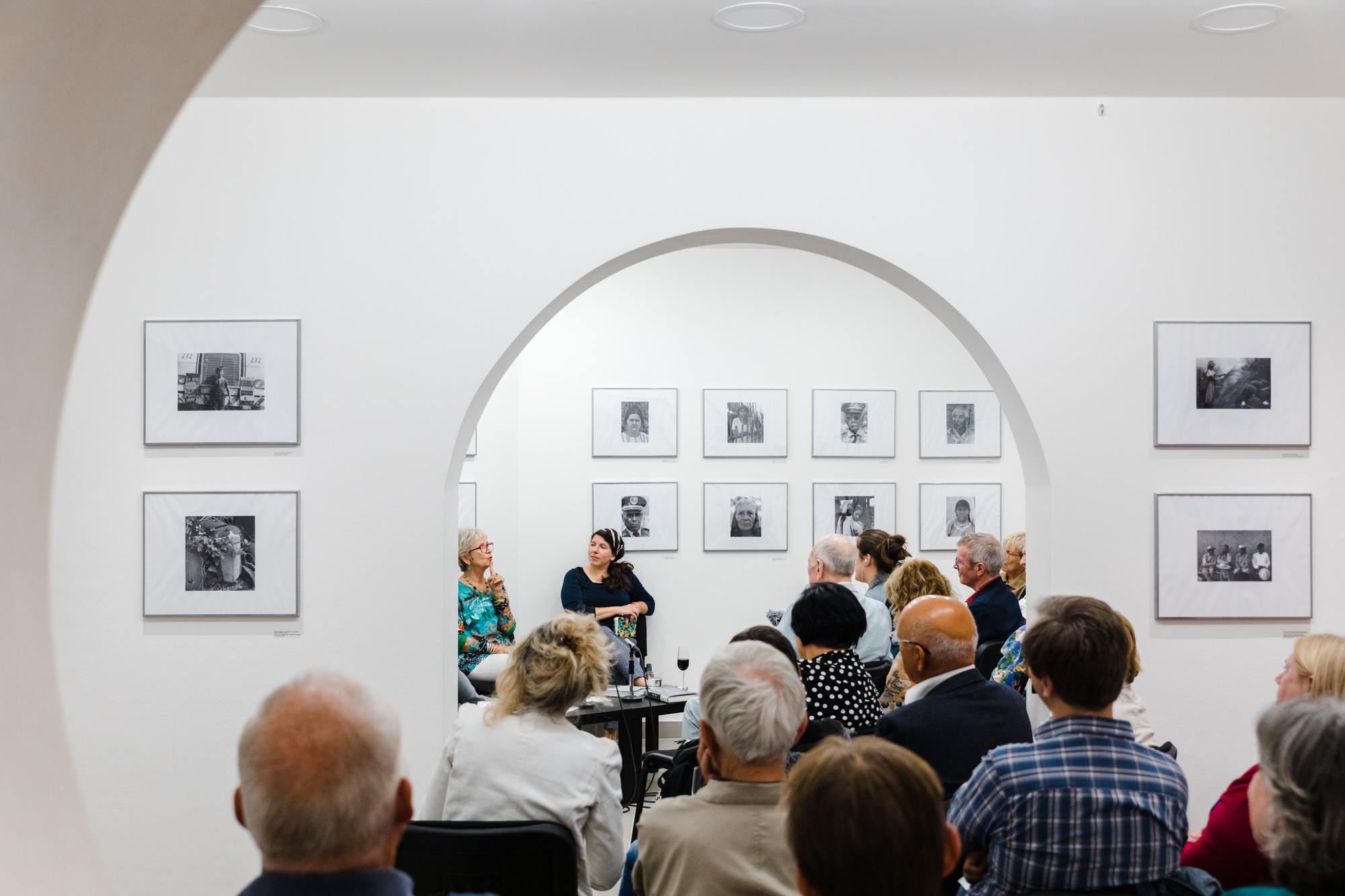
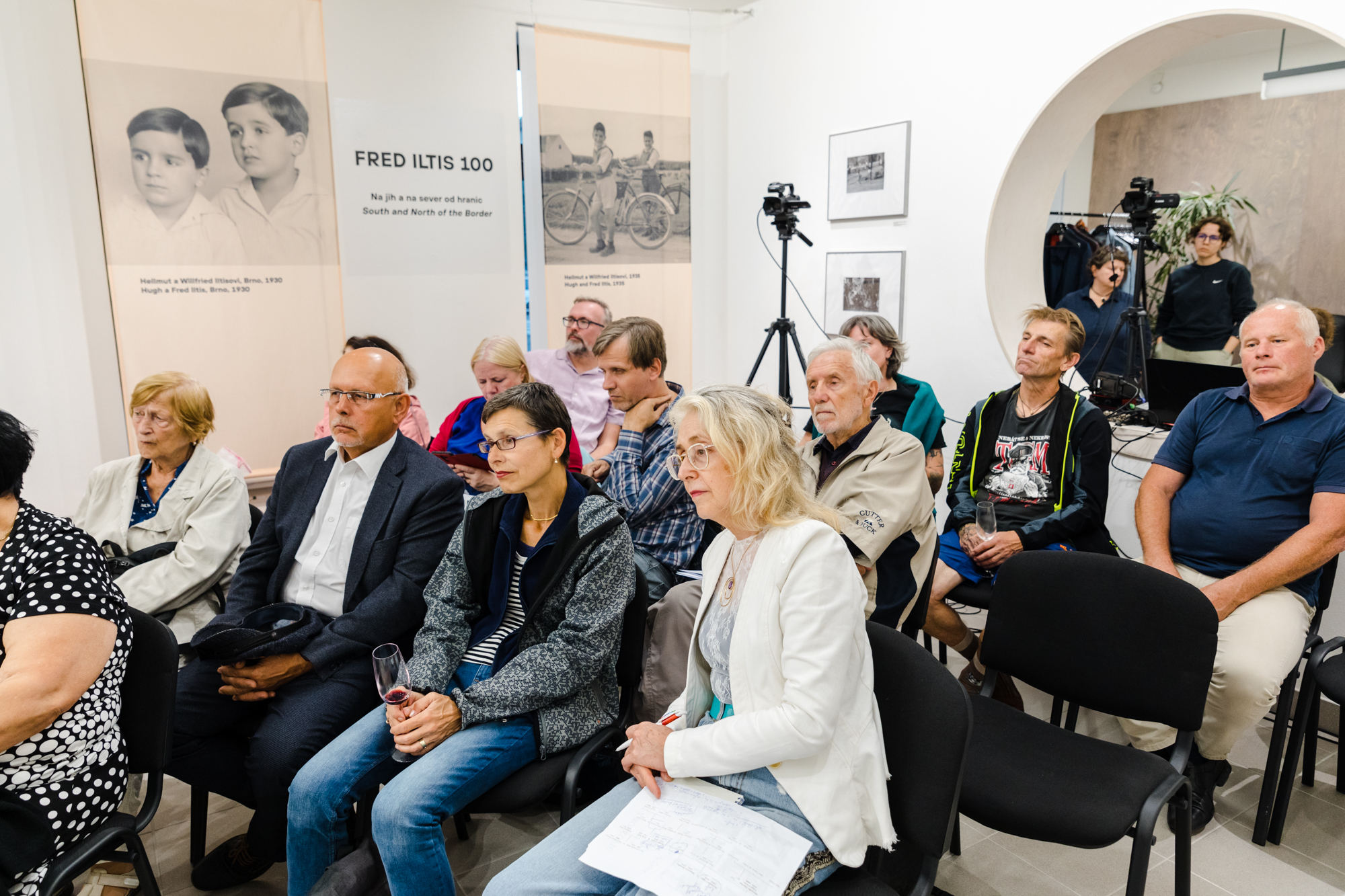
Organ in Jewish liturgy
On Thursday, September 21, we were honored by a visit from Mr. and Mrs. Peter, the parents of the current rabbi of Prague. Mrs. Peter had already lectured with us in May of this year, and now she came together with her husband Václav Peter, who is the organist at the Jerusalem Synagogue in Prague and an organist and music therapist. Their talk was mainly about the specific organ of the Jerusalem Synagogue, its maintenance and operation, but above all about the creation of music for this instrument - the title of the lecture Organ in Jewish Liturgy thus completely fulfilled the announced theme.
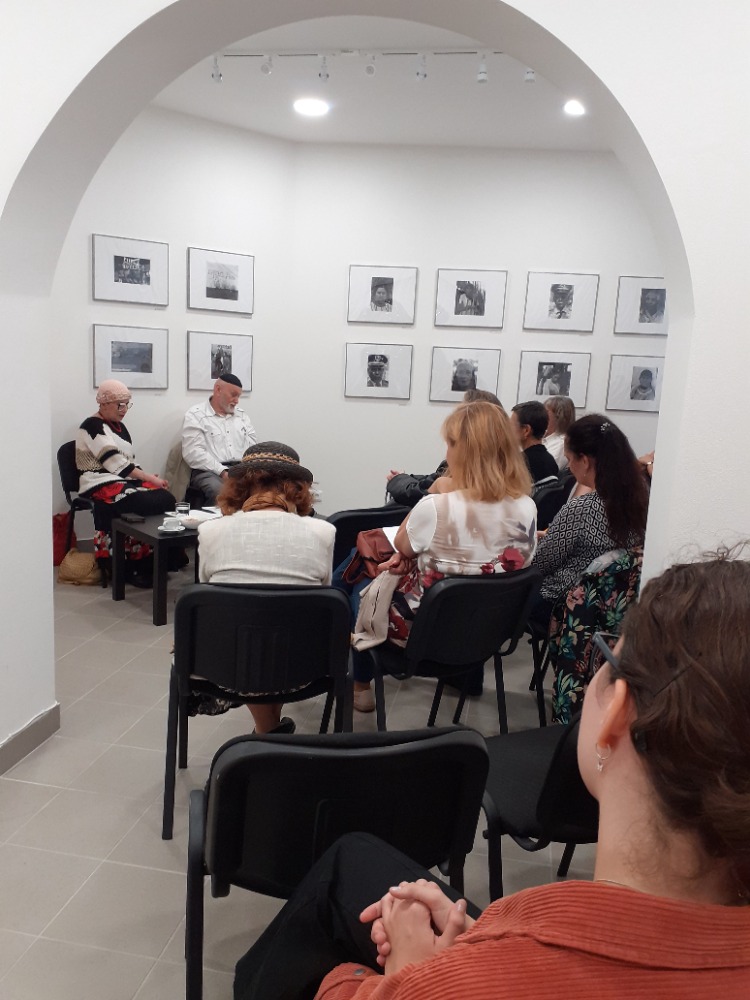
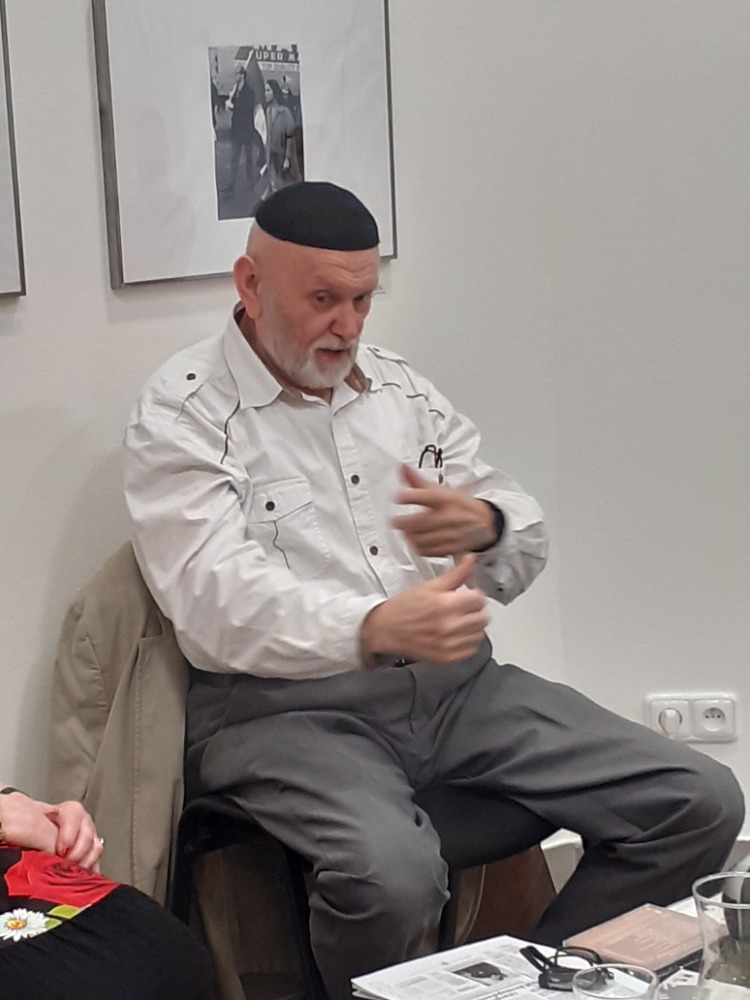
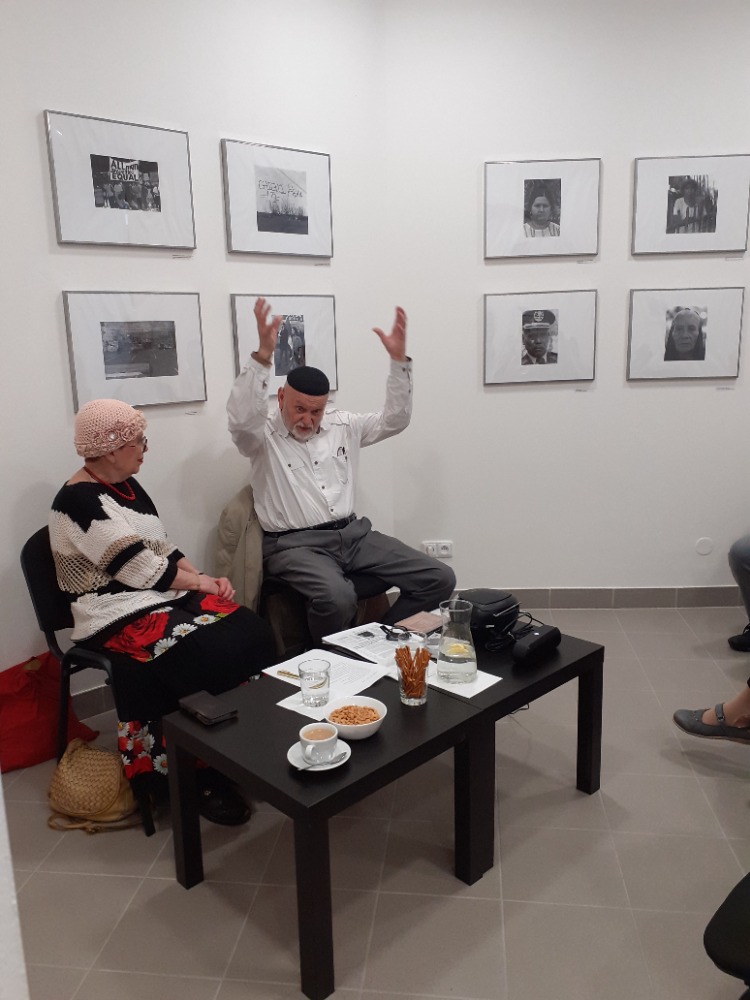
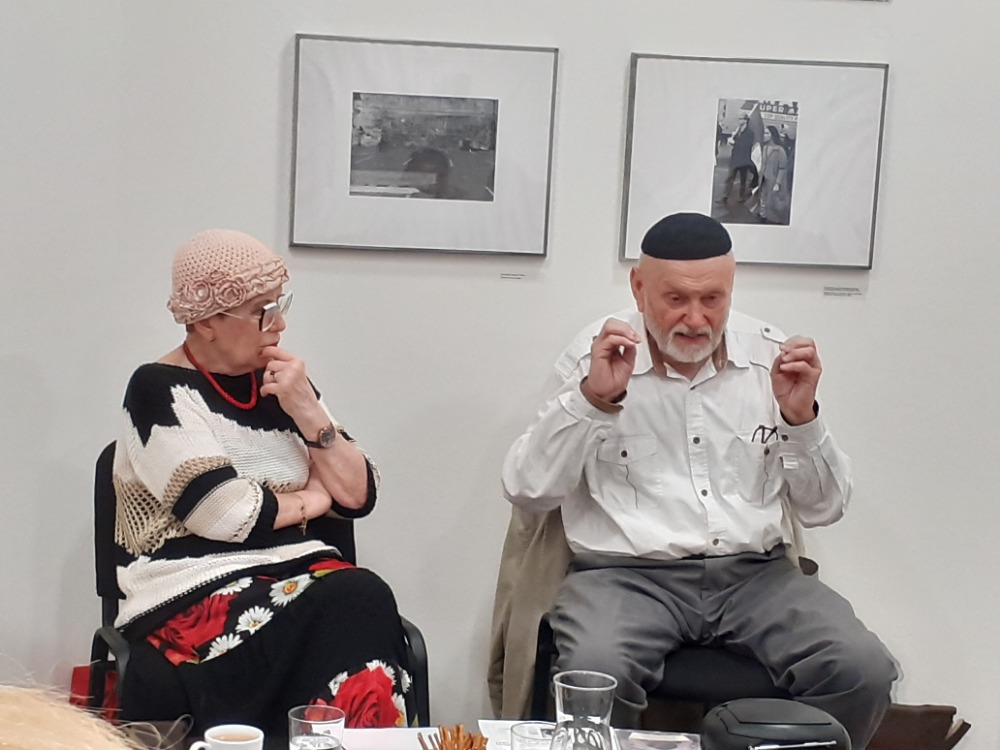
Fred Iltis - 100 - South and North of the Border
Under this title we opened the third exhibition in our premises on Tuesday, 19 September 2023...
Fred Iltis was born on 20 April 1923 in Brno. He fled with his family to the United States to escape the Nazis.After the war, he received his Ph.D. in entomology from the University of California and in the 1960s settled with his wife Julia in San Jose, where he taught in the biology department. He became very sensitive to minority issues and injustices, and began documenting the activities of the civil rights movement through black and white photographs, among other things. He developed, printed and carefully archived his photographs at his home. With a modesty all his own, he refused offers to exhibit them. It was not until 2008 that he accepted a proposal from Daniele Ravenna, who exhibited a set of 40 photographs carefully selected by Fred in Milan in 2009. However, Fred Iltis did not live to see the opening of the exhibition. We are glad that, thanks to the kind loan of Mr. Ravenna, we can present these photographs in Brno, just 100 years after the birth of their author, who would certainly have enjoyed his return to his hometown.
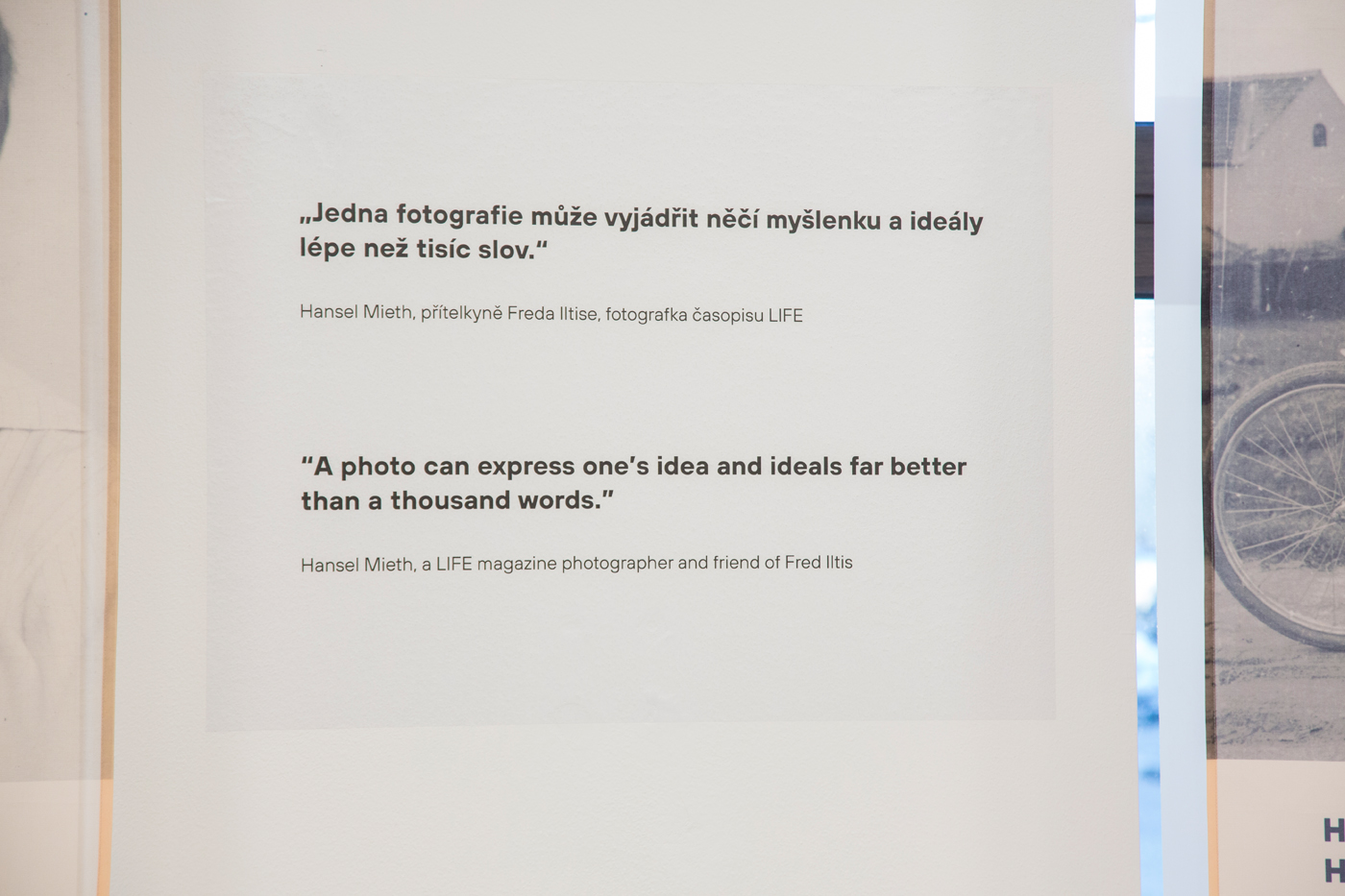
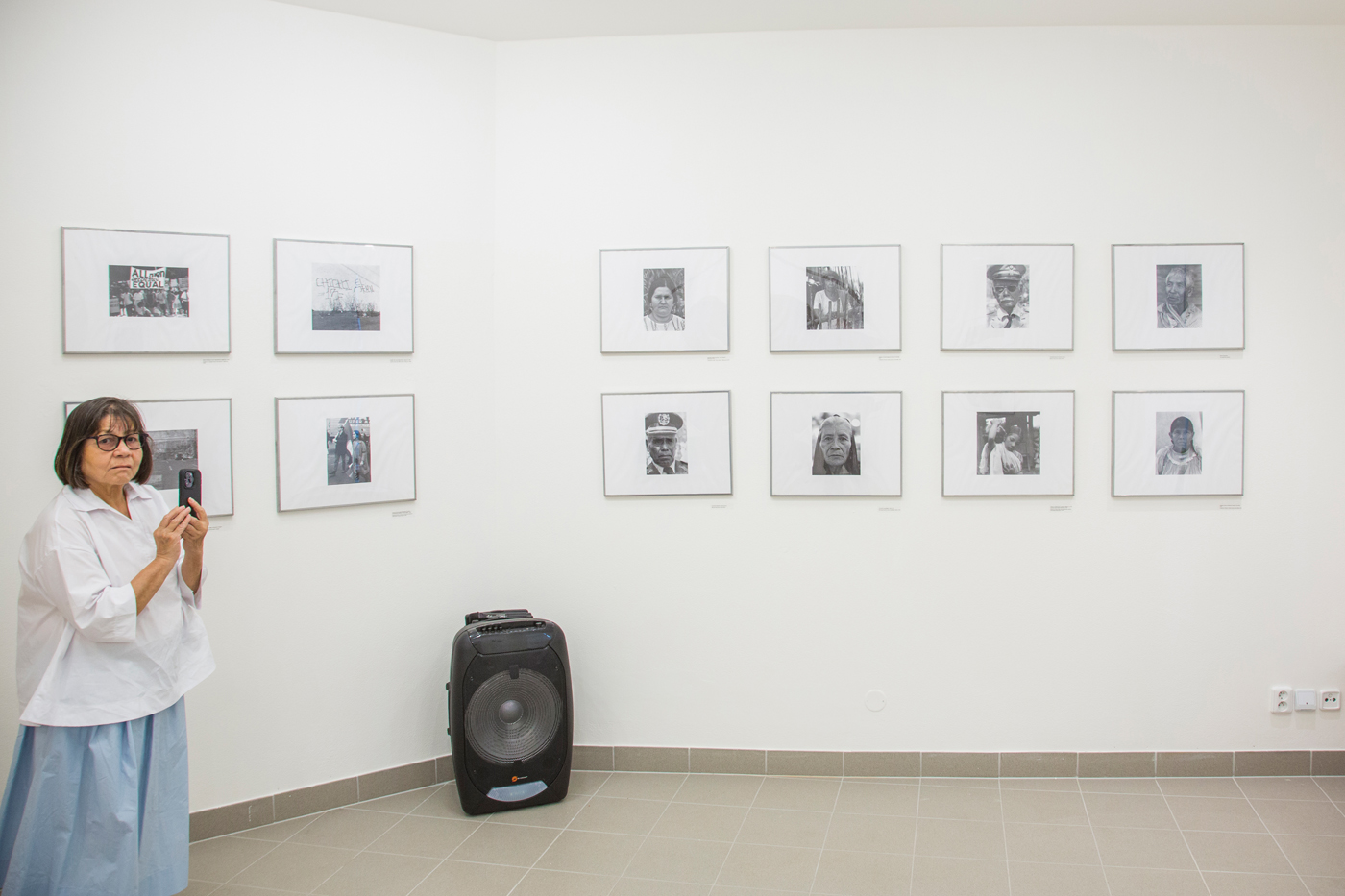
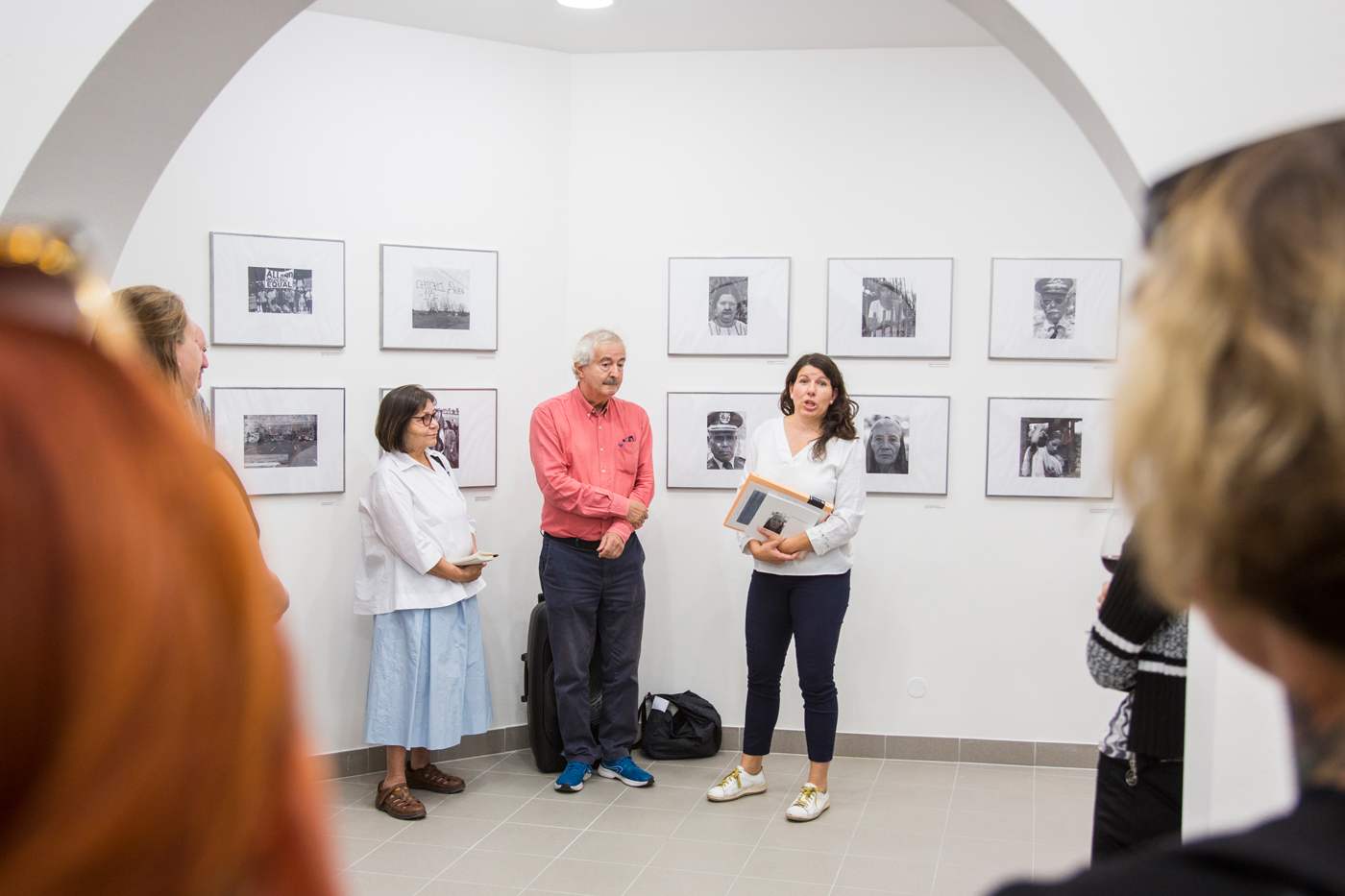
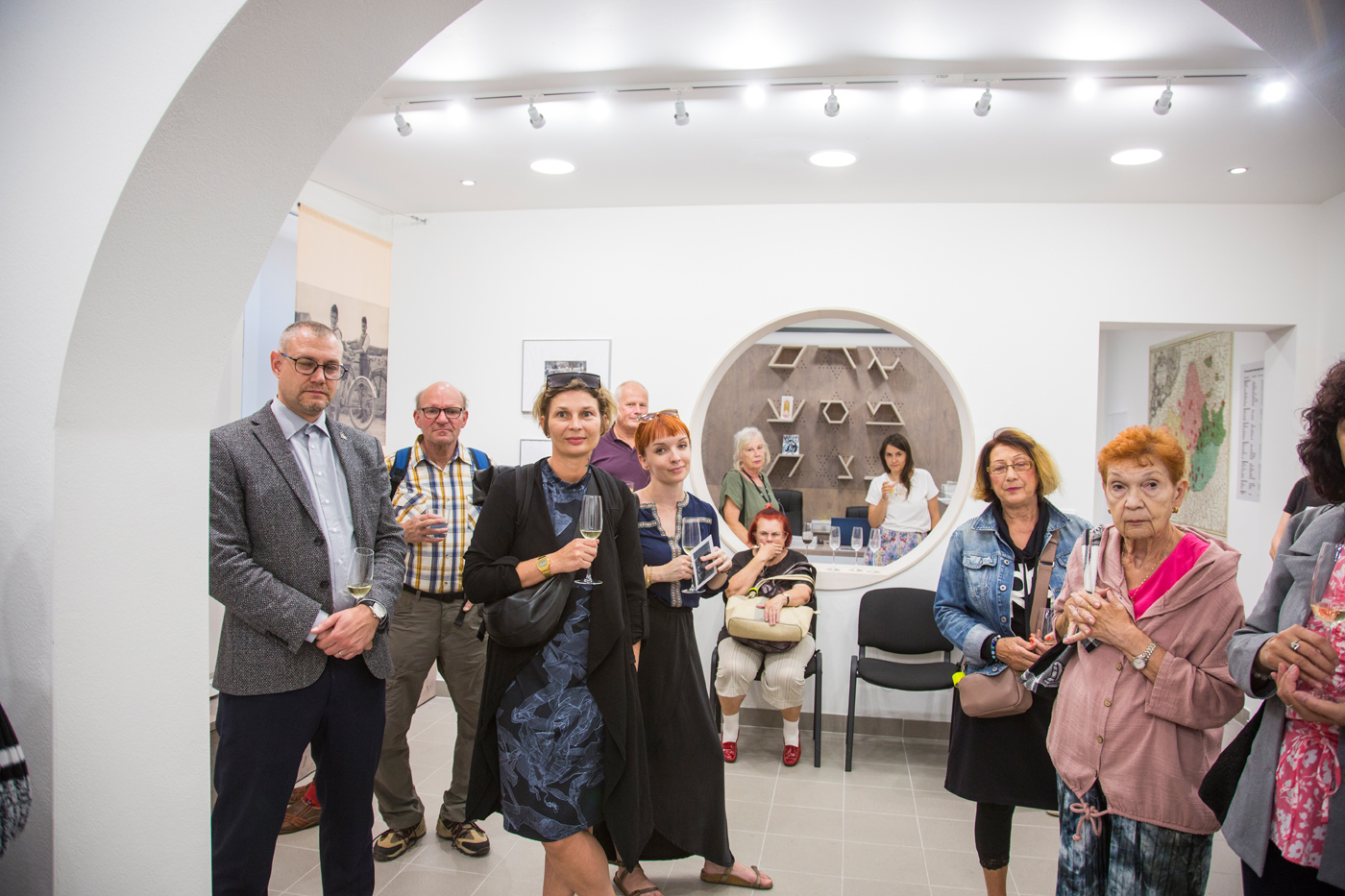
David Placzek in Café Kaprál
David Placzek, who died in Australia in 2008, was present in Brno on 26 June, of course only symbolically, or rather through his book of memoirs. However, he was more than perfectly represented by his niece Rachel Alon-Margalit, who lives in Israel and who was instrumental in getting the book published in English in 2016. Now the book is being published in Czech as the first title of the Mehrin edition, the establishment of which fulfils another of the stated tasks of the project to build the Moravian Jewish Museum Mehrin.
Since there is an exhibition at Vídeňská 14 since last week, which does not allow for a hall arrangement, we moved the "baptism" to the magnificent scenery of Café Kaprál in the city centre and we were delighted by how many people took the time to attend this festive evening. The evening was hosted by Tanya Klementová and Martin Reiner. The book launch was also attended by four
members of the Placzek family from Brno, whose Café Placzek offers excellent coffee and cakes.
Since there is an exhibition at Vídeňská 14 since last week, which does not allow for a hall arrangement, we moved the "baptism" to the magnificent scenery of Café Kaprál in the city centre and we were delighted by how many people took the time to attend this festive evening. The evening was hosted by Tanya Klementová and Martin Reiner. The book launch was also attended by four
members of the Placzek family from Brno, whose Café Placzek offers excellent coffee and cakes.




Opening of Werner Malle's exhibition
On Friday 23 June, the opening of the exhibition Traces of Light by the Czech-German sculptor and artist Werner Malle took place at Vídeňská 14. Werner spent six days in Brno with his wife and personally saw both the installation of the exhibition and the erection of the two-ton colossus Restlicht (Residual Light) on Svoboda Square, which commemorates the most difficult period for European Jews between 1938 and 1945. We would like to thank Jozv Hyžný for his significant help in the installation of the exhibition, and Mirka Holasová for the photos from the opening. Special thanks go to Petr Šesták, who came up with the idea of organizing the Werner exhibition in Brno and also connected us with each other. And we would also like to greet our colleagues from the Meeting Brno festival, with whom we worked closely with in handling the logistics of the Restlicht exhibition.



Jeřábek and Uhde about Milan Kundera
The discussion on Monday, led by PhDr. Mojmír Jeřábek and PhDr. Milan Uhde, was of great interest. The object of their interest was the personality of Milan Kundera. Whoever is interested in what was discussed can listen to the whole lecture on the Facebook page of Malý Mehrin and see the photos of Vít Mádr below...
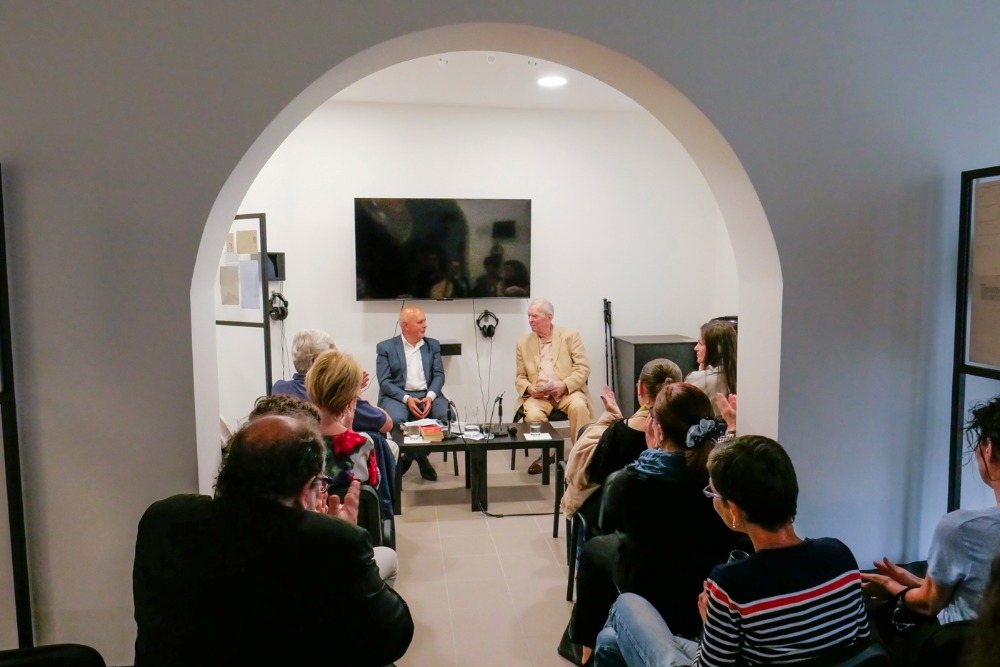
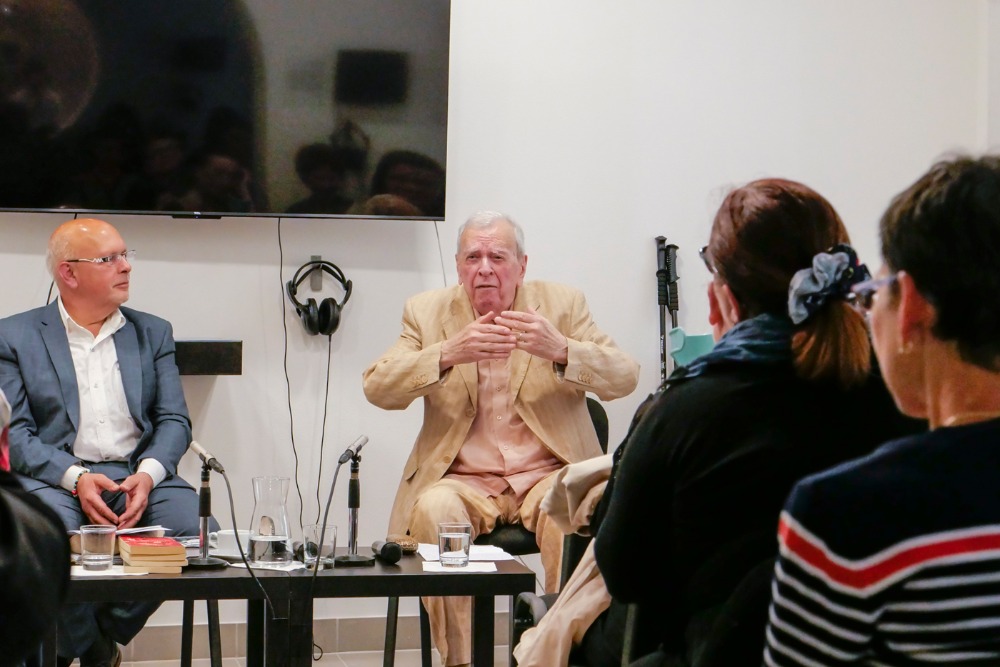
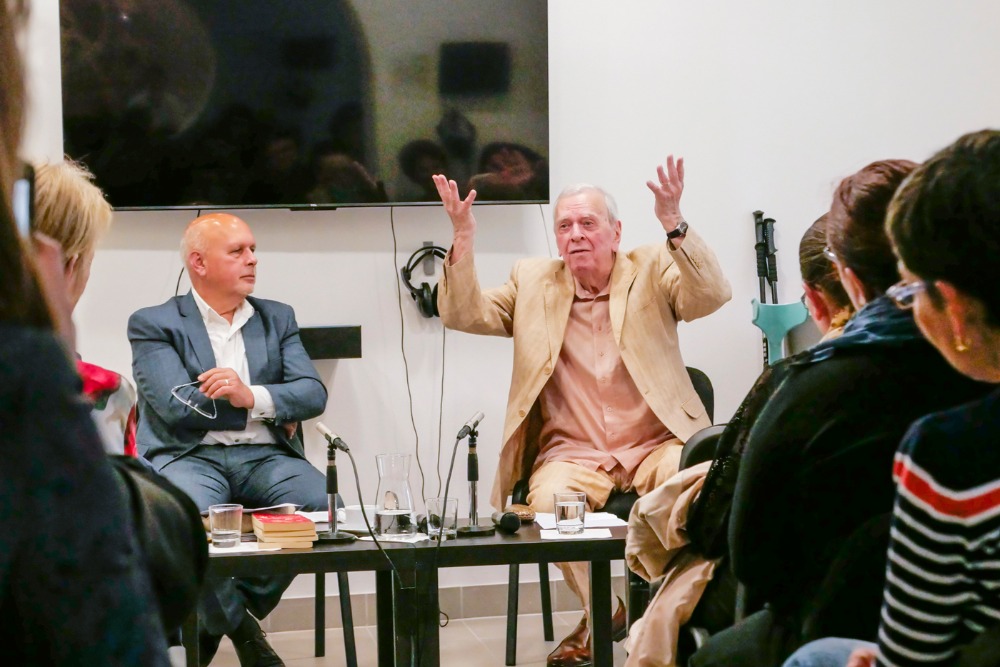
The personality of Dr. Richard Feder will not be forgotten
Wednesday's lecture by psychotherapist and writer Zuzana Peterová struck the hearts of all present. The content of her presentation was the life story of Dr. Richard Feder, who worked in Brno from 1953 until his death in 1970. The atmosphere of the evening is probably best summed up by an observation and a question from one of the visitors at the end. In my eyes, you are carrying on the legacy of Dr. Feder, because you too are giving comfort and hope to those who turn to you! What a simply spoken tribute to both...
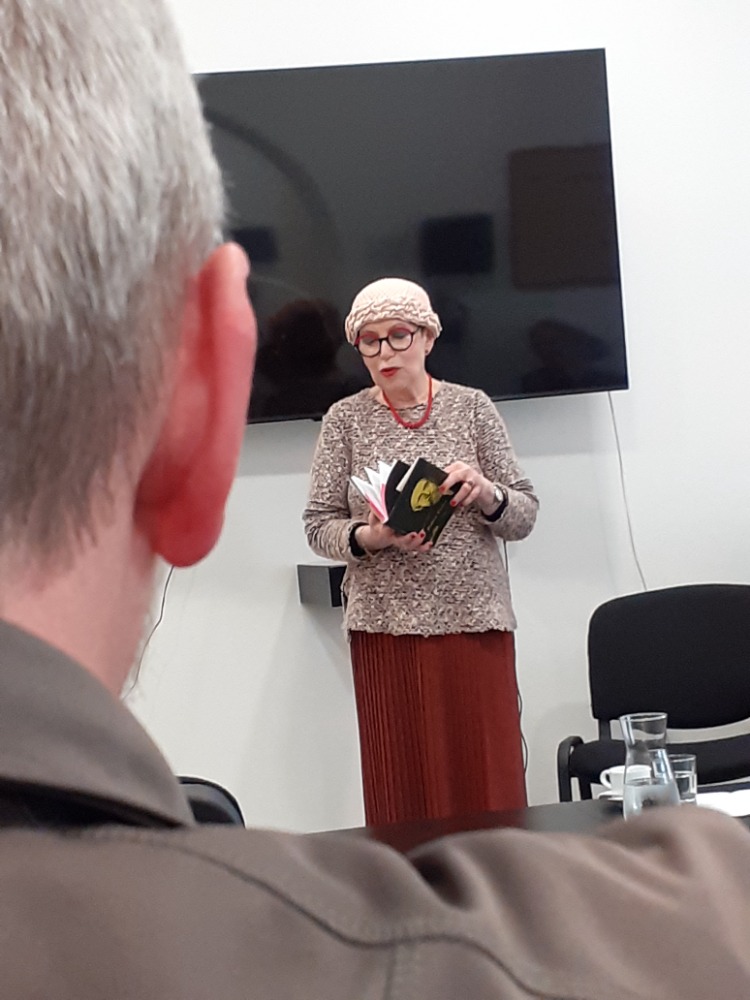
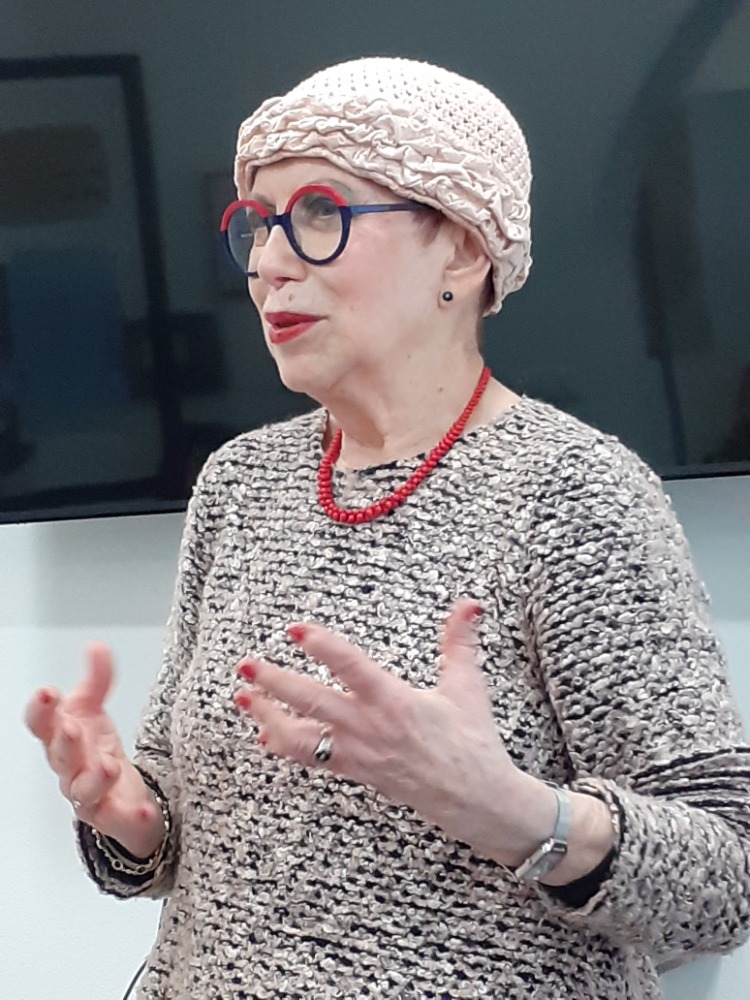
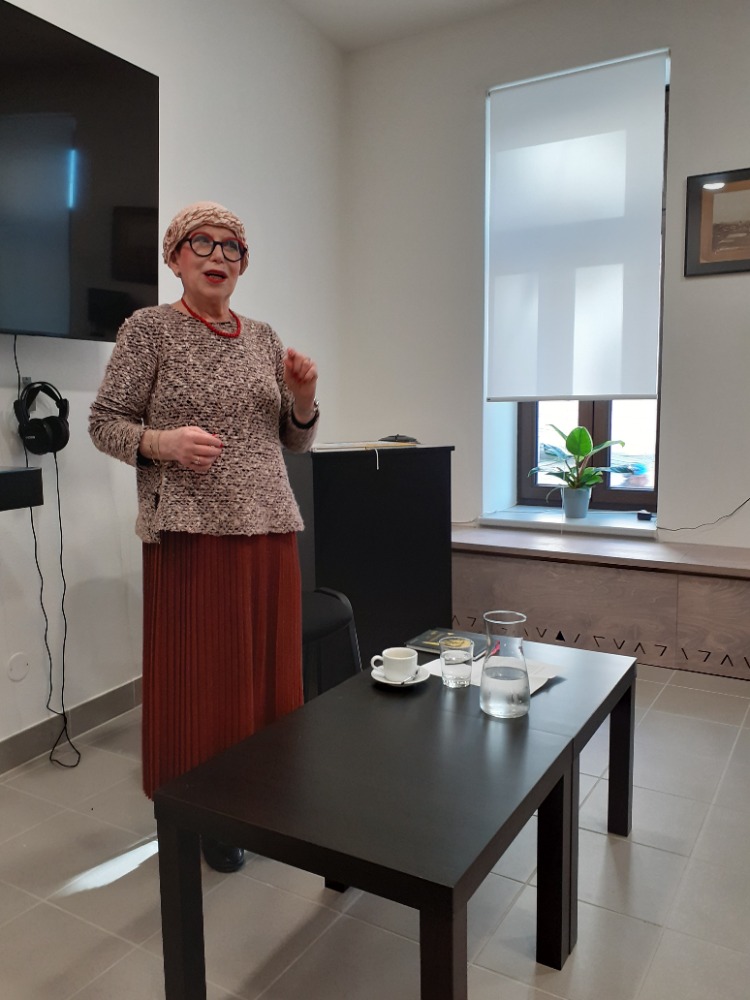
Students at Vienna
It is gratifying for us that the Carriers of Memory exhibition, which will be installed in Vienna until mid-June, has not escaped the attention of educators who are looking for interactive teaching methods for their pupils and students. On Tuesday, 2 May, the exhibition was visited by students from the Brno Gymnasium, tr. Kpt. Jaroše, who were introduced not only to the exhibition itself, but also to the project of creating the Moravian Jewish Museum Mehrin by Martin Reiner. The students then began to listen individually to the testimonies of witnesses and to examine the contemporary documents and documents that are displayed in the exhibition. Some of them then recorded their reflections in the visitors' book...
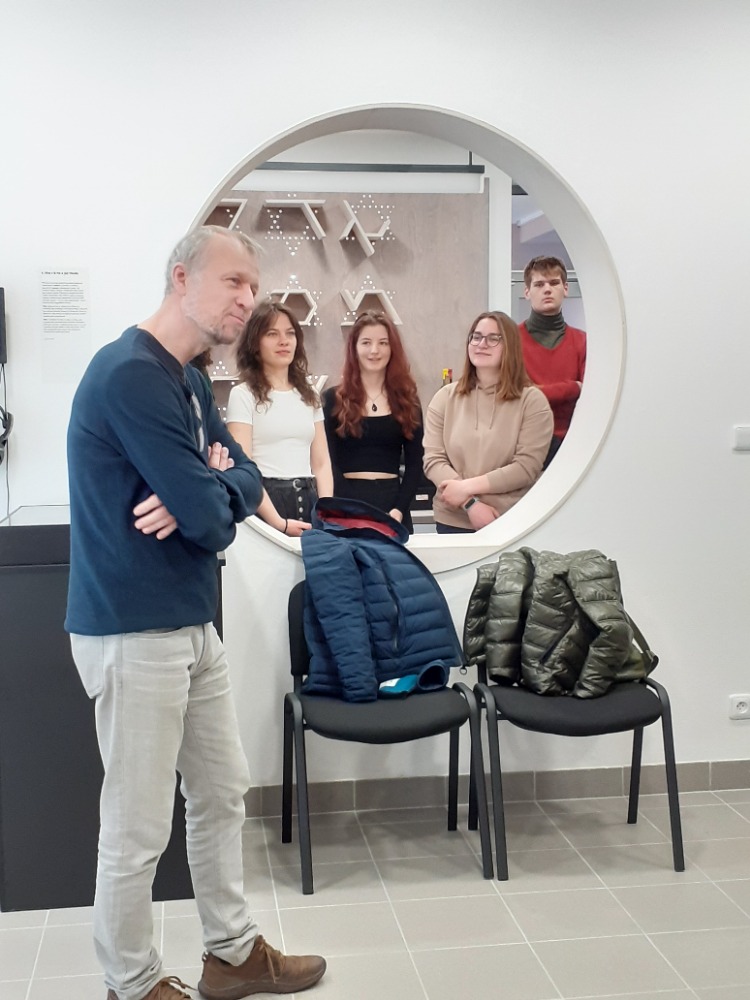
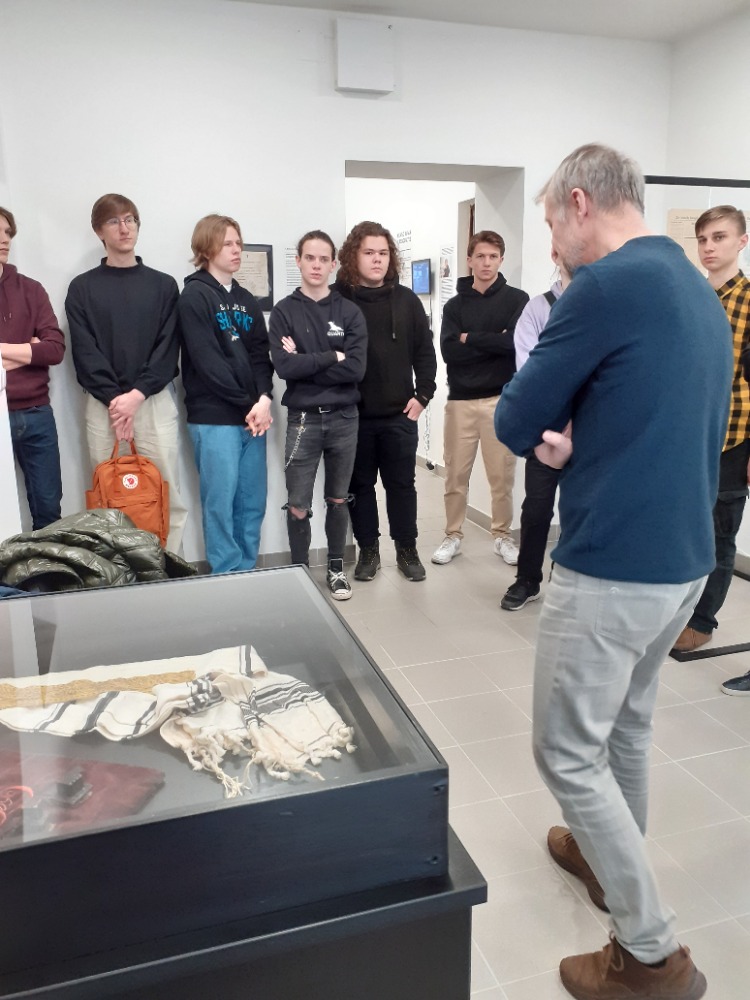
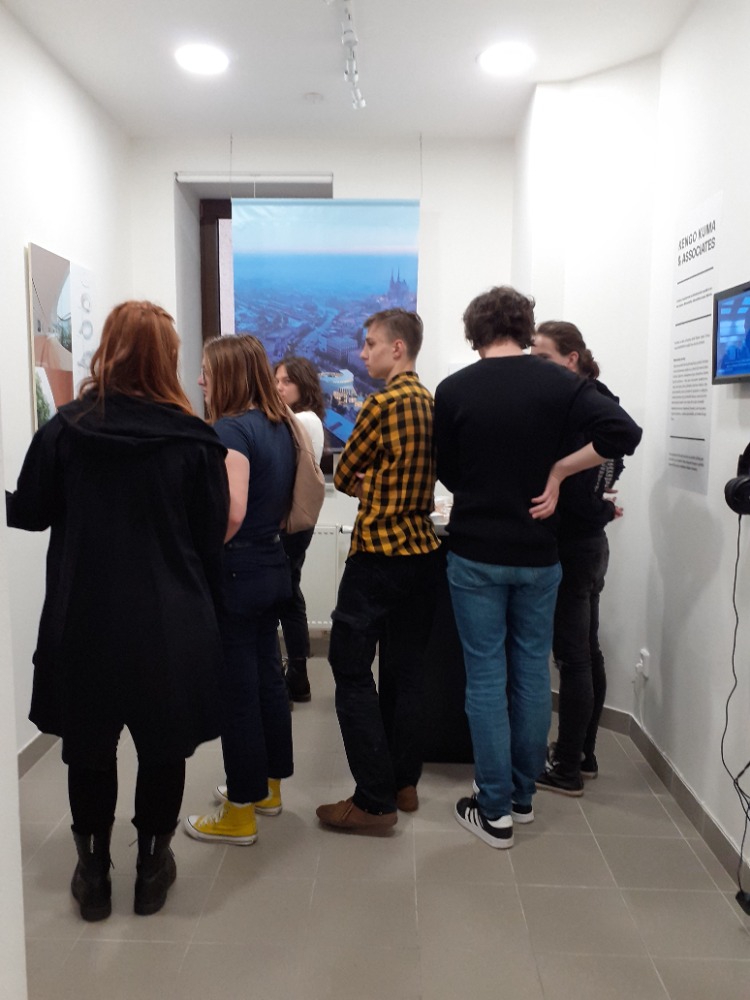
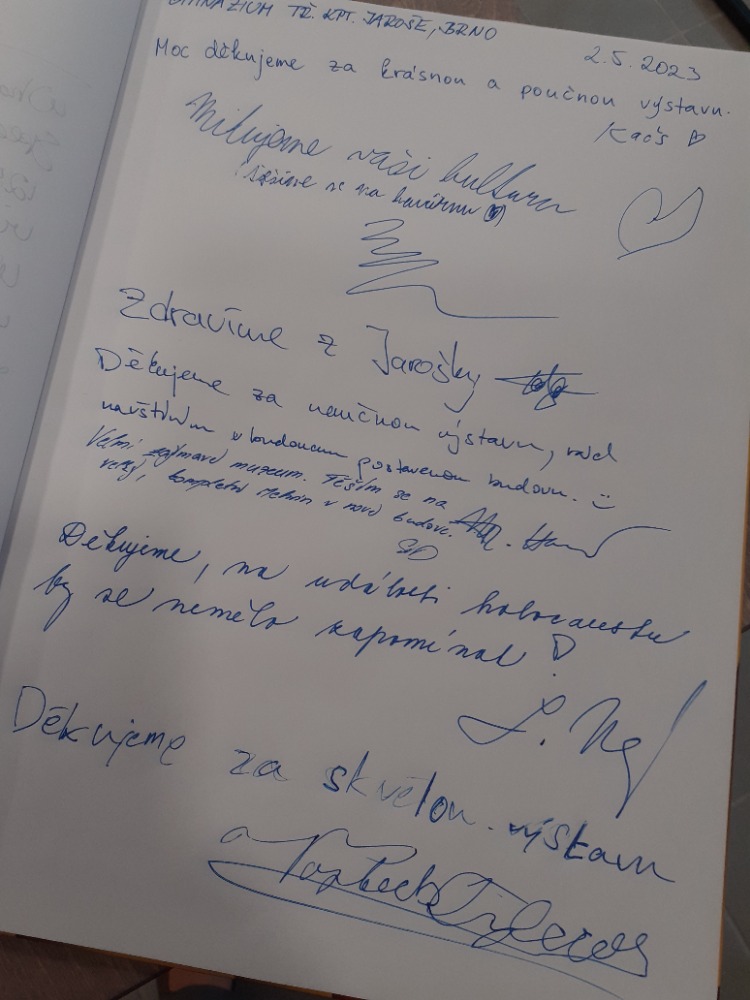
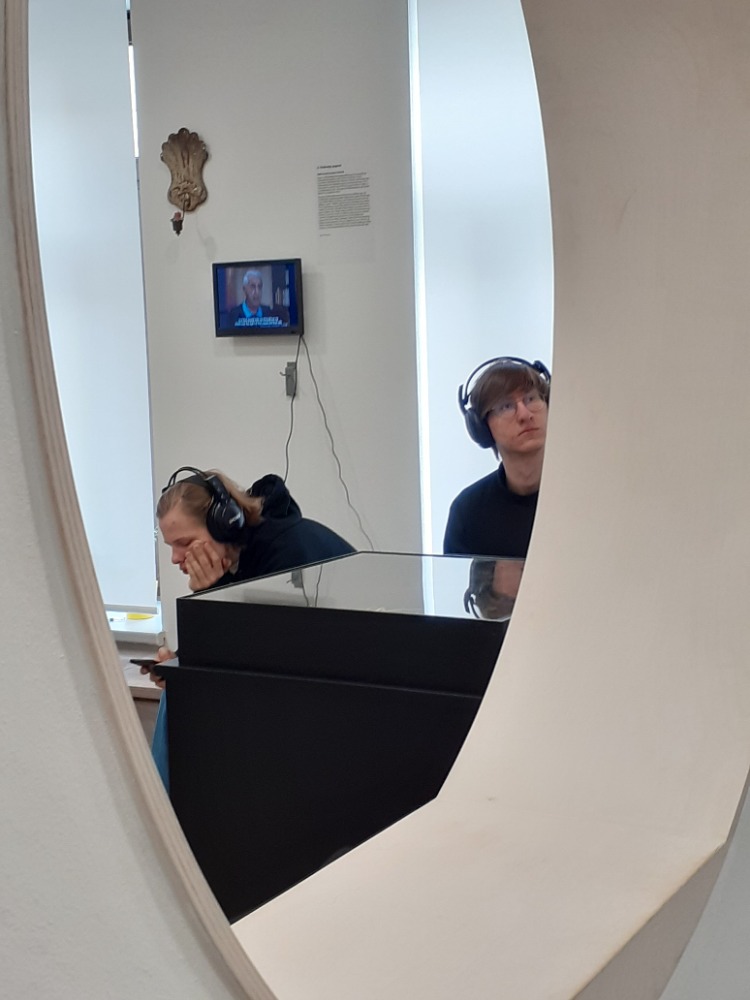
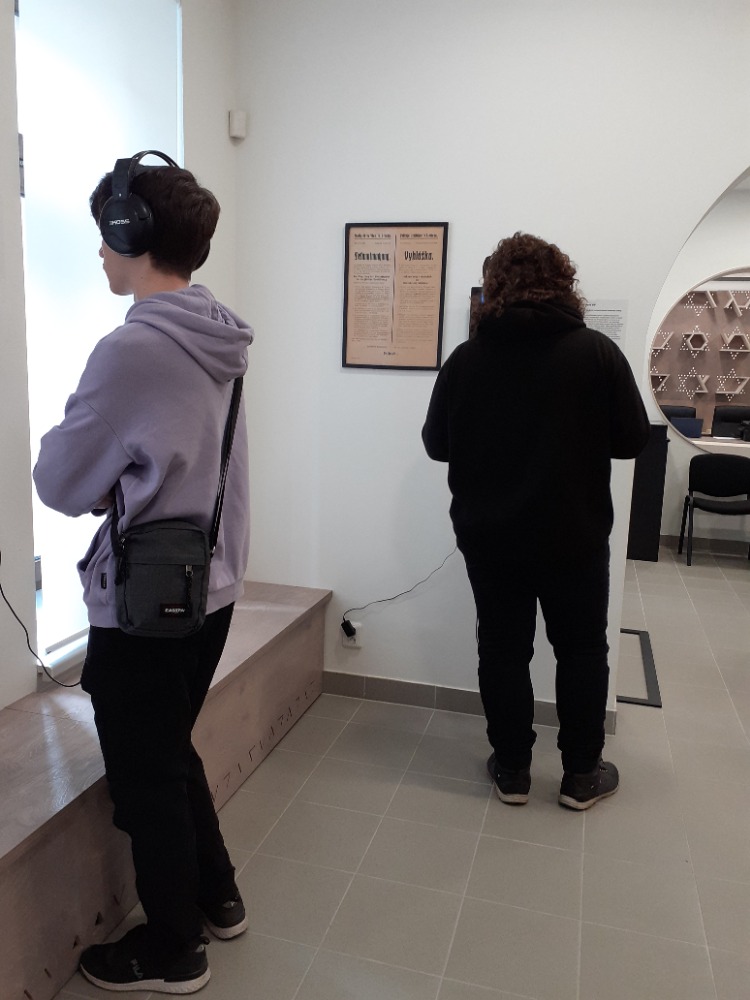
The Warsaw Ghetto Uprising
The heroic act of a small number of people who were to be included in the last transport and chose to die with their heads held high is relatively well known to the world.
On the occasion of the 80th anniversary of the beginning of the uprising (19 April 1943), we nevertheless invited historian Jiří Friedl to Vienna 14, who spoke very insightfully not only about the uprising, but about the entire history of the ghetto and life in it. Vladimír Krátký, an actor from the National Theatre Brno, read excerpts from the Warsaw Diaries
ghetto, the author of which is none other than Adam Czerniaków, a long-time chairman of the local Jewish community and then of the Judenrat, which took care of the running of the ghetto. Czerniaków's life ends tragically: he poisons himself with cyanide in his office when he discovers that he cannot prevent the transports and the liquidation of the ghetto.
A minor event in the extremely interesting evening, which was insightfully moderated by Táňa Klementová, was the participation of Edita Krystýnková, who was born in the Warsaw Ghetto and spent the first two years of her life there. The photographs were taken as usual by Vít Mádr.
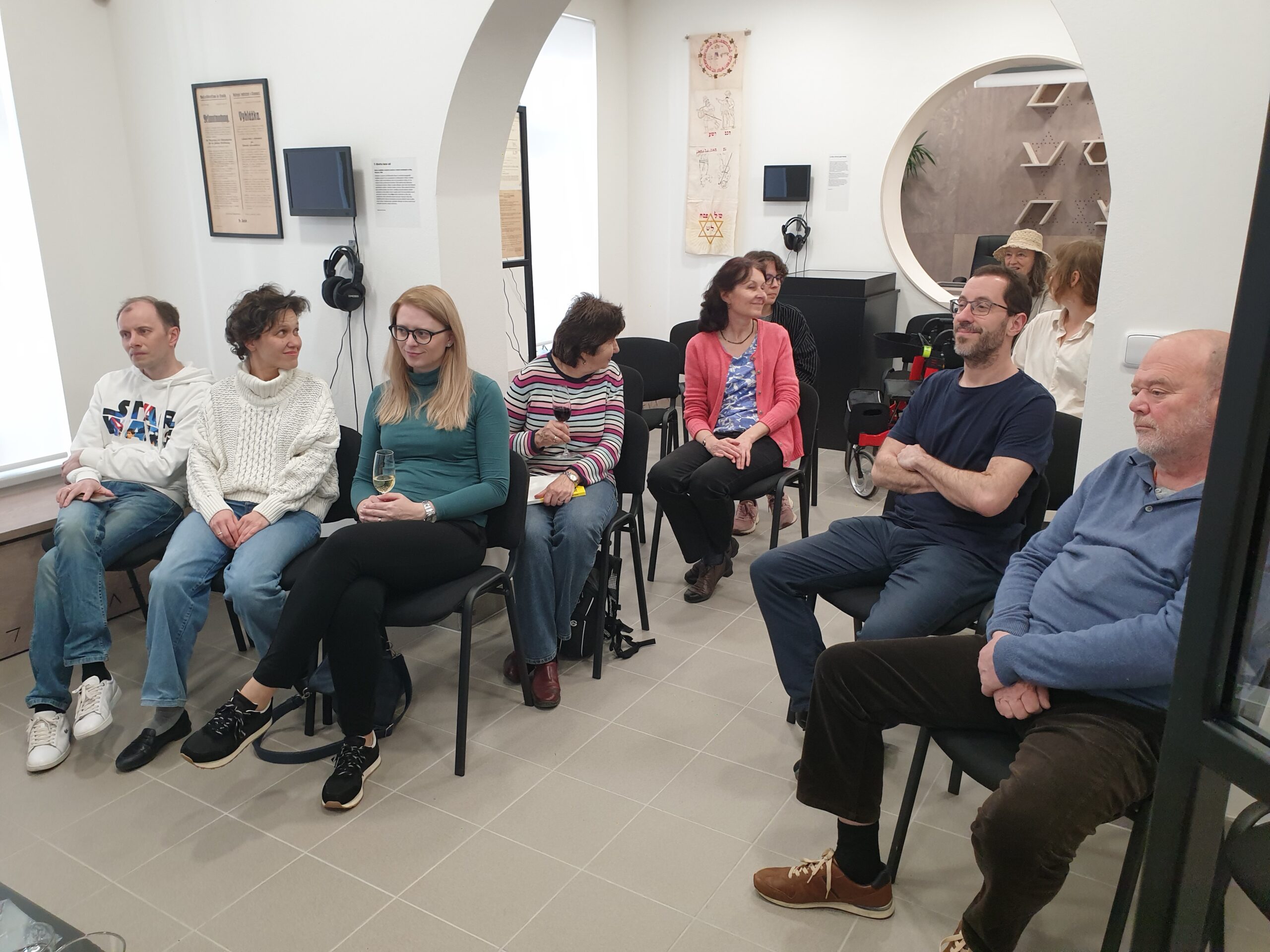
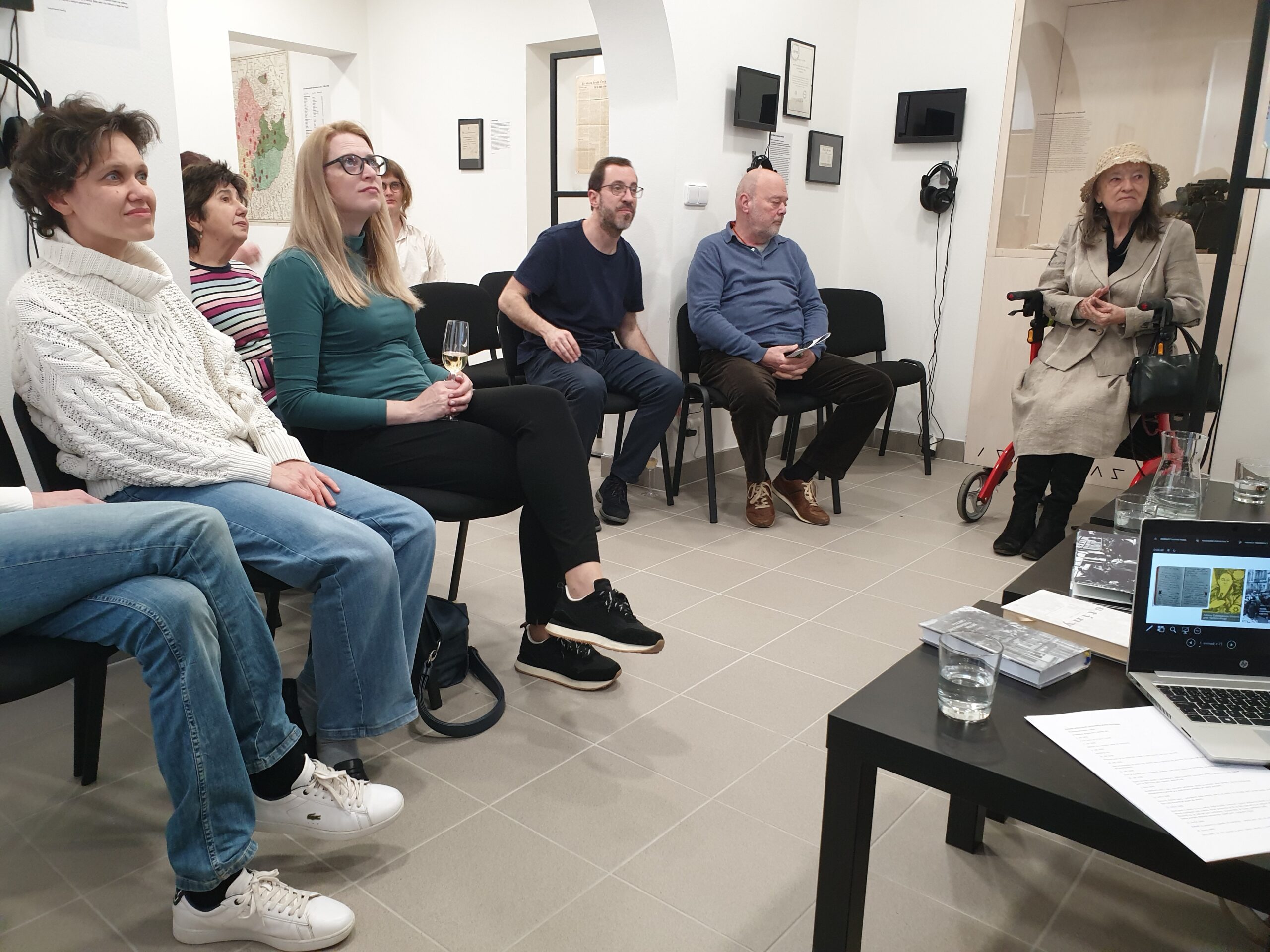
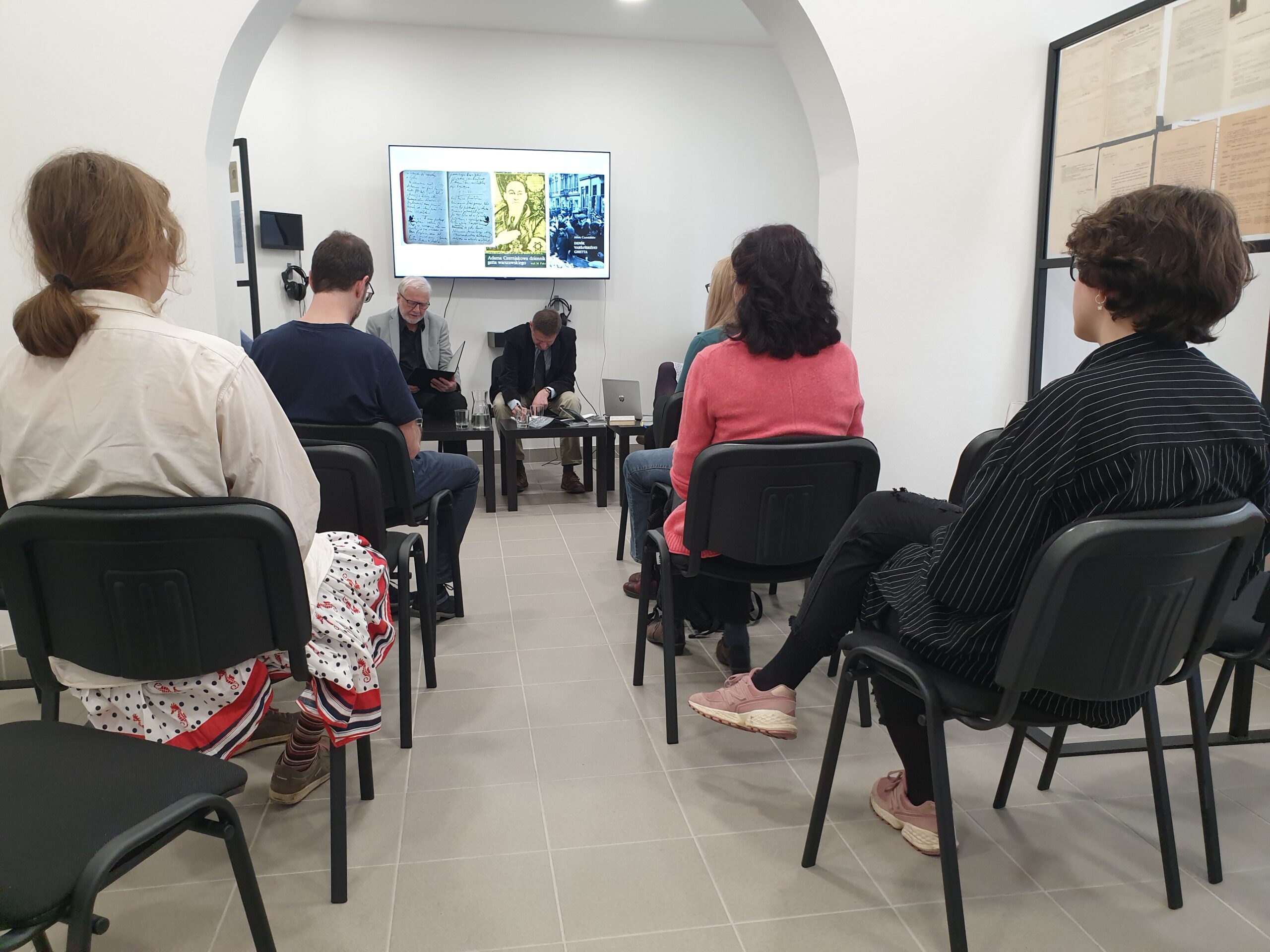
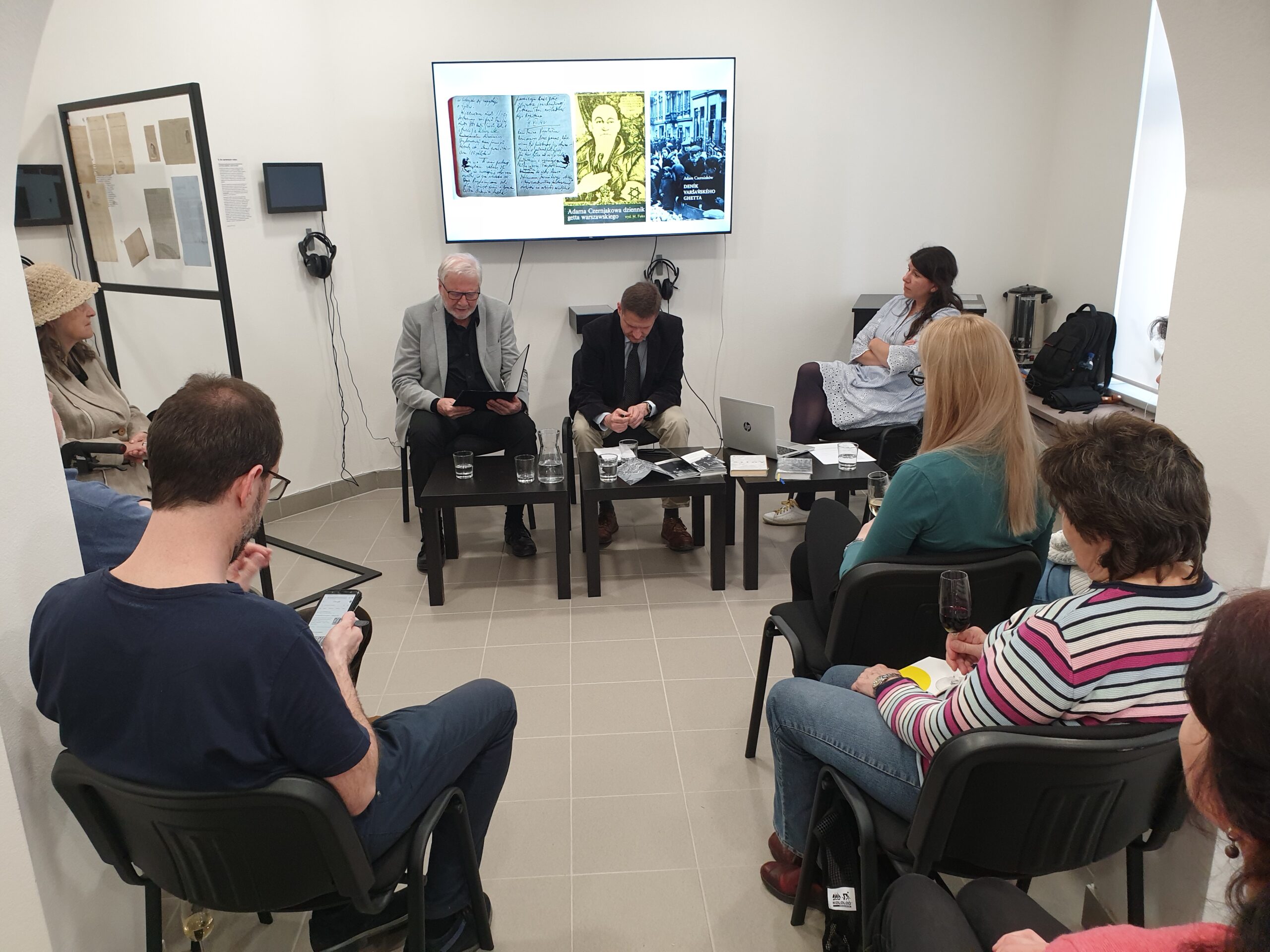
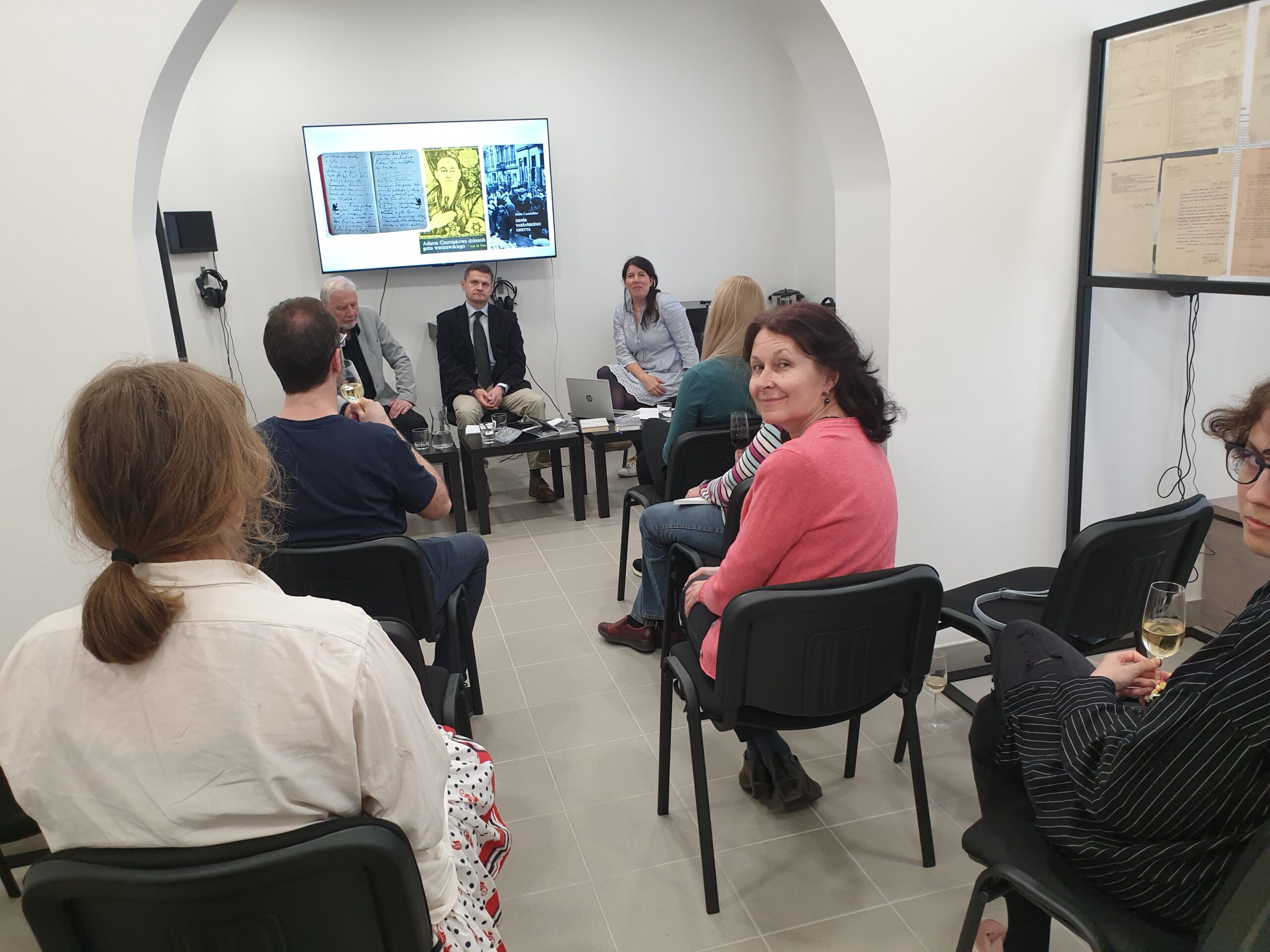
Portrait of Anna Löwy
On Friday, April 14, Little Mehrin experienced something extraordinary. Ann Altman, who was born in Bristol, England, after the war, arrived from the United States, but her family tree includes several important Moravian Jewish families. None of her four grandparents survived the Holocaust, but her grandmother Anna Löwy (from the family of Znojmo brewer Rudolf Wotzilka) remained with the survivors in a beautiful portrait painting. When Ann Altman learned the year before last that the Moravian Jewish Museum Mehrin was being established in Brno, she got in touch with us, offered her help, and after some time decided to donate her grandmother's portrait to the museum. She brought it personally, talked to journalists on that occasion and in the evening at Vienna Street with the visitors of the ceremony of handing over the painting.
Thank you, and we see it as a commitment!






Visit of the Minister of Culture
On 1 April, the Minister of Culture of the Czech Republic Martin Baxa visited our "temporary" museum. He was personally guided through the exhibition Carriers of Memory by its author Martin Šmok. The Minister came with his wife and stayed with us for over an hour, so we had enough time to discuss a number of questions about the future of the project and its support from the Ministry and the government. Although the economic situation of the country is not favourable due to the epidemic of covid, the war in Ukraine and the subsequent energy crisis, it is clear that we are strong enough as a country to withstand it and not to give up on good and important things such as the building of the Moravian Jewish Museum. In any case, the meeting filled us with hope and optimism; it is obvious that Martin Bax has the support of our project.
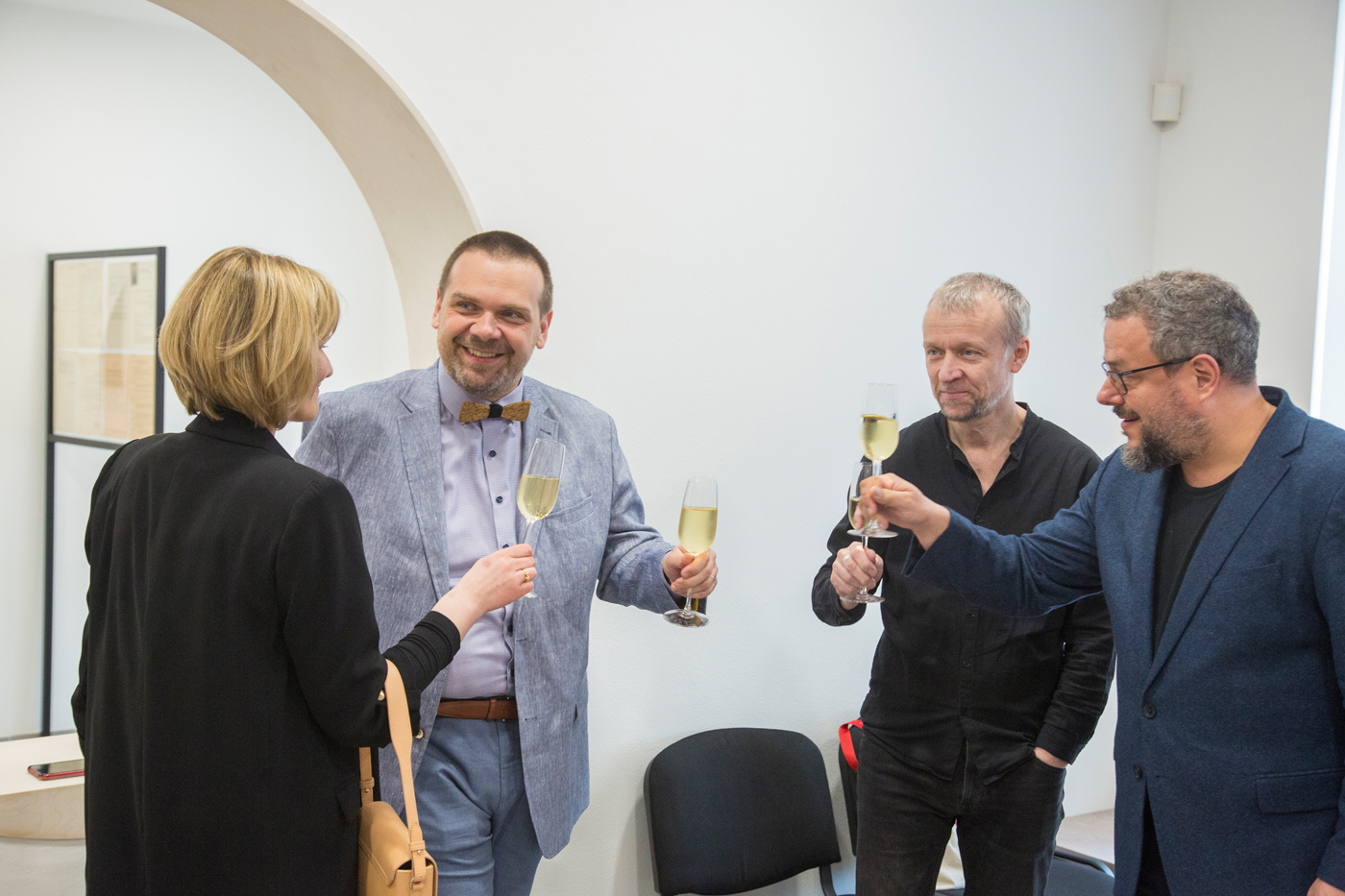
Presentation of the Brno IWalk
Documentary filmmaker Martin Šmok has prepared two virtual walks through Brno's Jewish past, one of which is now fully available. Brno has now joined the nearly ten cities in the Czech Republic that already have their own IWalk, giving teachers and students in particular
a great tool for teaching local history. The mobile app called IWalk is freely downloadable on Google Play (for smartphones
On March 27, Martin Šmok came to present his work to the visitors of the Little Mehrin, and during the discussion it turned out that there were also women in the audience who had experienced Ben Benari in person; one of the virtual guides. The audience also had the opportunity to see a part of the unpublished IWalk No.2. Thanks to the USC Shoah Foundation, OpenEye, Meeting Brno and SAKO, a.s., which
contributed financially to the creation of the Brno IWalk. As did the Mehrin Foundation, which initiated the whole thing.
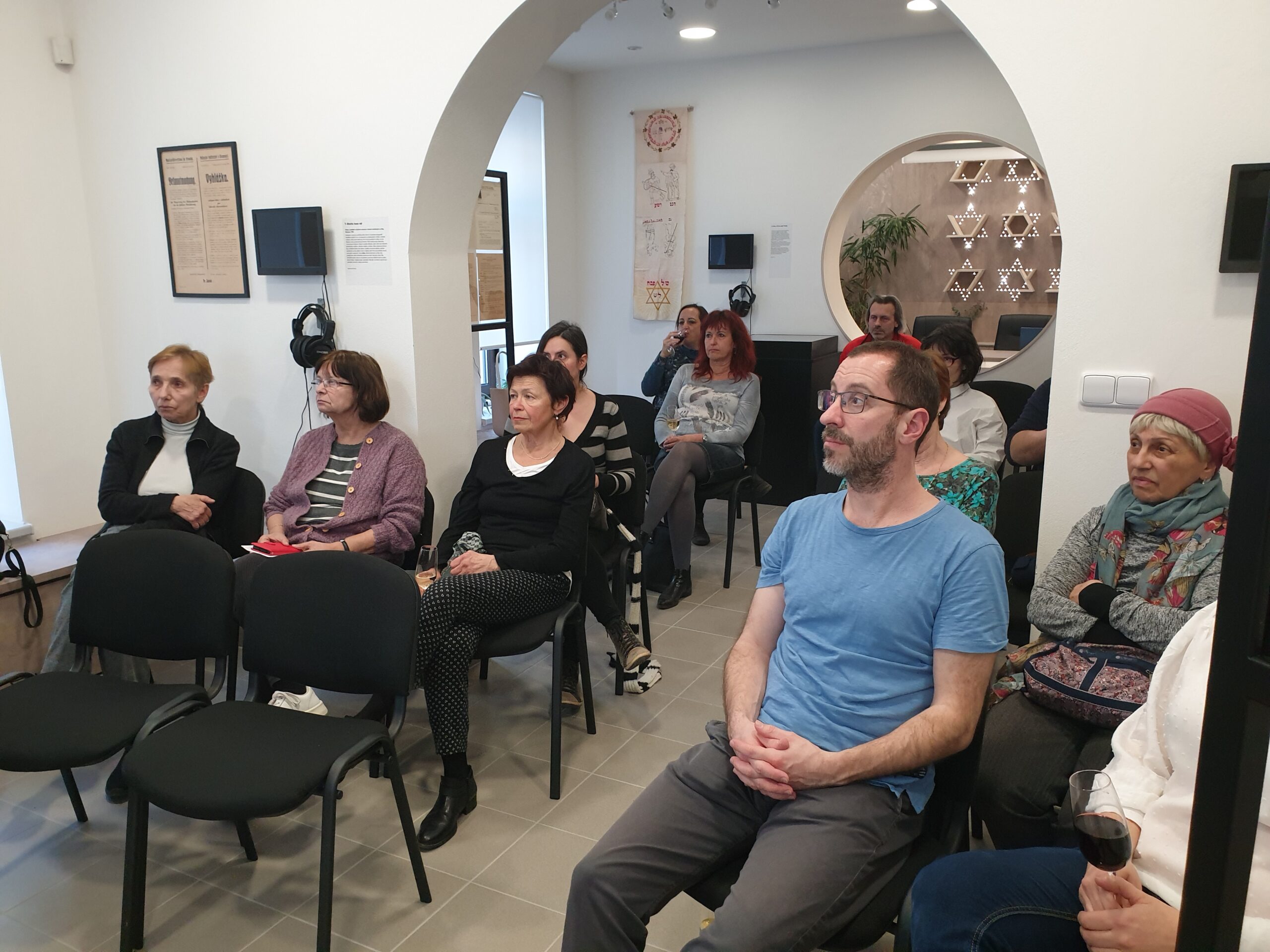
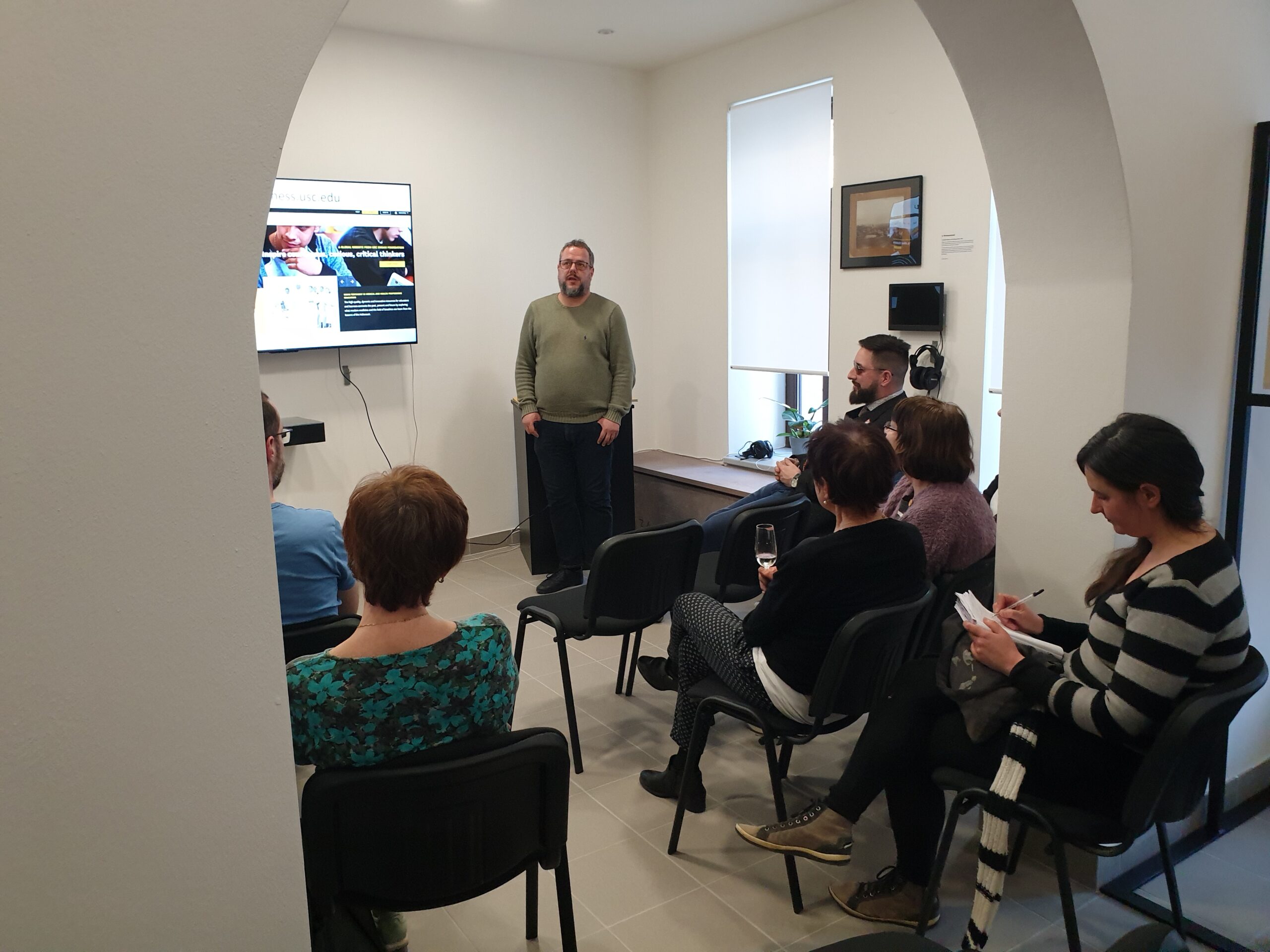
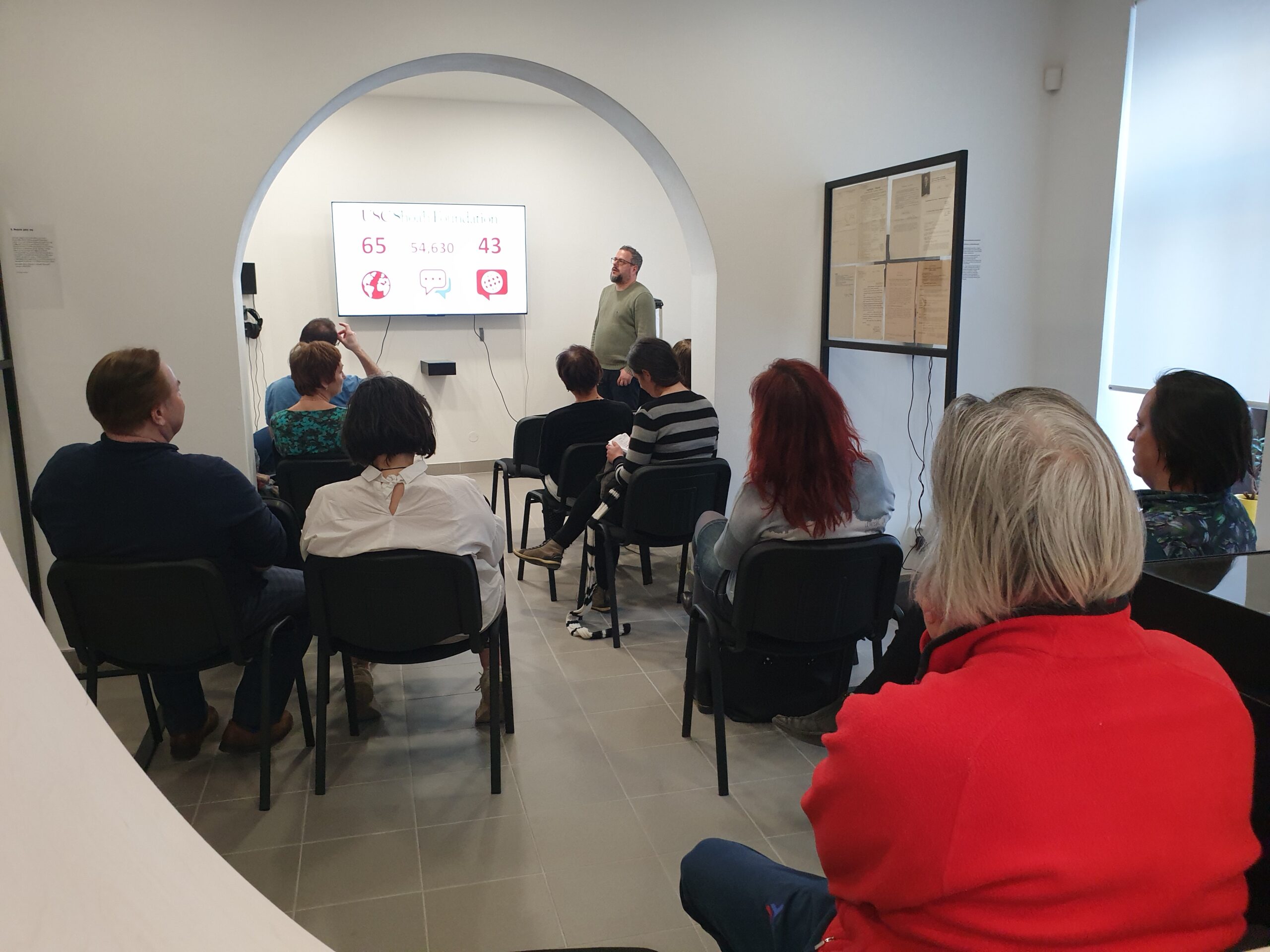
Wine tasting from the Hafner winery
Ladislav Polák is from Bratislava, where he and his wife have run the kosher restaurant Chez David since 1993. They came to Brno to present the excellent kosher wines of the Lower Austrian winemaker Julius Hafner on the day of the presidential inauguration. It is fair to say that guided tastings are one of those happy events where people leave in a good mood and, at best, a little smarter. This time there was all the more reason to raise a glass in joy, and the excellent brandy that came at the end suitably crowned the whole hilarious evening! By the way, you can taste Hafner's wine, which is known in forty countries around the world, at every event we organize in Malý Mehrin.
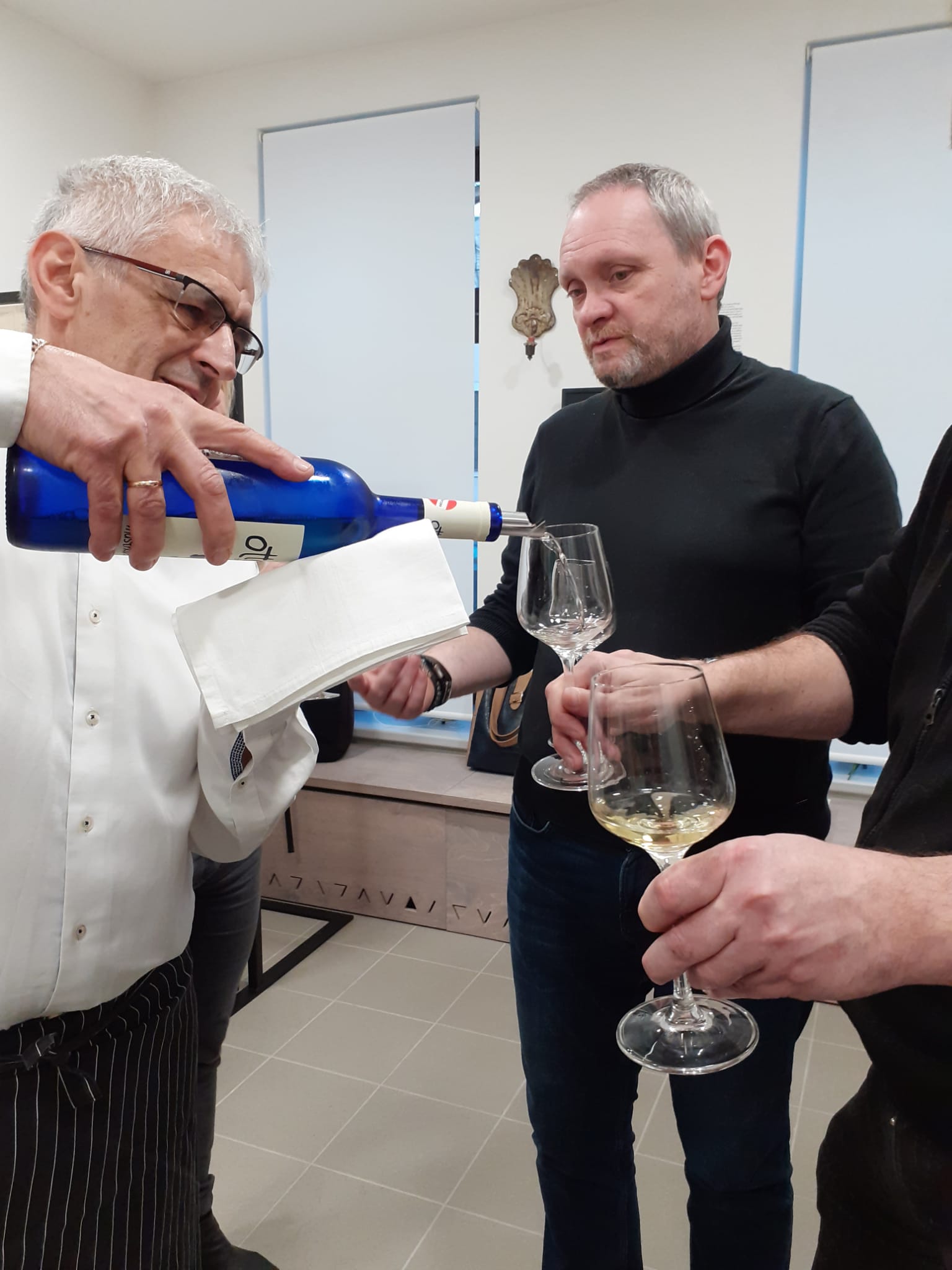
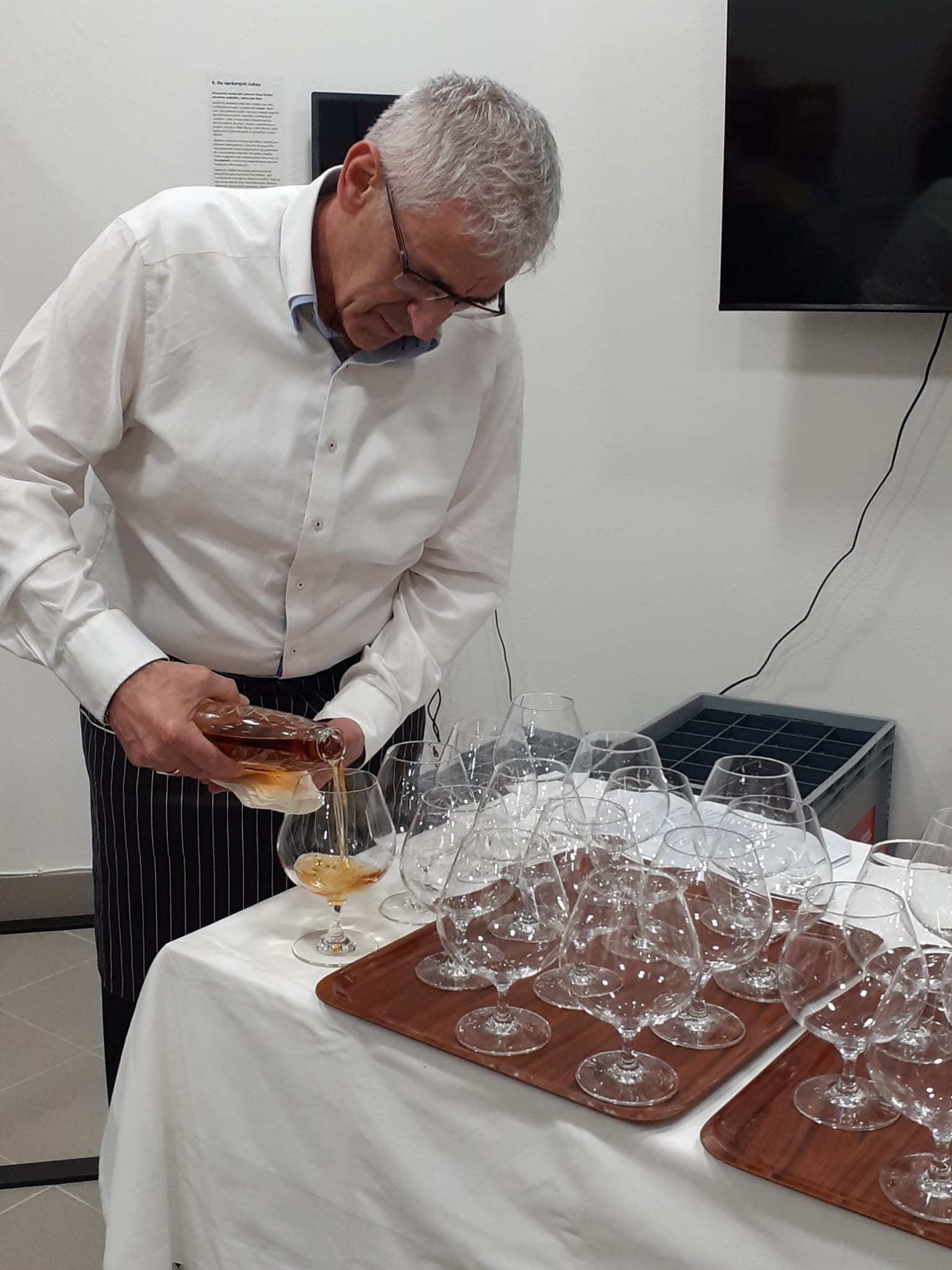
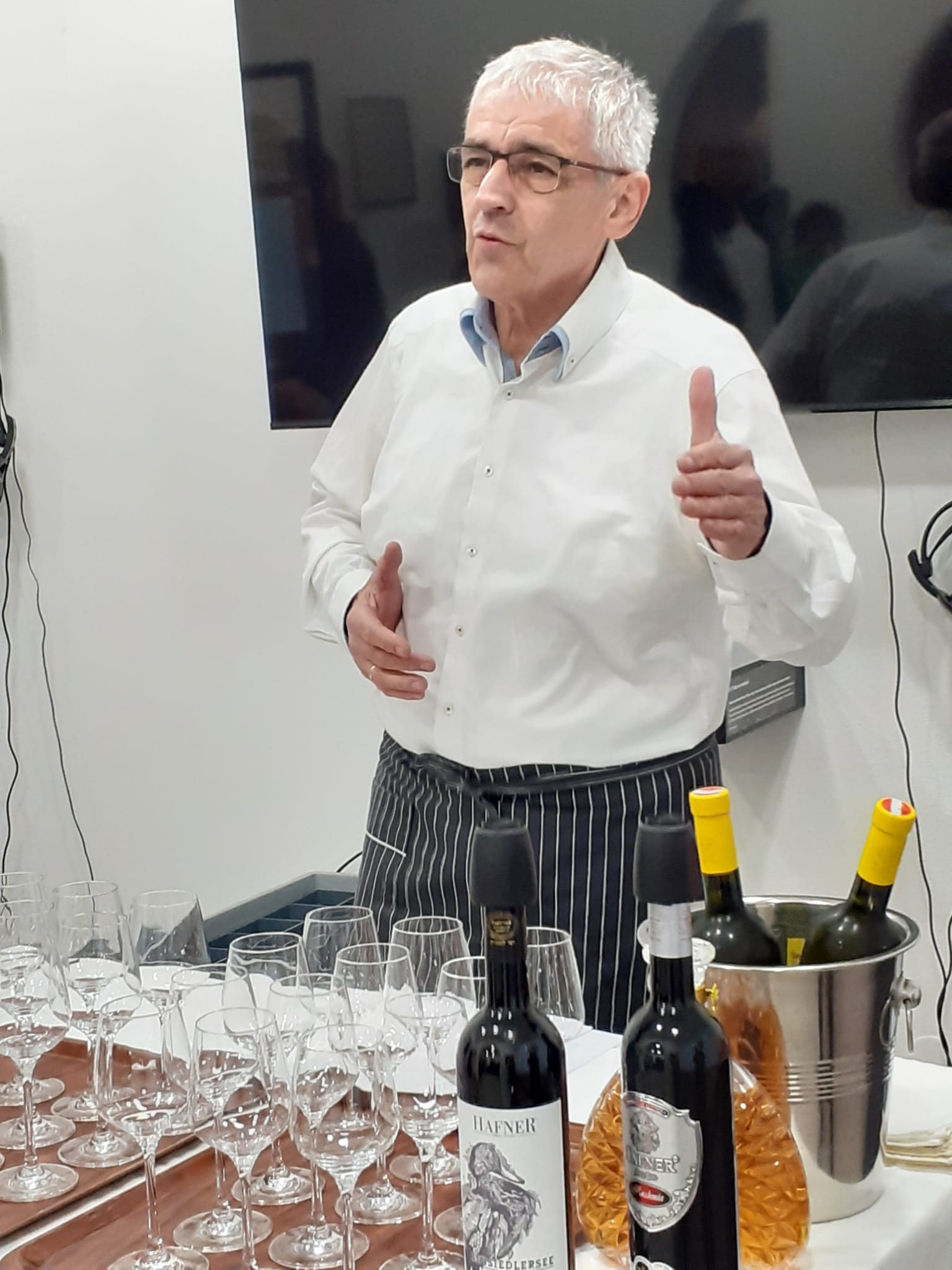
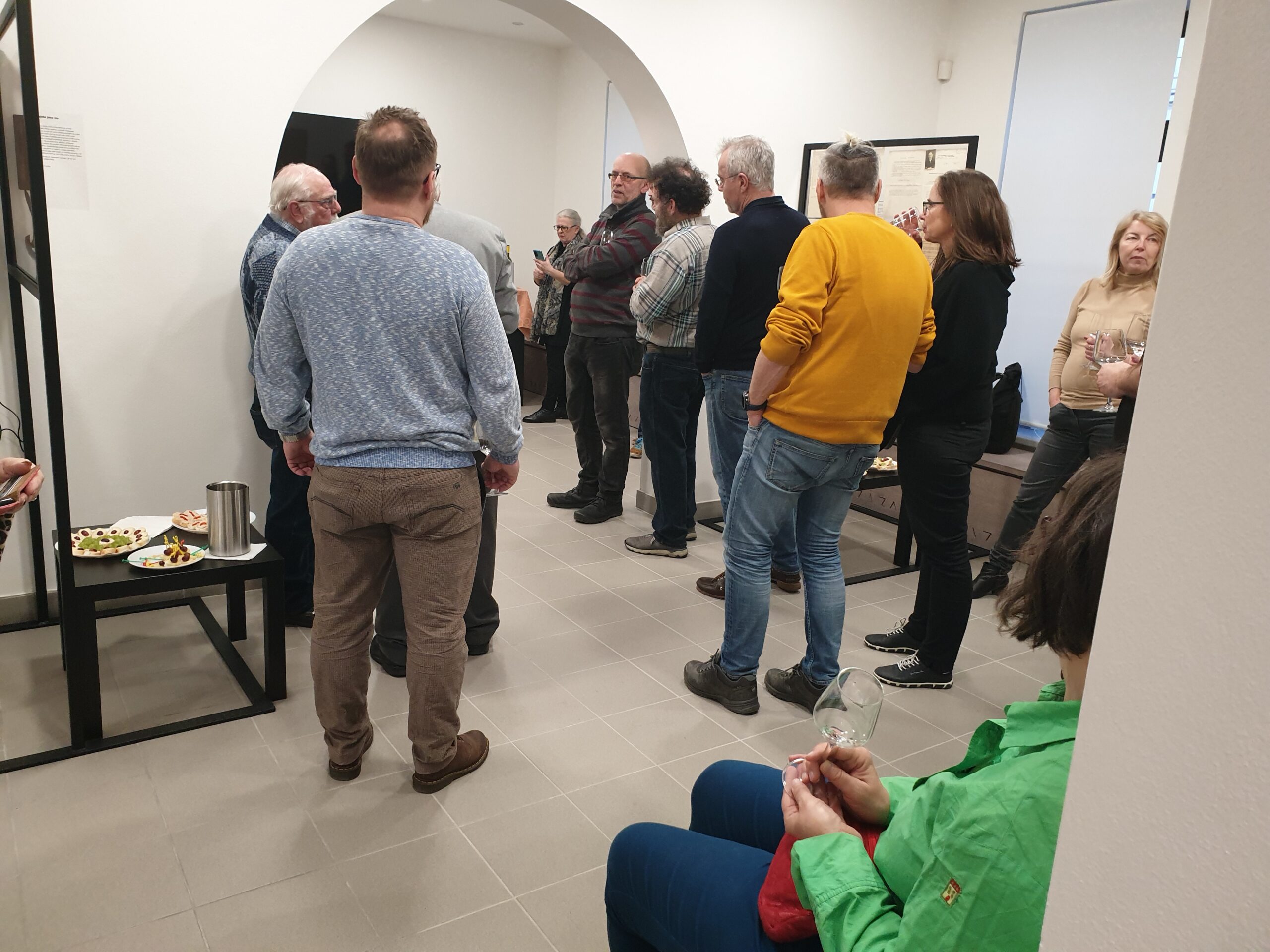
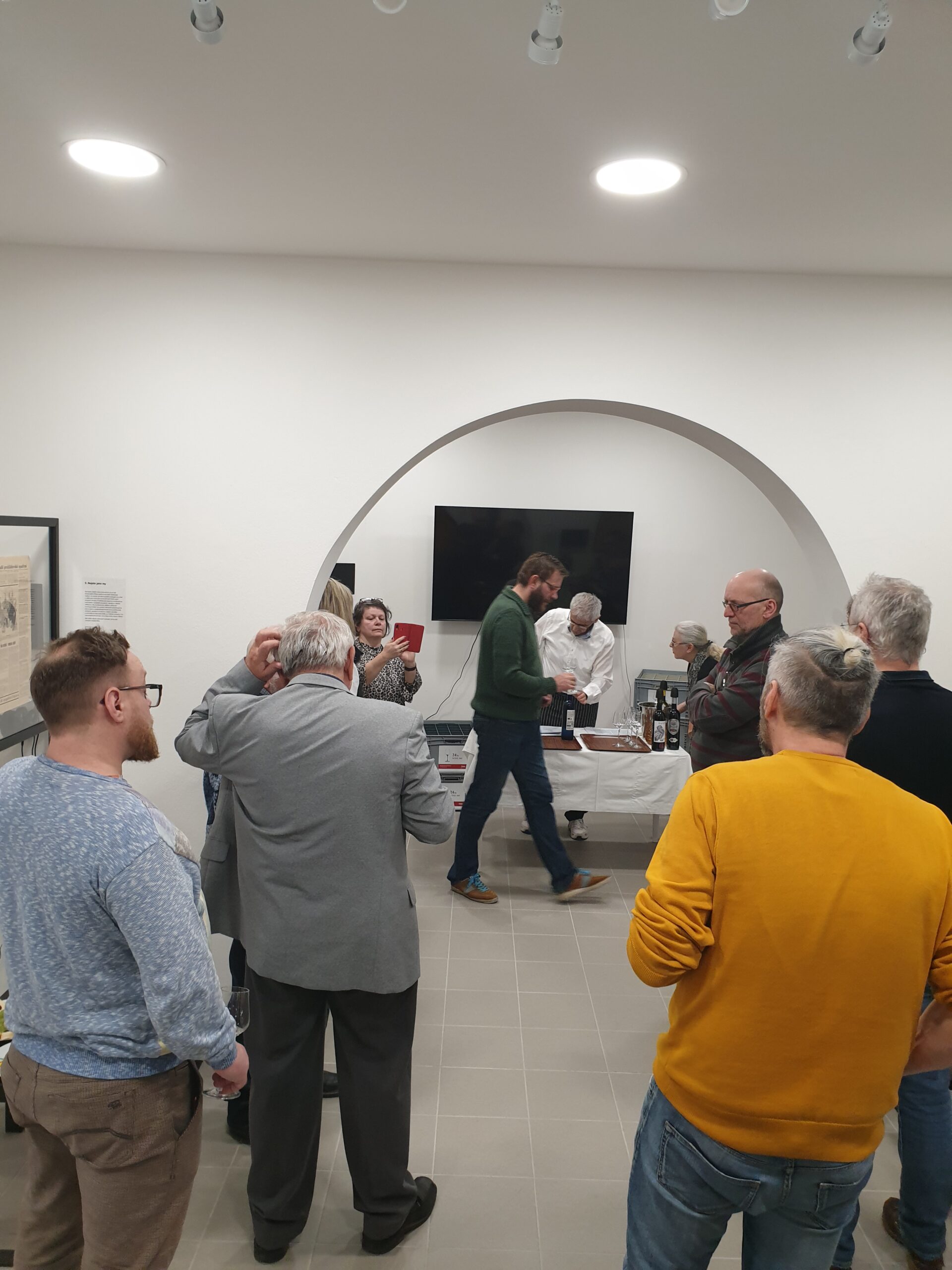
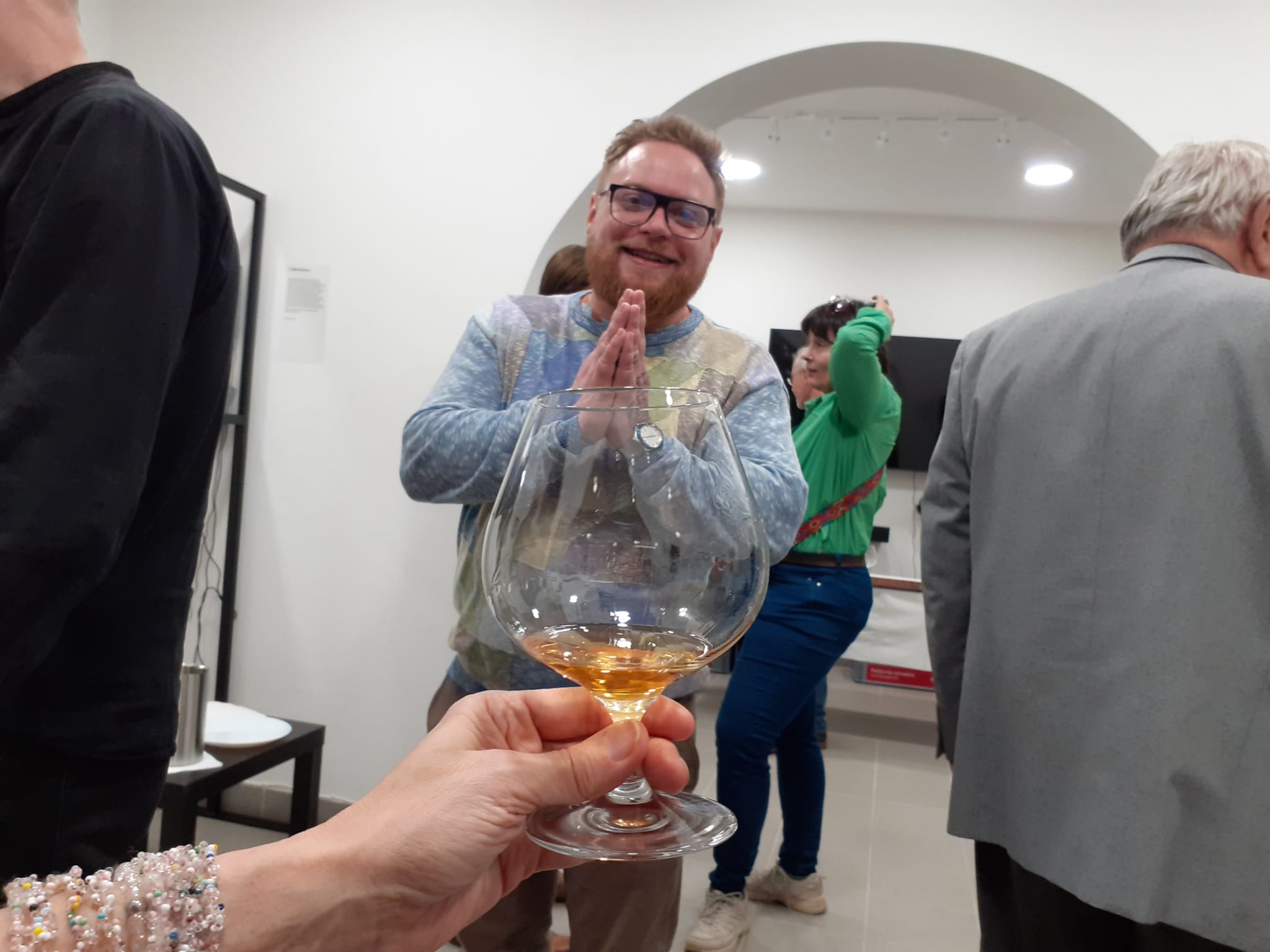
Lecture by American writer Kathi Diamant
The lecture by the American writer Kathi Diamant, author of the bestselling Kafka's Last Love about Dora Diamant, was the first test of our space at Vídeňská in a "hall" setting. The thirty chairs available to us were fully occupied, and another ten people somehow crowded around, so we checked where the limits of our capacity were! (And then we bought some more chairs.:-)) The talk about Franz Kafka's last (short, but very important) love was engaging, entertaining and moving. Although it lasted an hour and a half, the audience stayed as one man until the end. We thank not only the author (and her husband, who served the pictures at the end), but also Judita Matyášová, who mediated everything, Katka Báňová, who interpreted perfectly, and finally Vít Mádra, who took these nice photos for us.
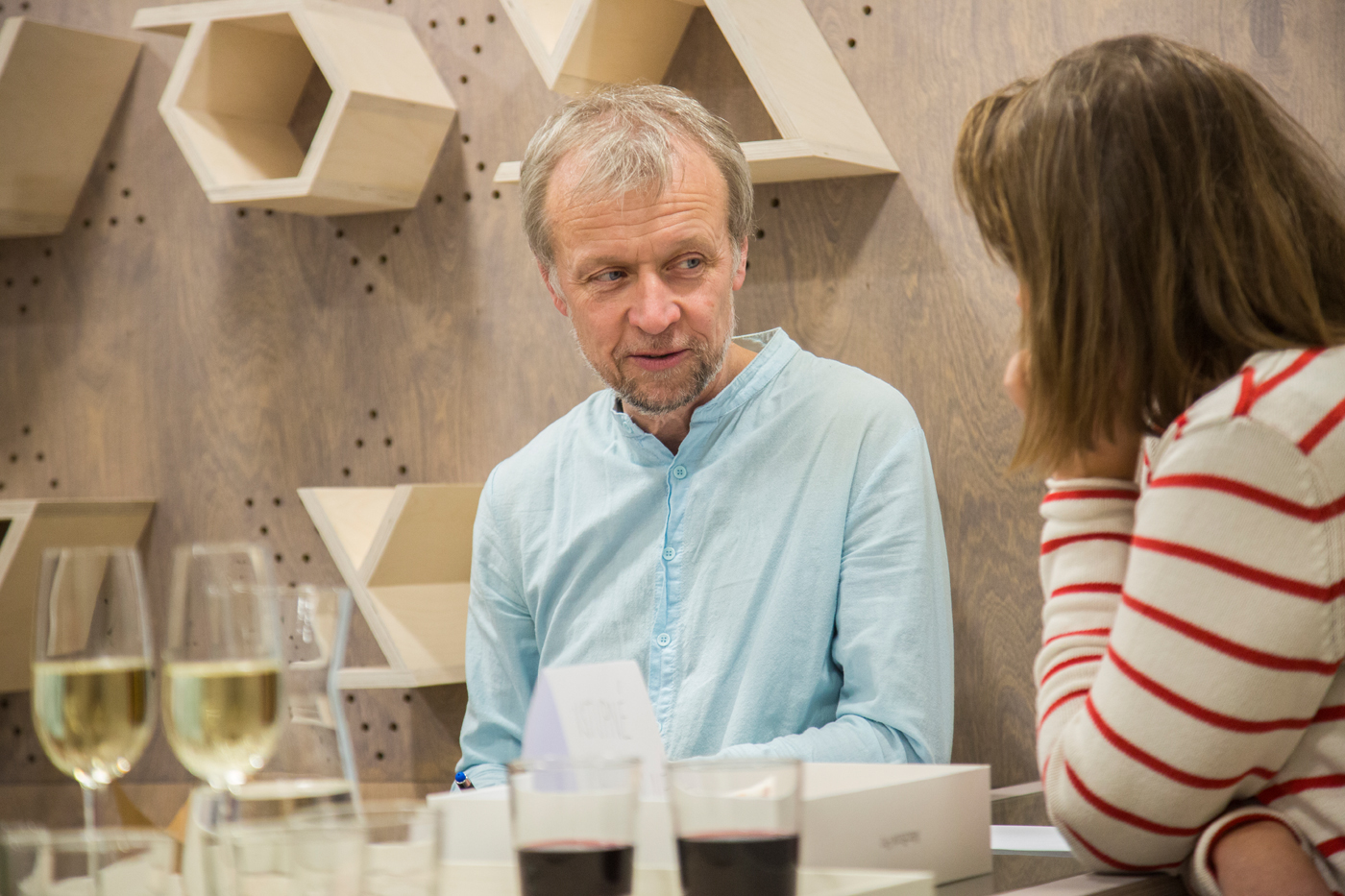
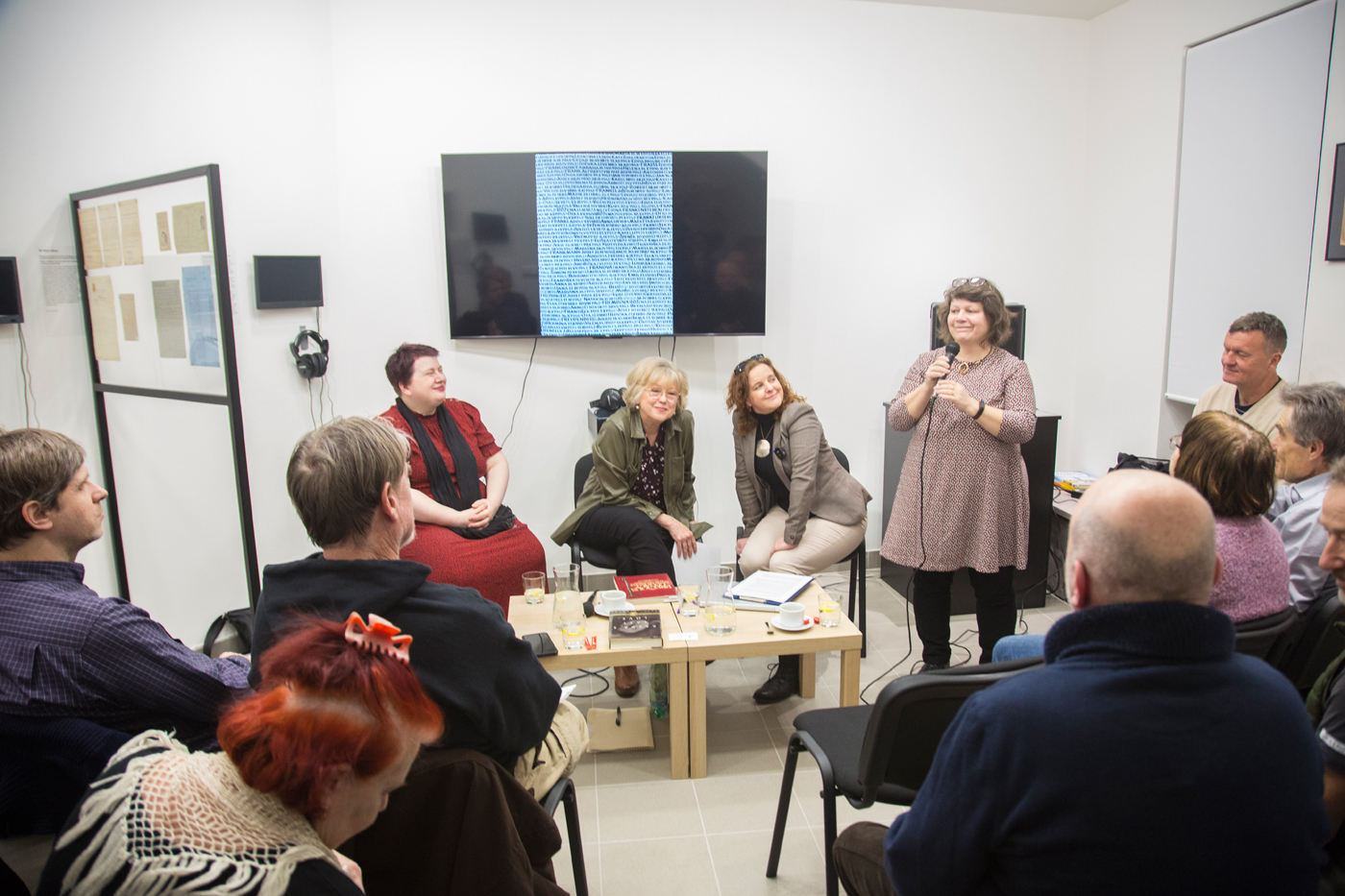
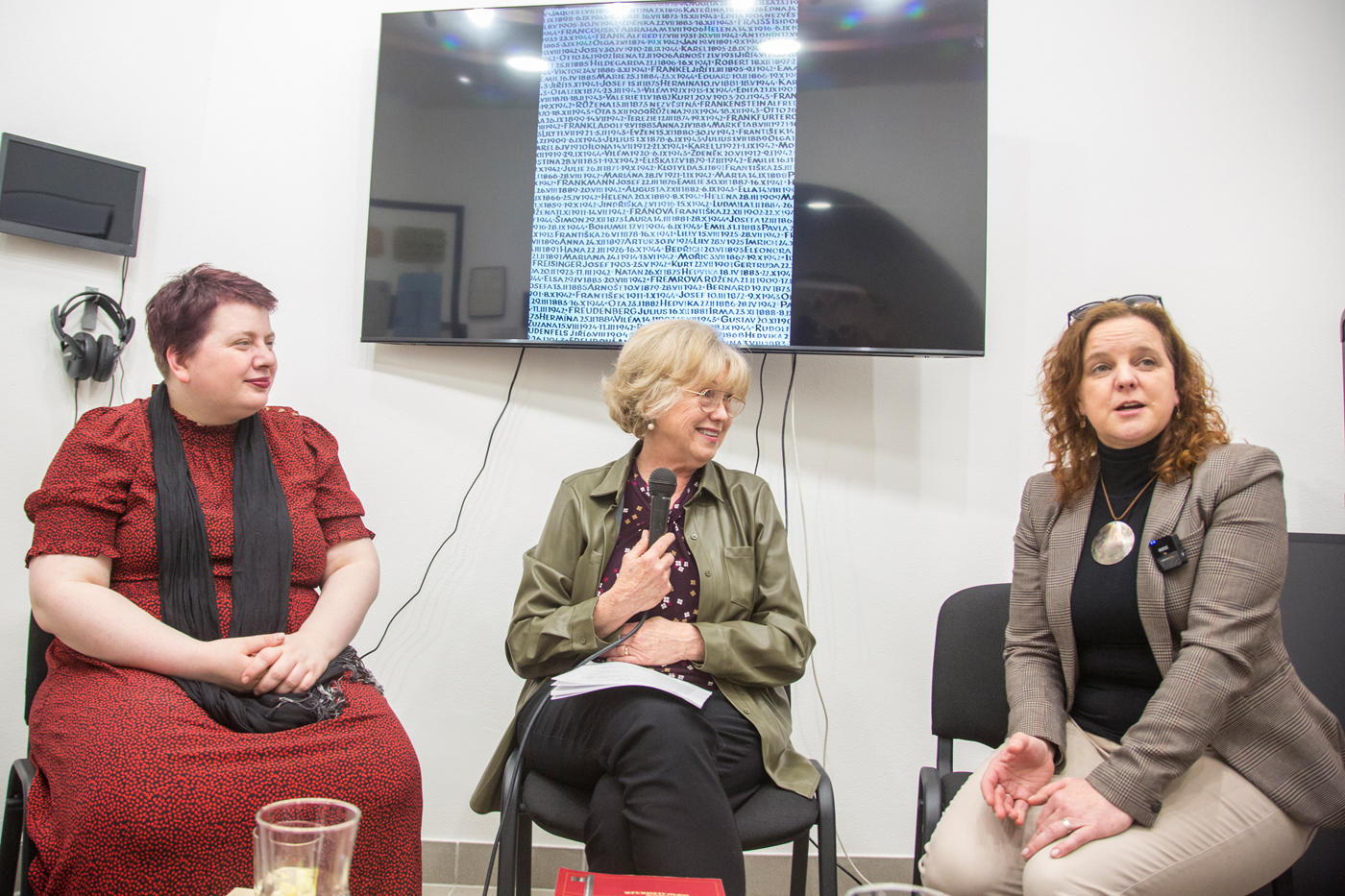
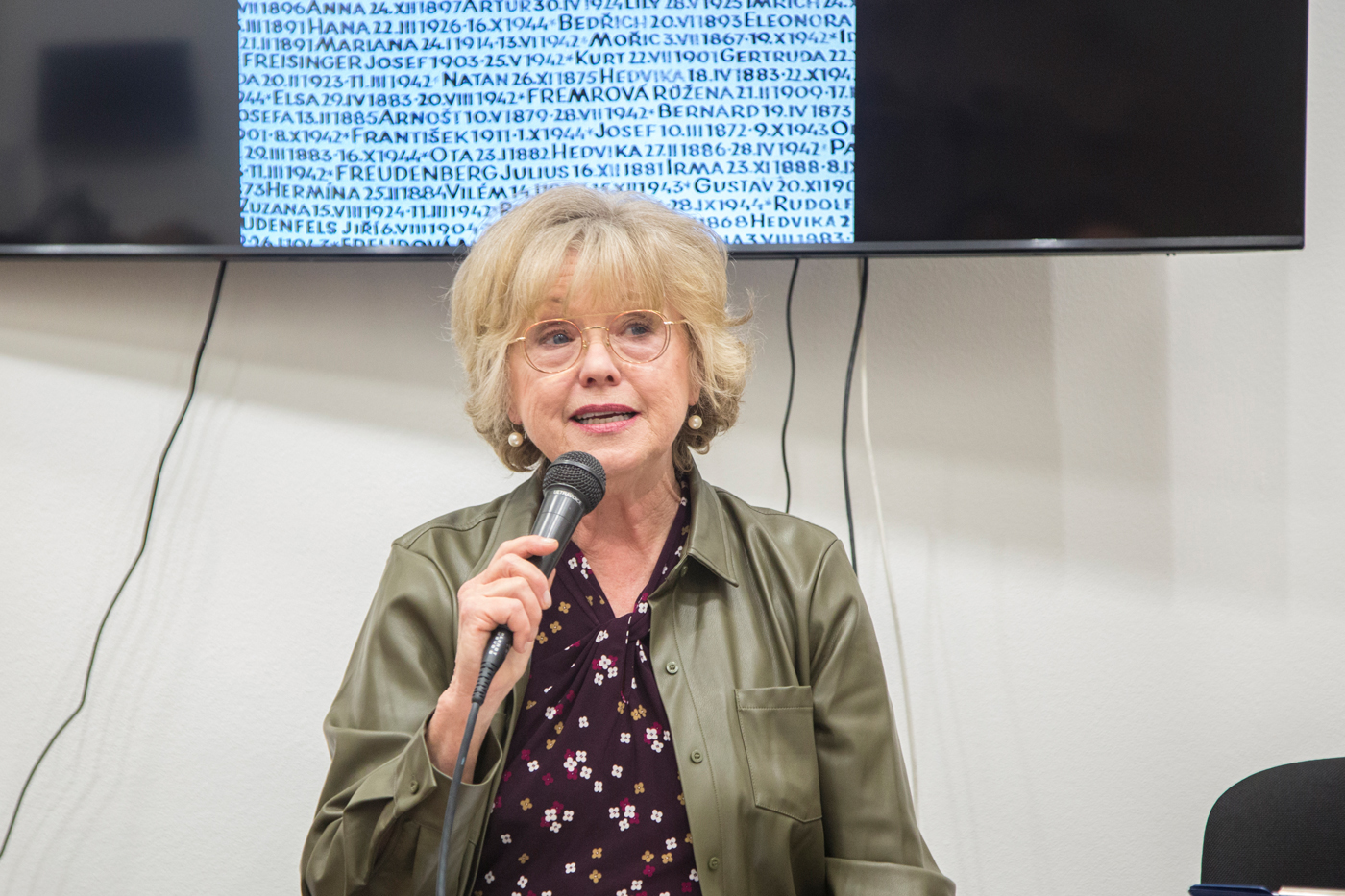
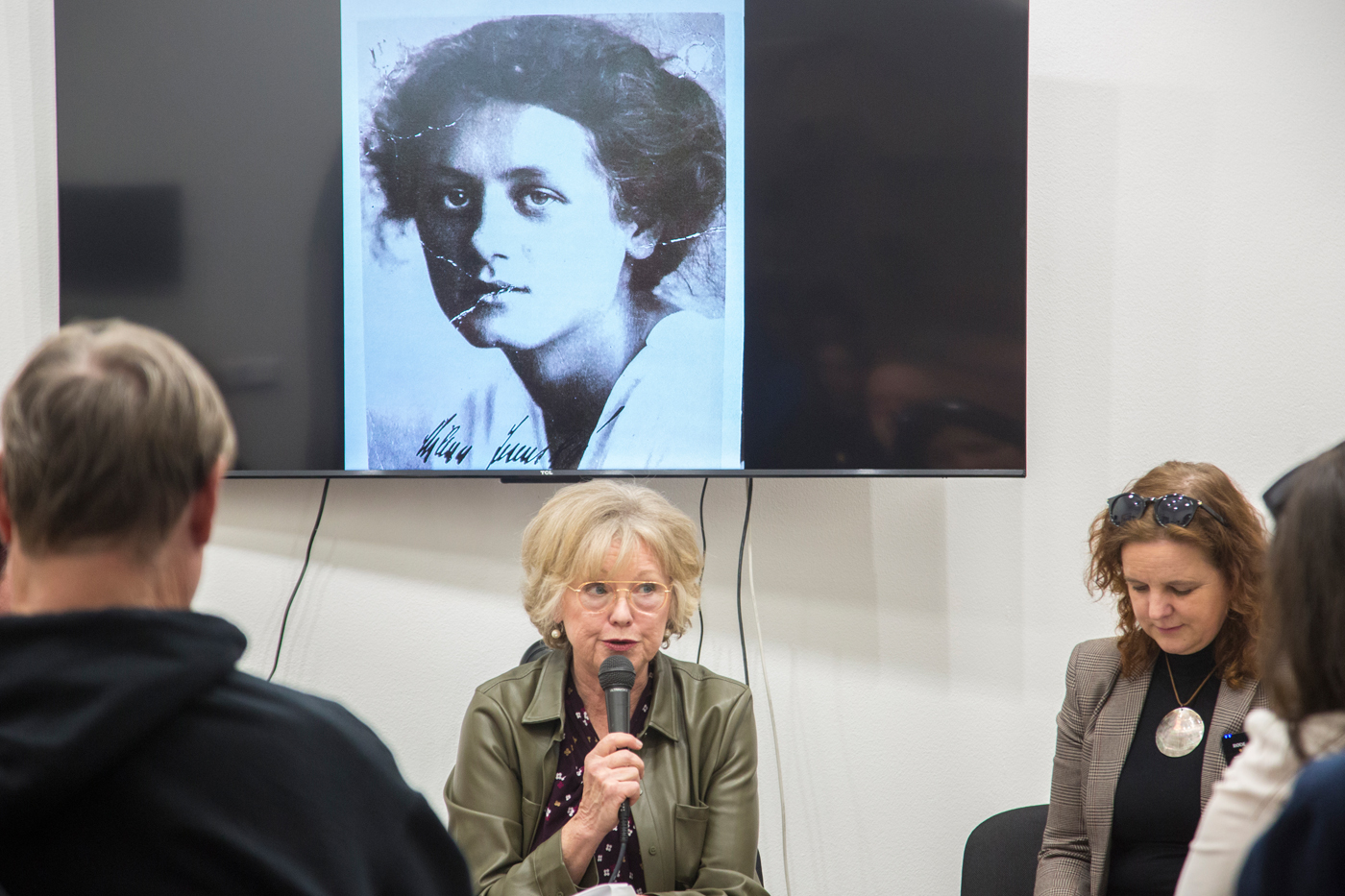
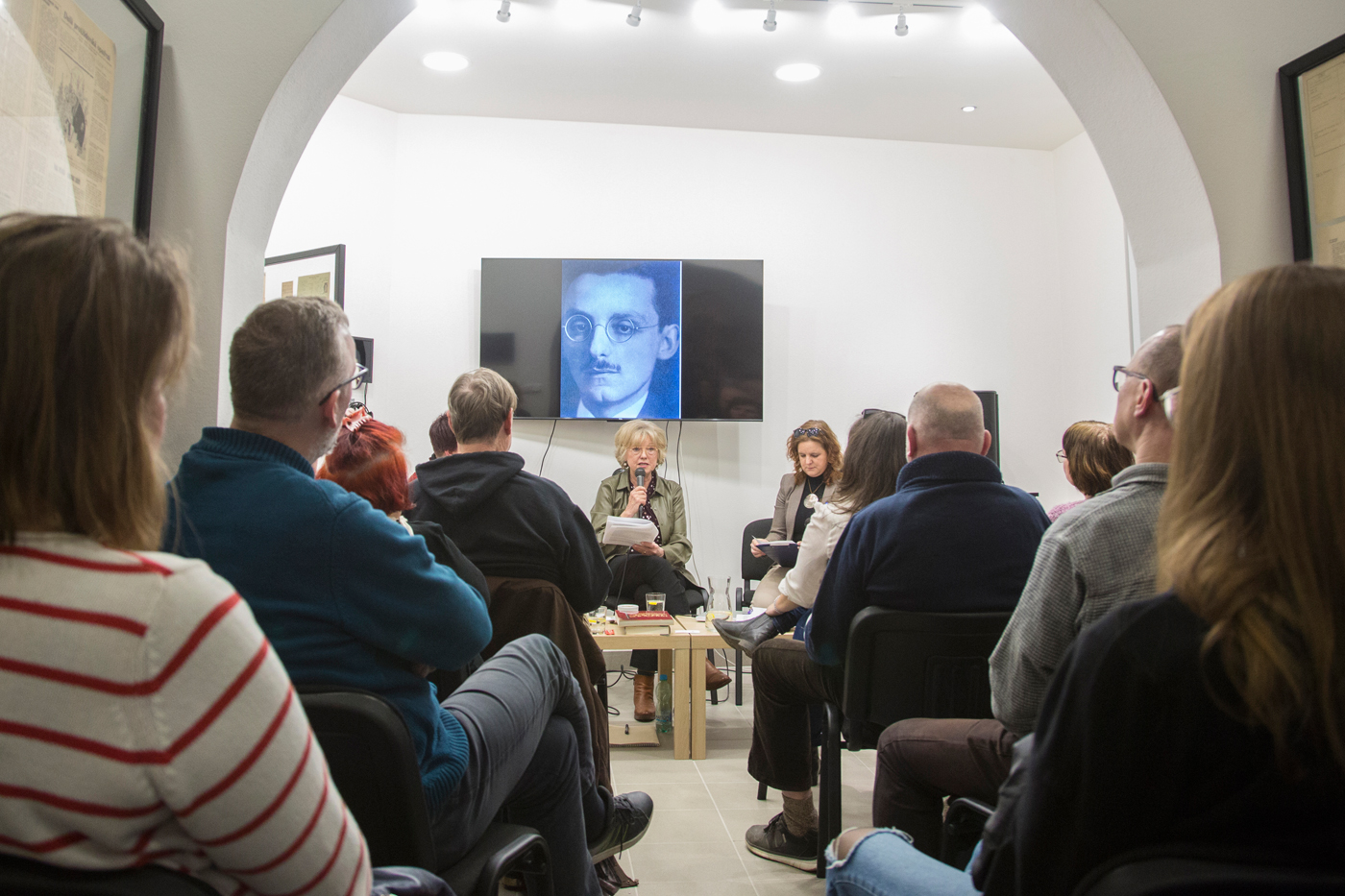
Opening ceremony, opening ceremony
The opening of Martin Šmok's exhibition The Carriers of Memory, which was also the grand opening of the museum, was a success. At least in the sense that the technology did not fail and that most of the invited guests were present, including rare guests such as Karel Ellinger (born 1928), who survived
Auschwitz and several other concentration camps, Milan Uhde, Mayor of the Statutory City of Brno Markéta Vaňková, Mayor of the Brno-střed district Vojtěch Mencl, Director of the Moravian Library Tomáš Kubíček and many others. The author of the exhibition and the author of the architectural design of the museum Radim Horák, head of the Kamkab!net studio, was also present. We toasted the success of the Little Mehrin with Táňa Klementová and the director of the "temporary" museum Jitka Králová.
The photographs were taken by Vít Mádr and the camera or the microphone pole belonged to the crew of Monika Rychlíková, who is filming a half-hour documentary about Little Mehrin for the Babylon programme.
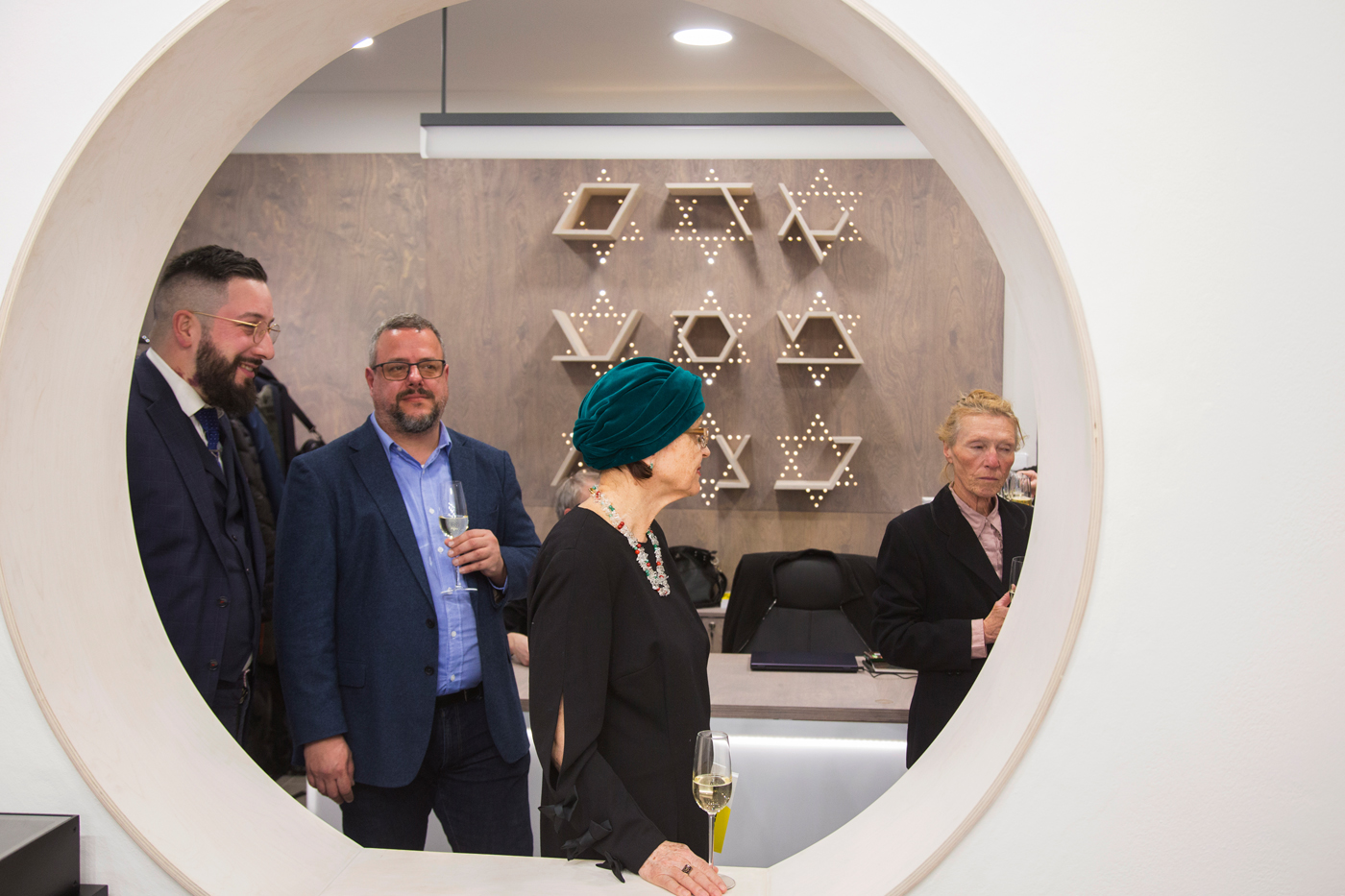
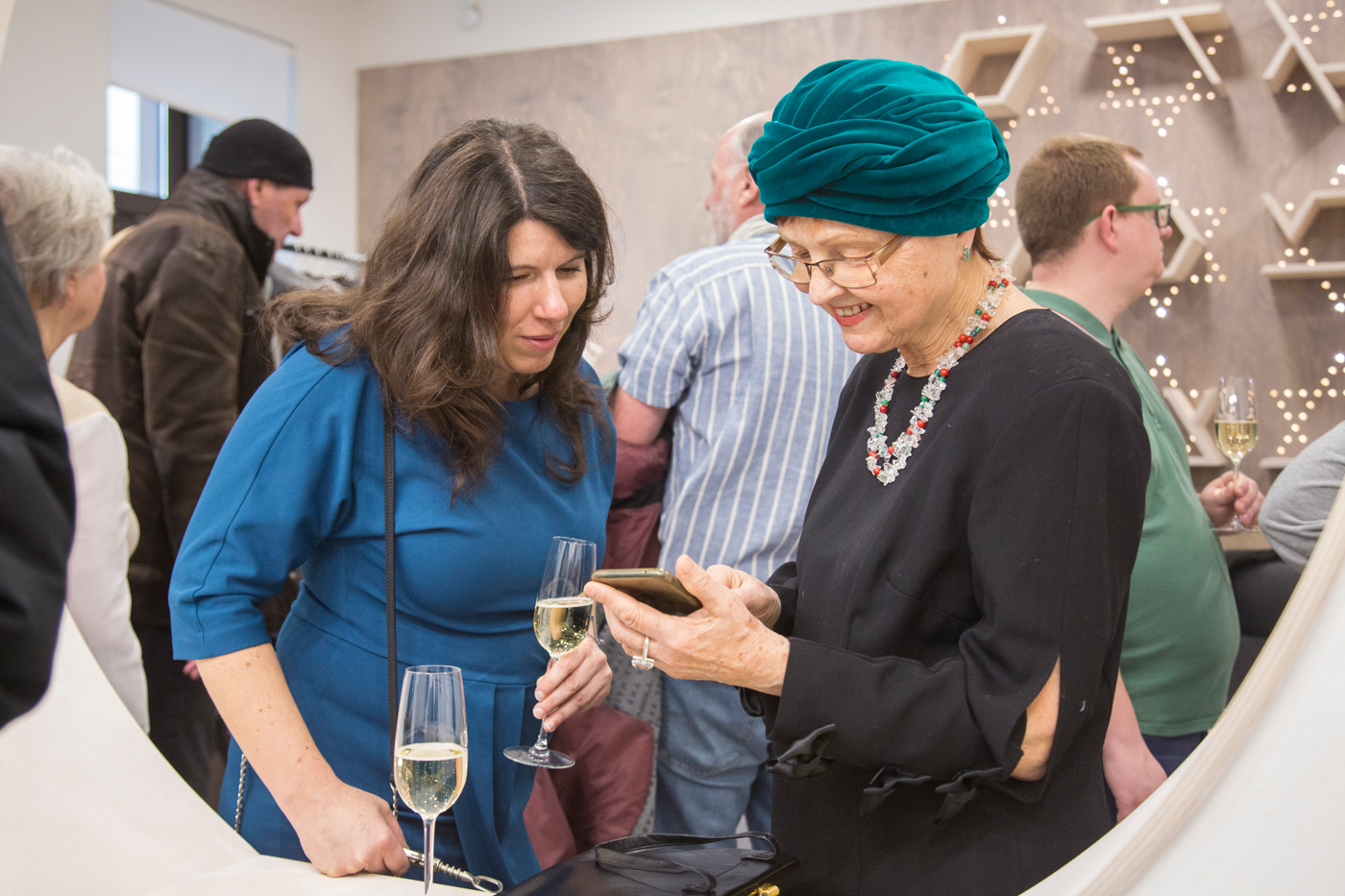
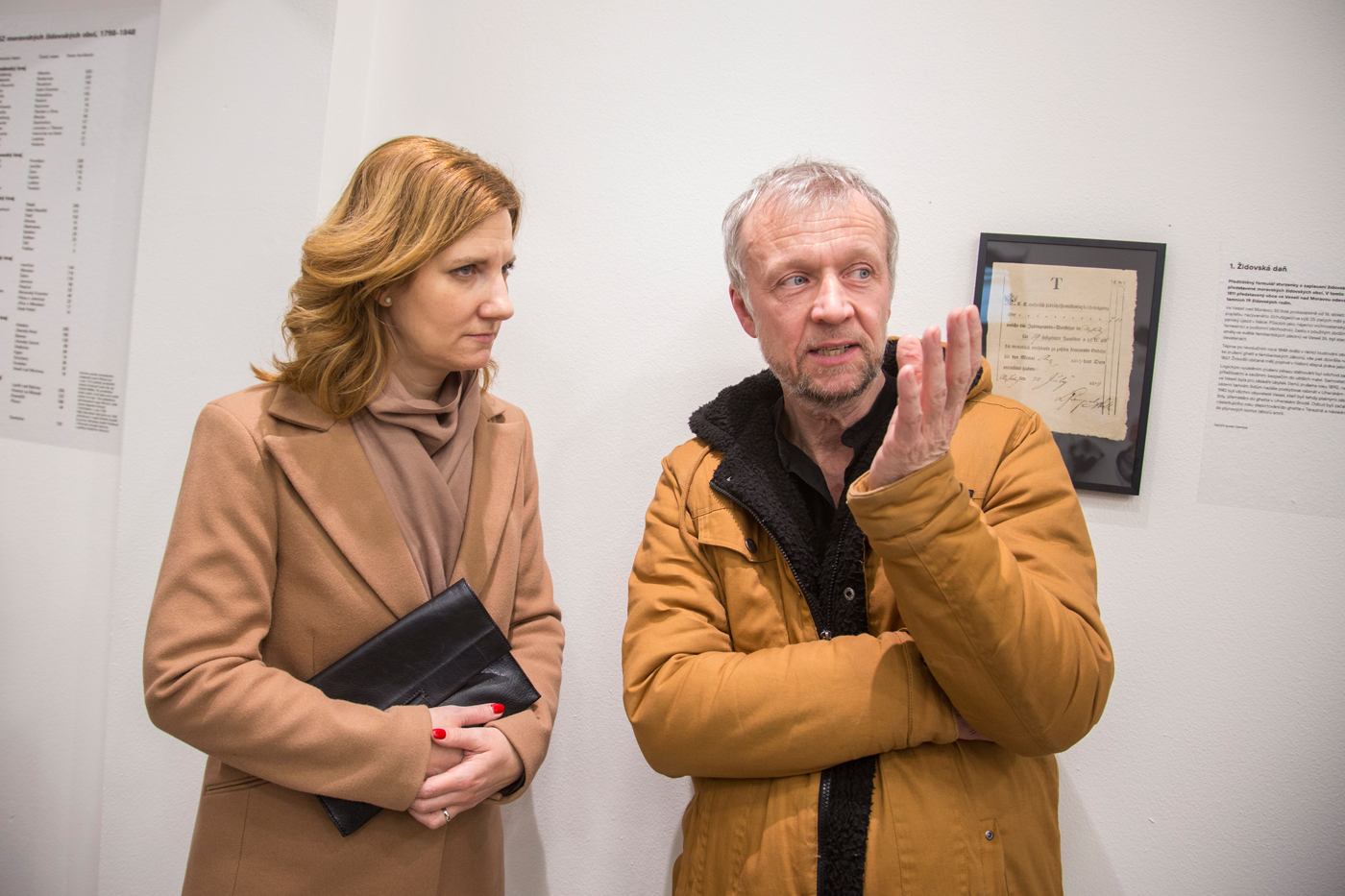
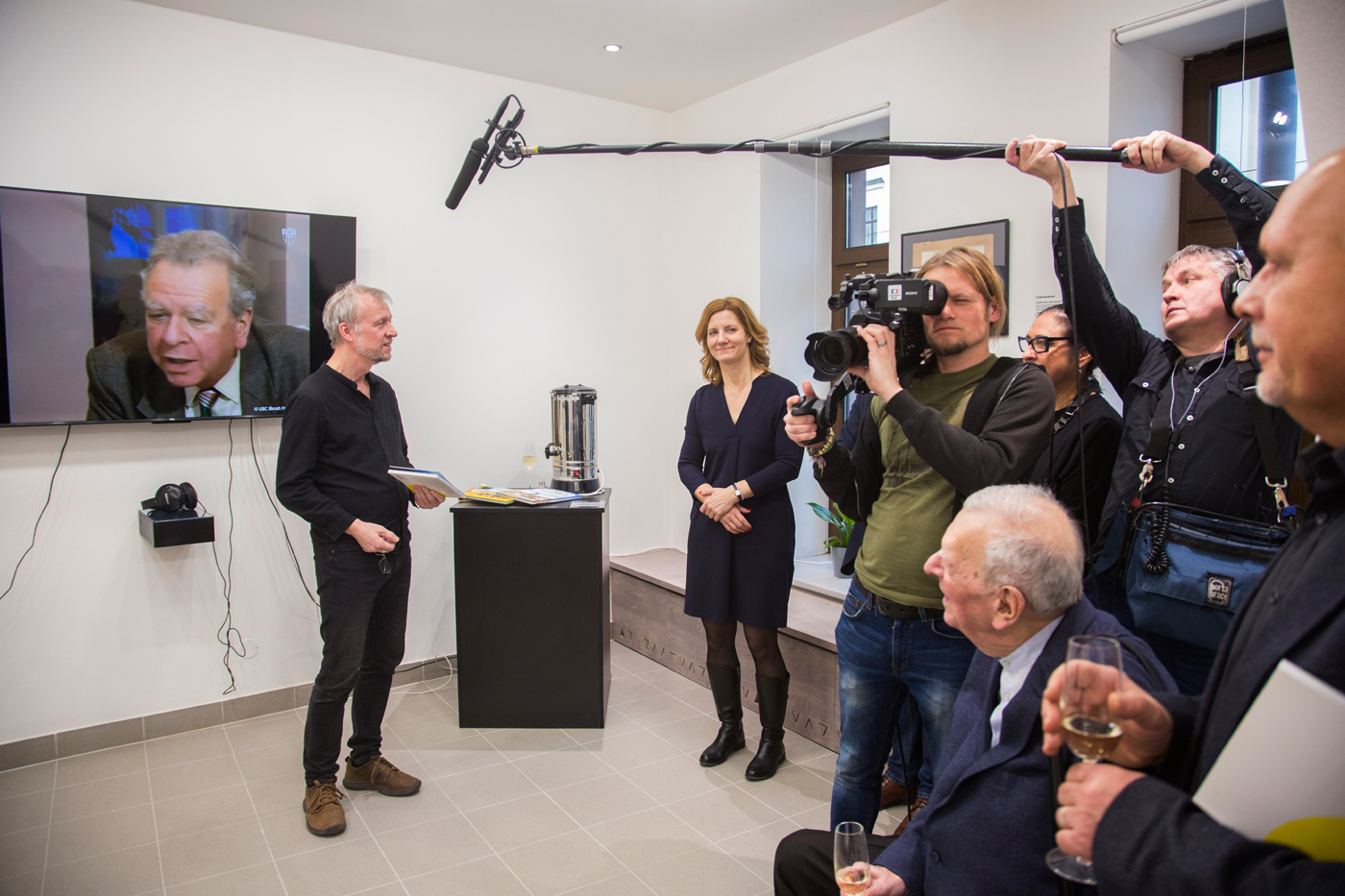
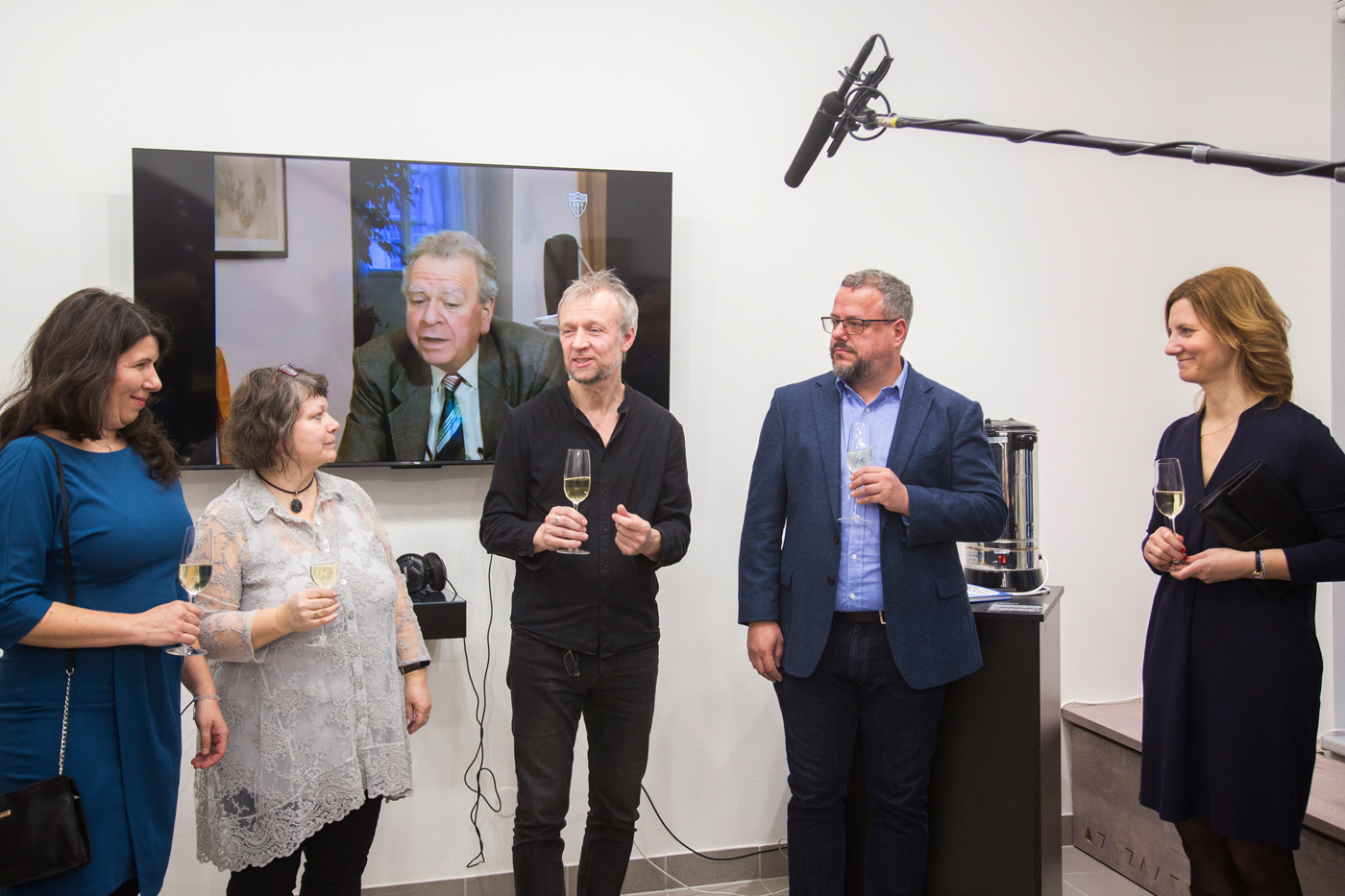
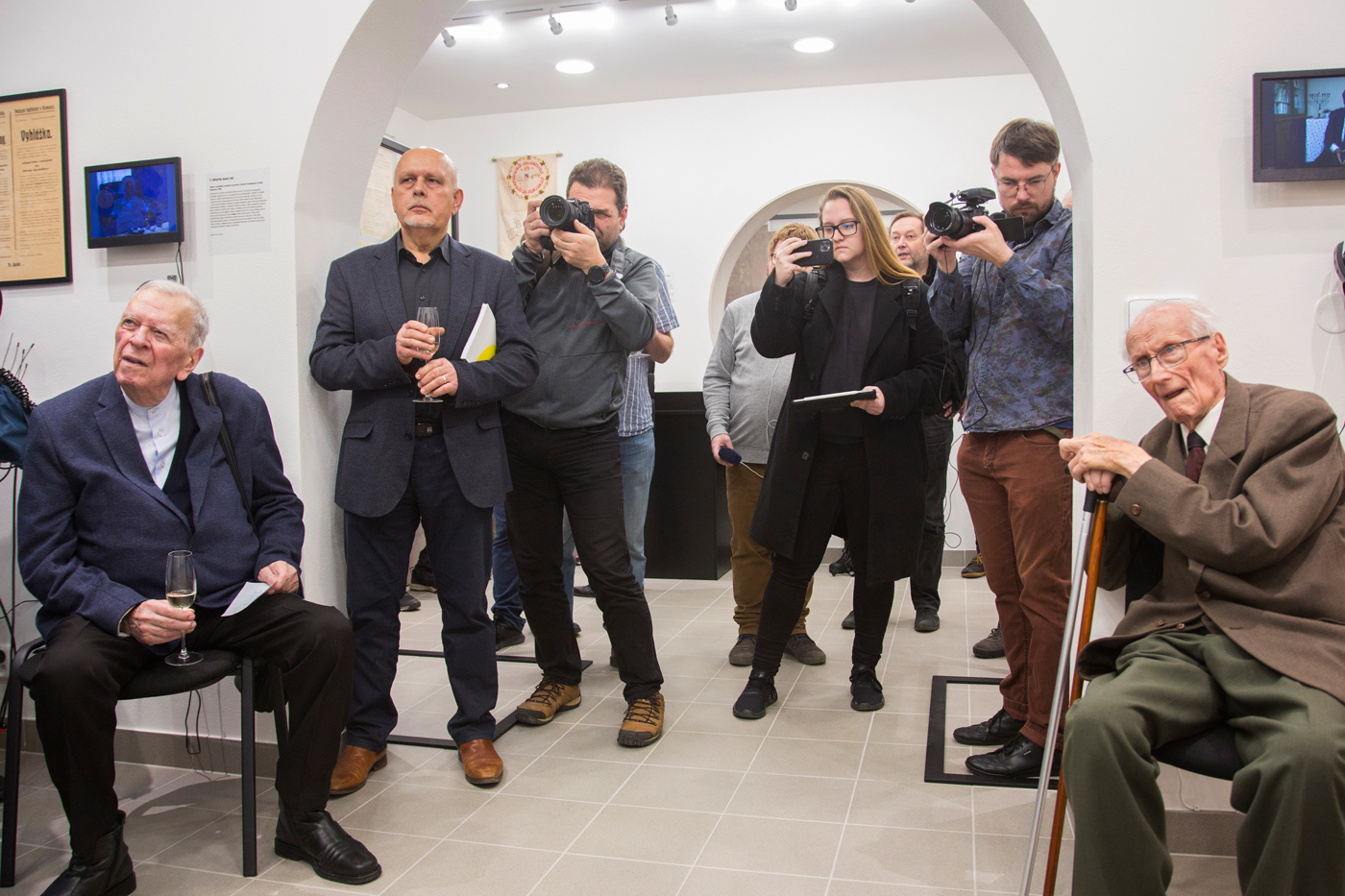
Exhibition and interior
In the morning before the opening, our friend and excellent photographer Petr Soldán came to Vídeňská 14 and in an hour he took a series of professional shots of the interior with Martin Šmok's already installed exhibition Carriers of Memory. So we won't have to use either the visualizations of the architectural design or our own cute amateur mobile phone shots. There are plenty of images and we will certainly pull them out like rabbits out of a hat on various occasions; for now, at least a first taste.
